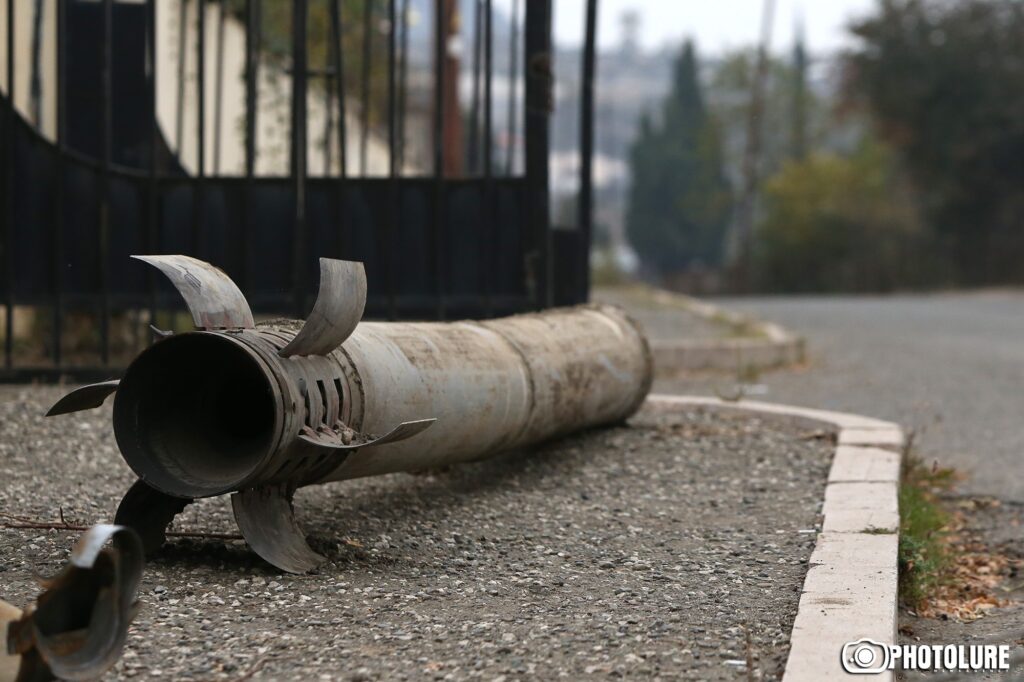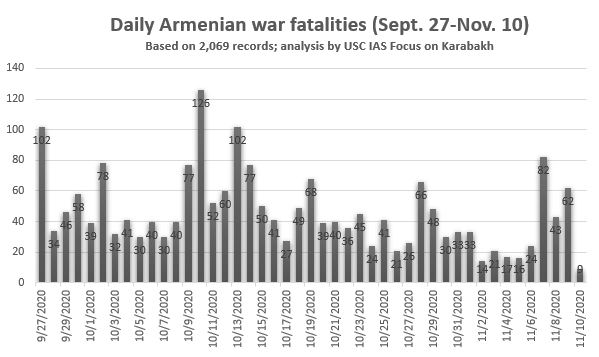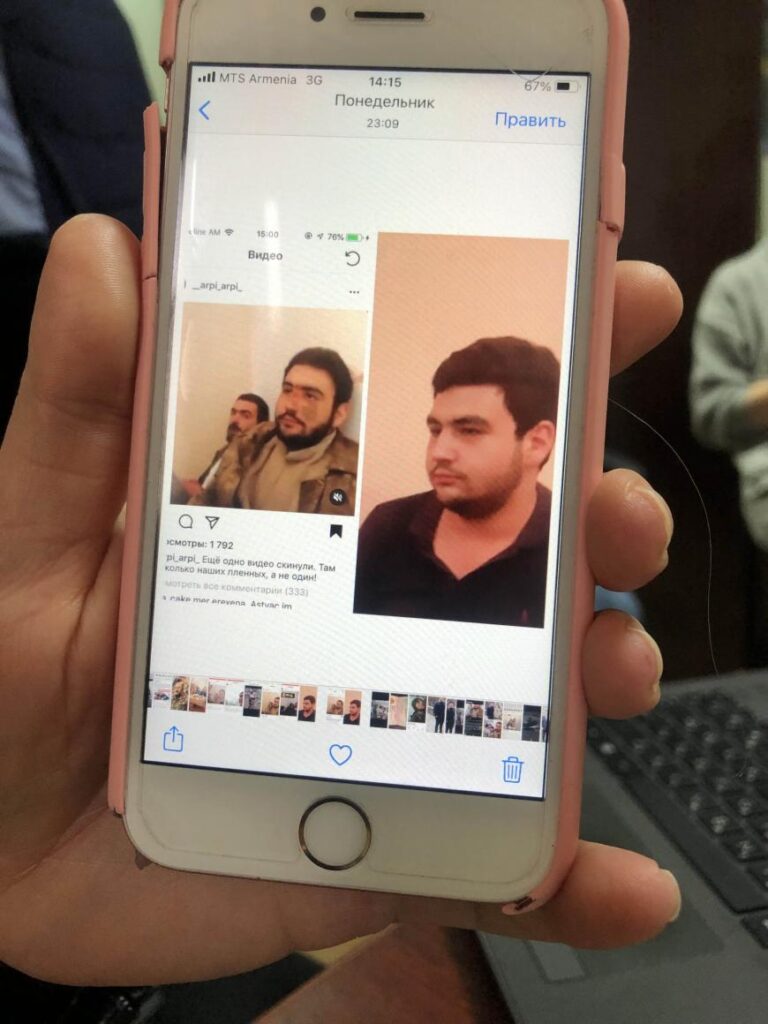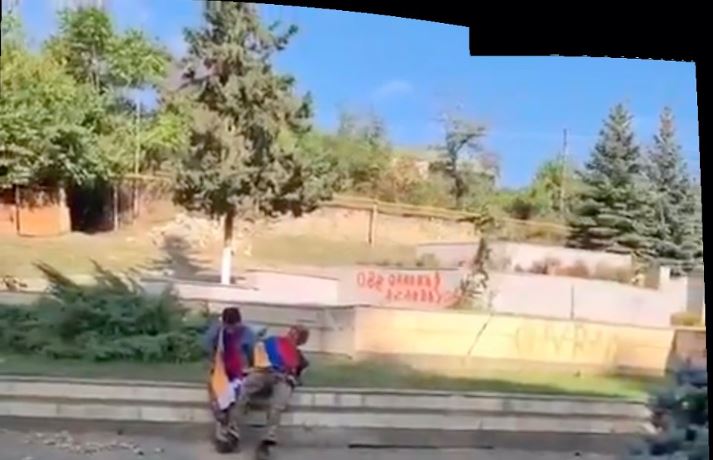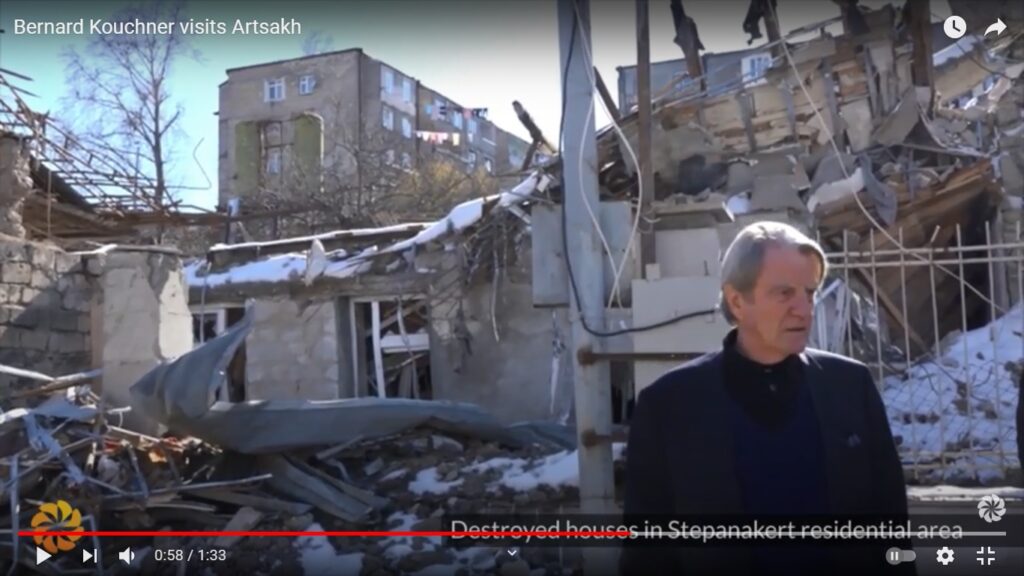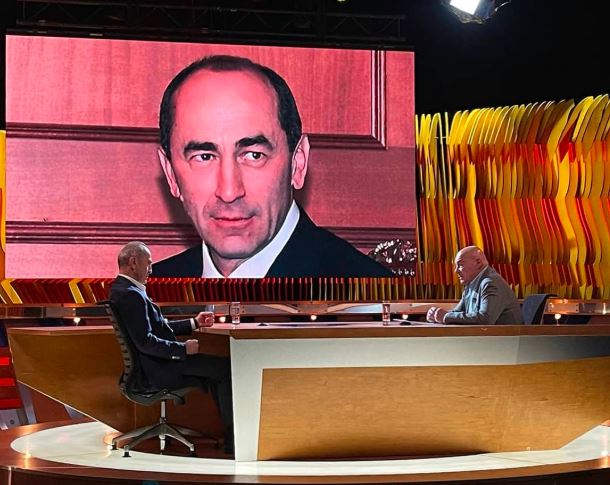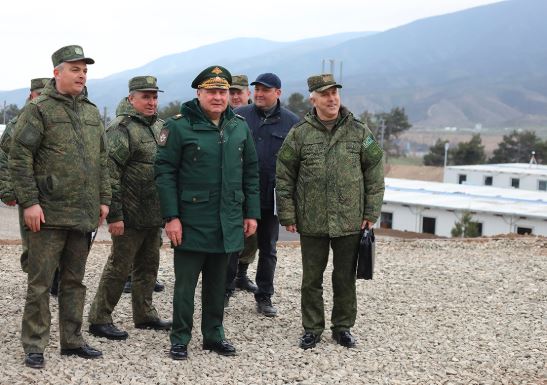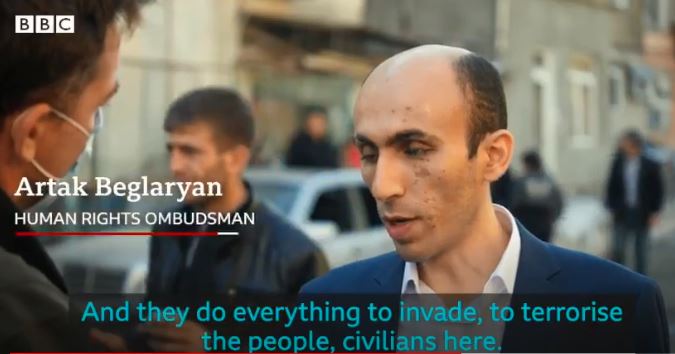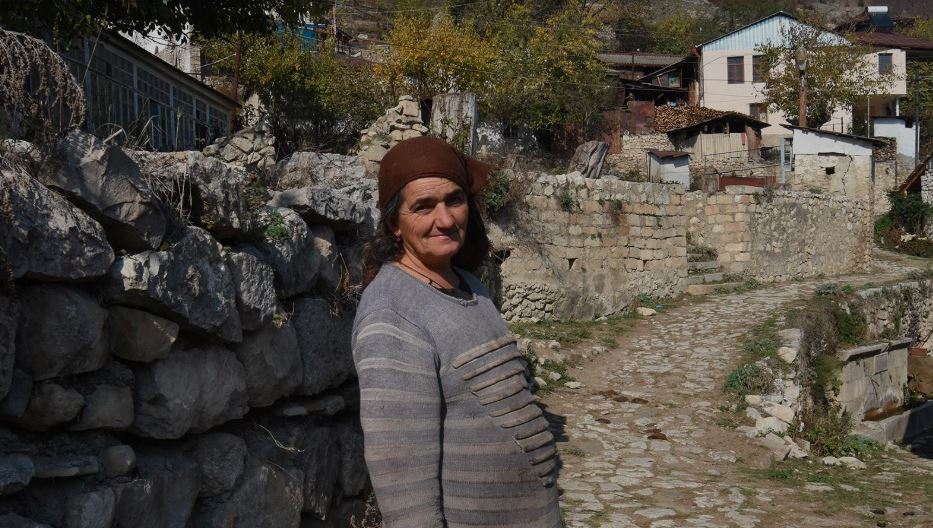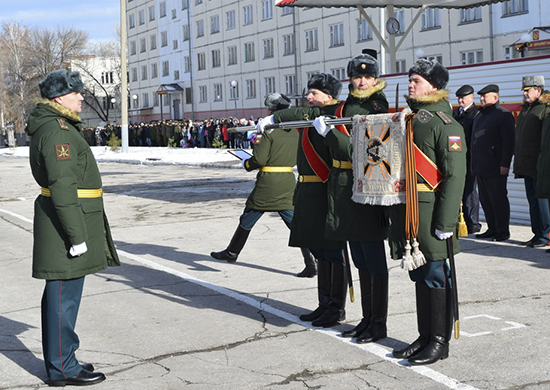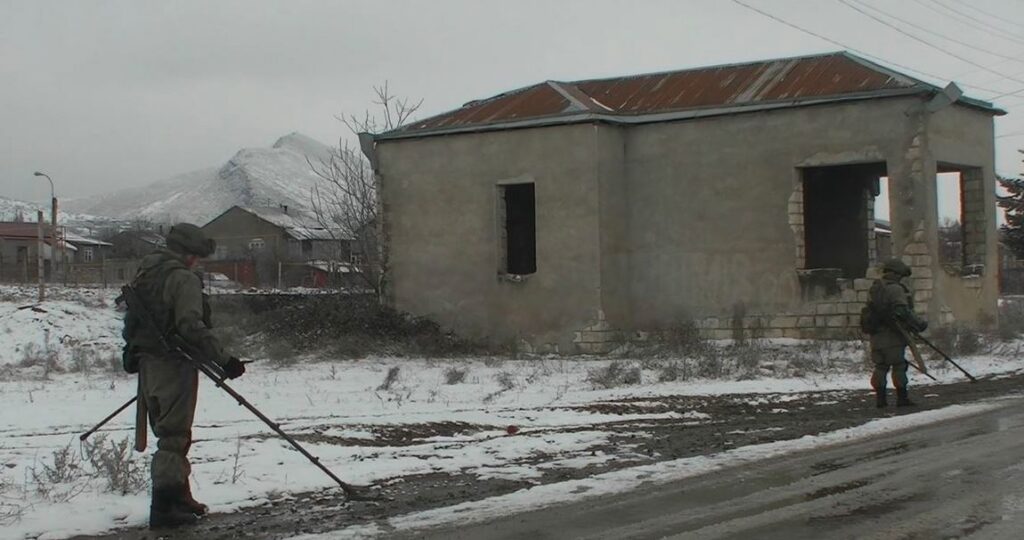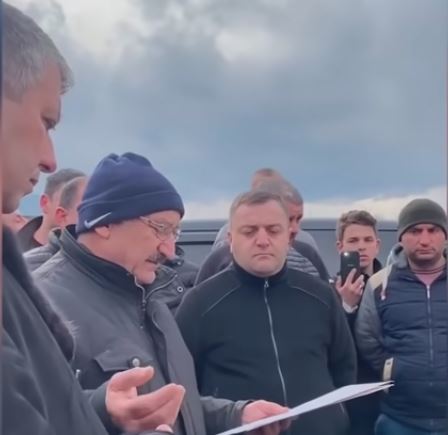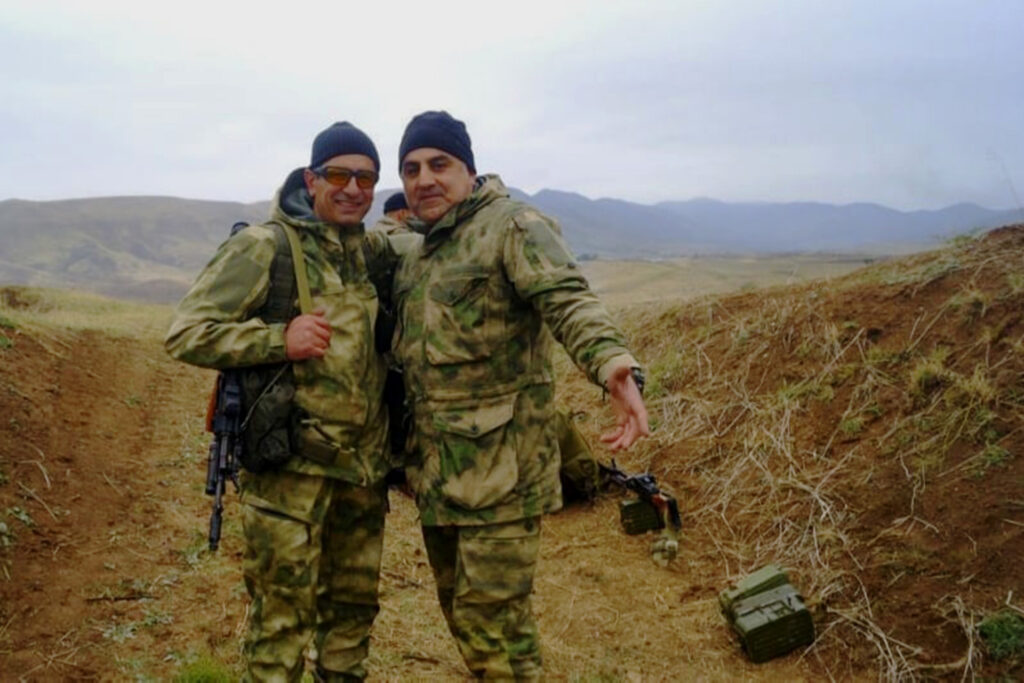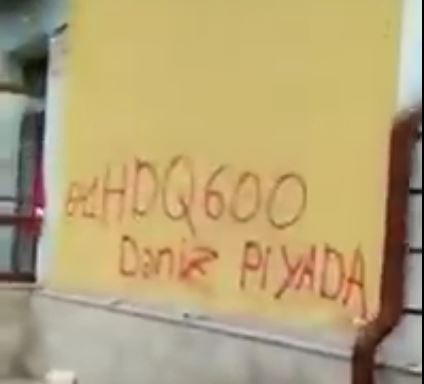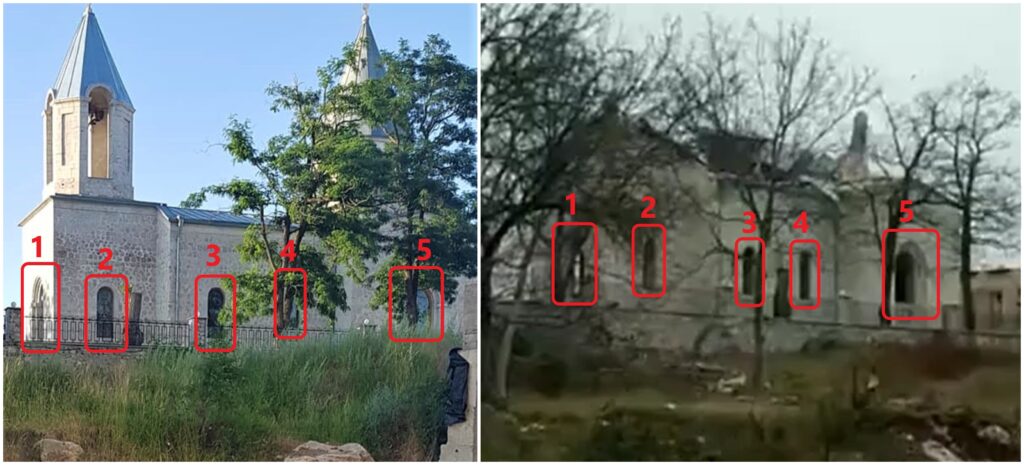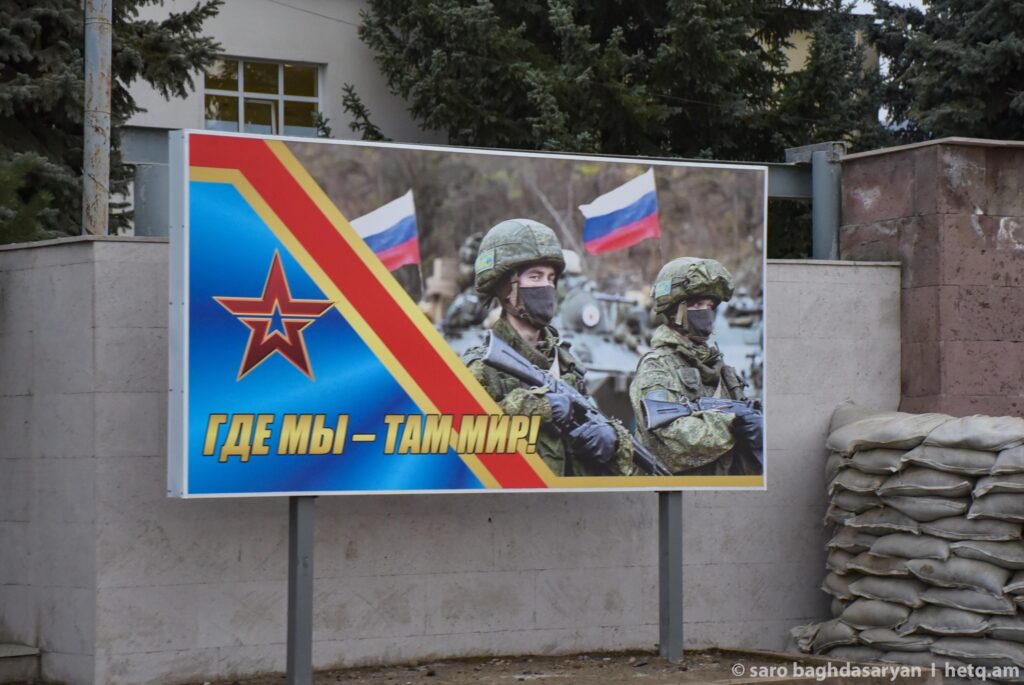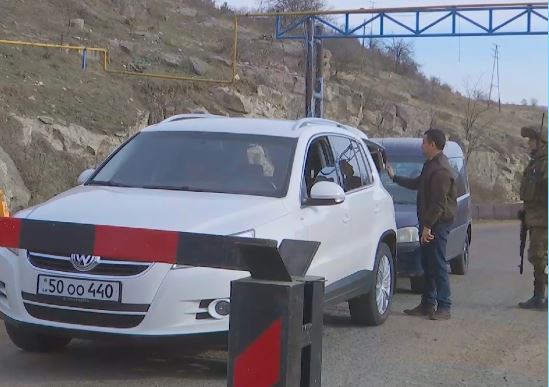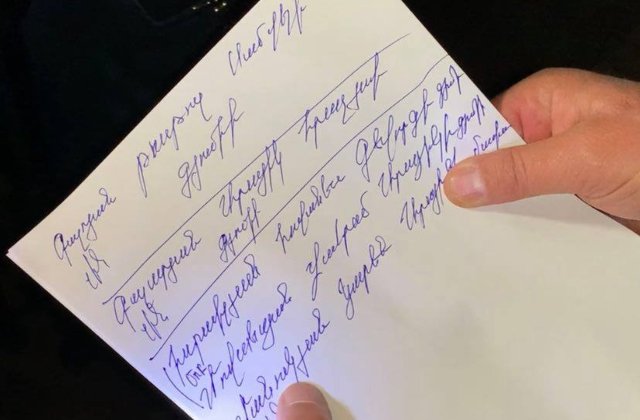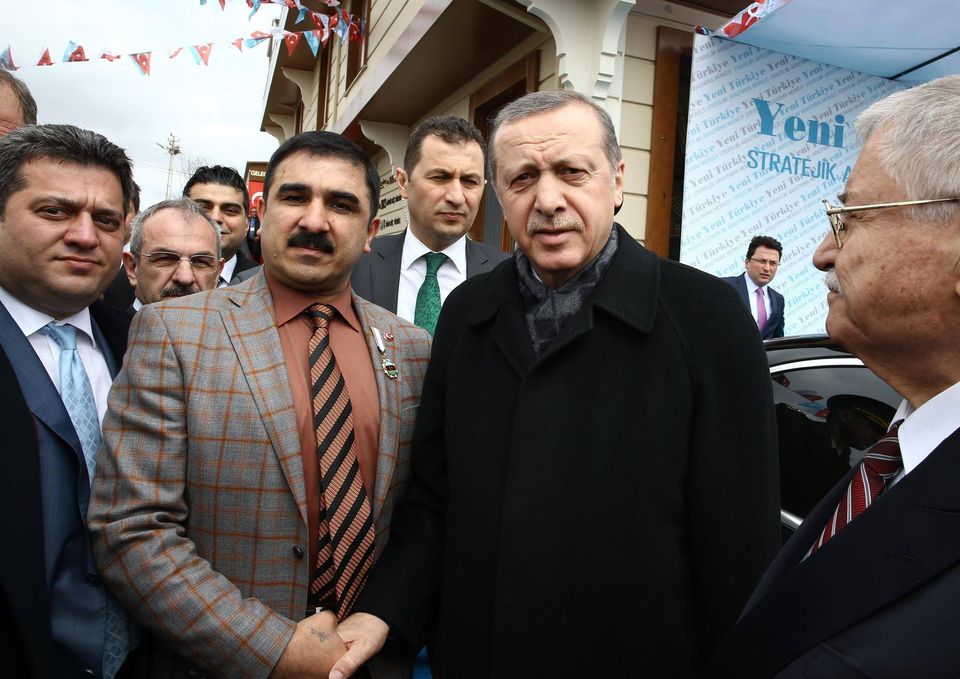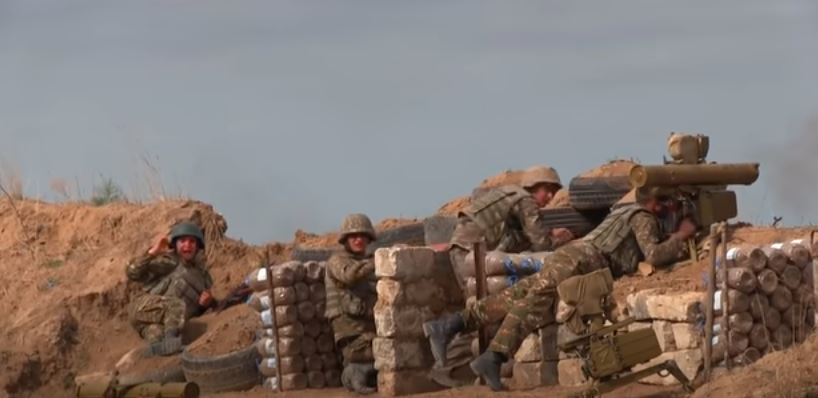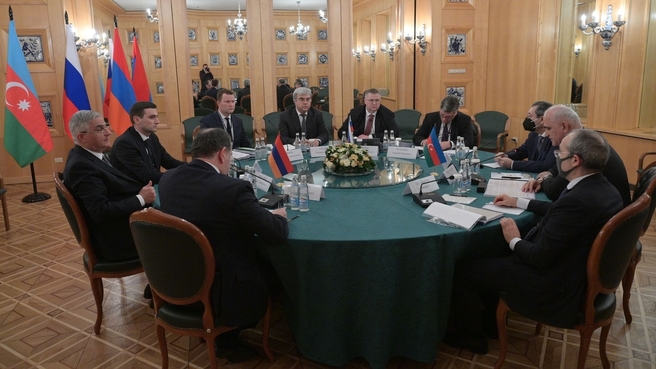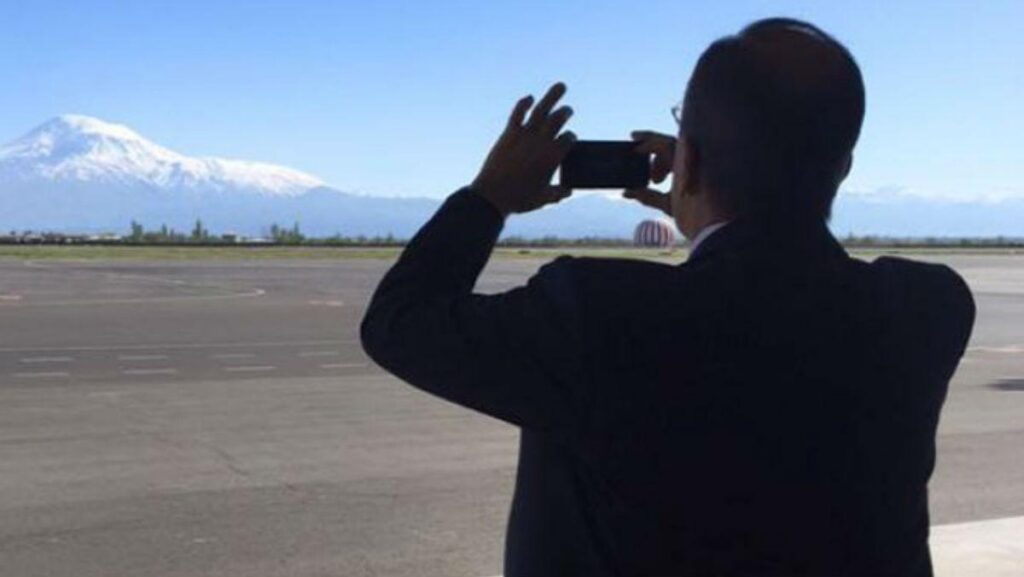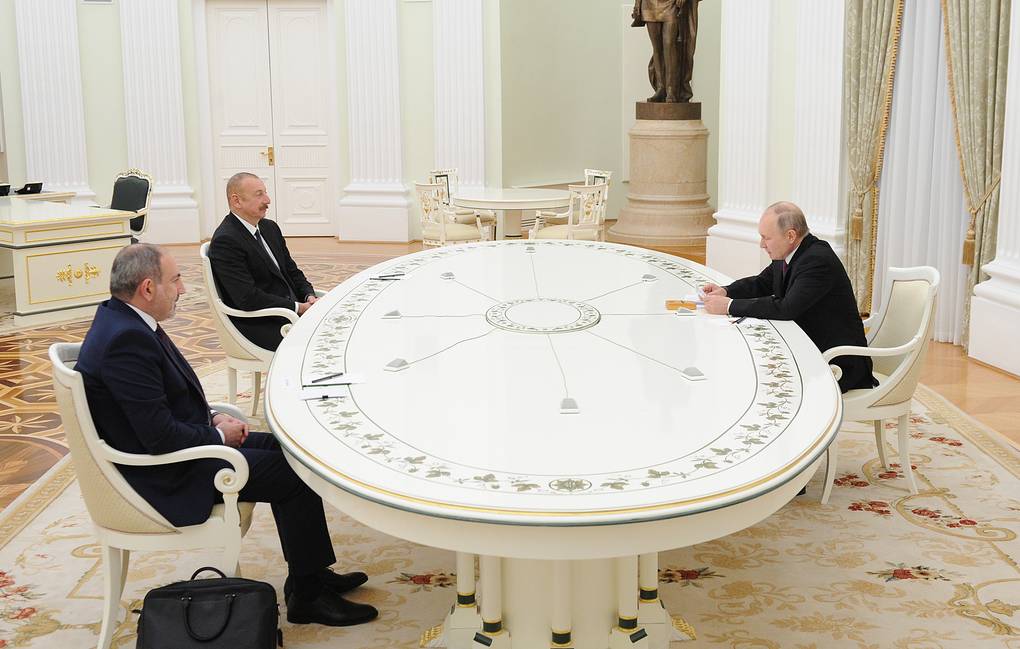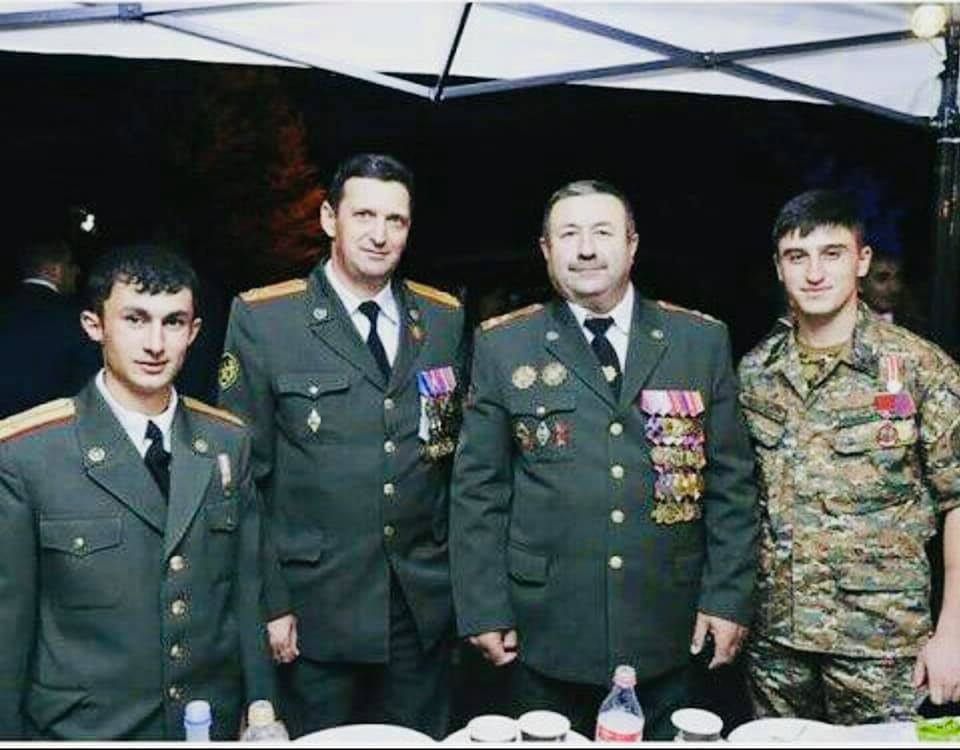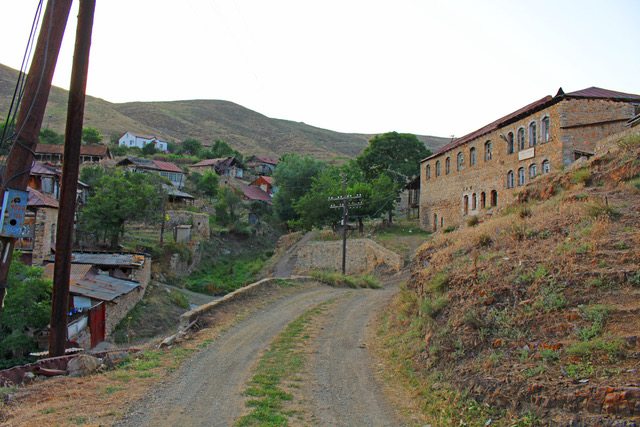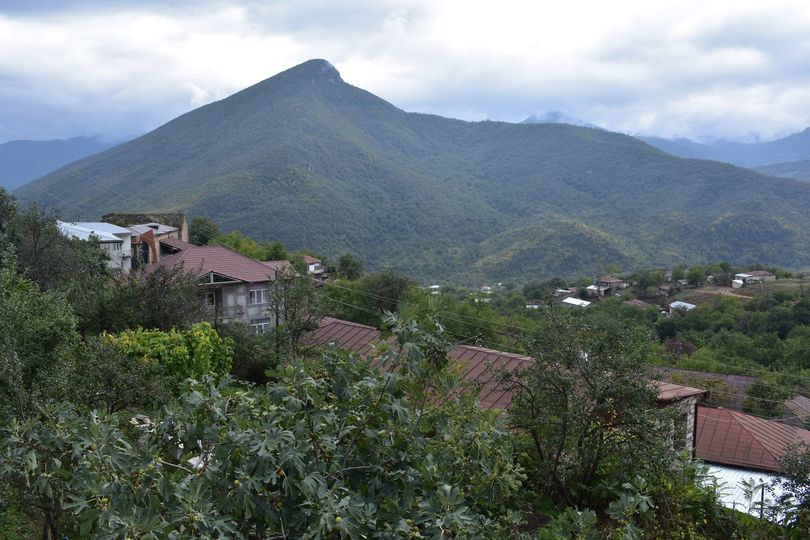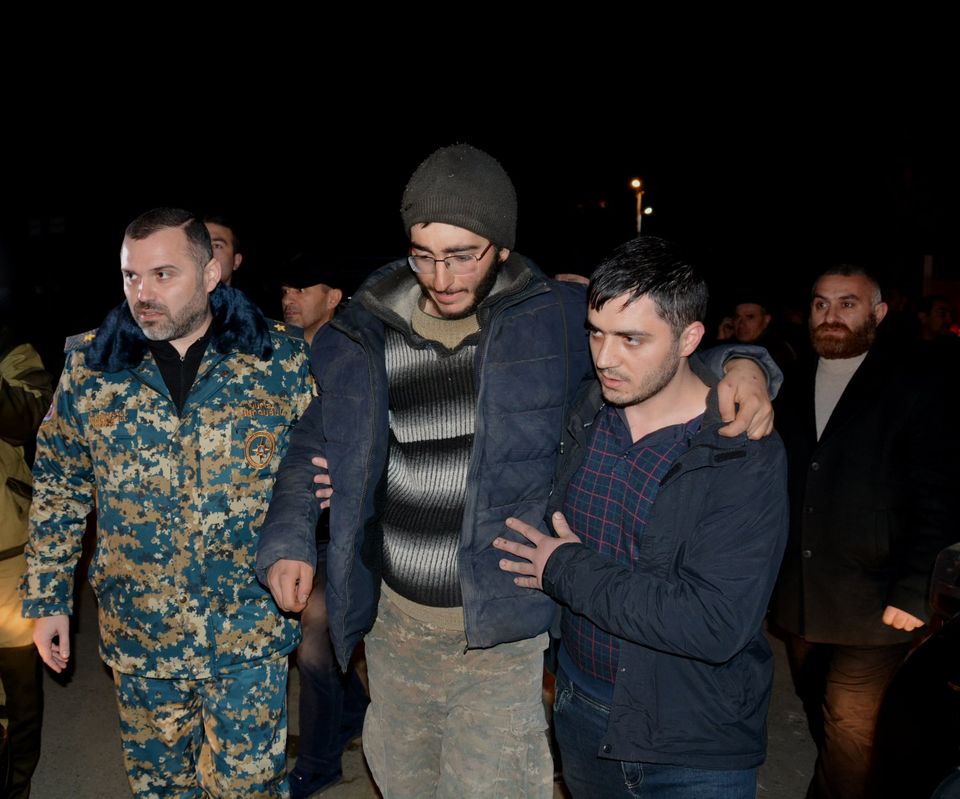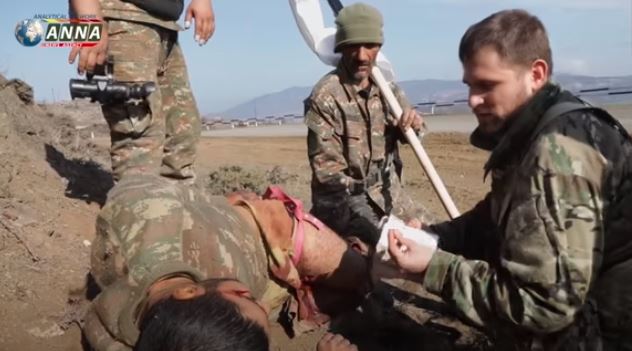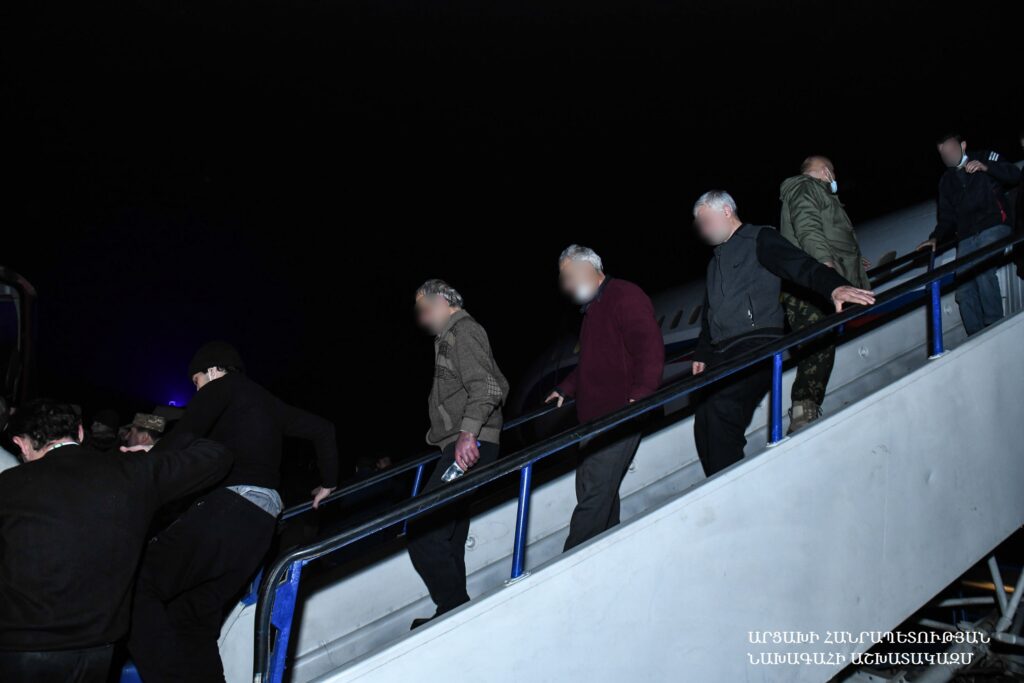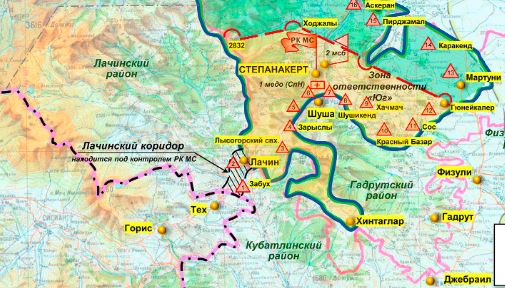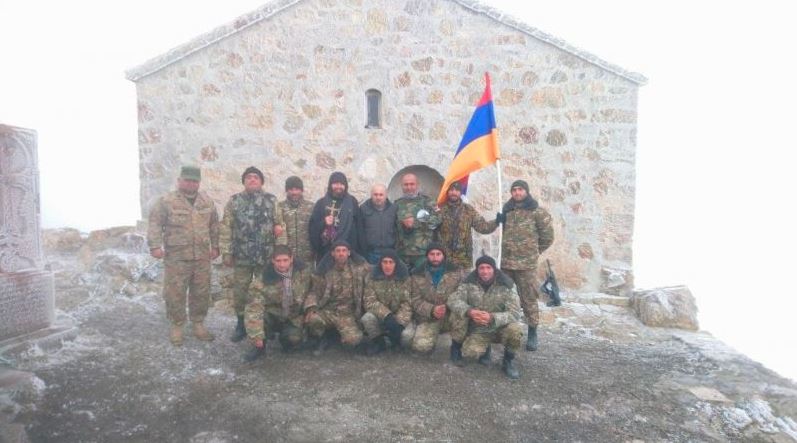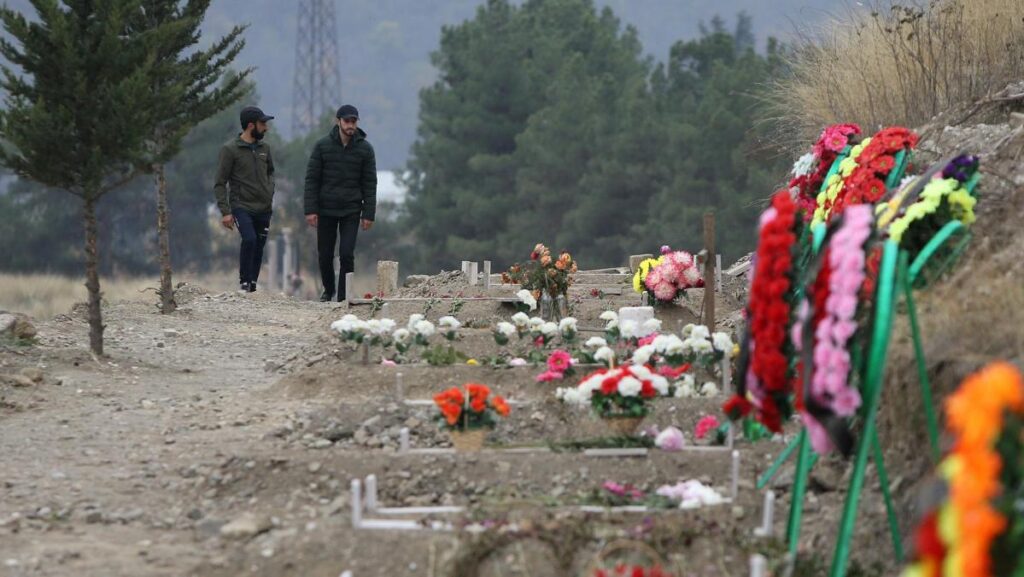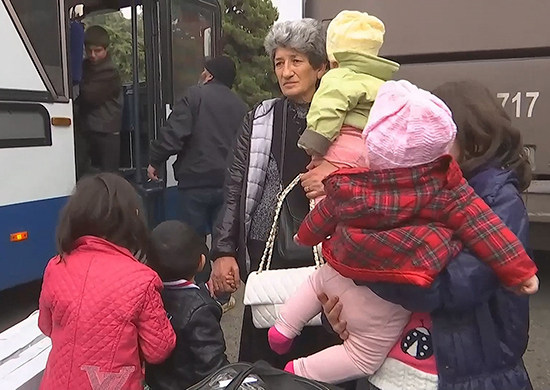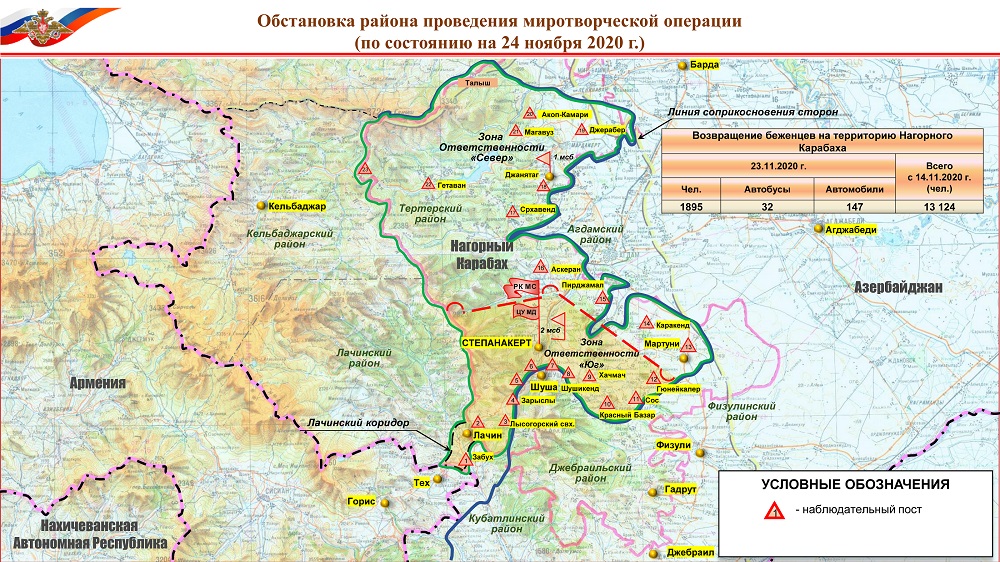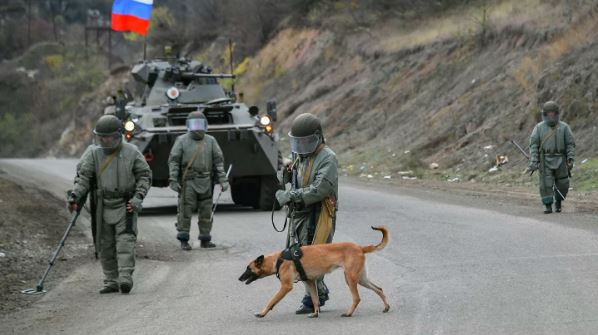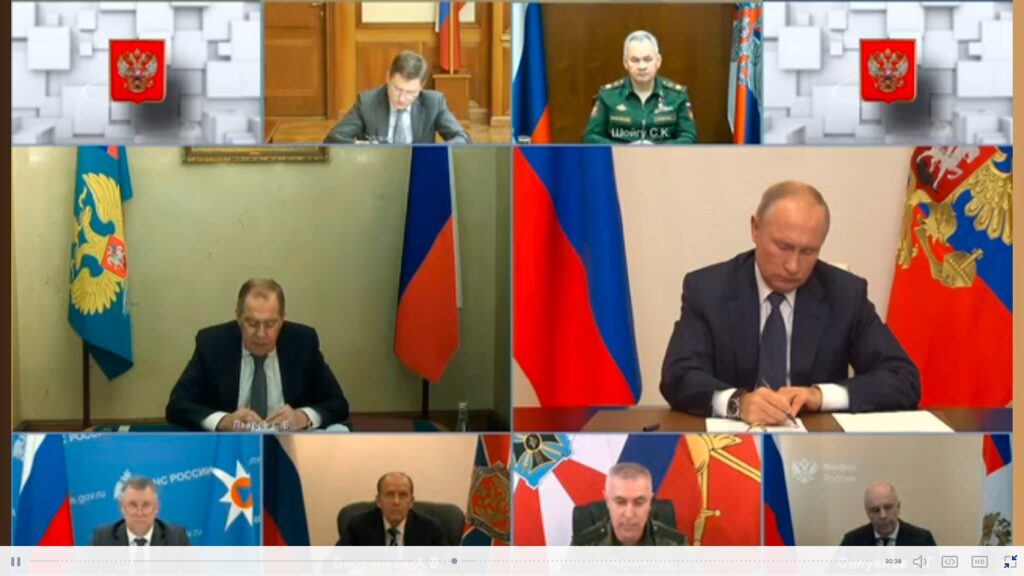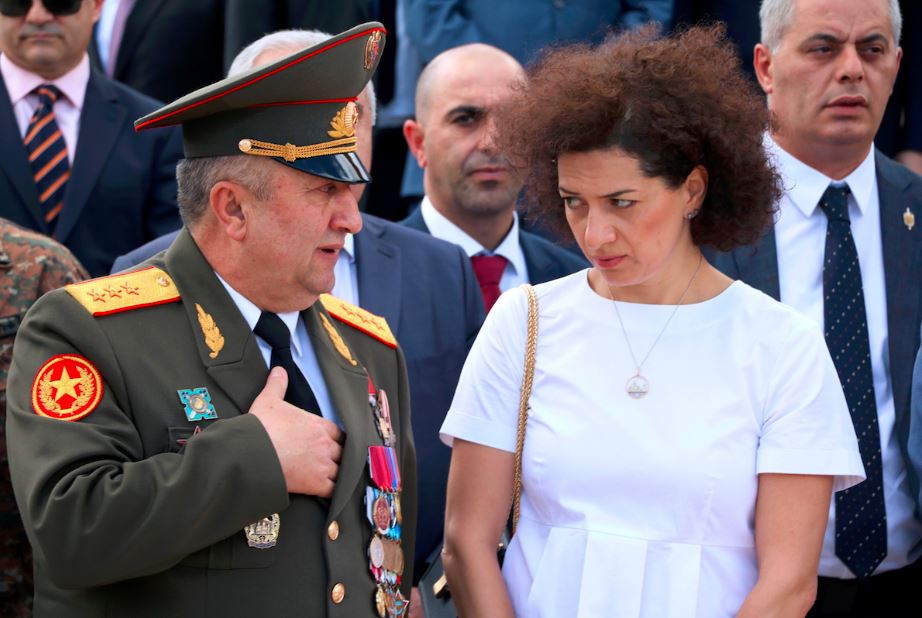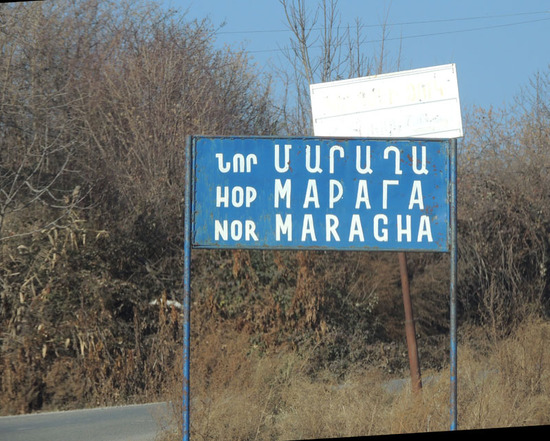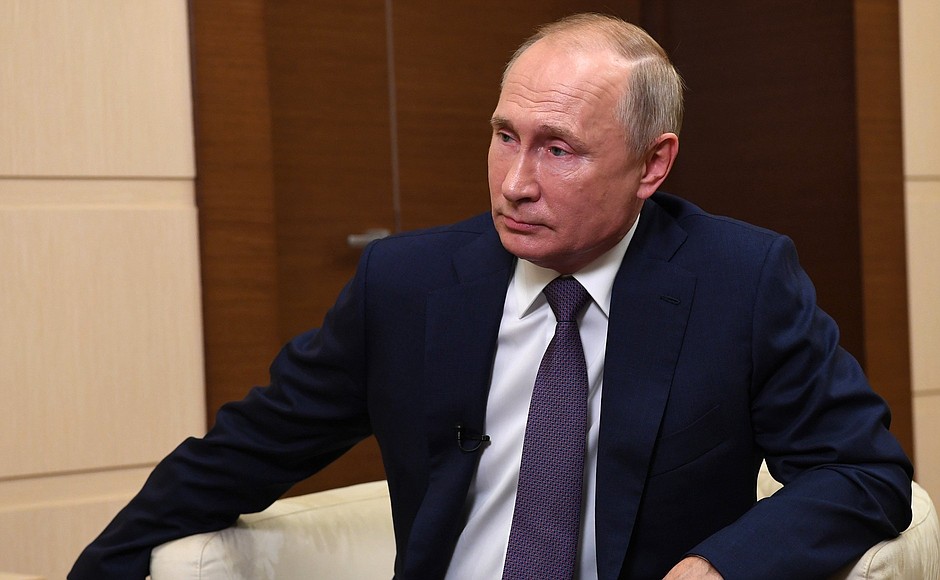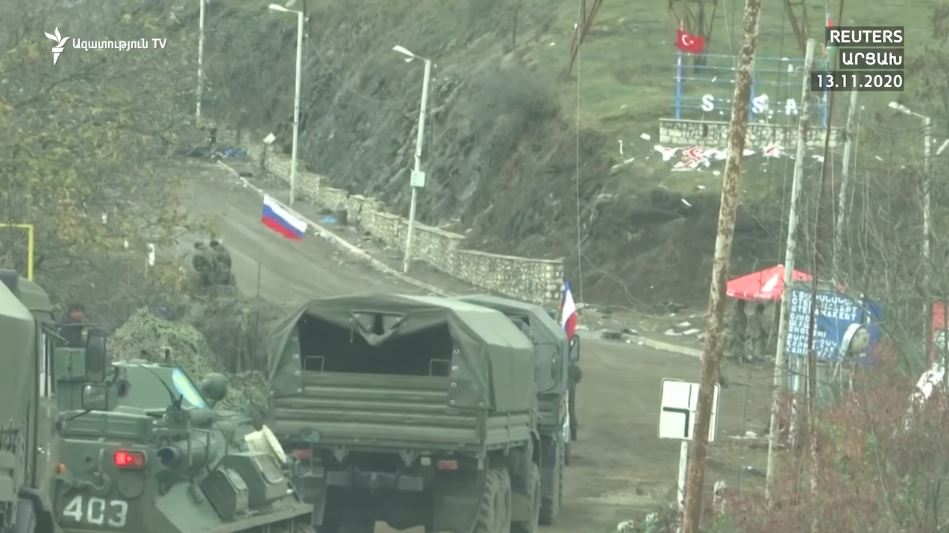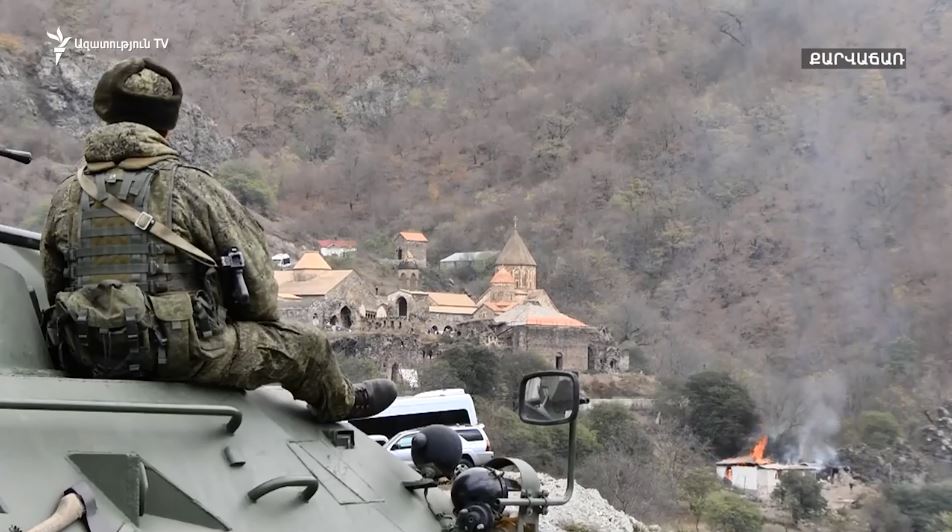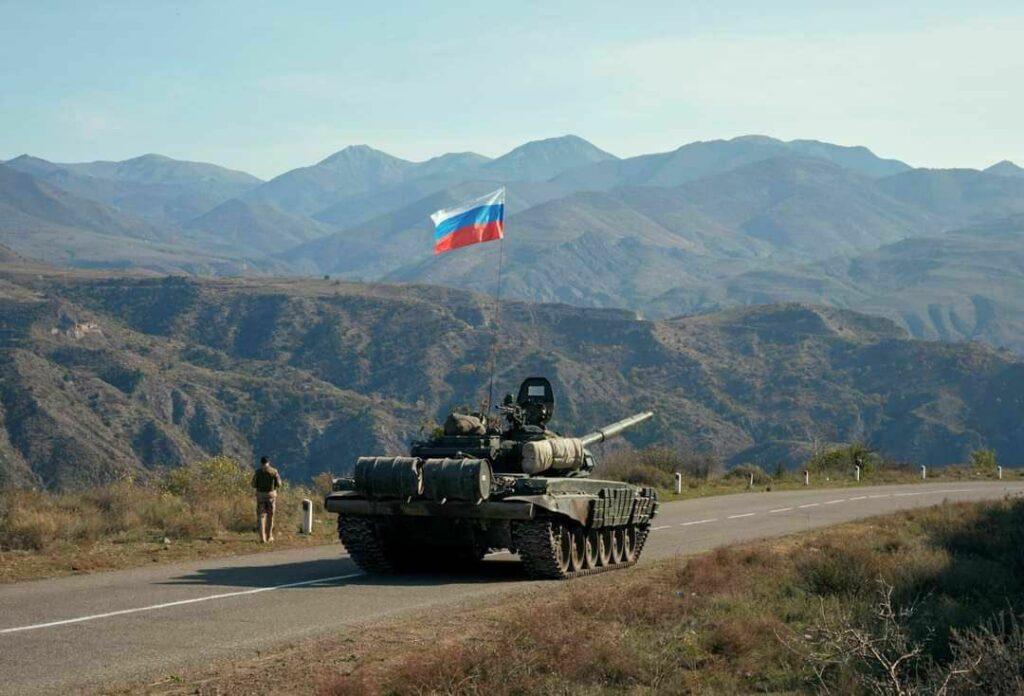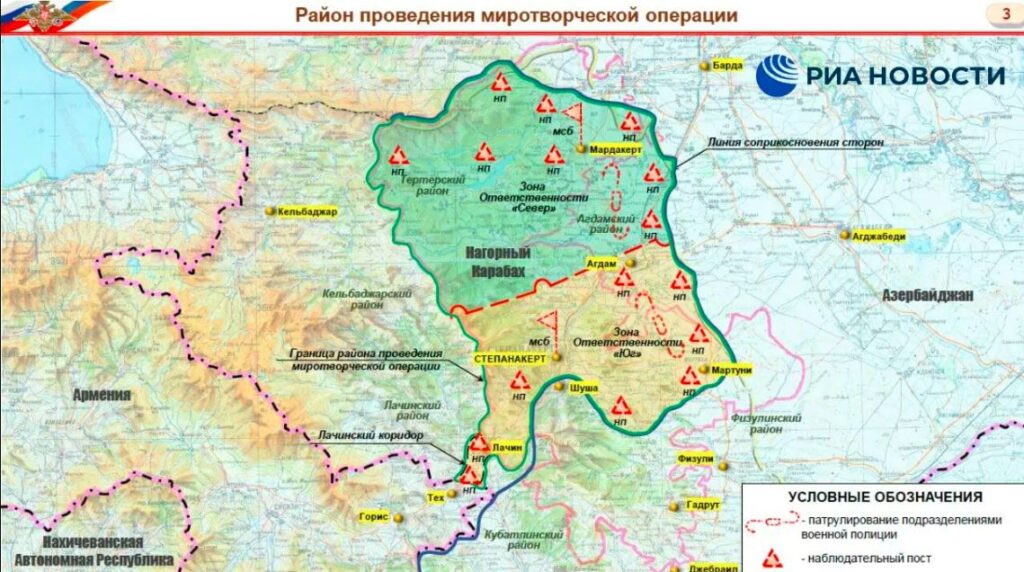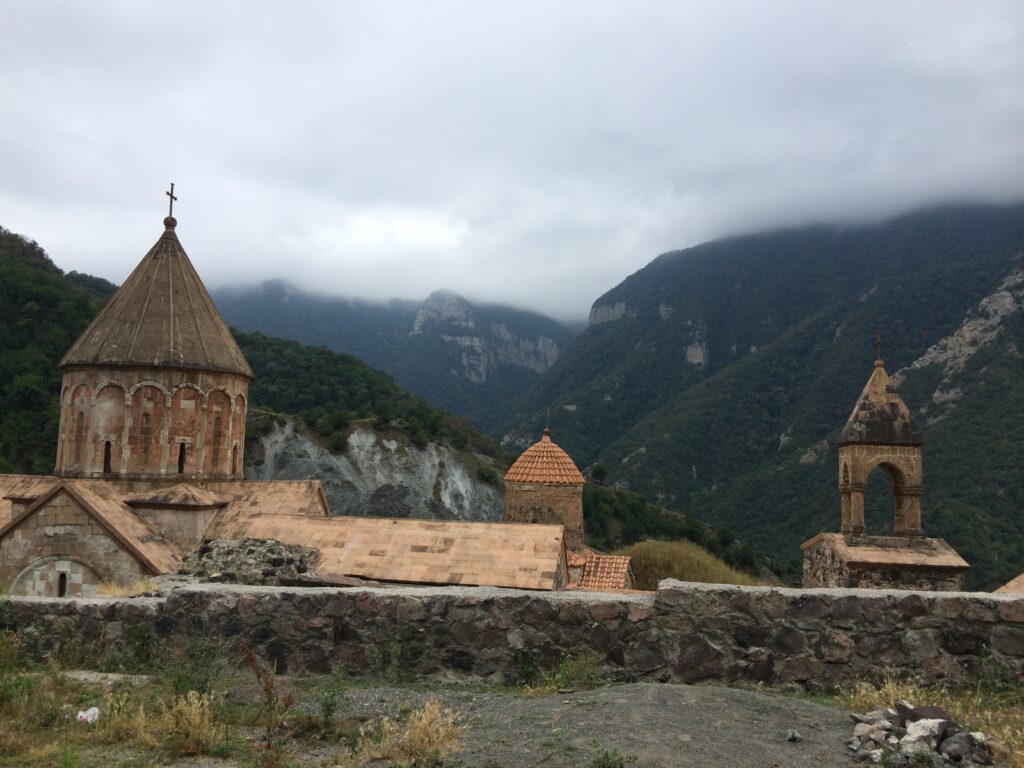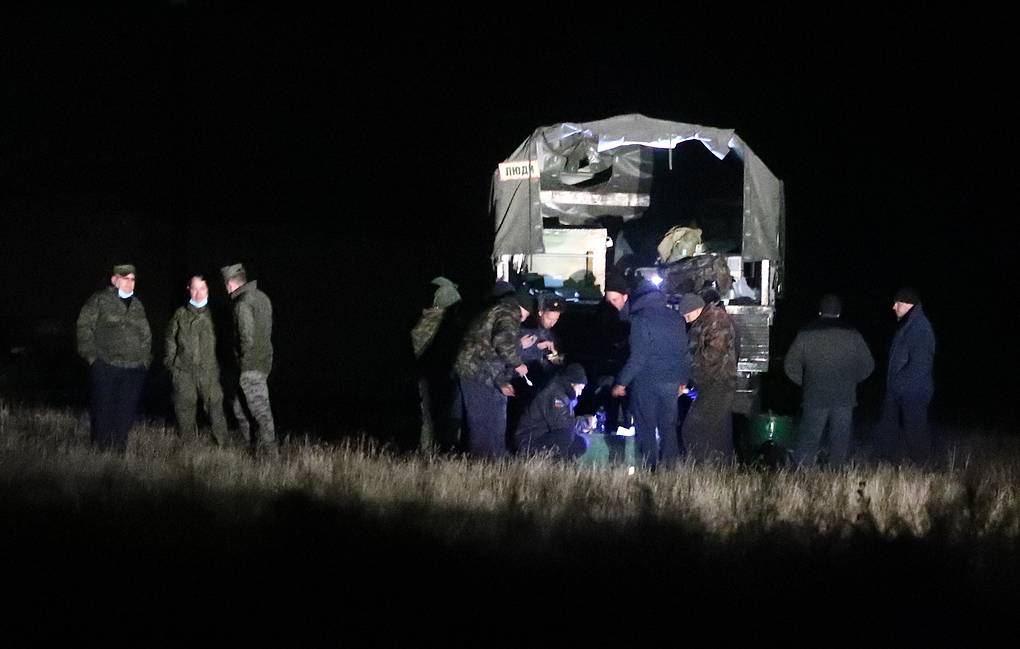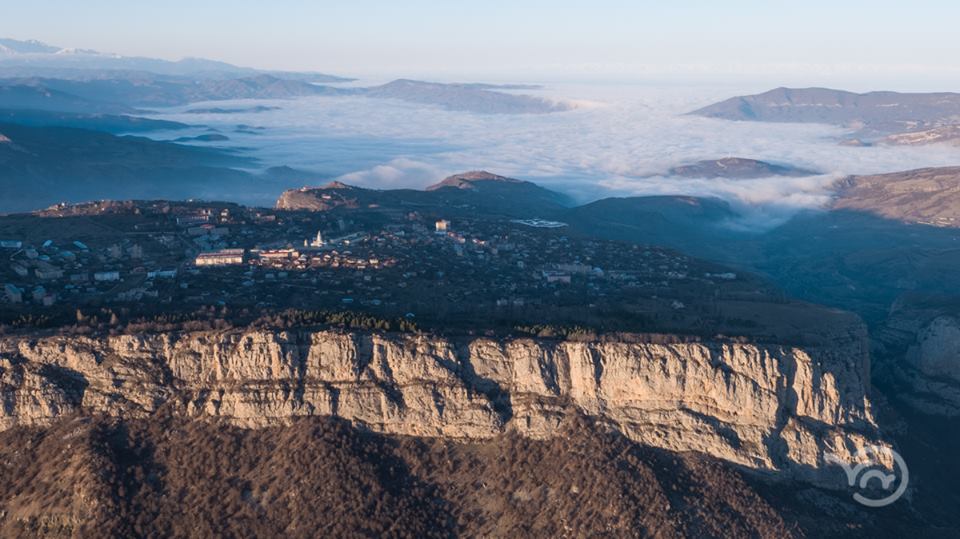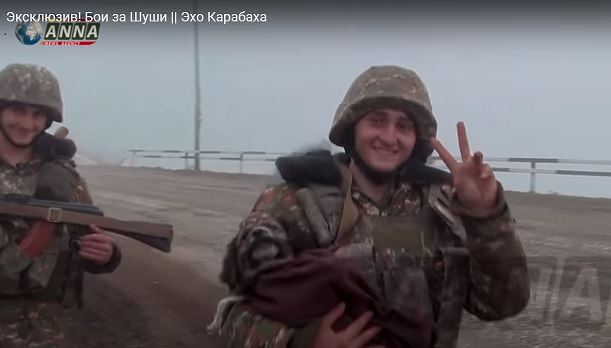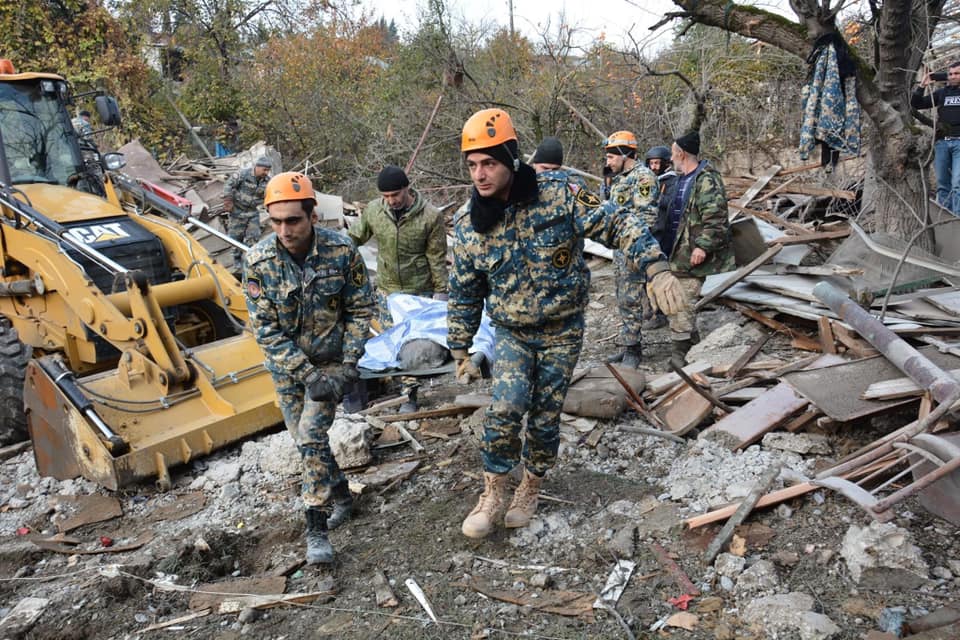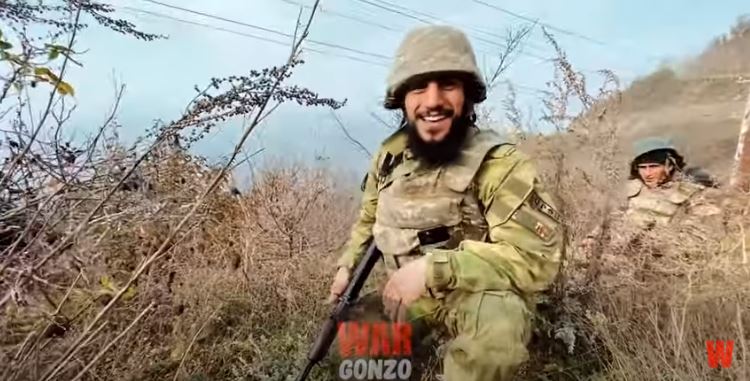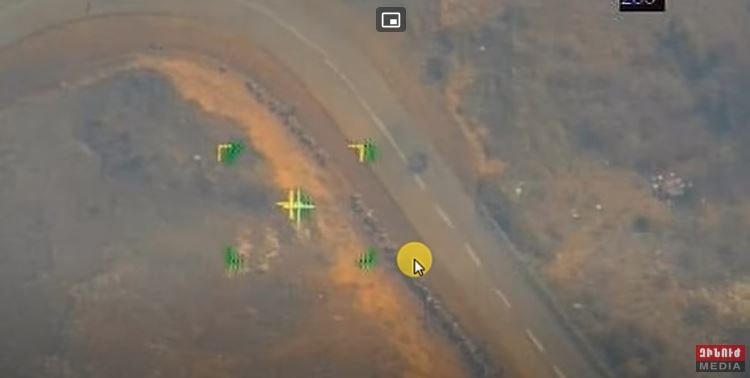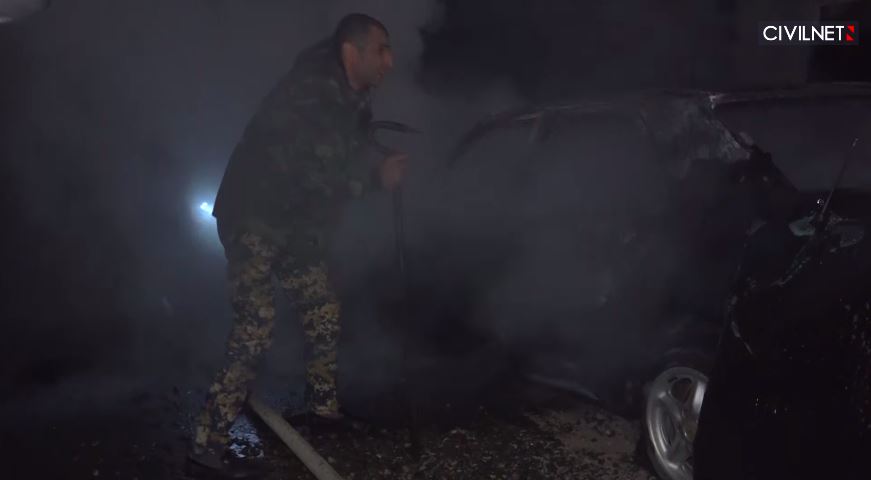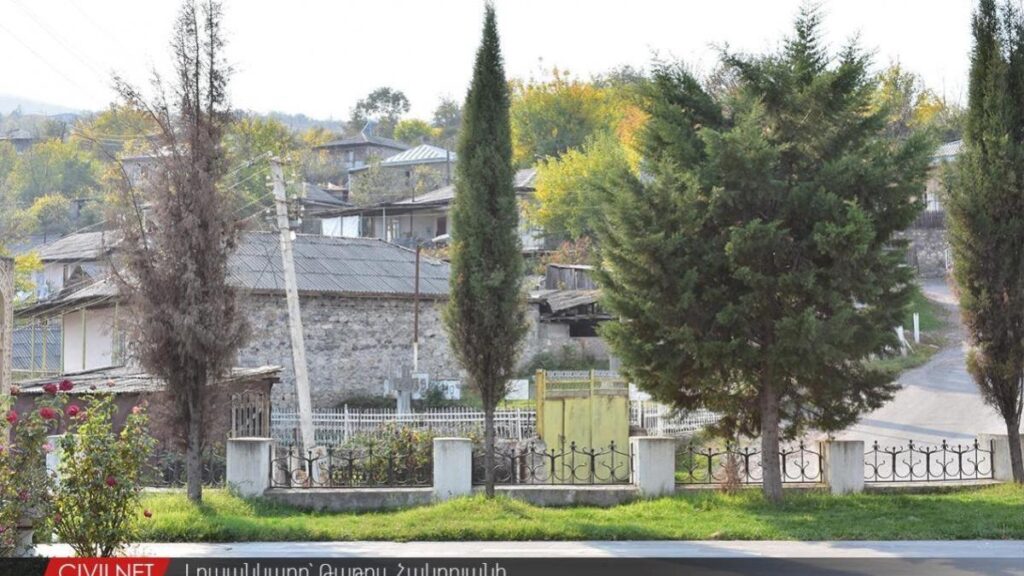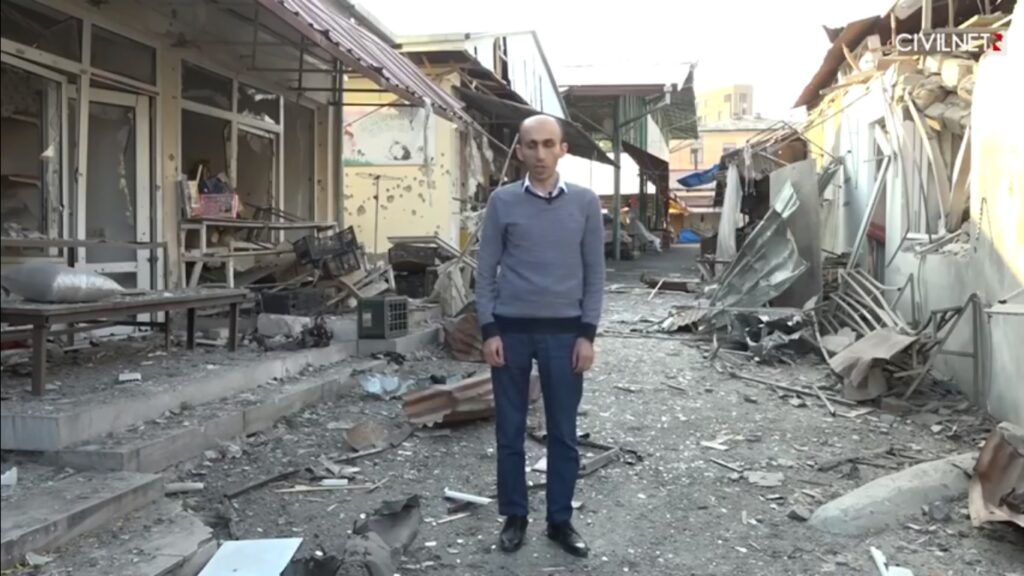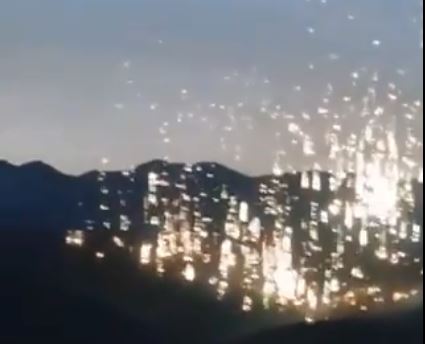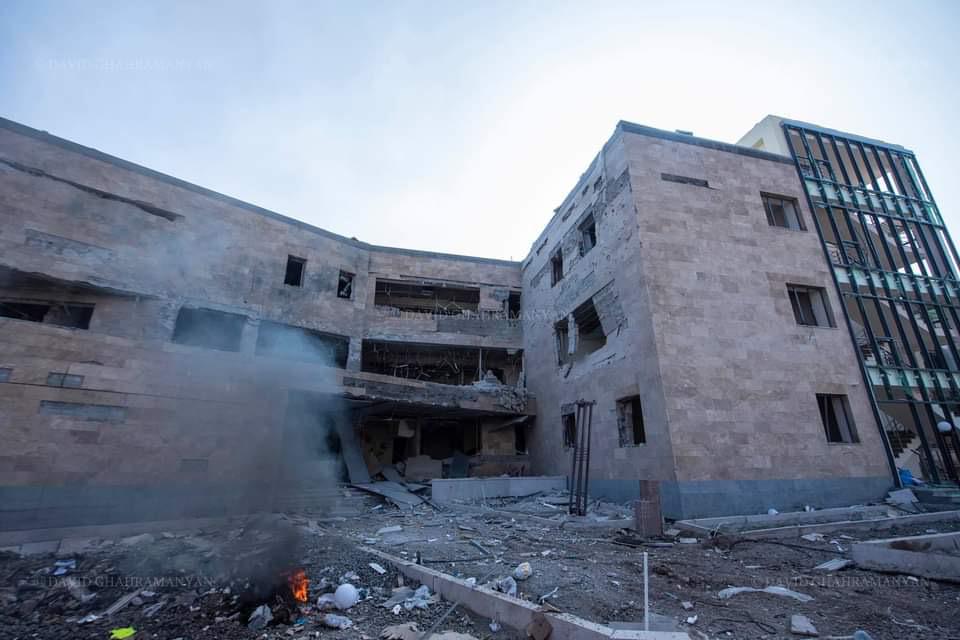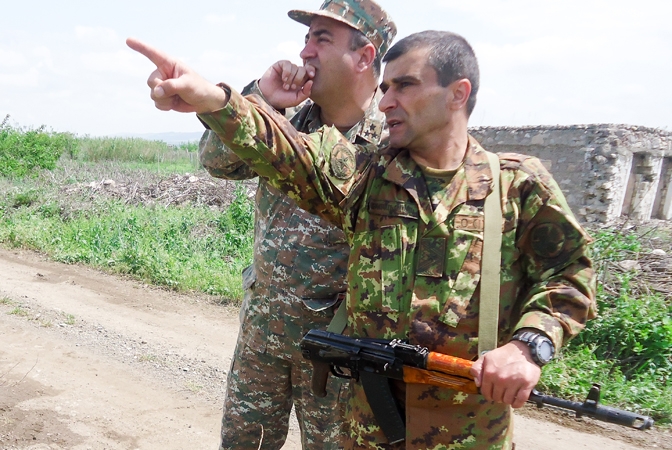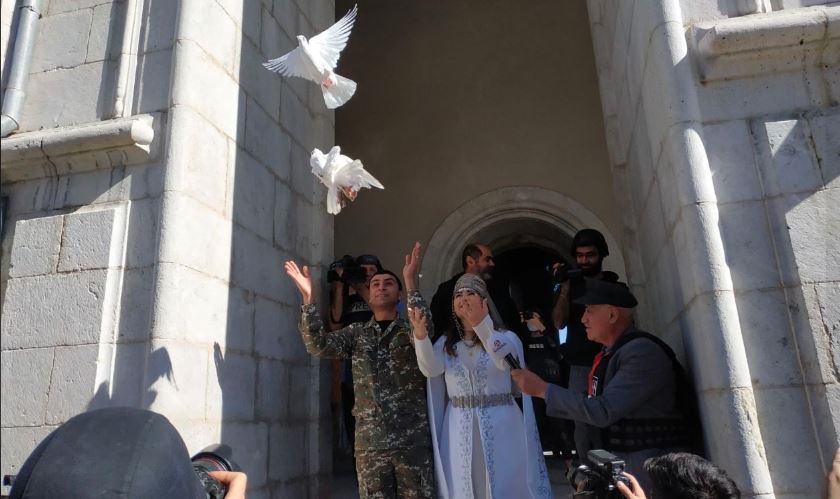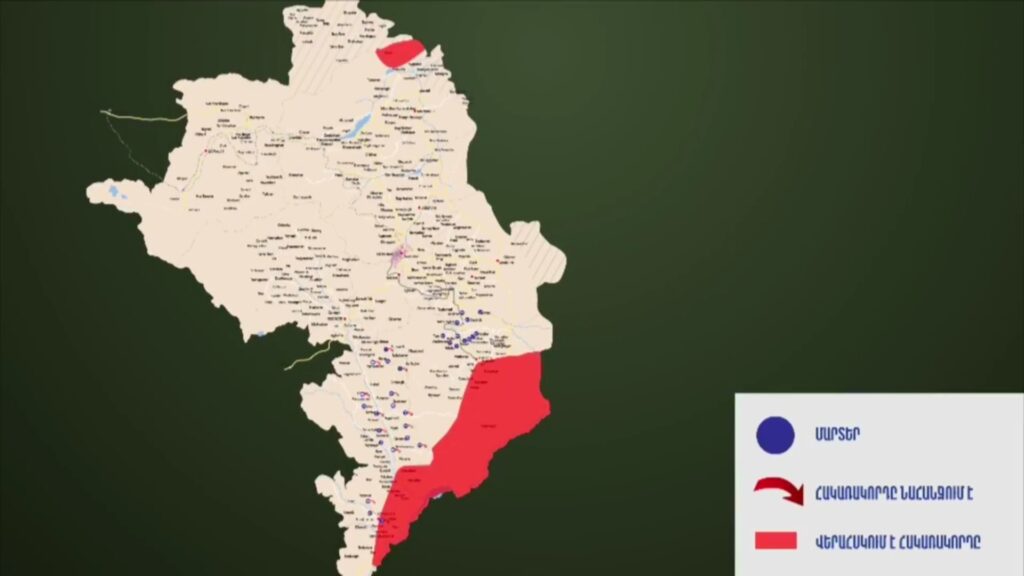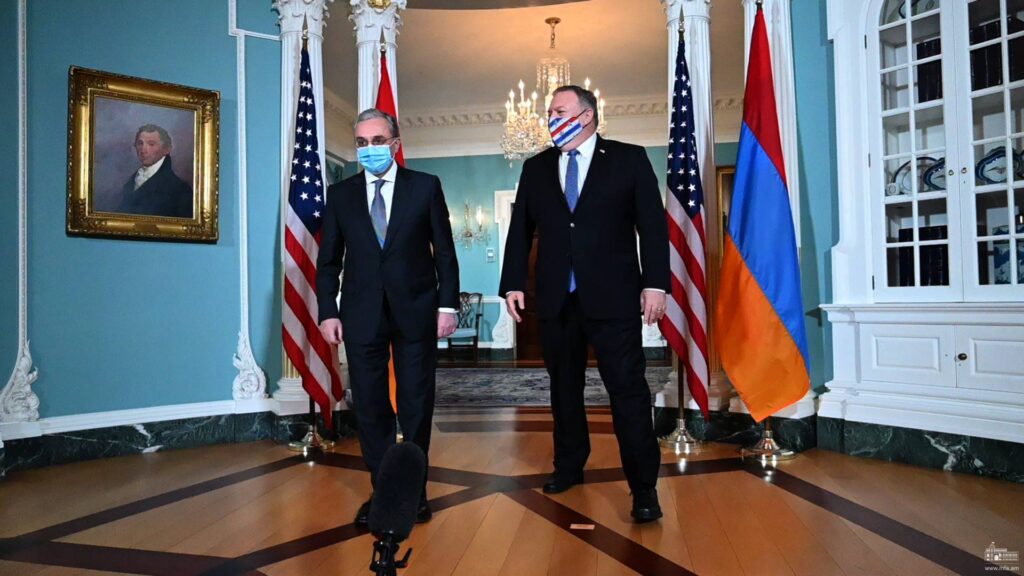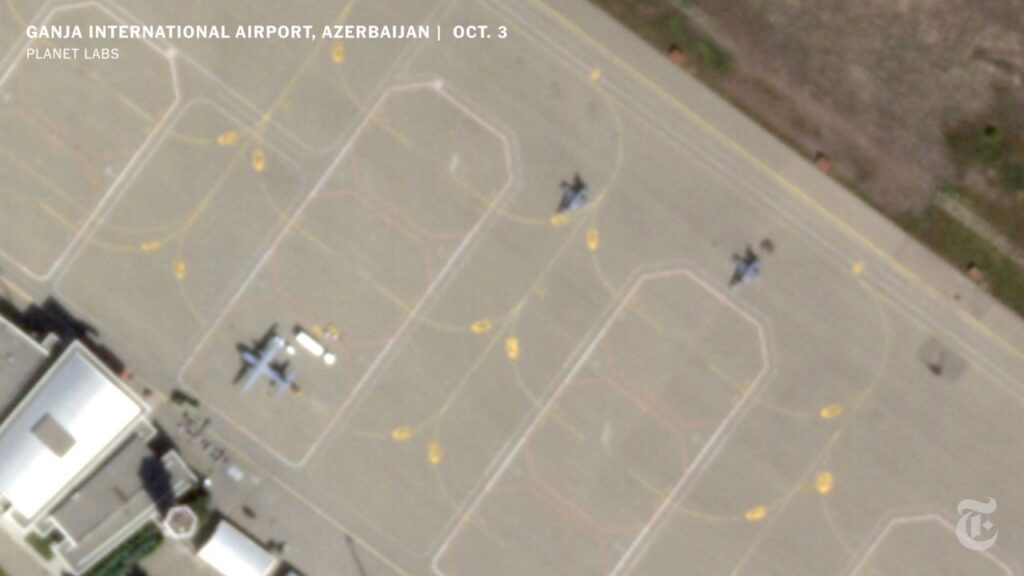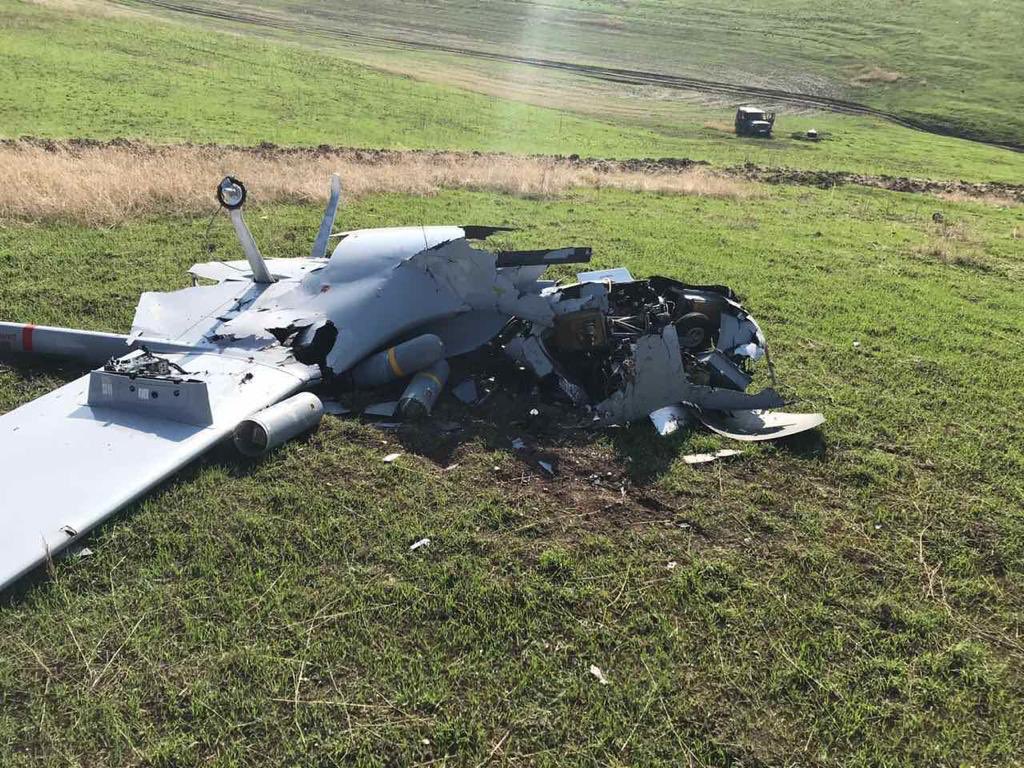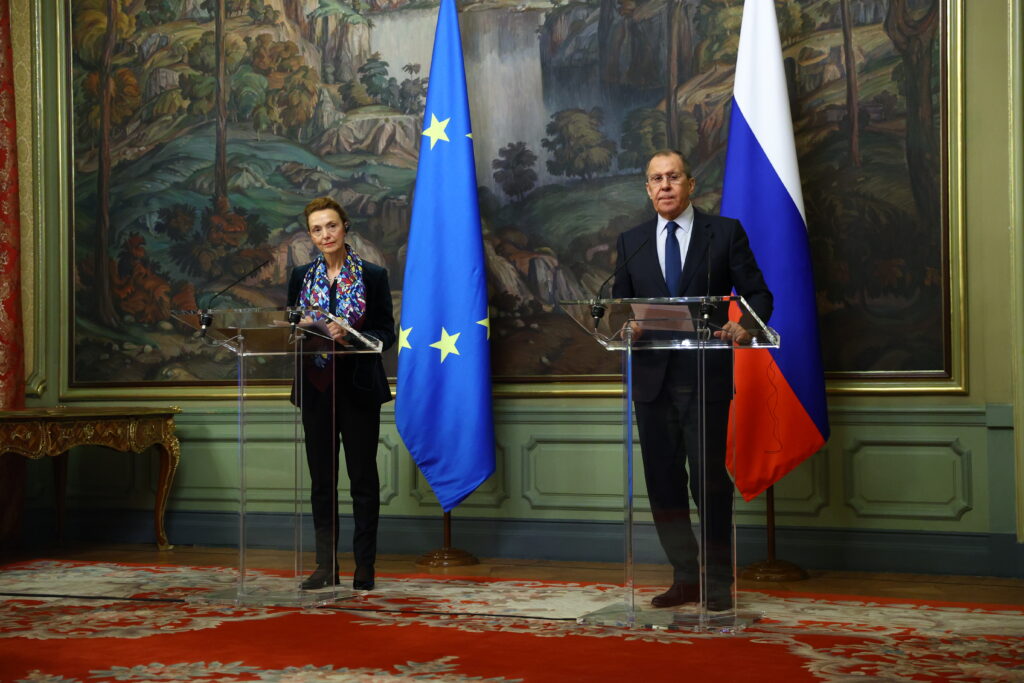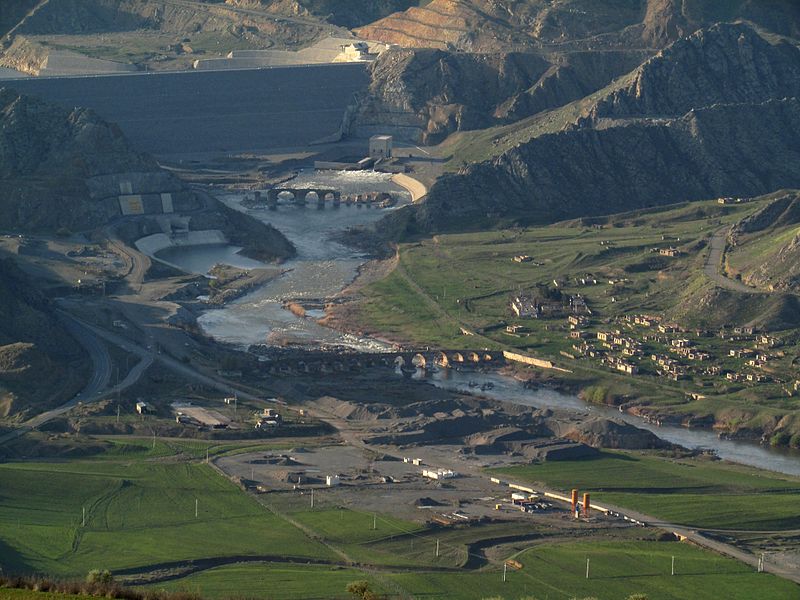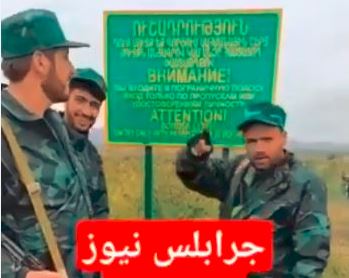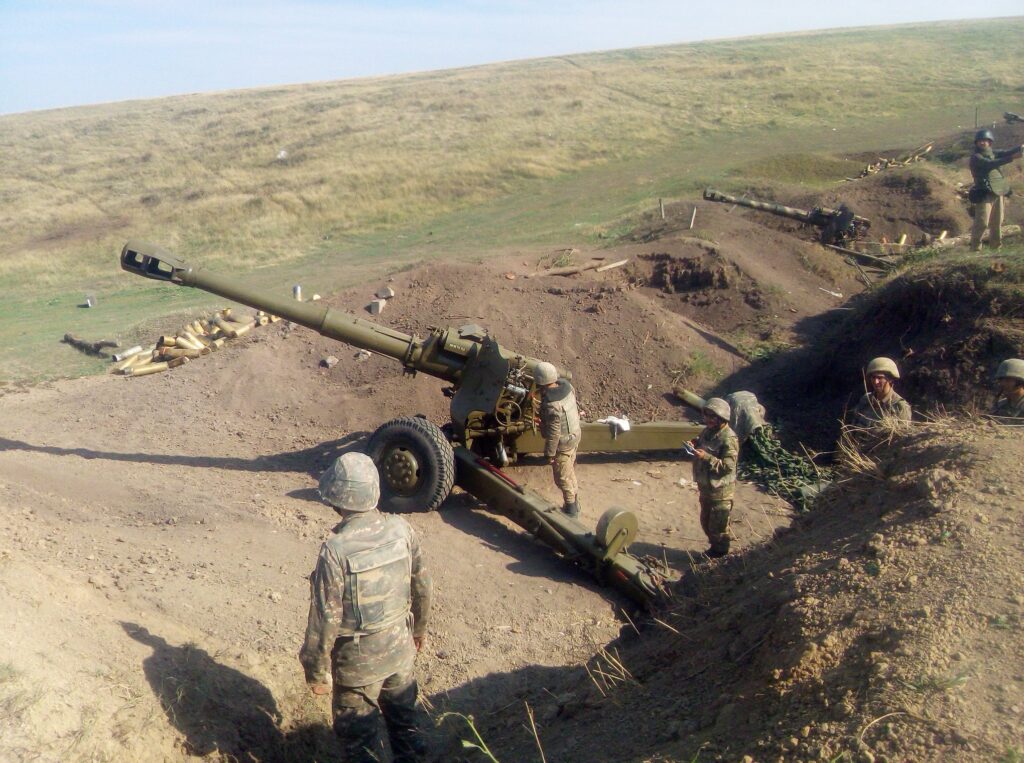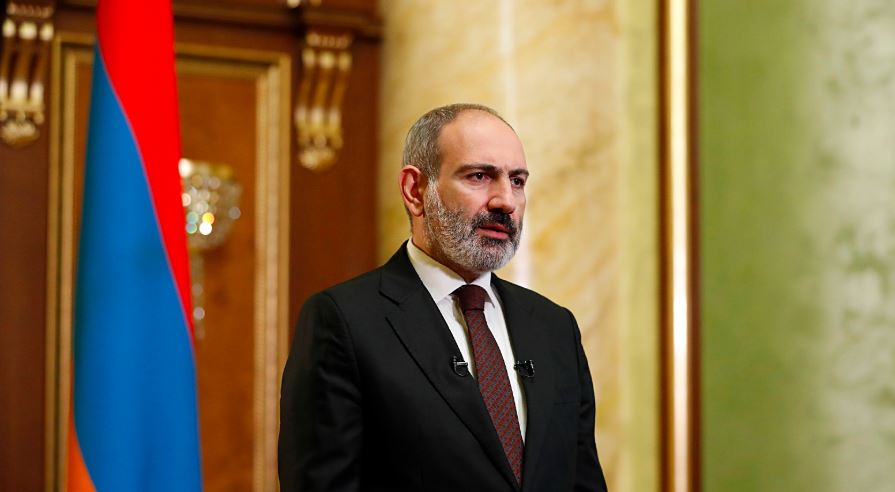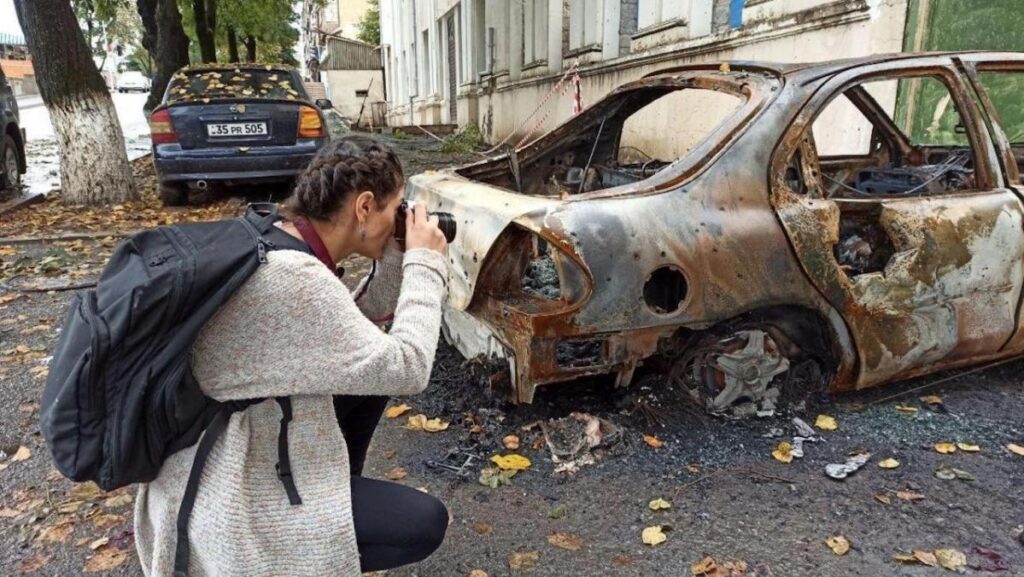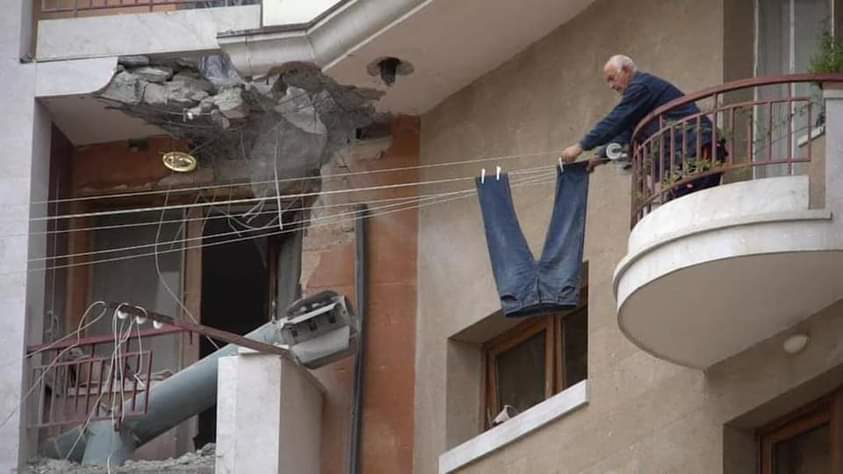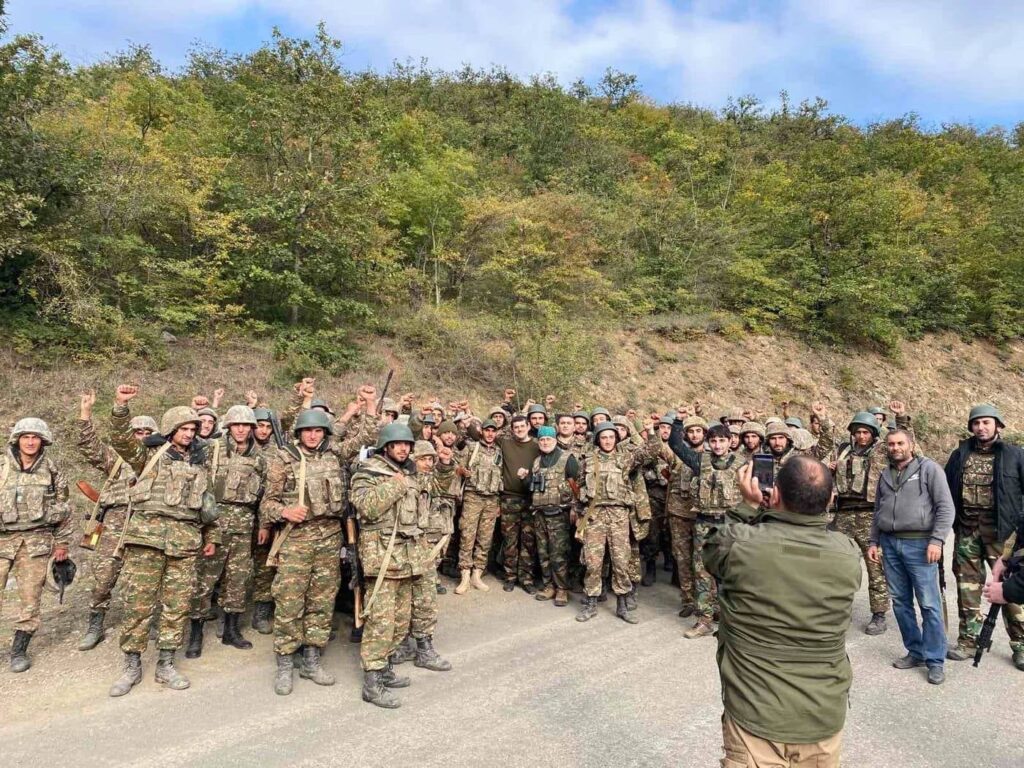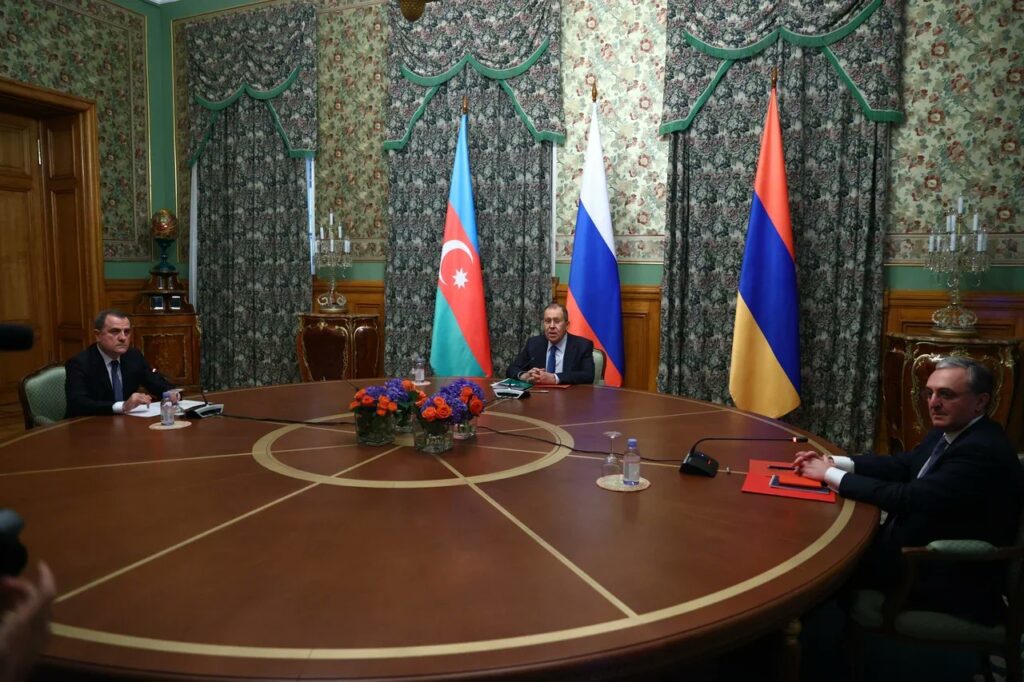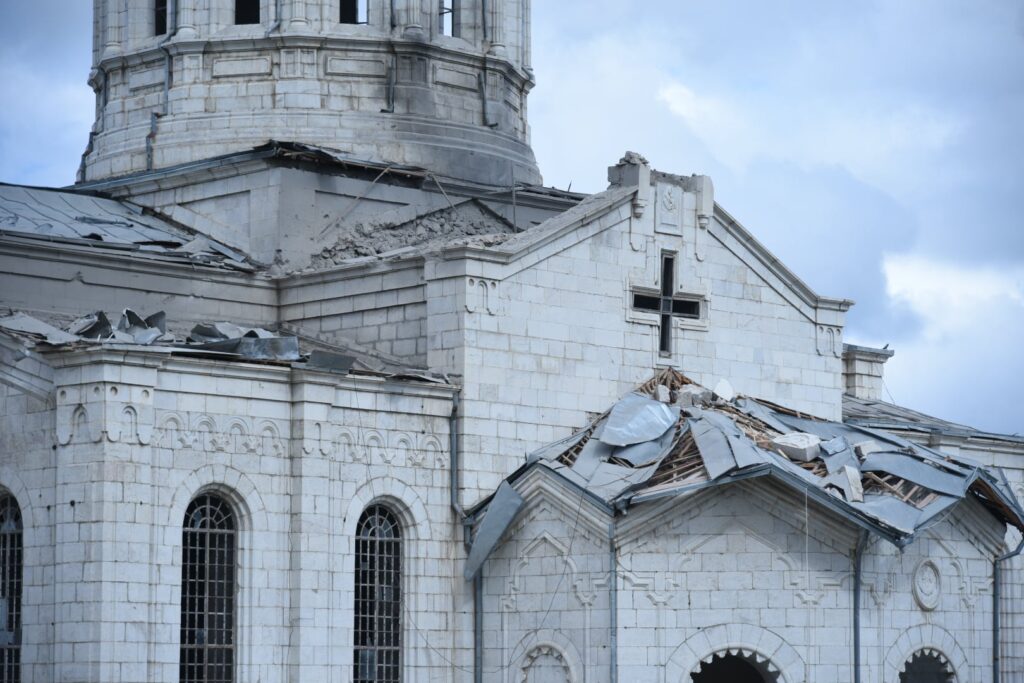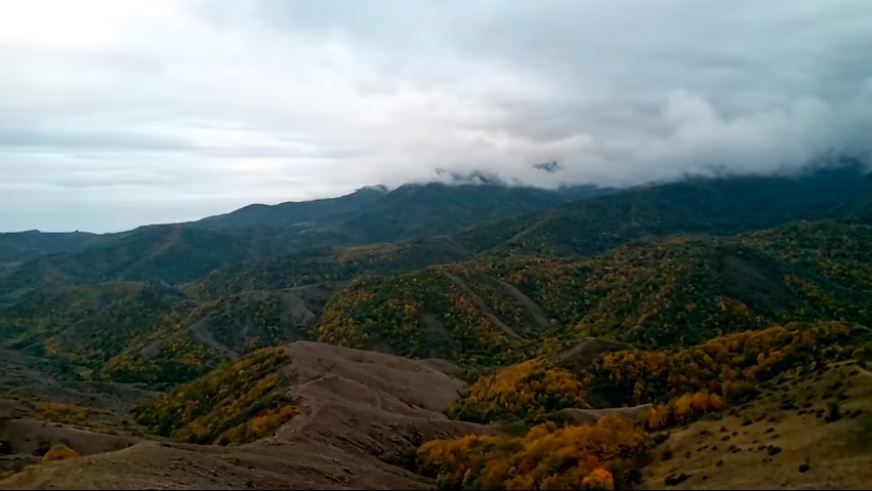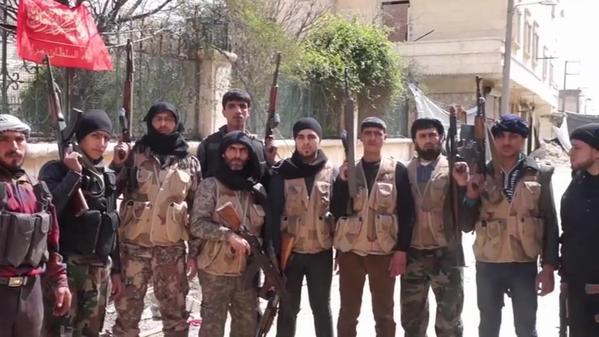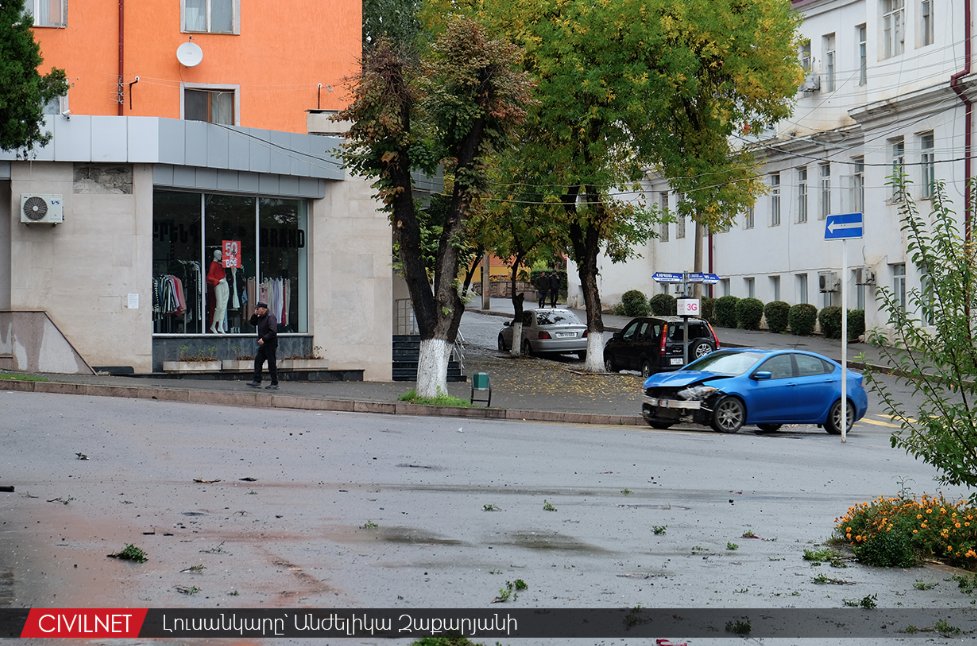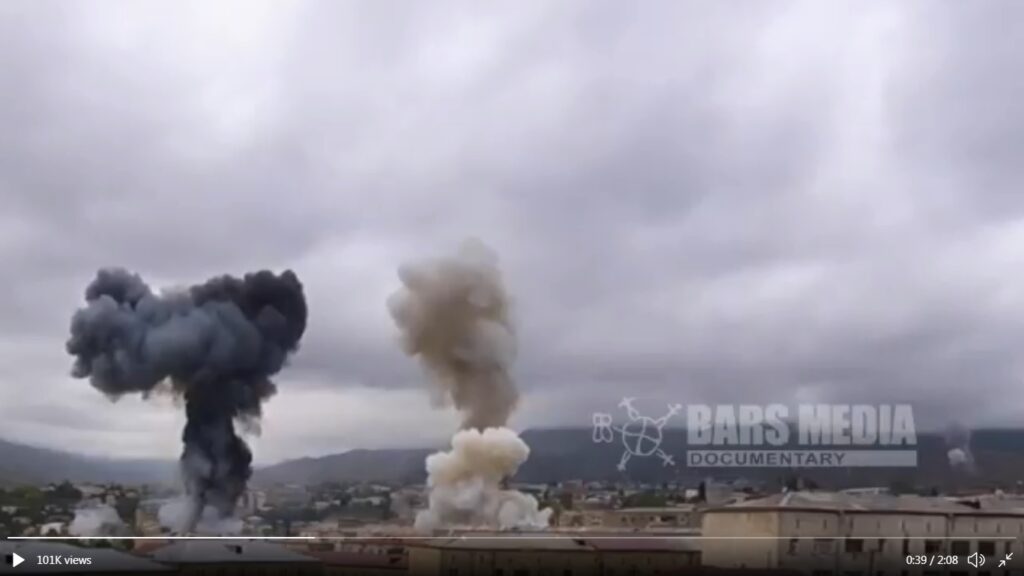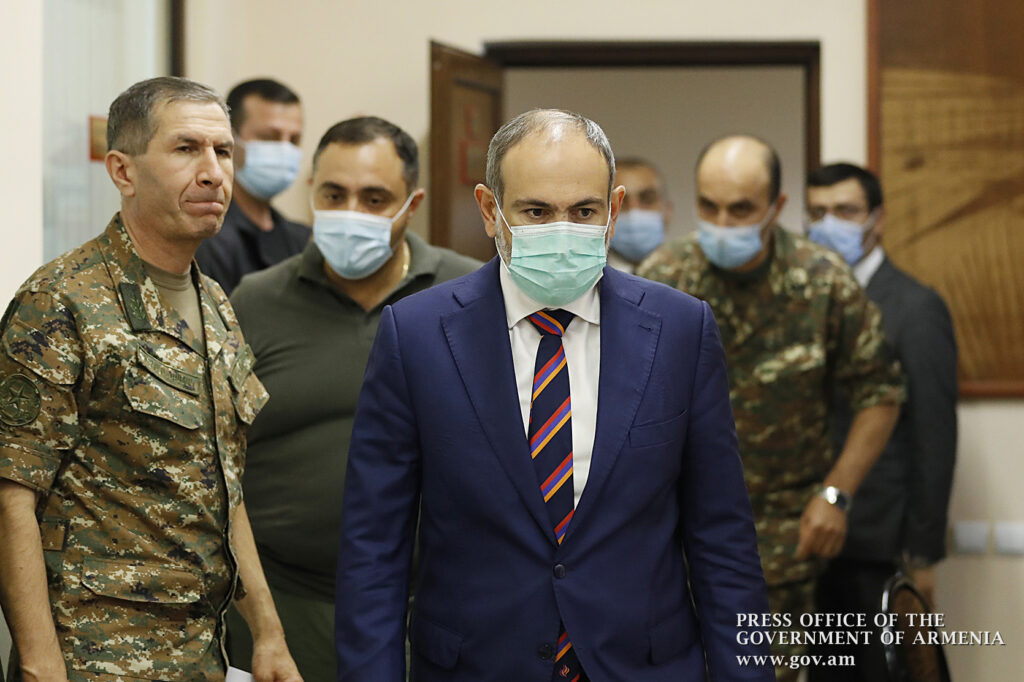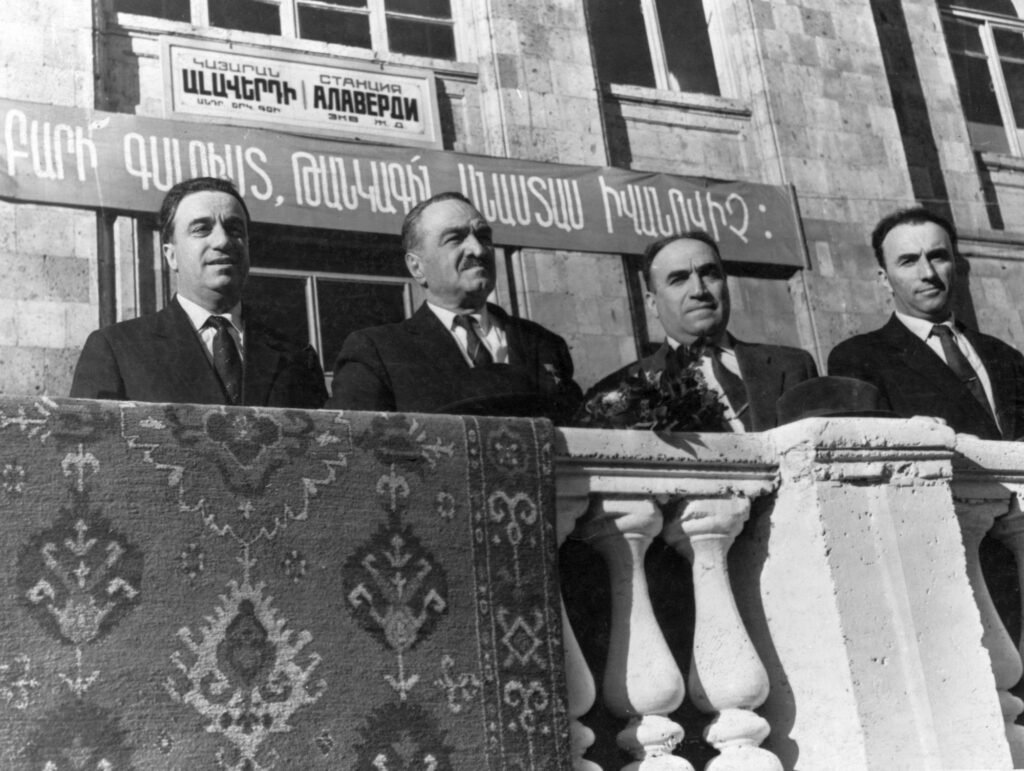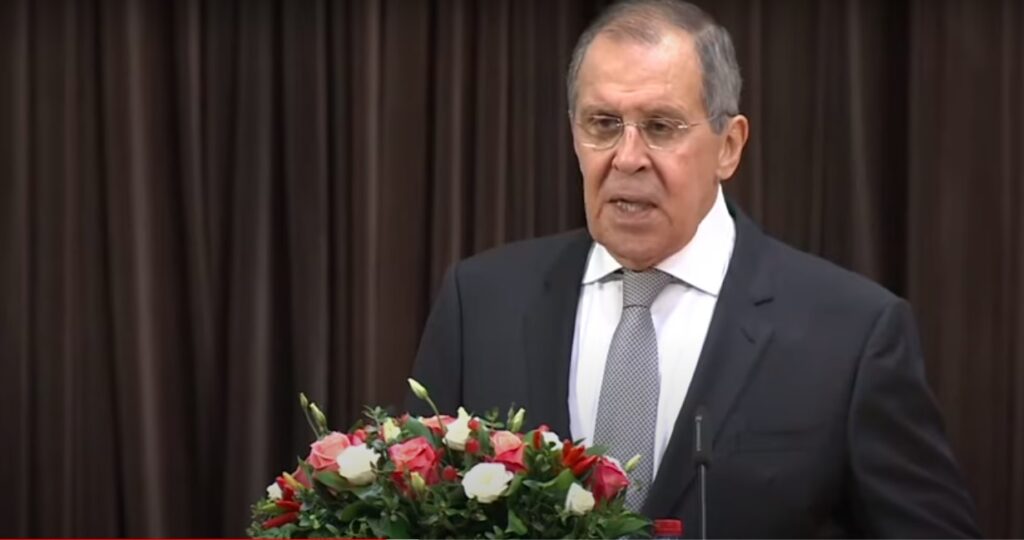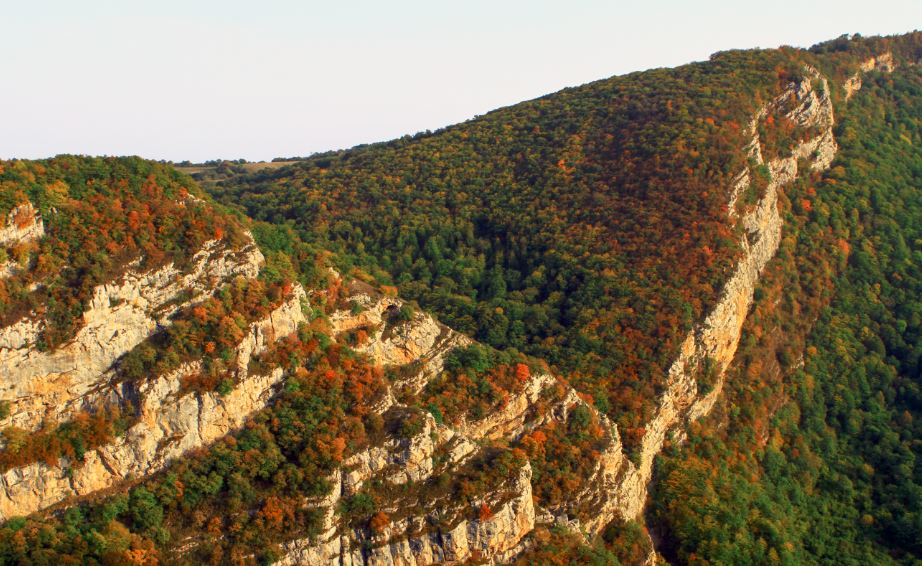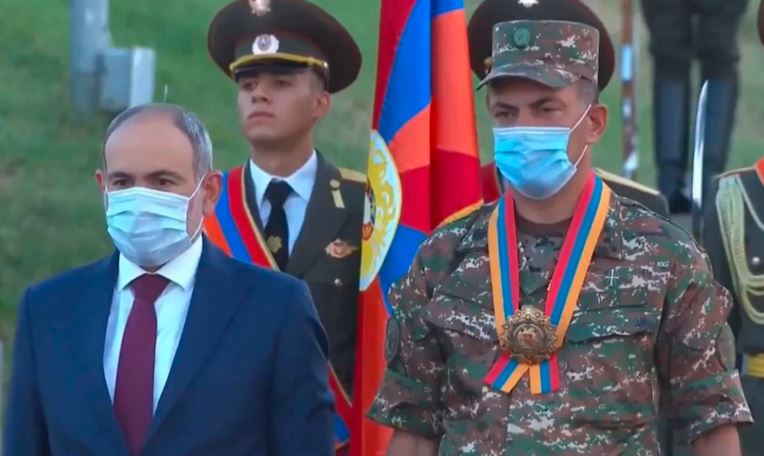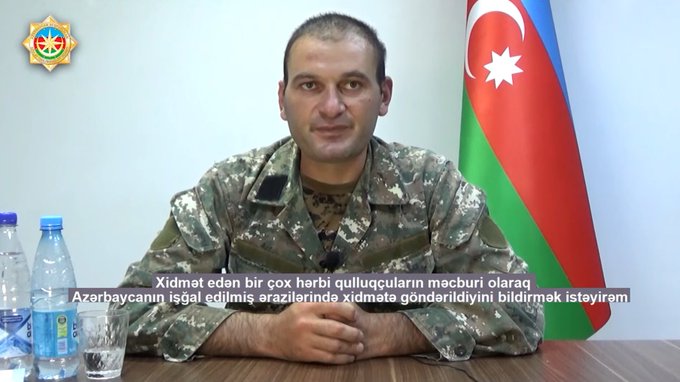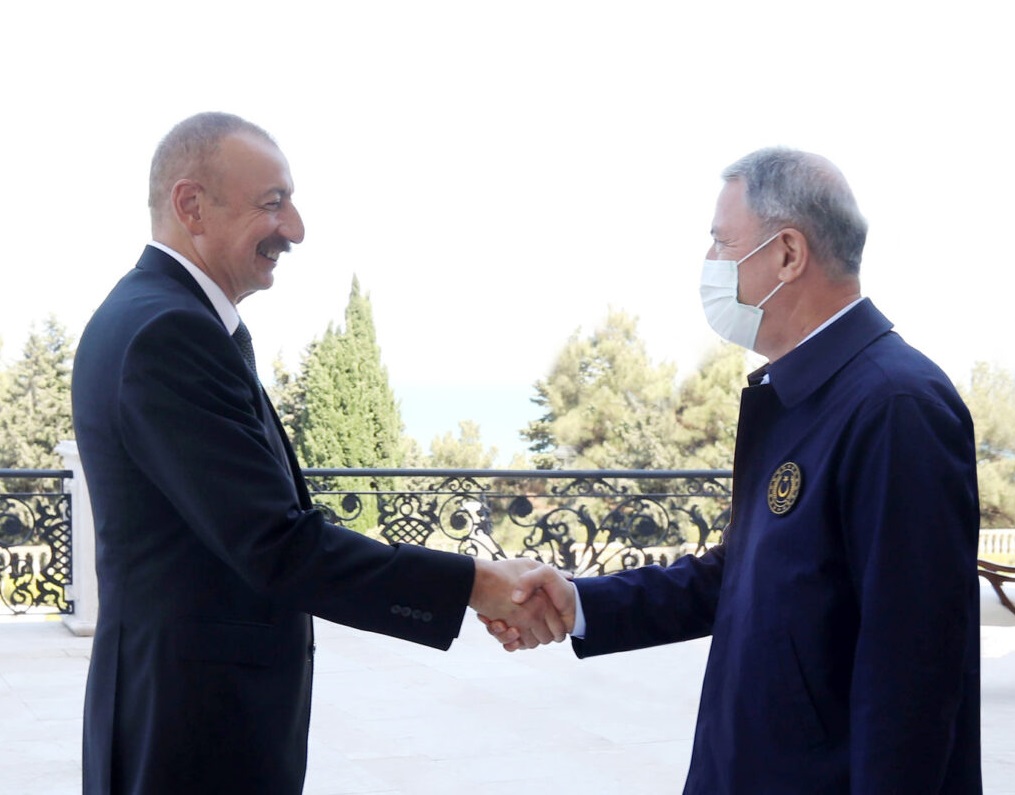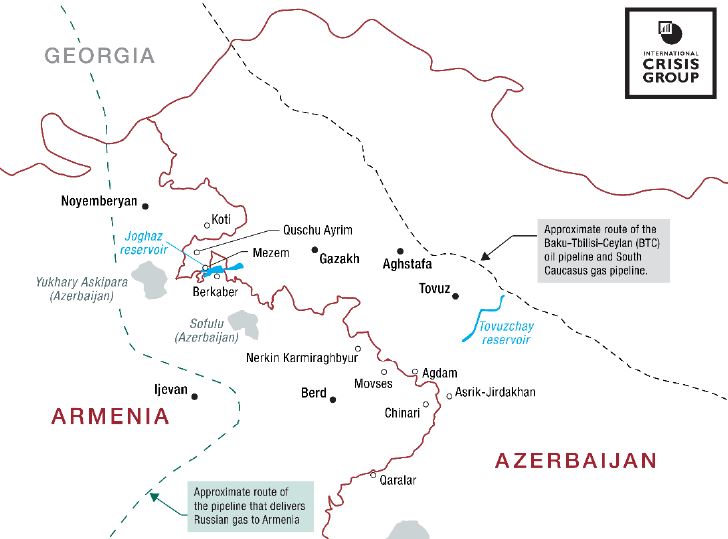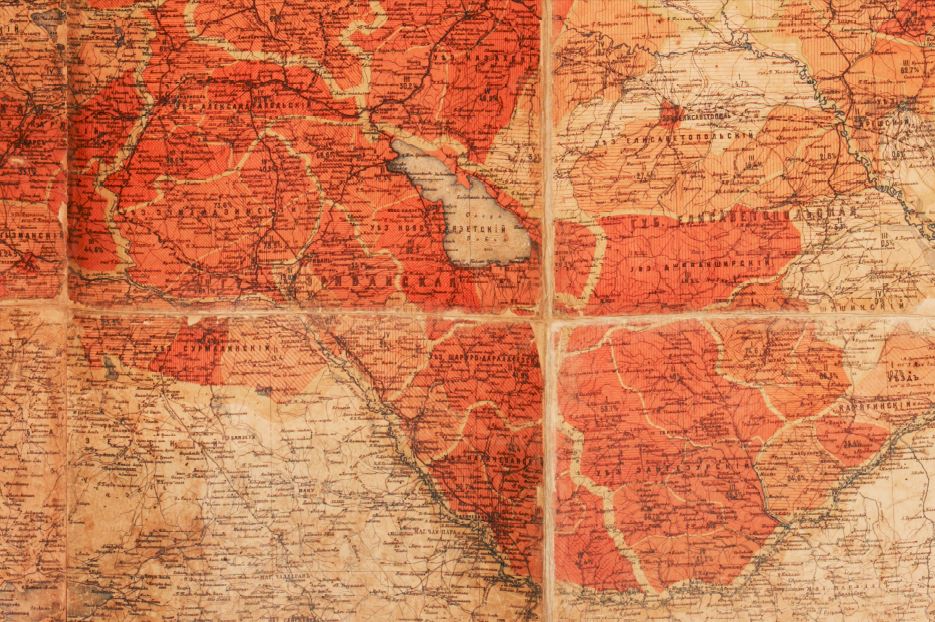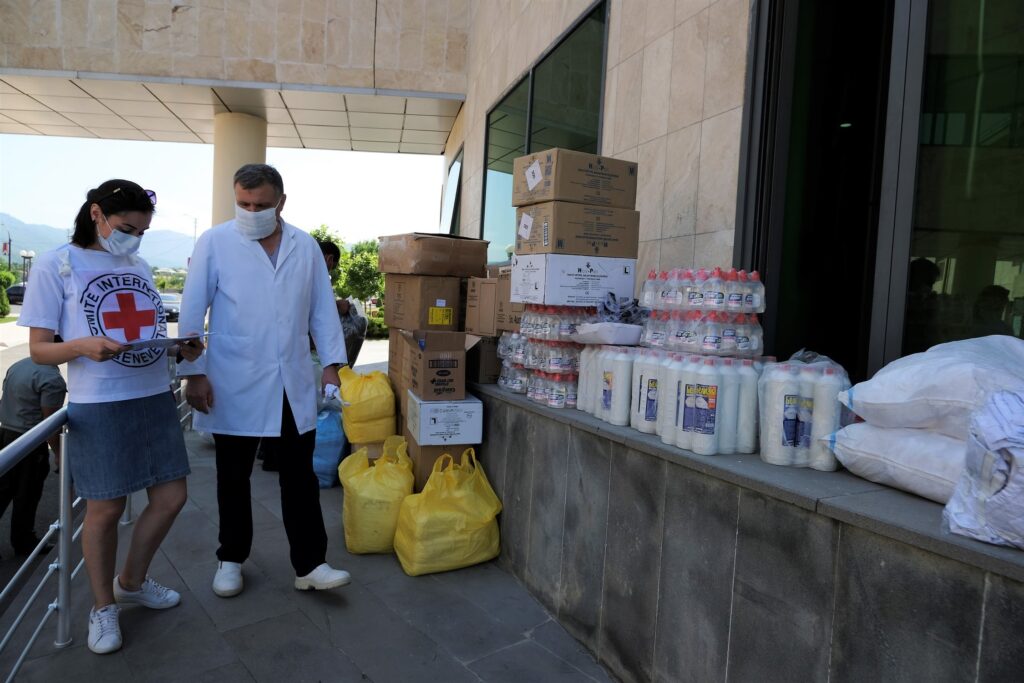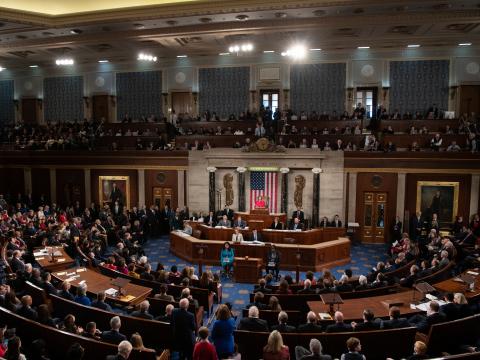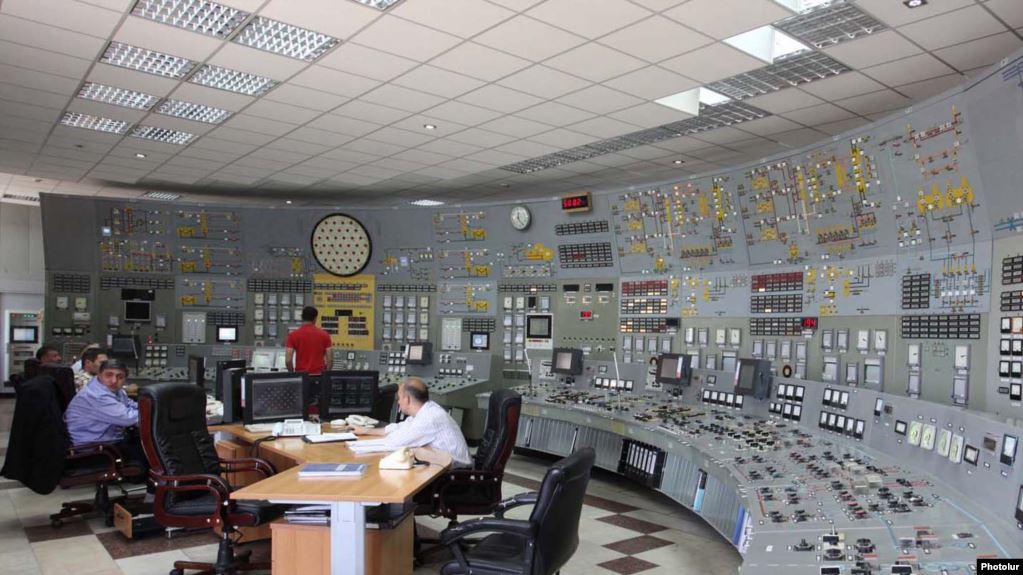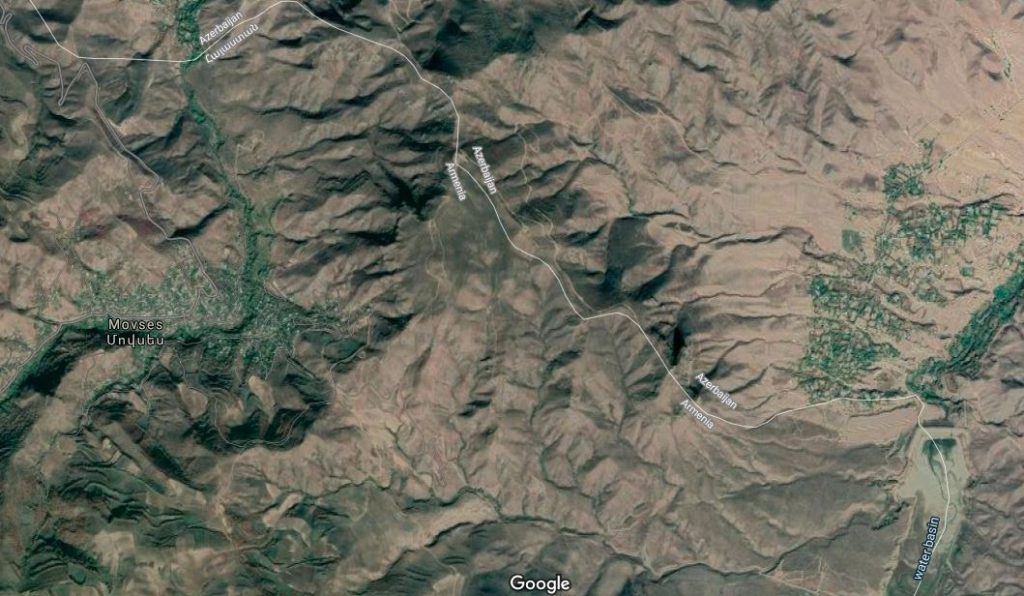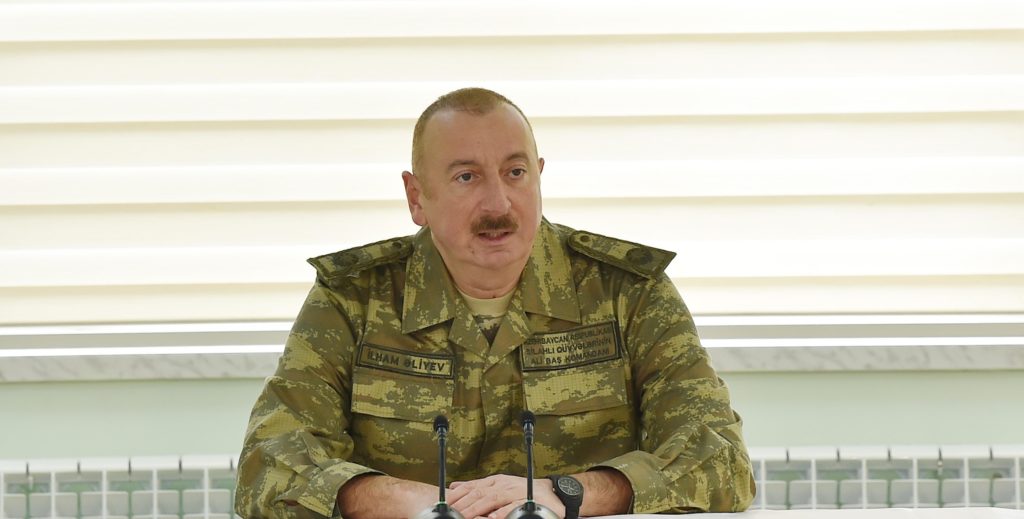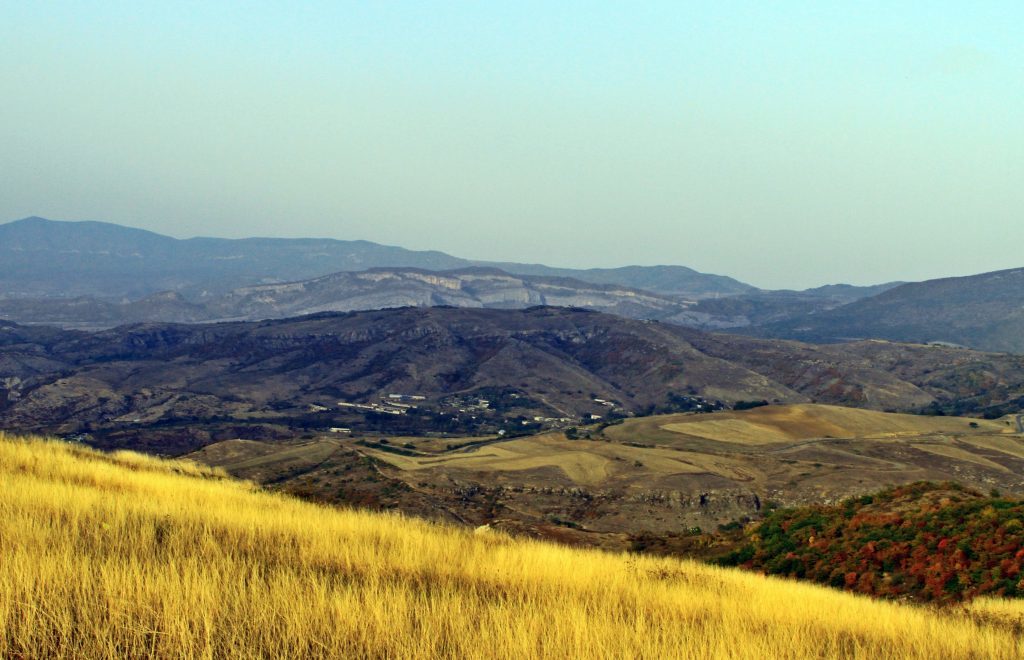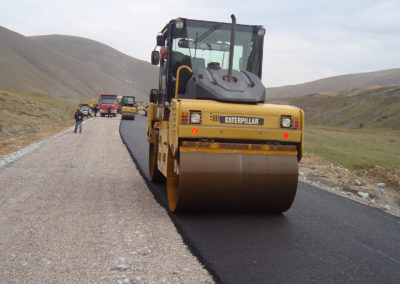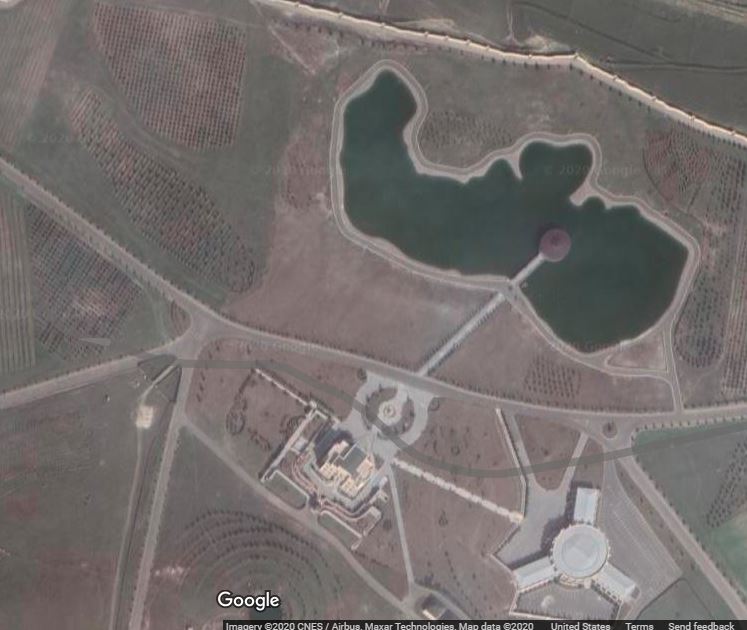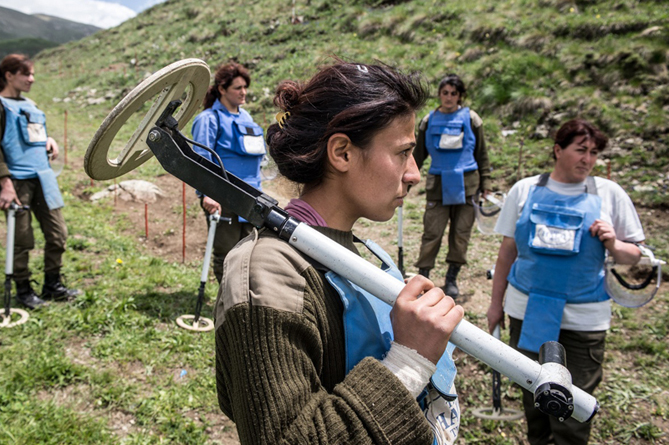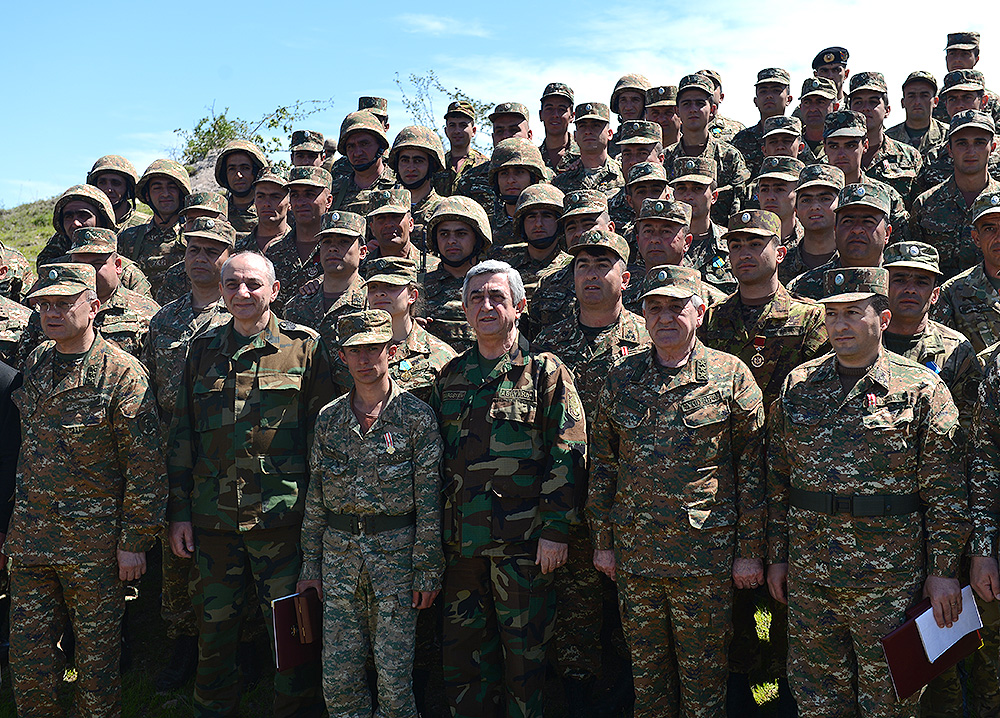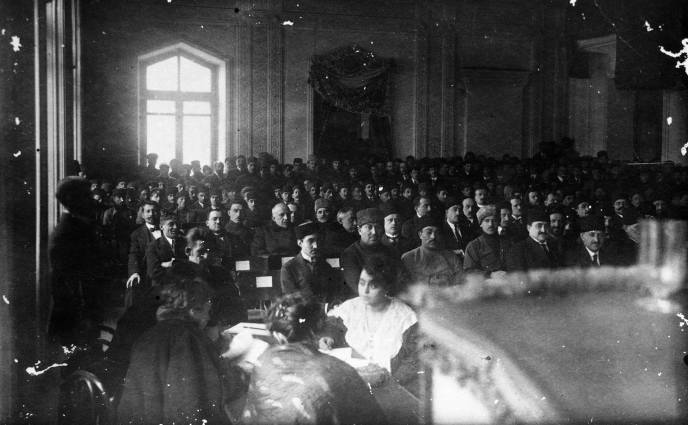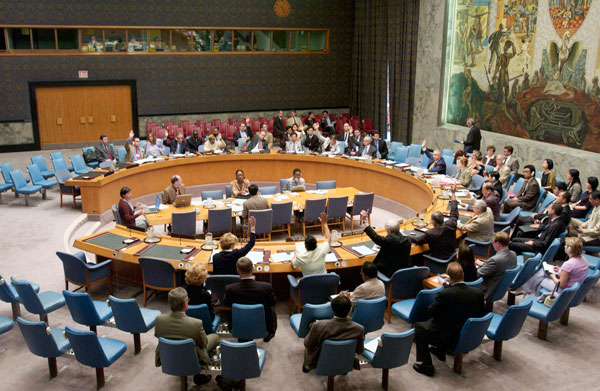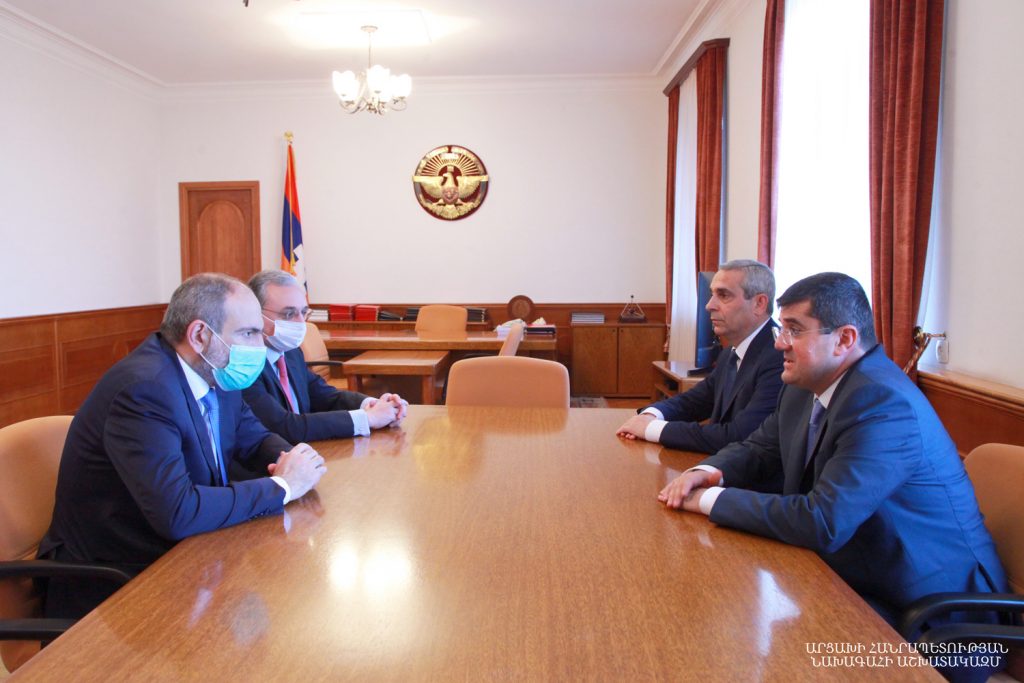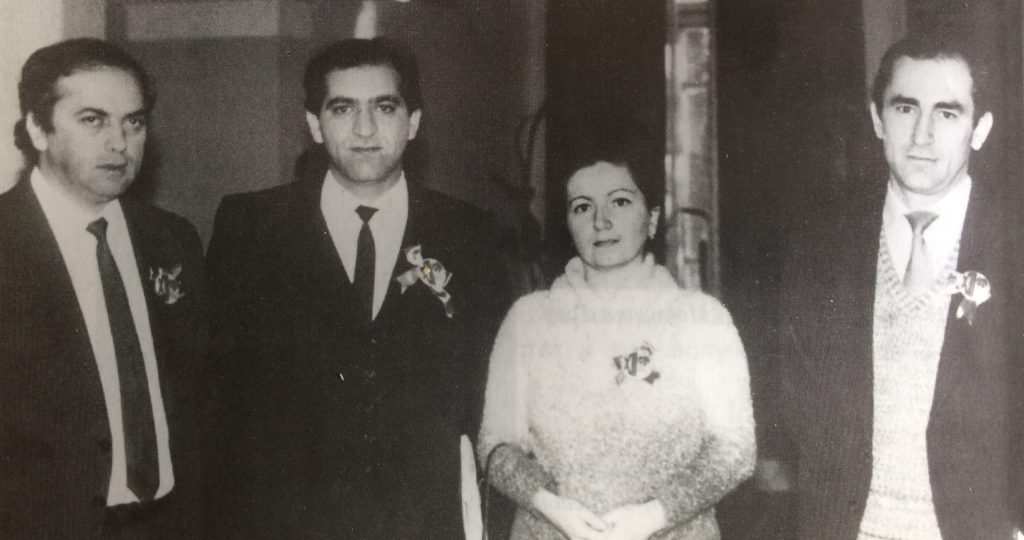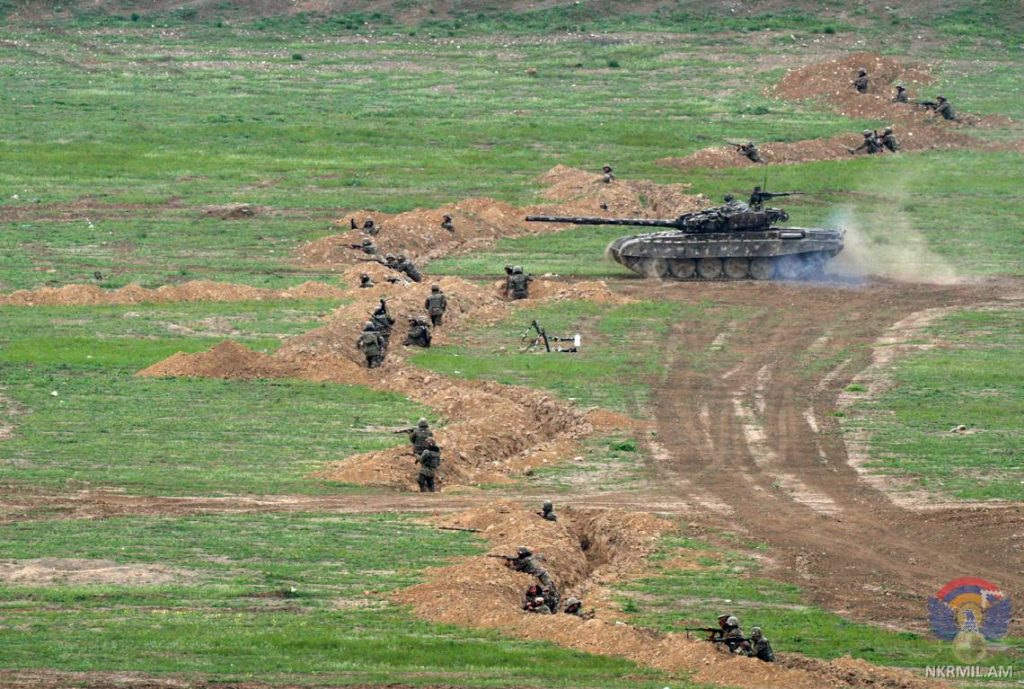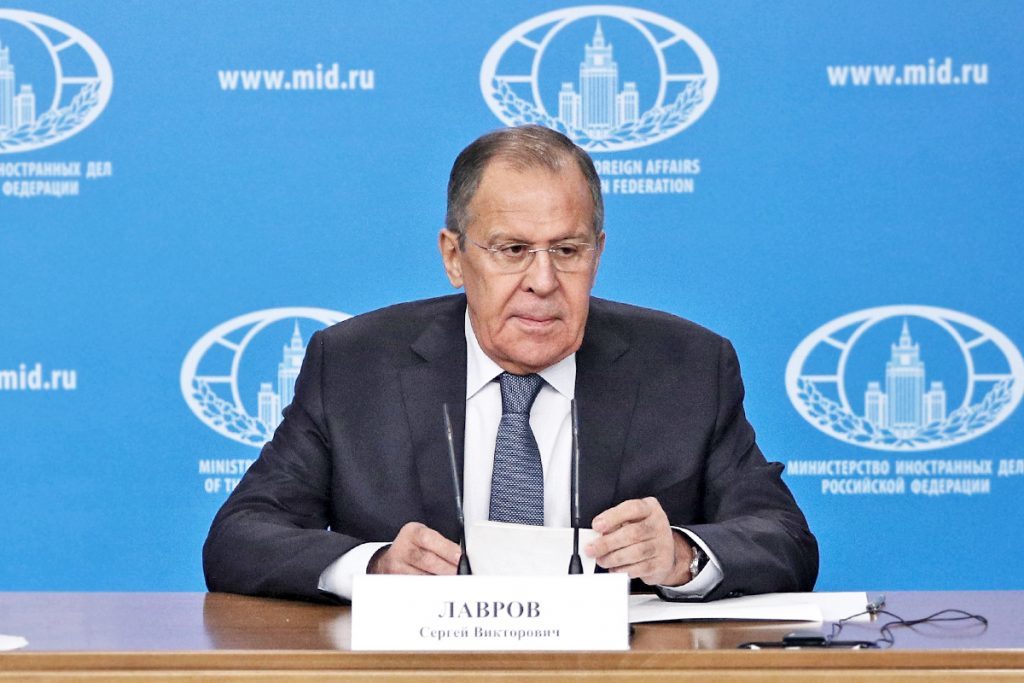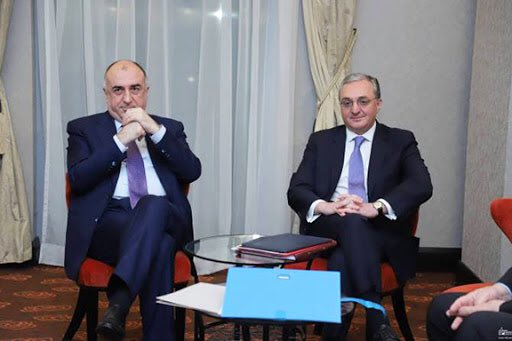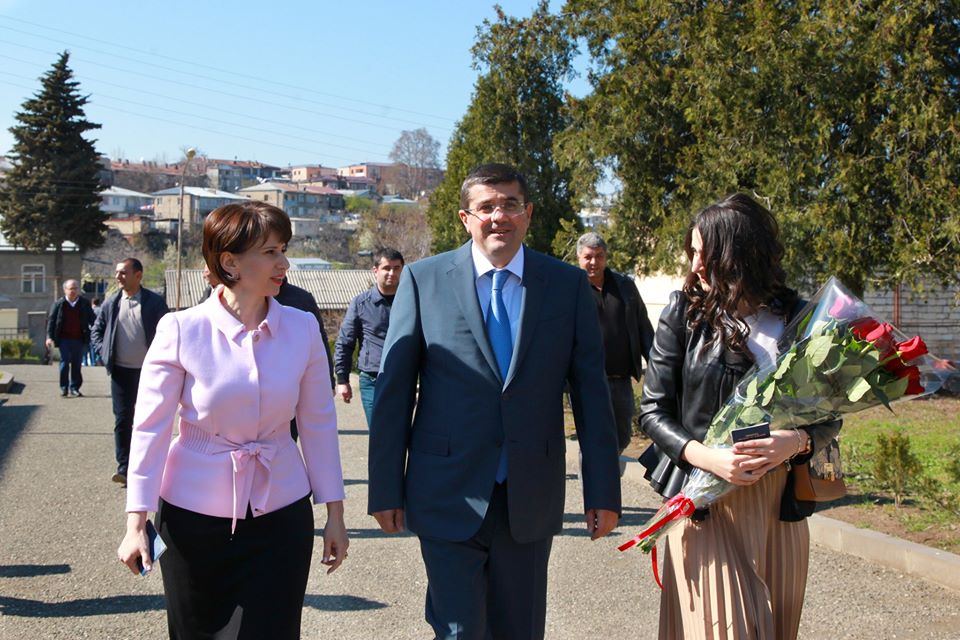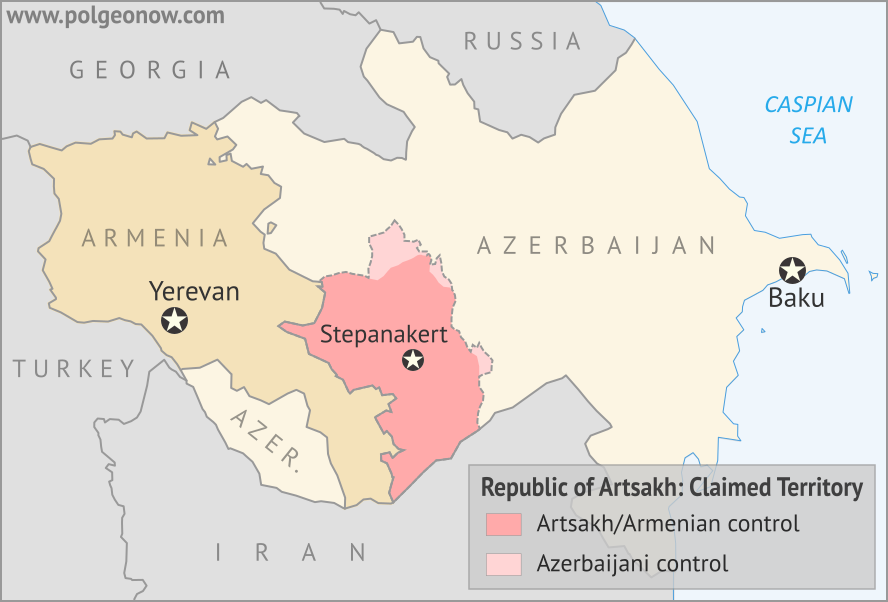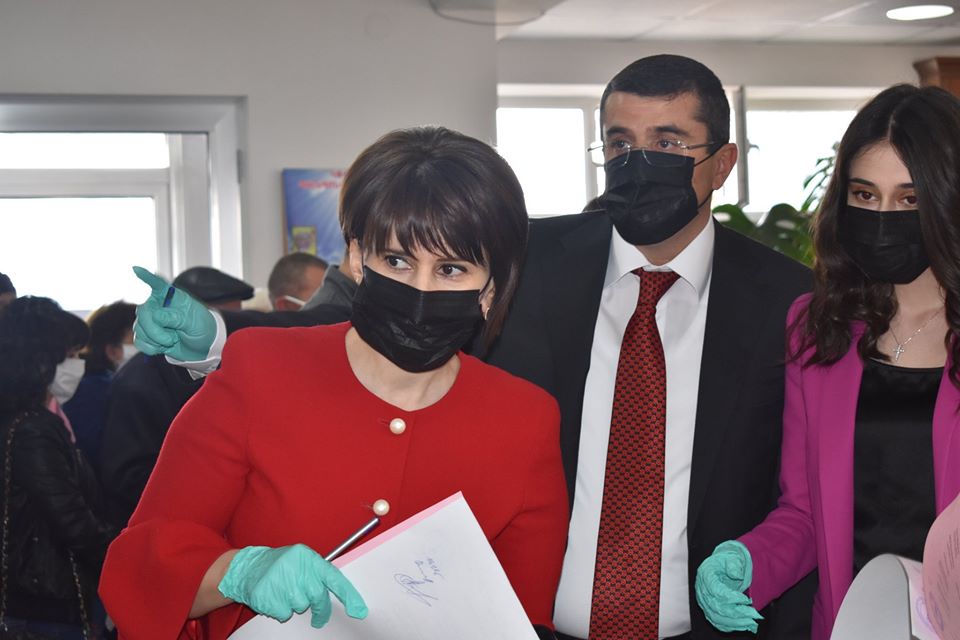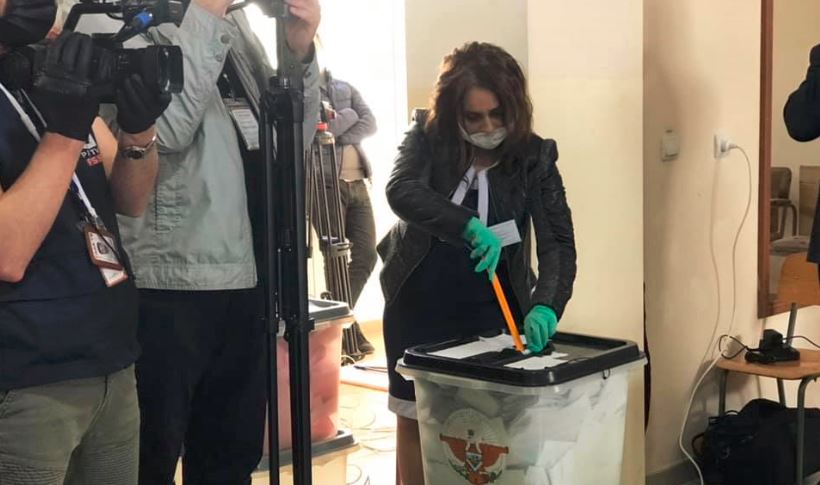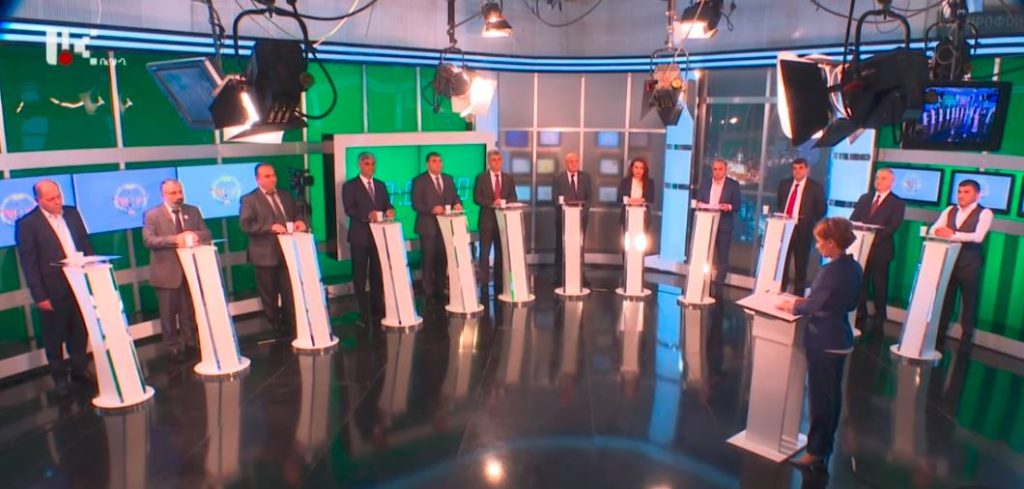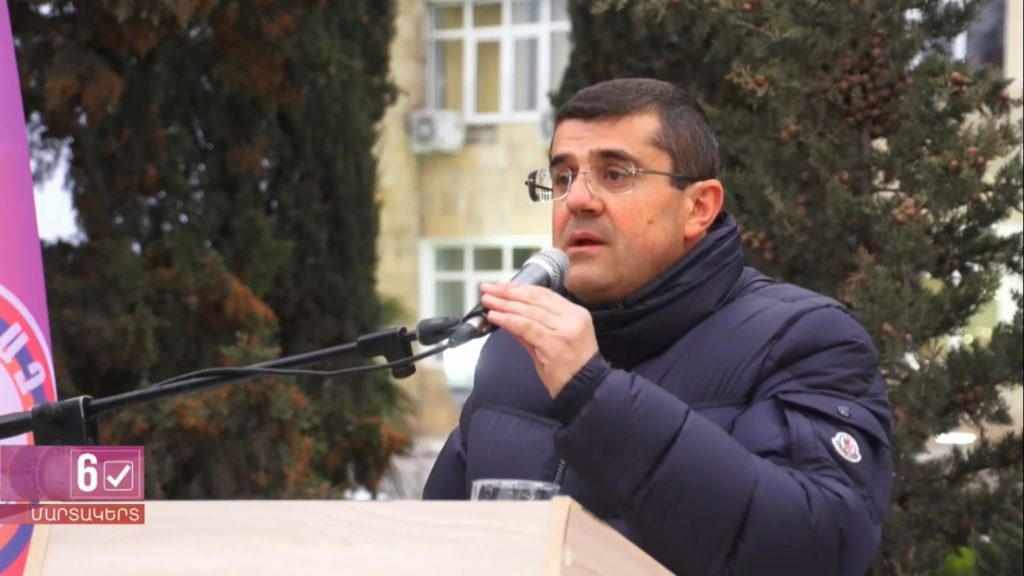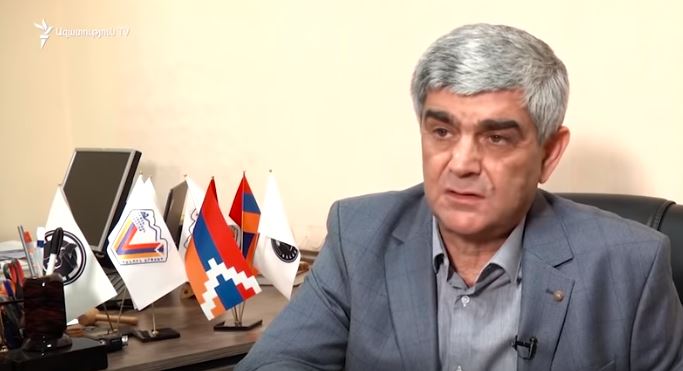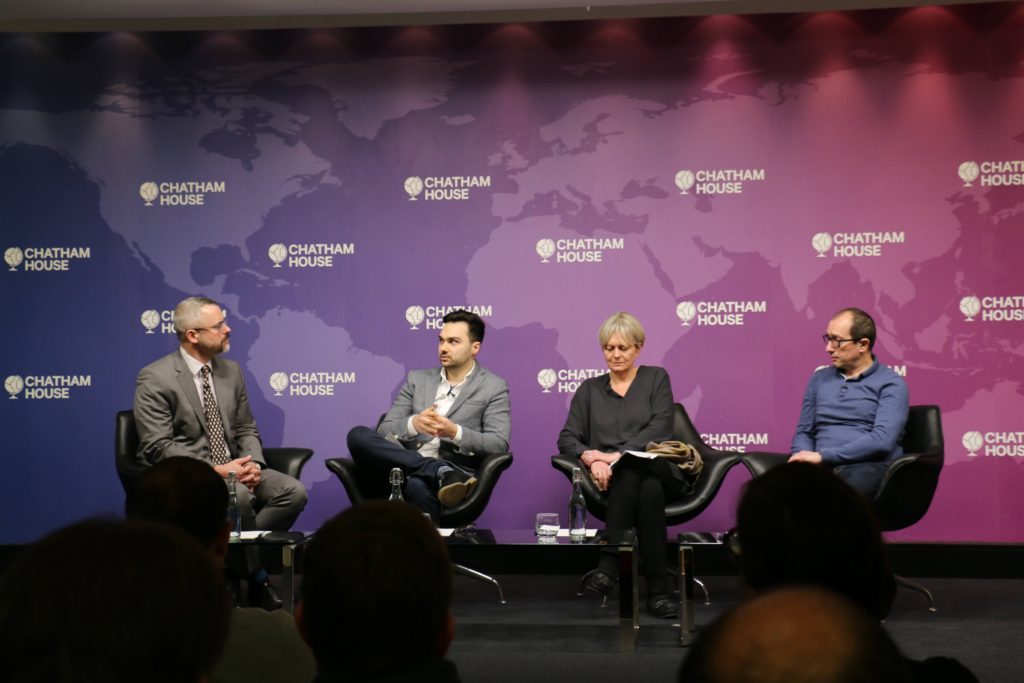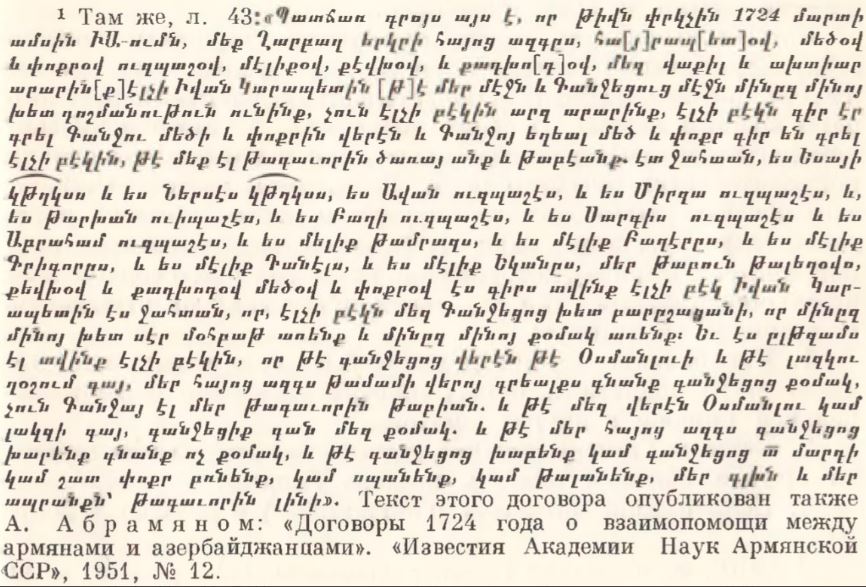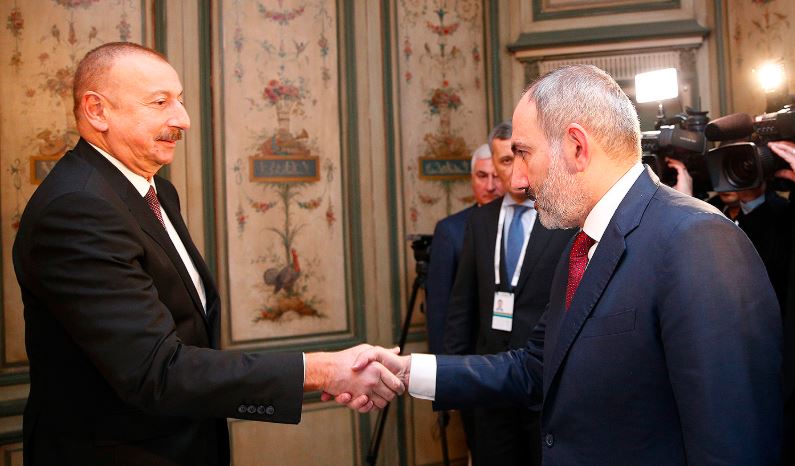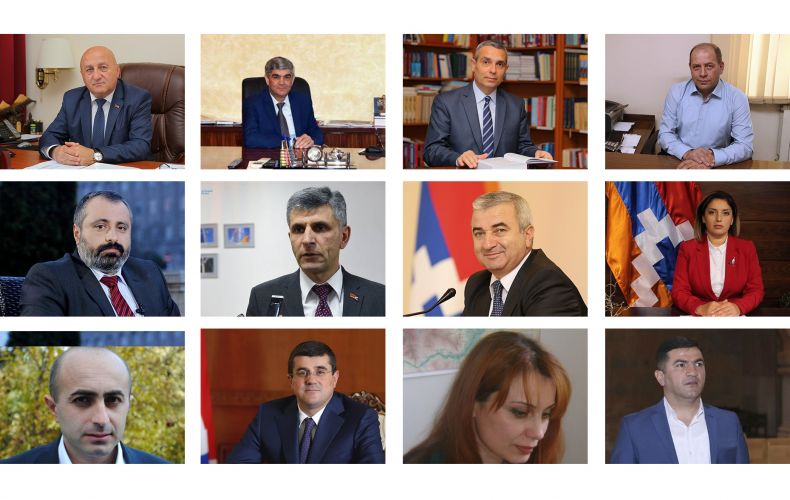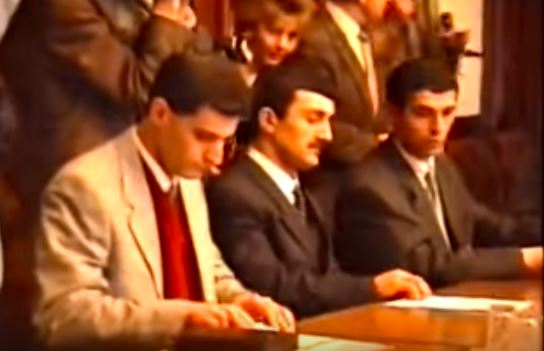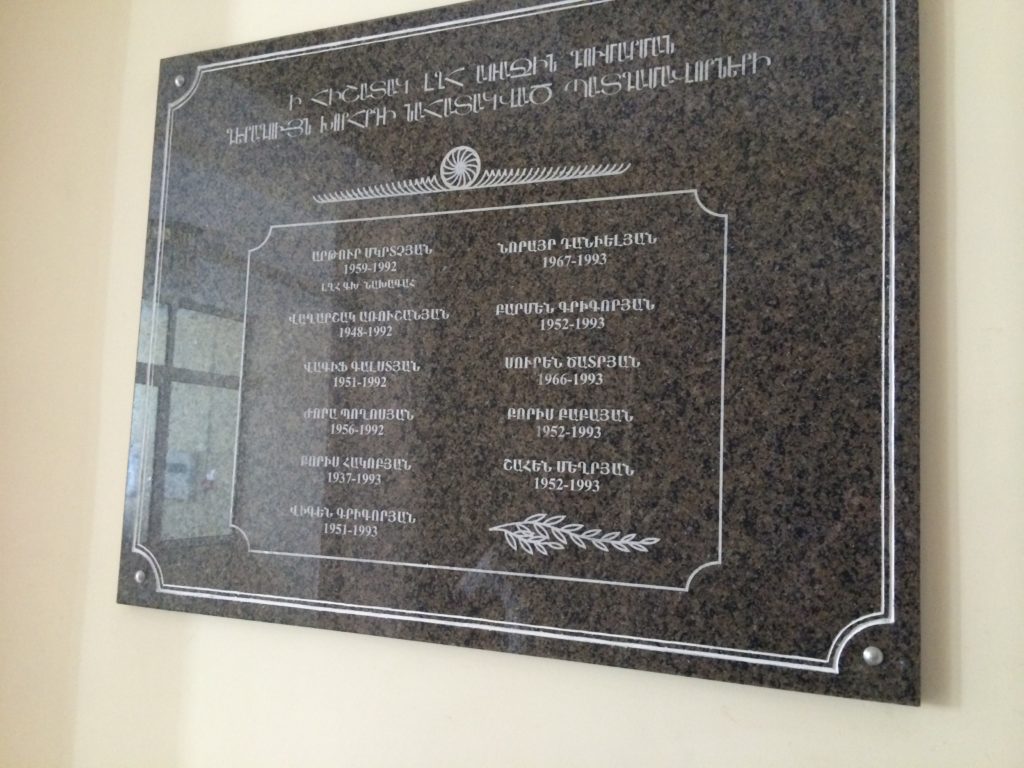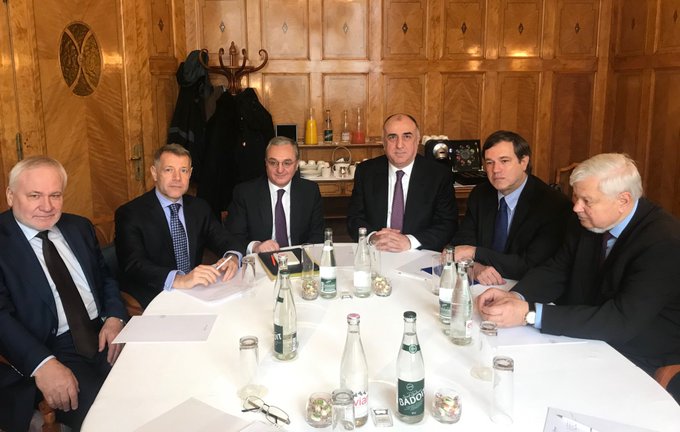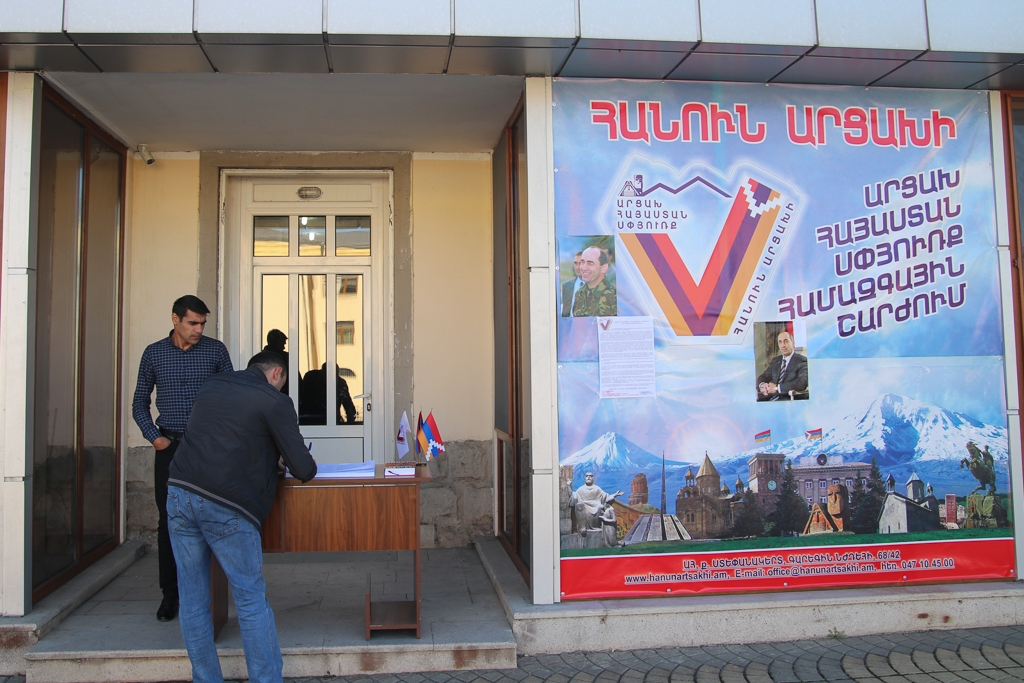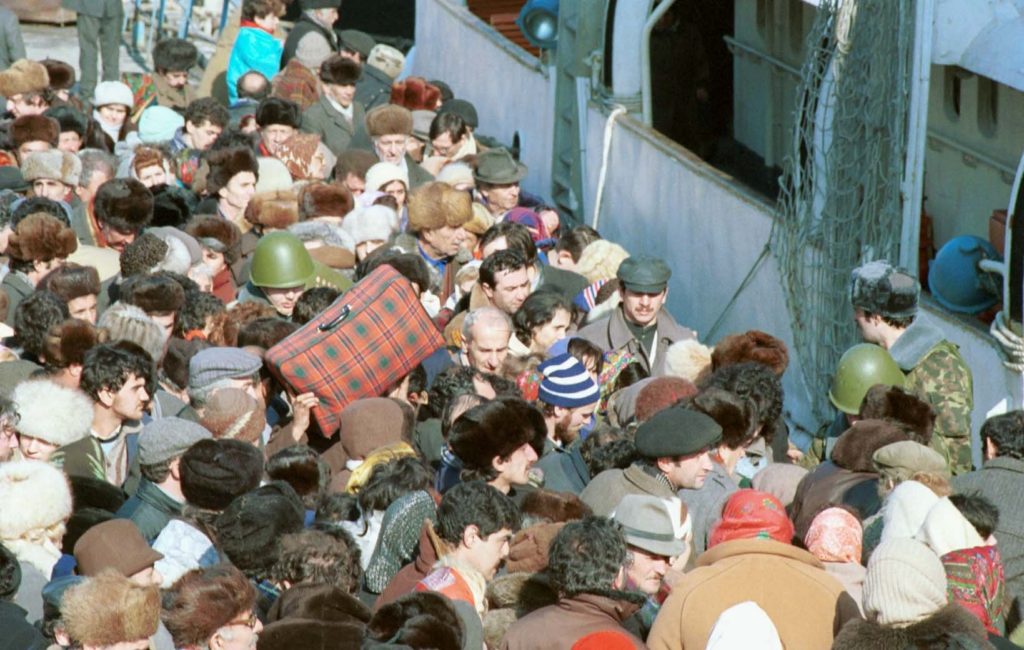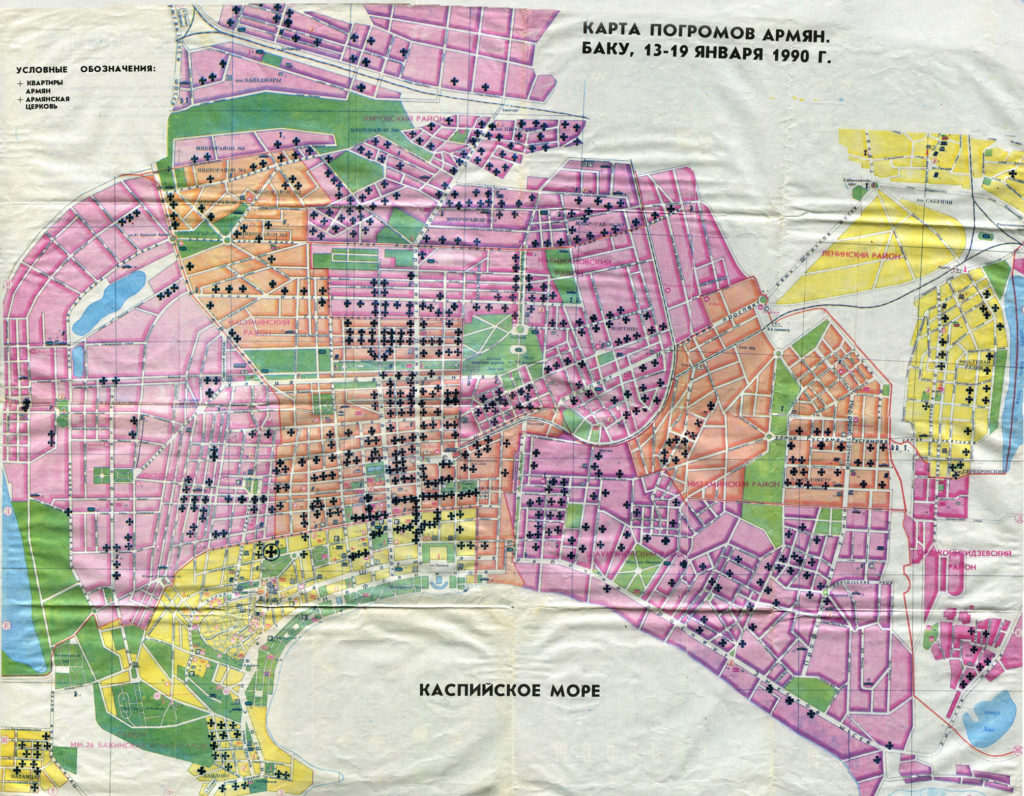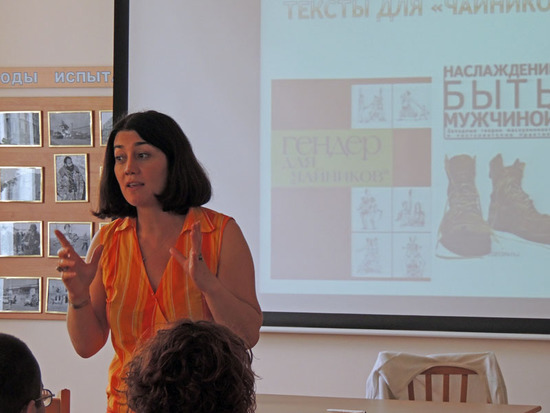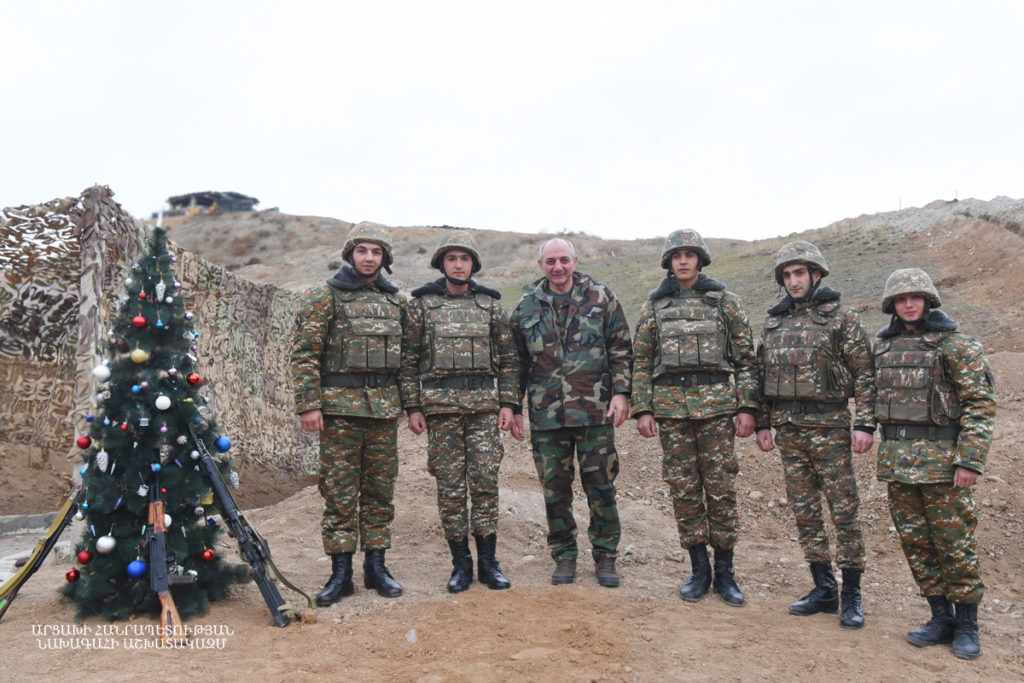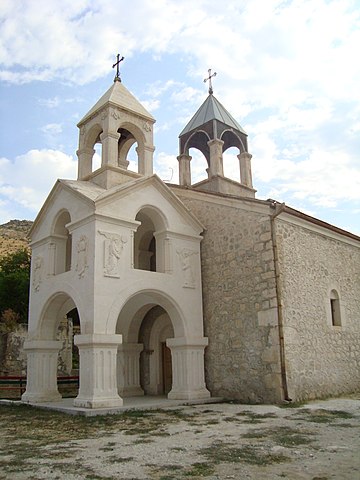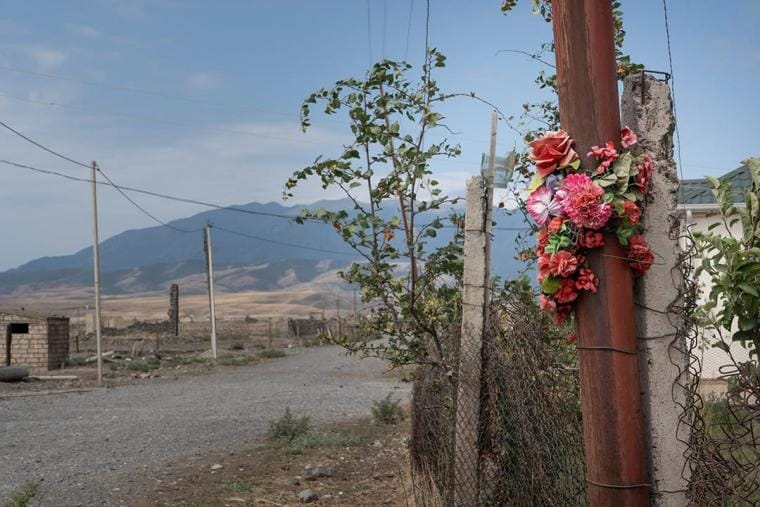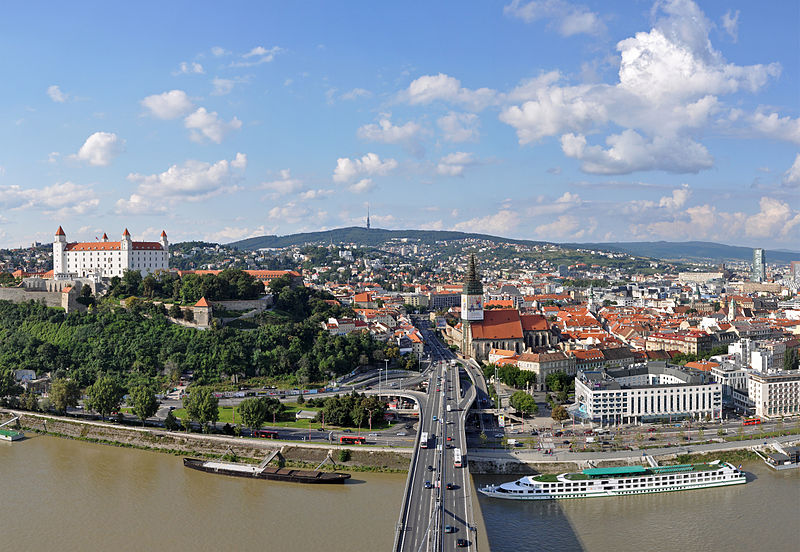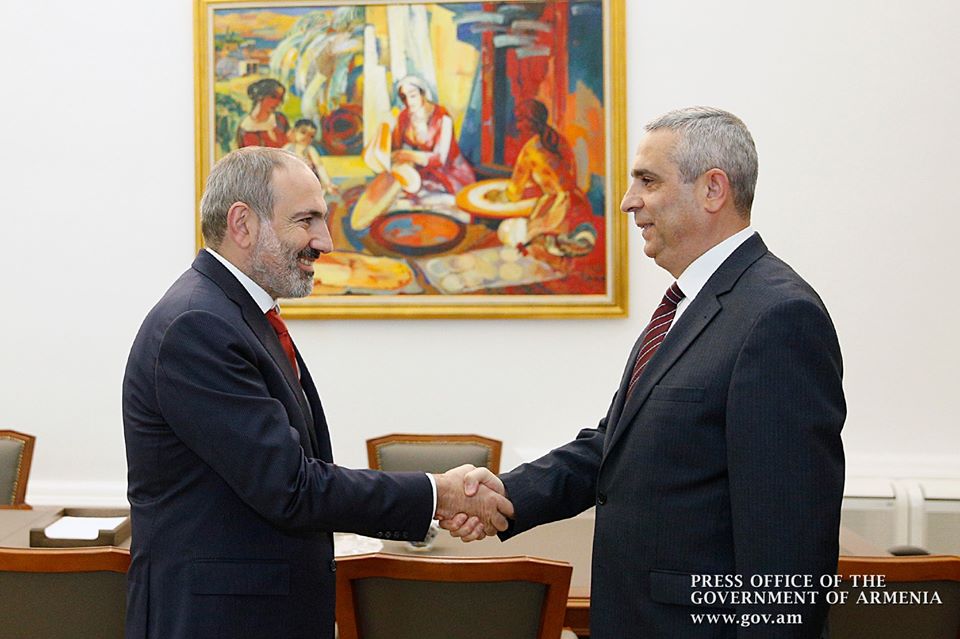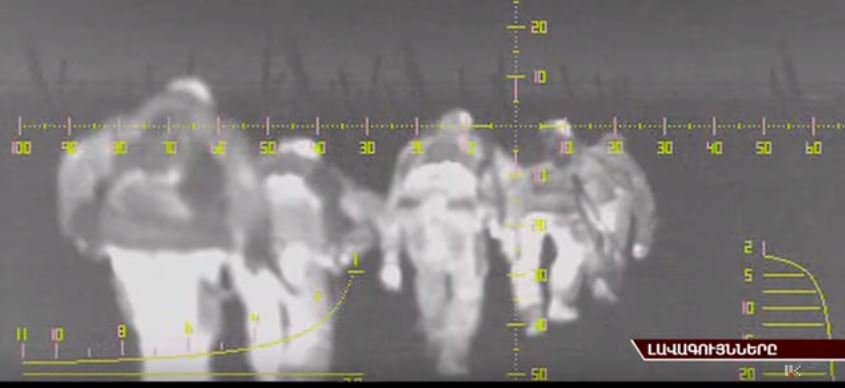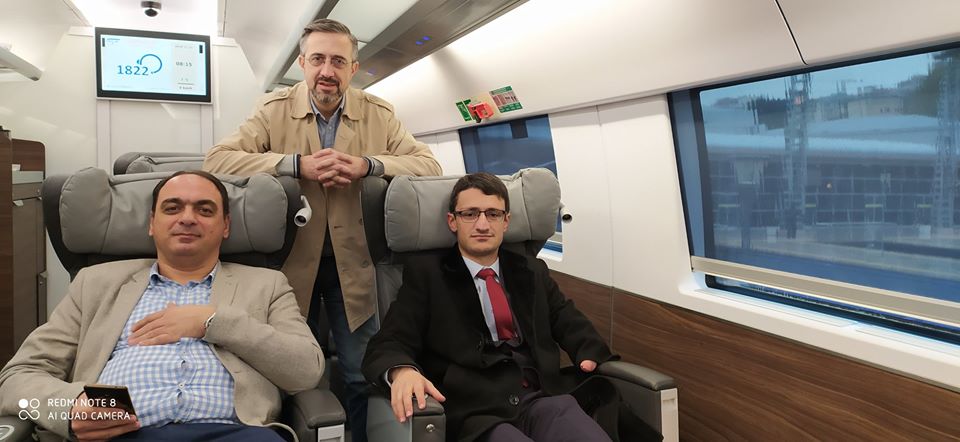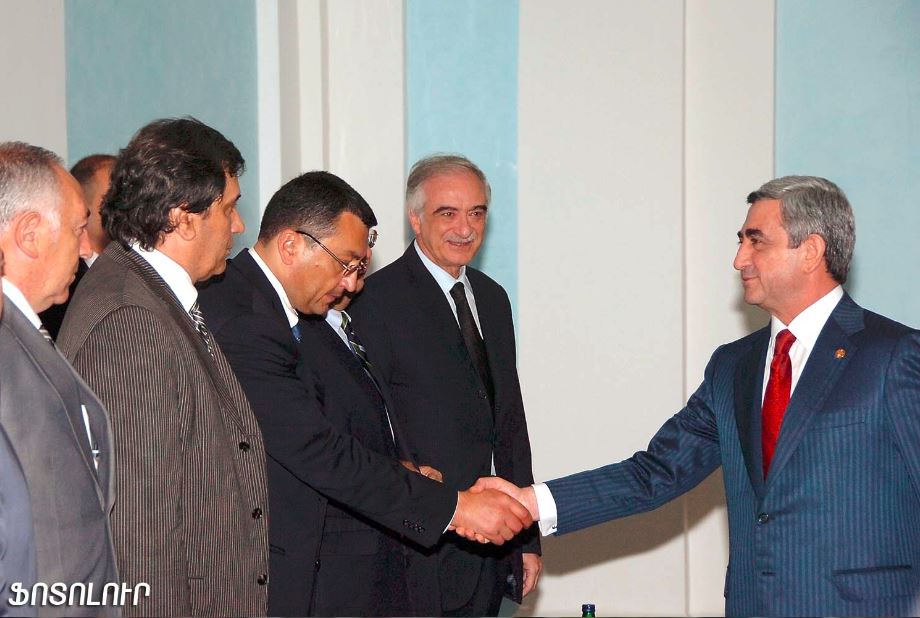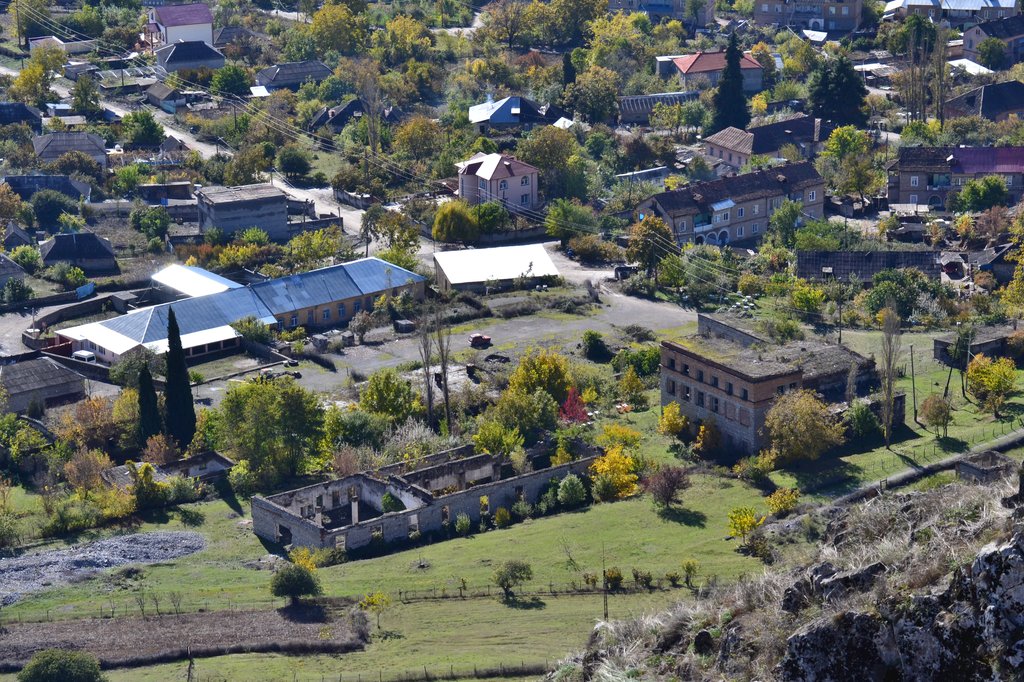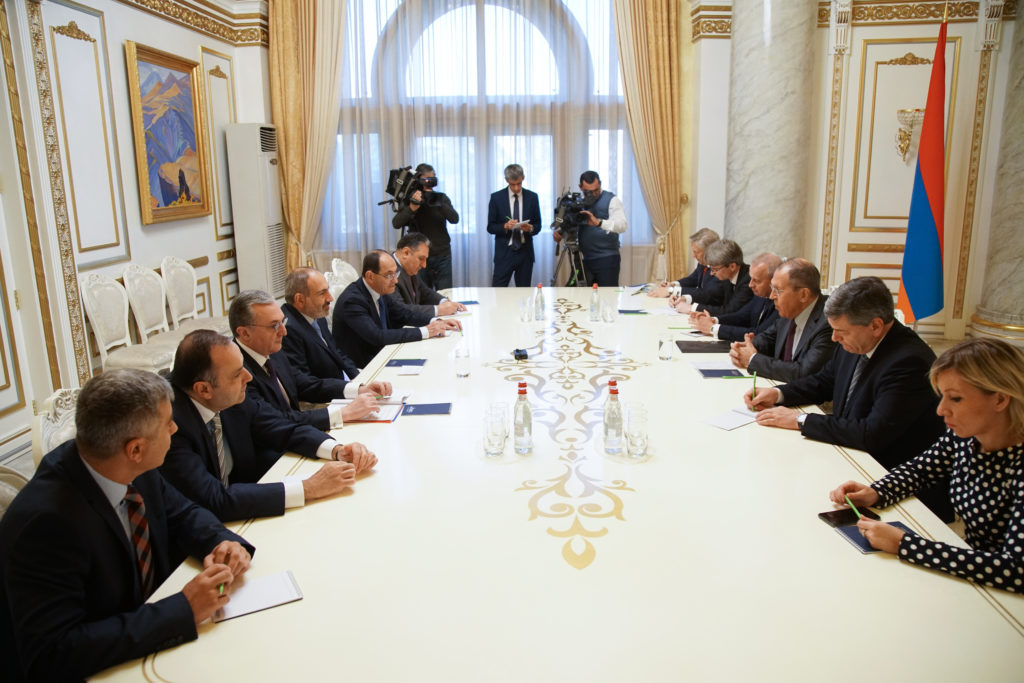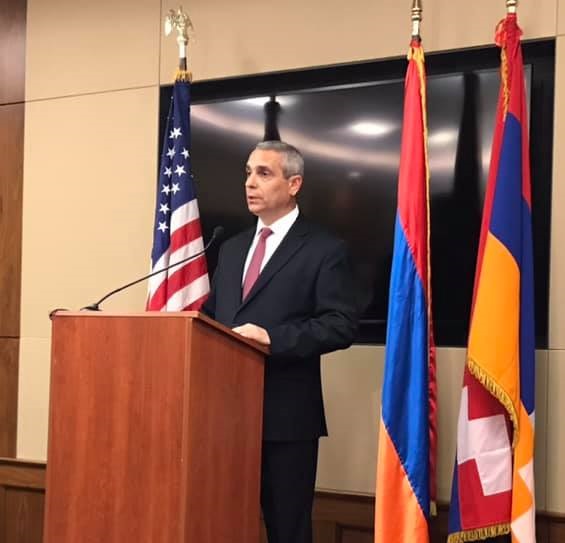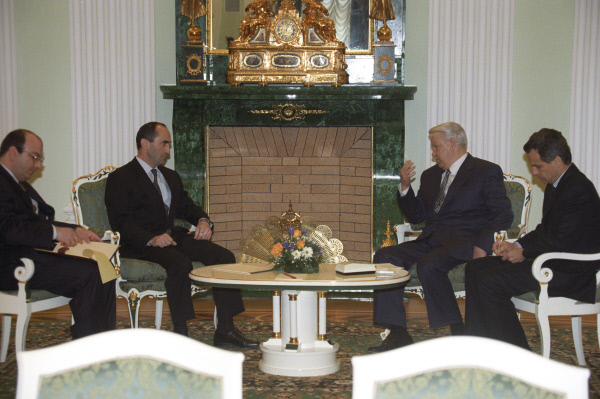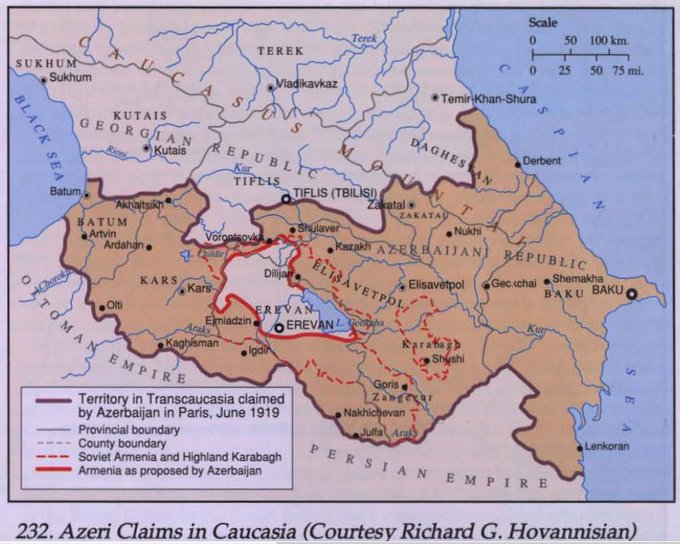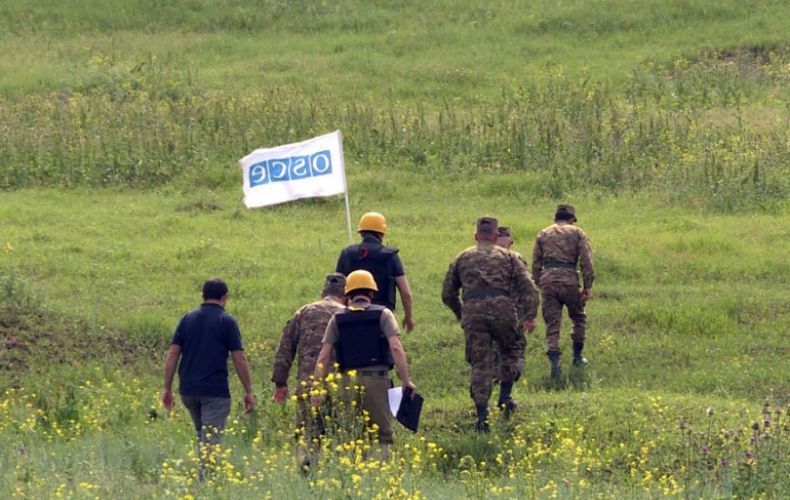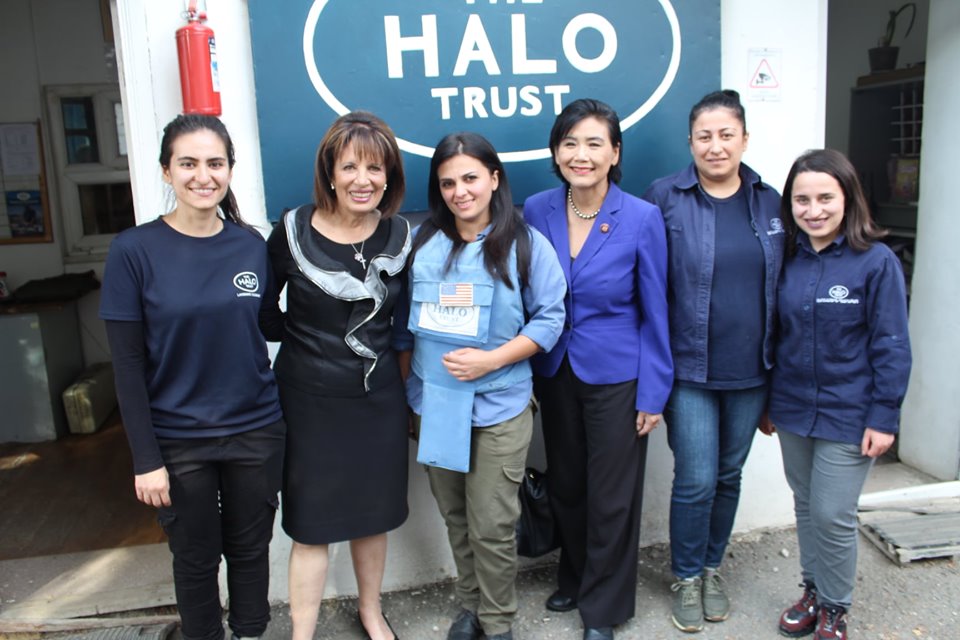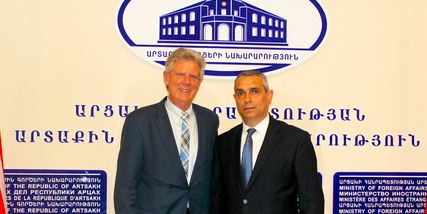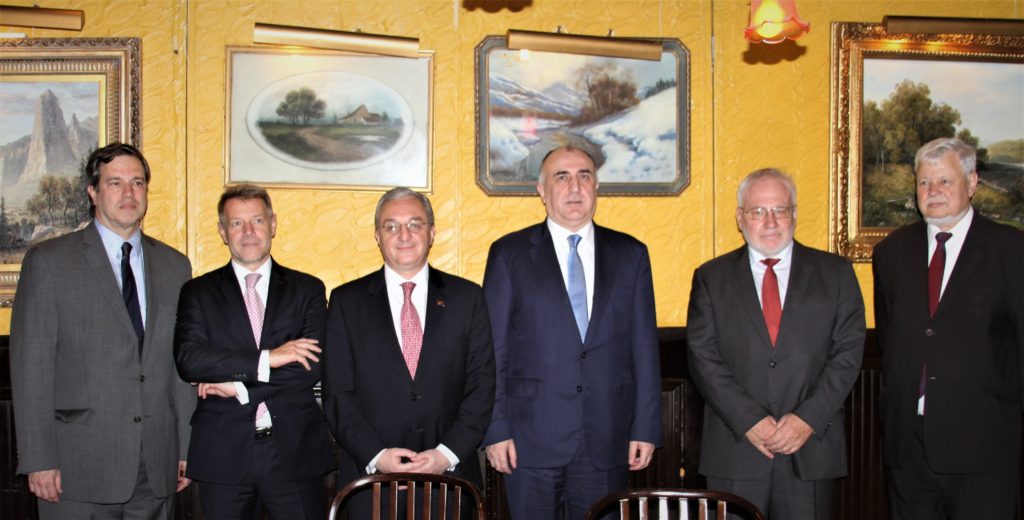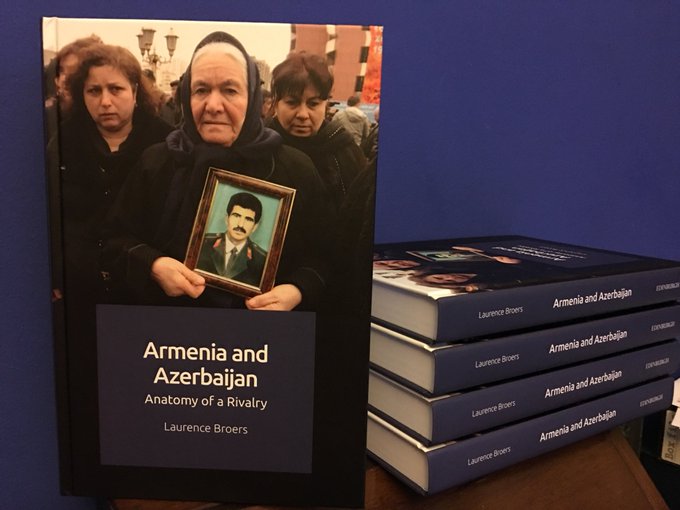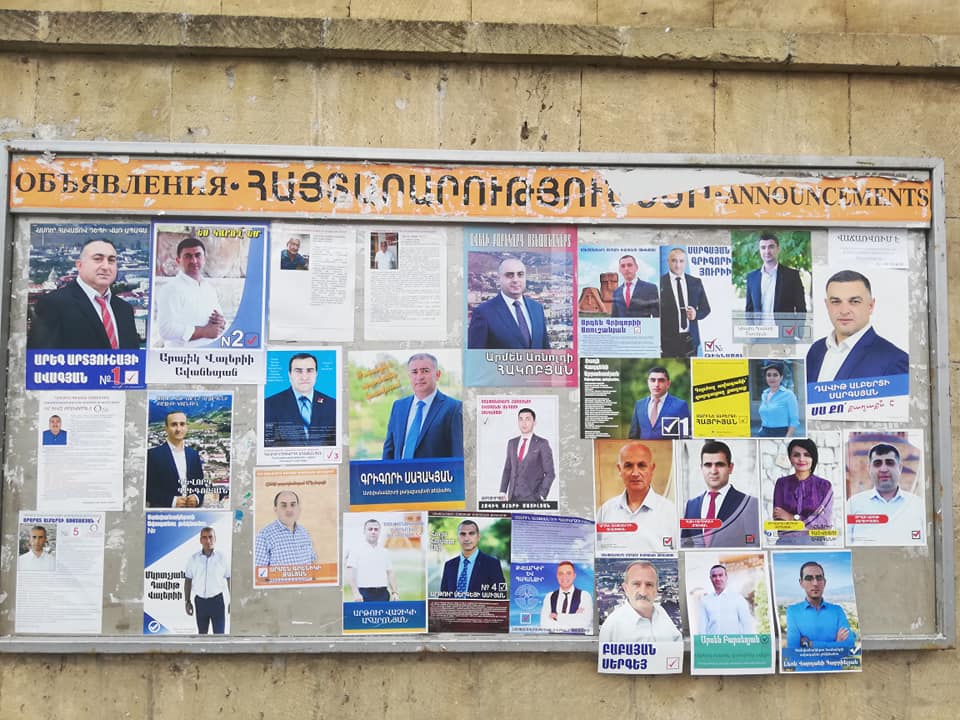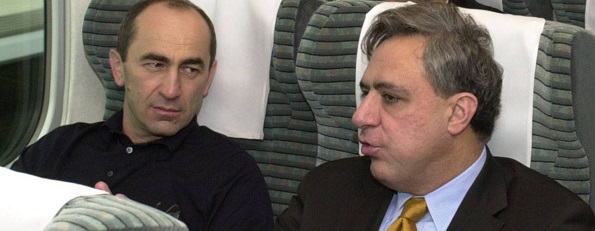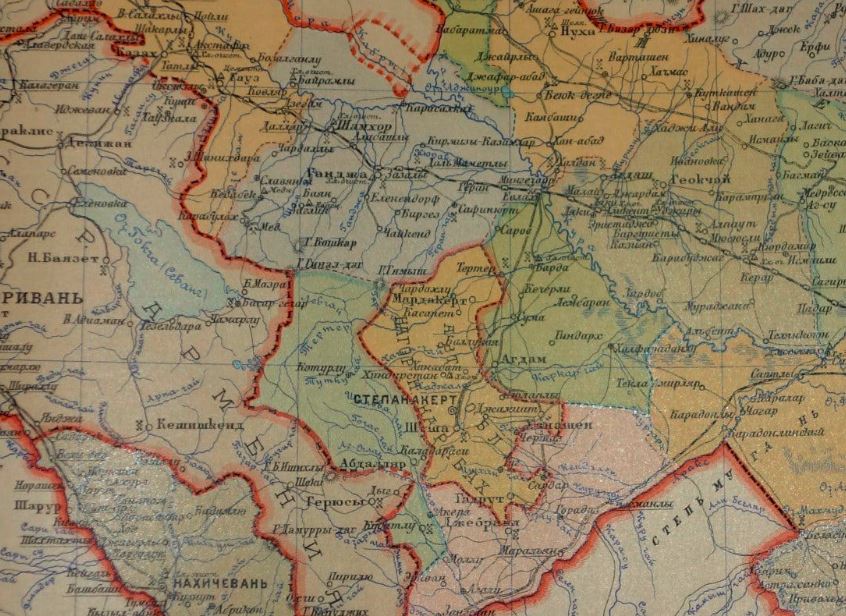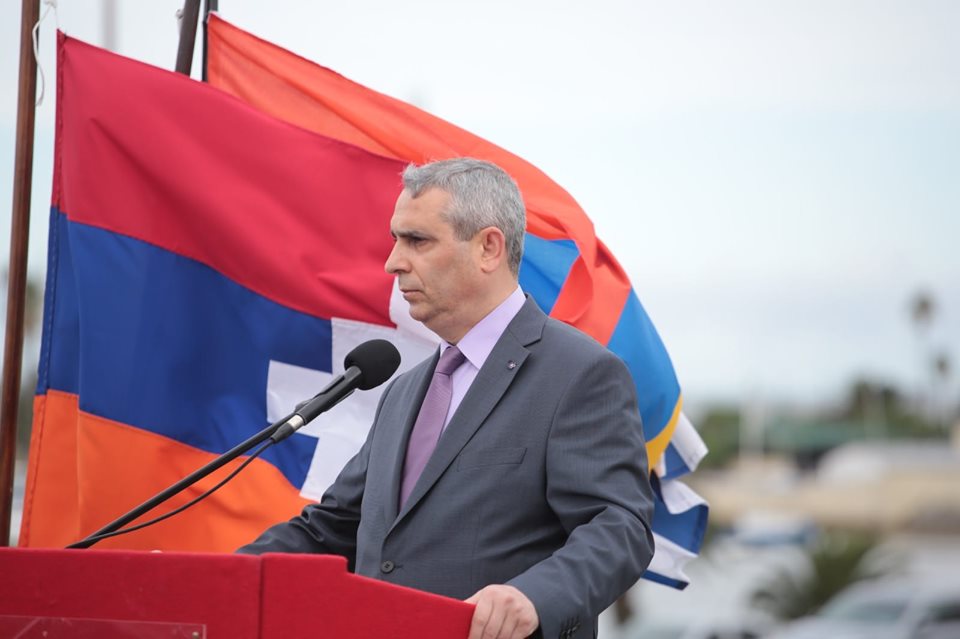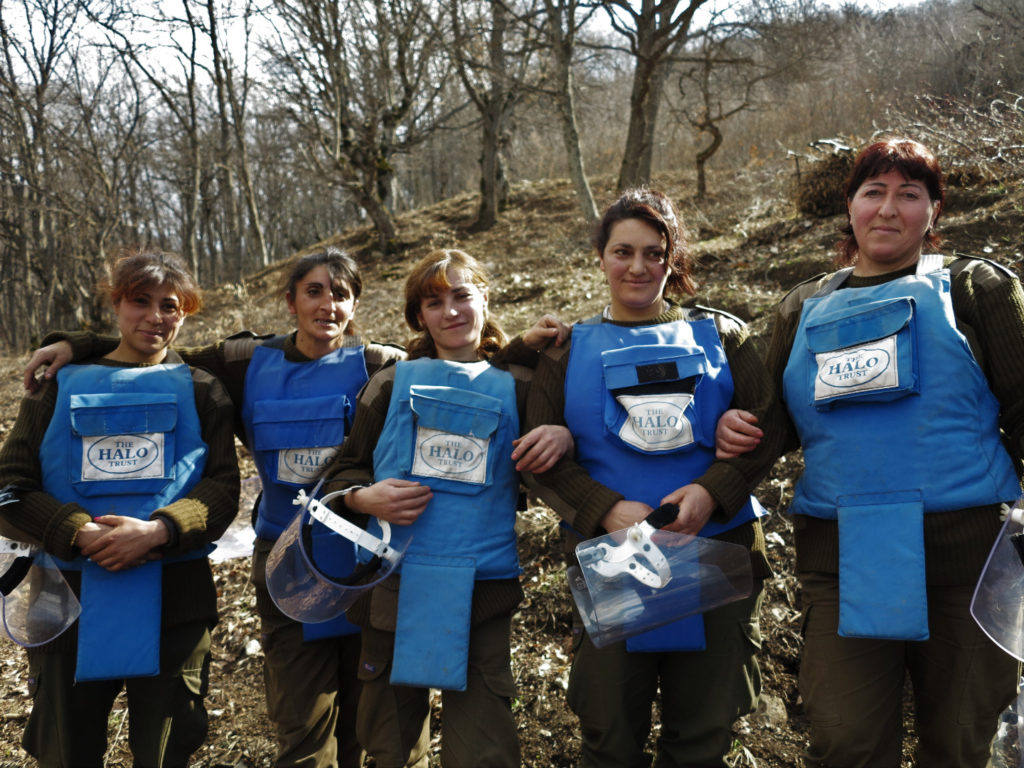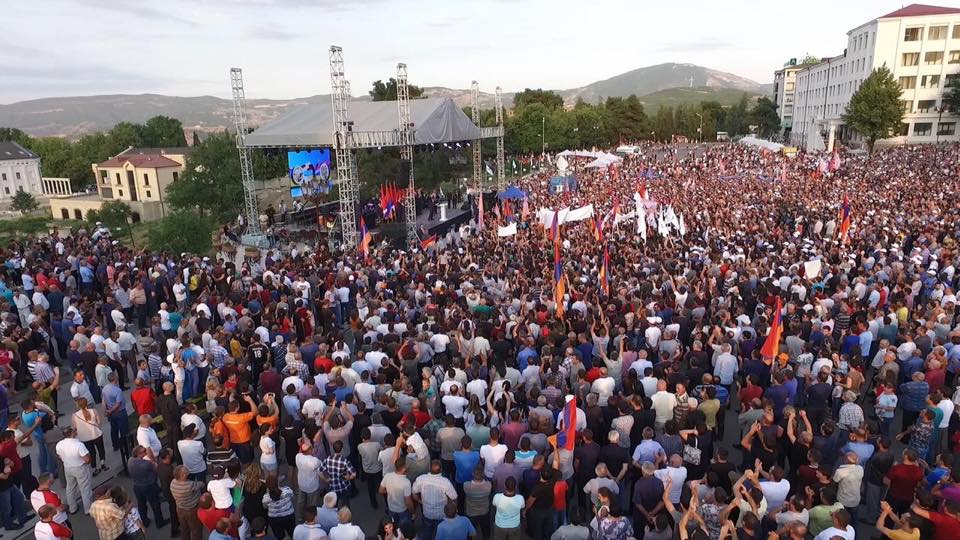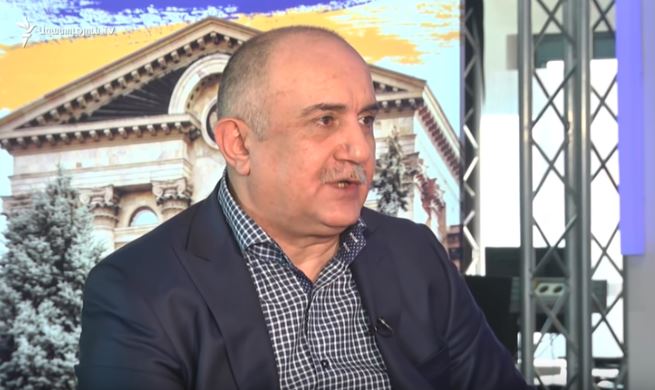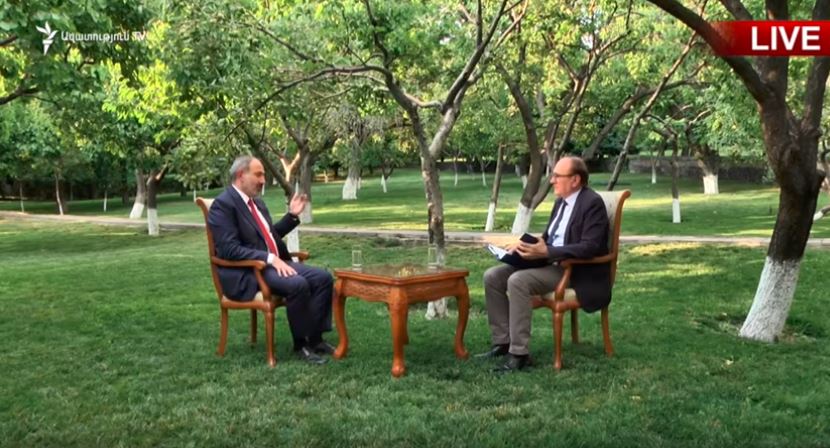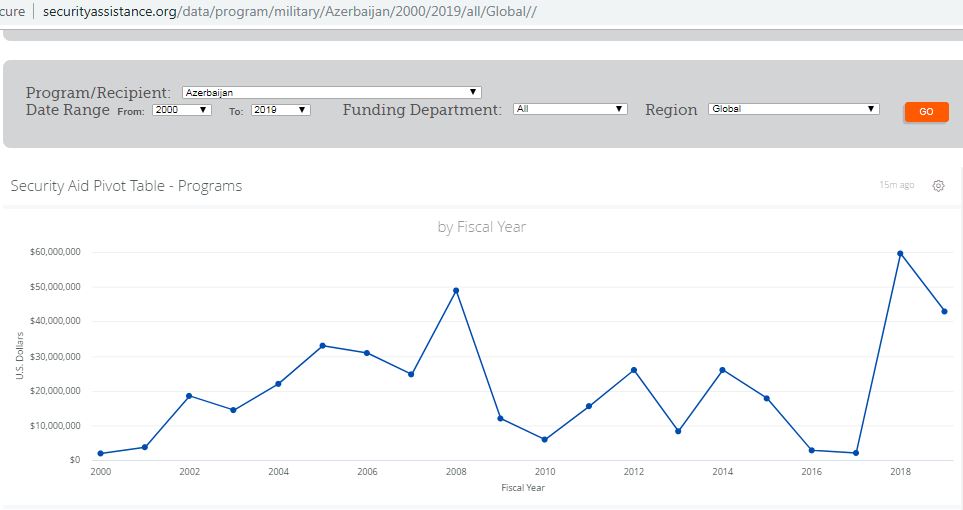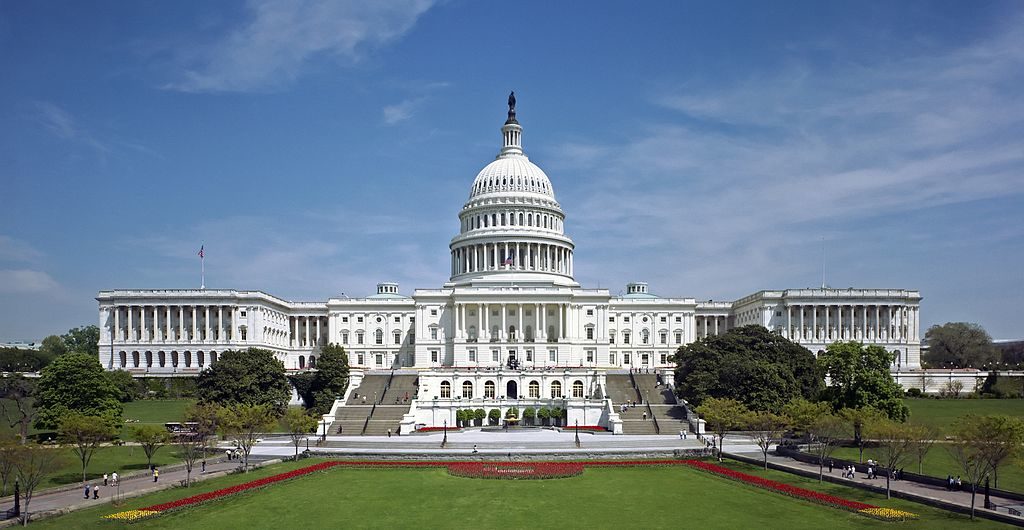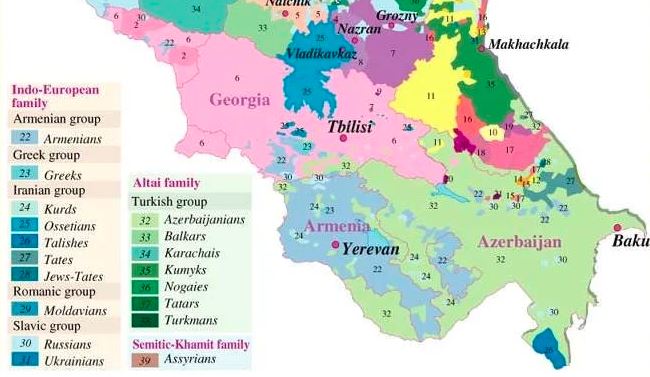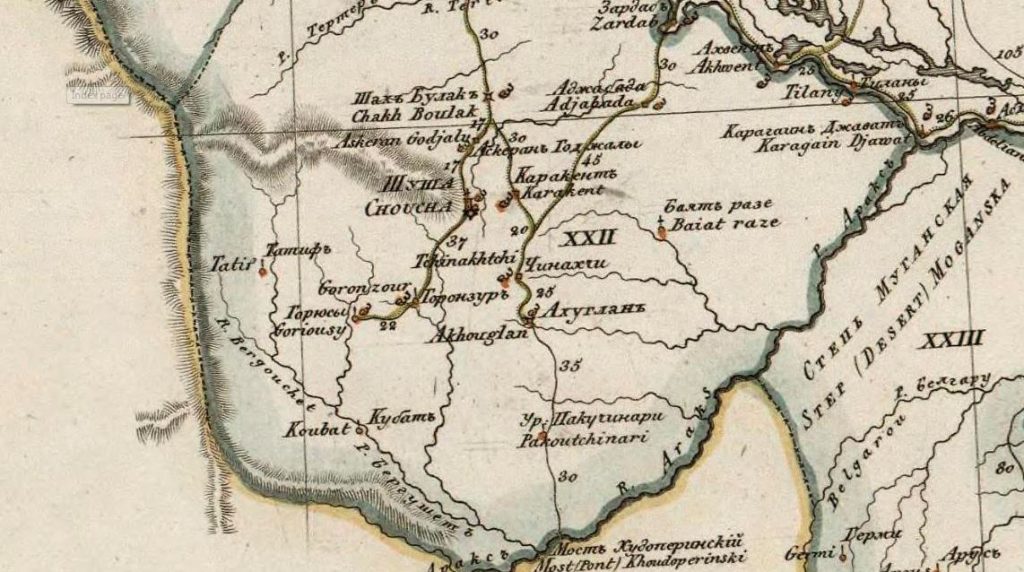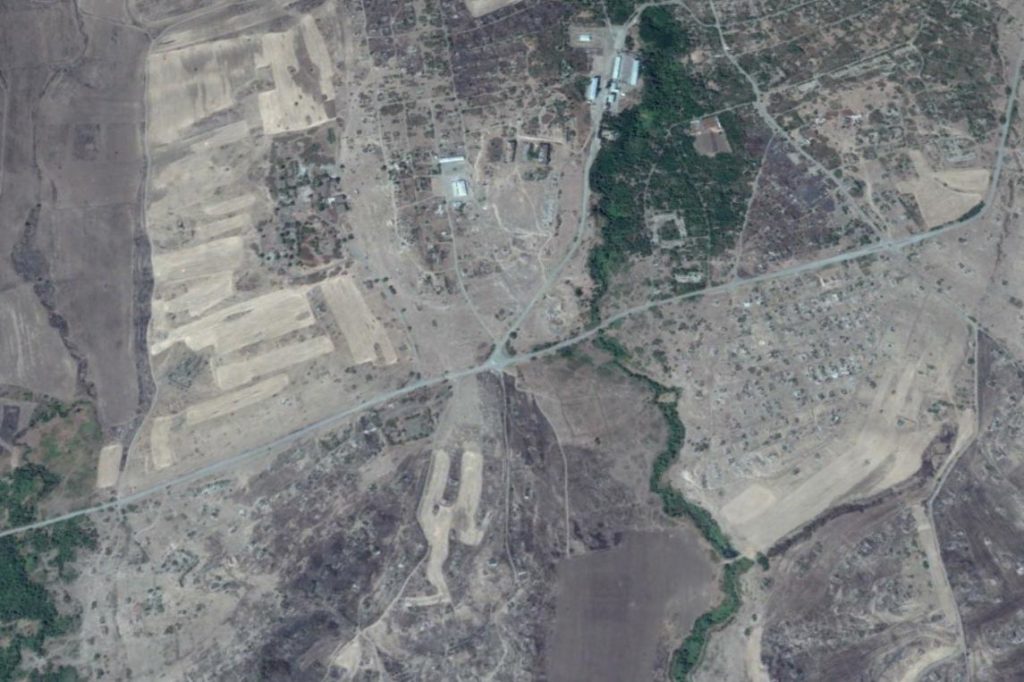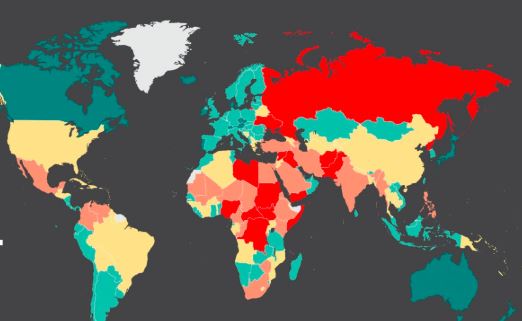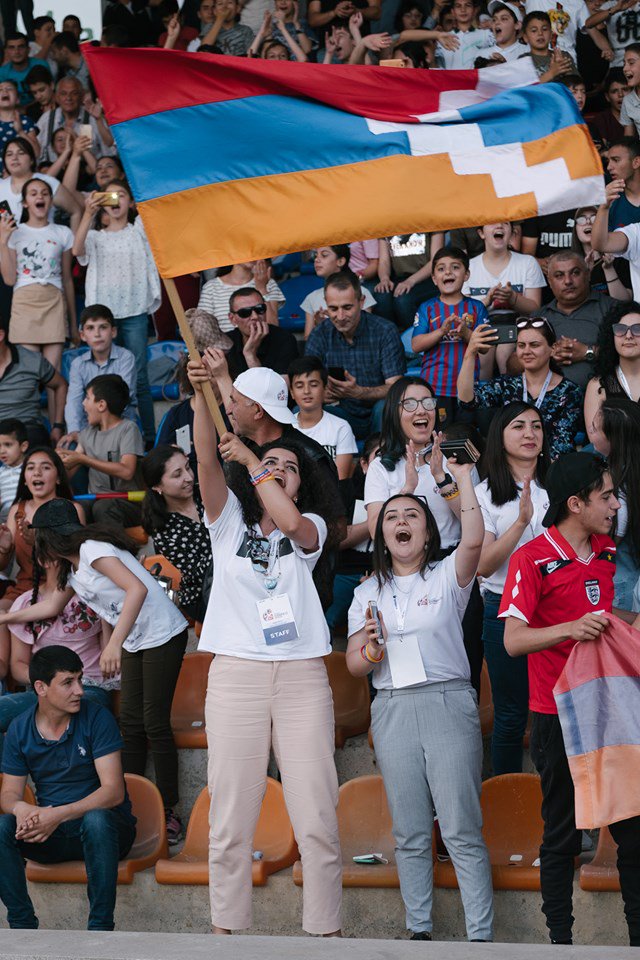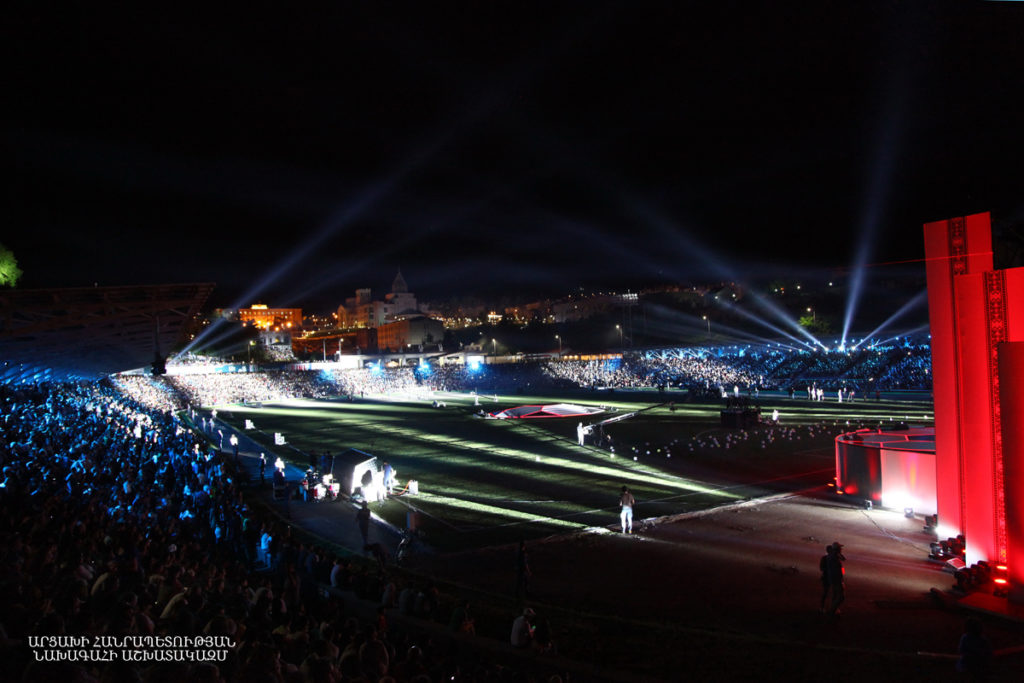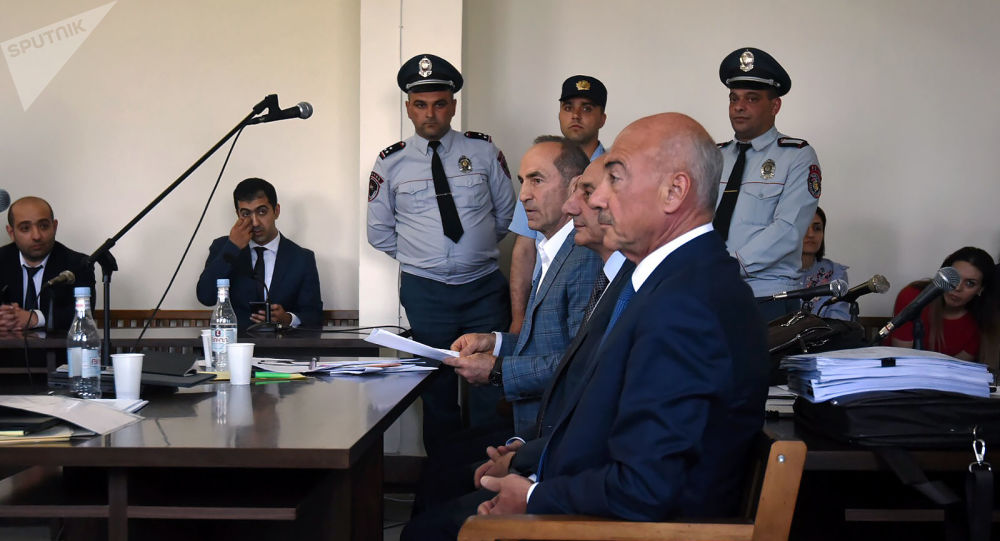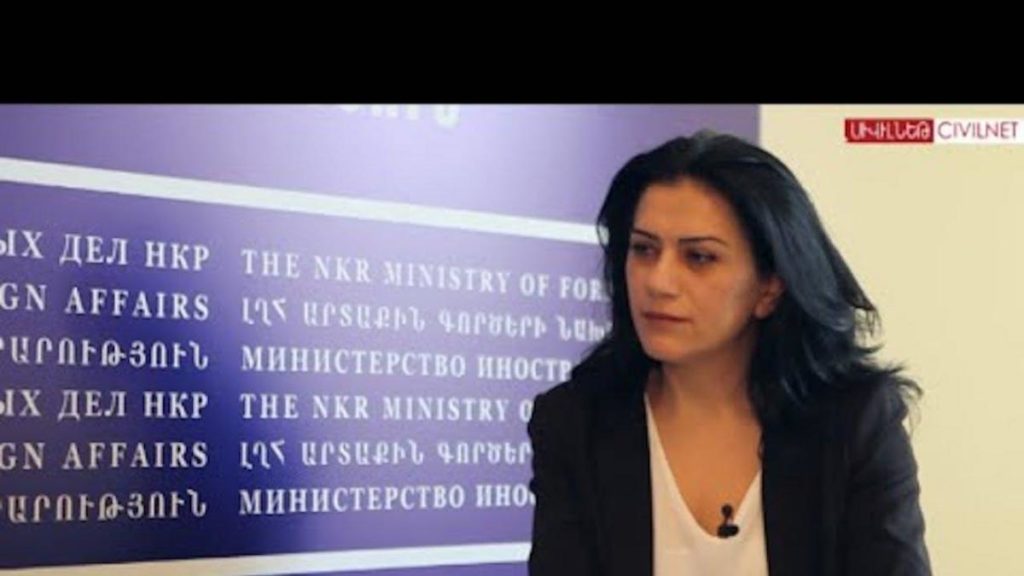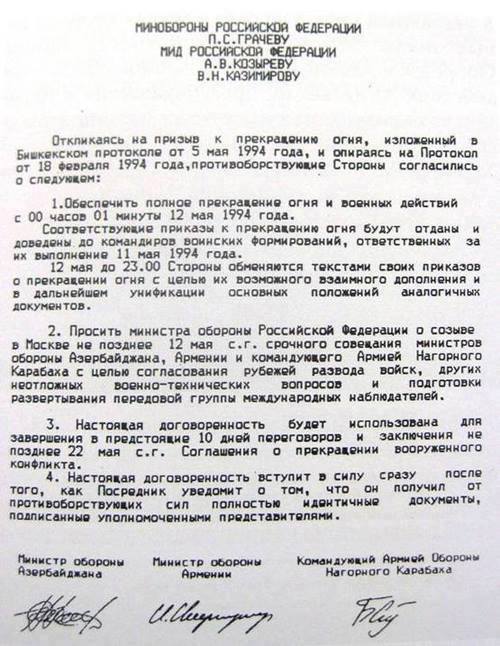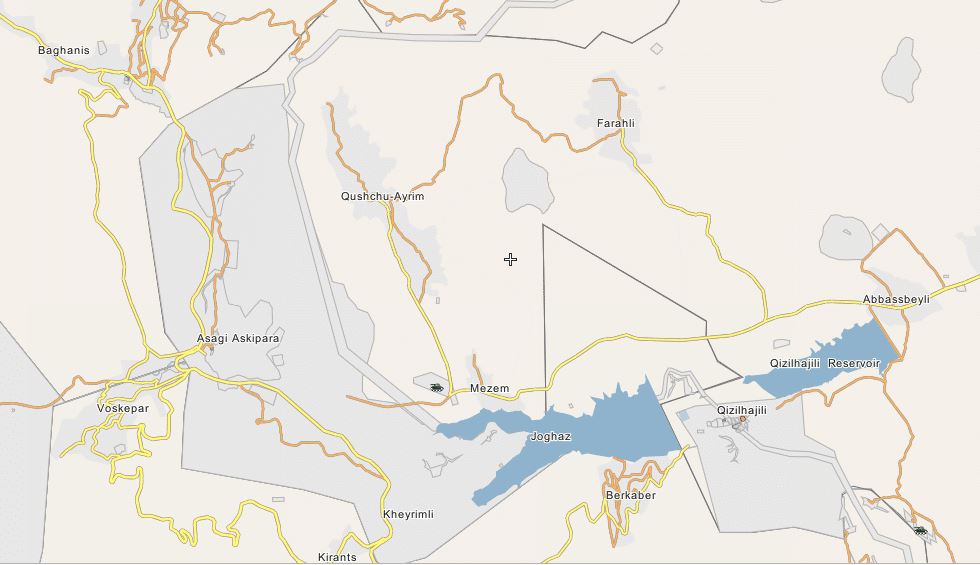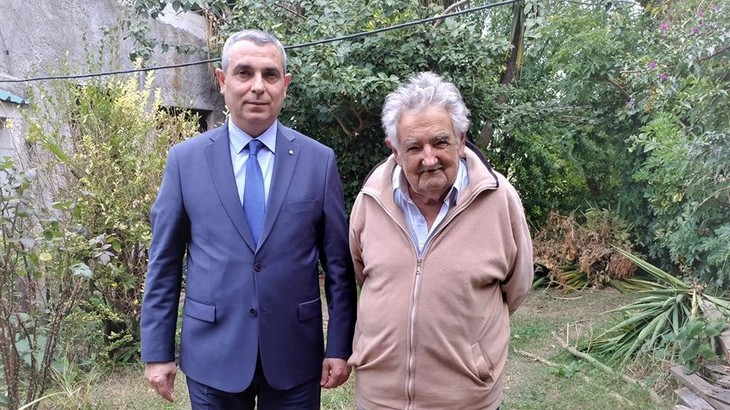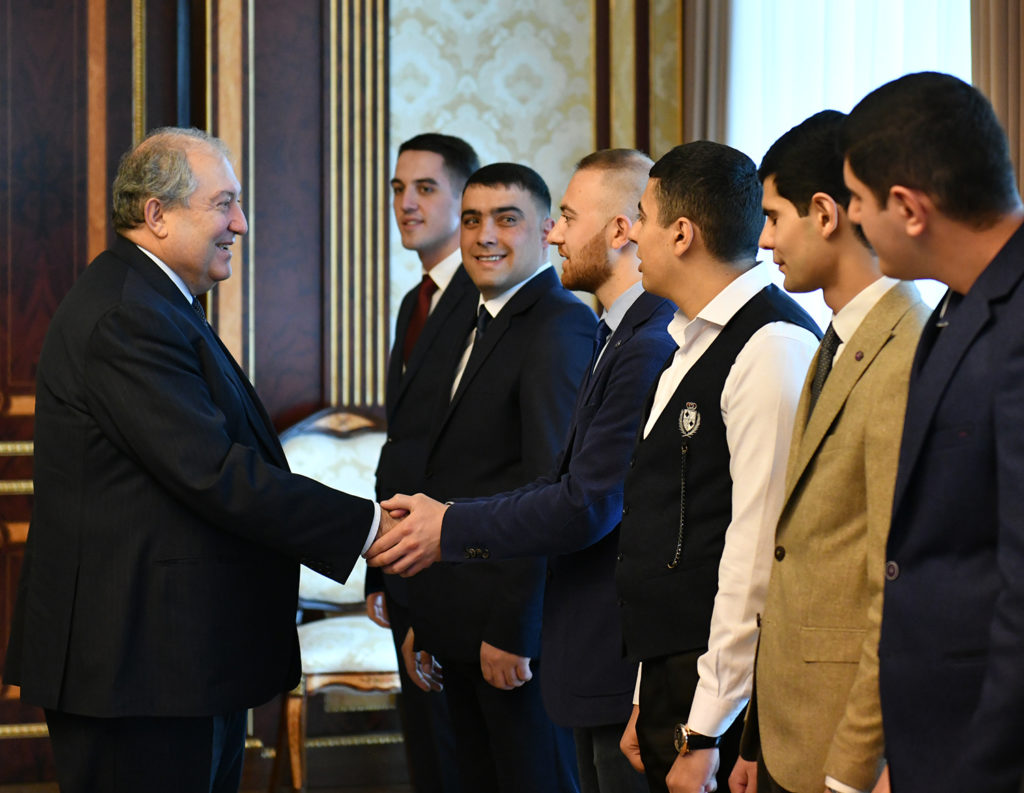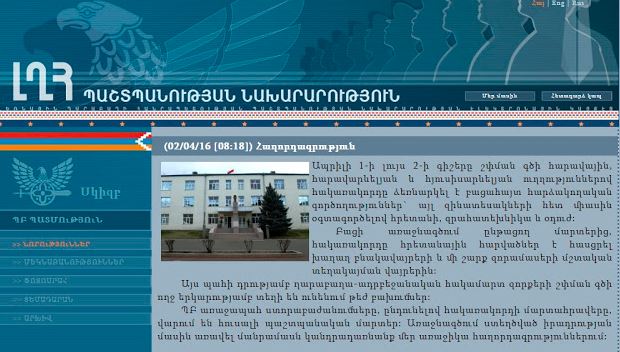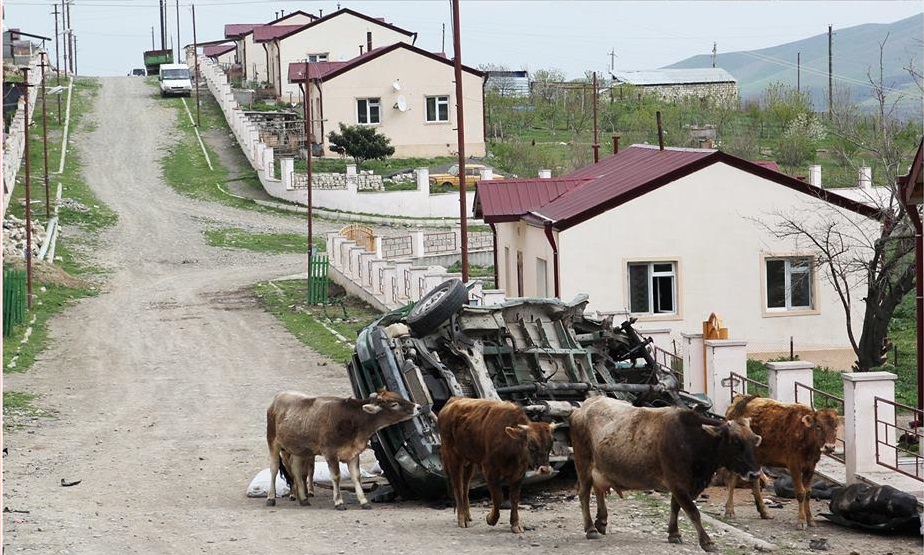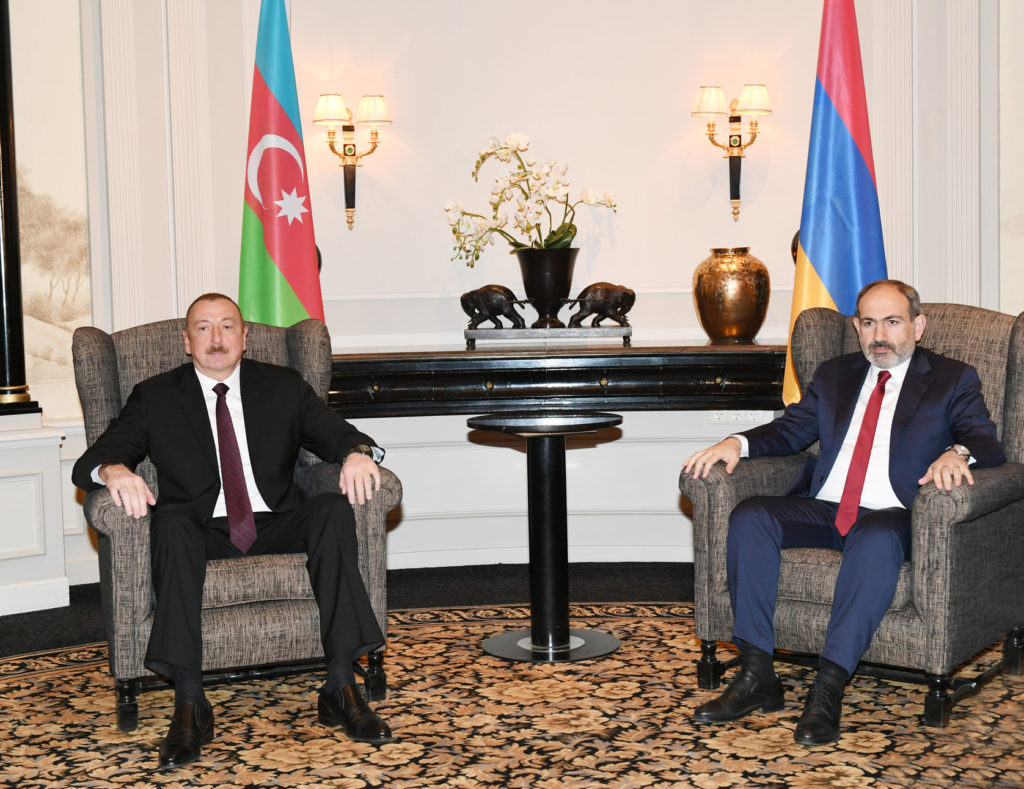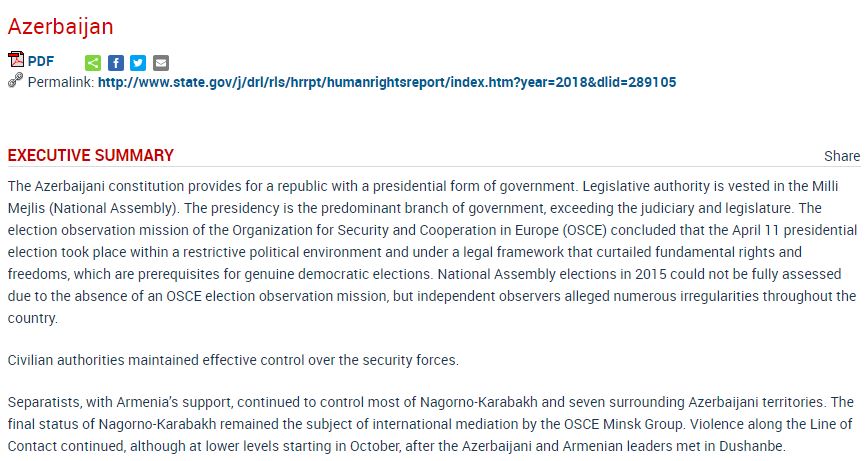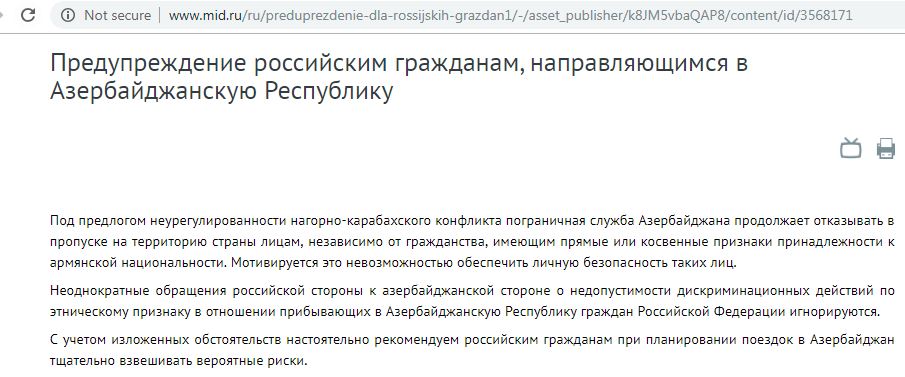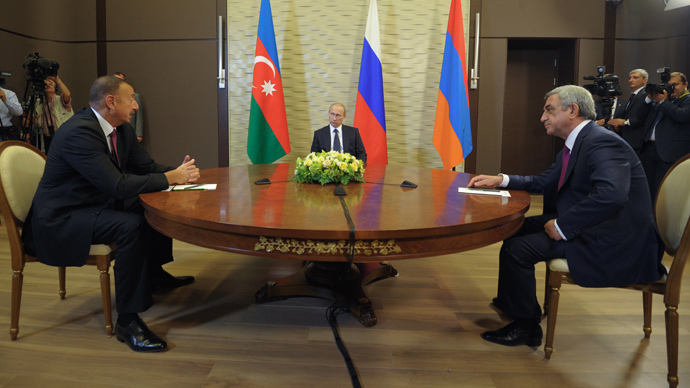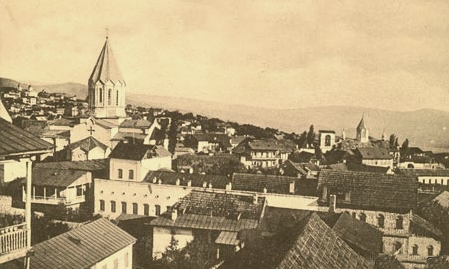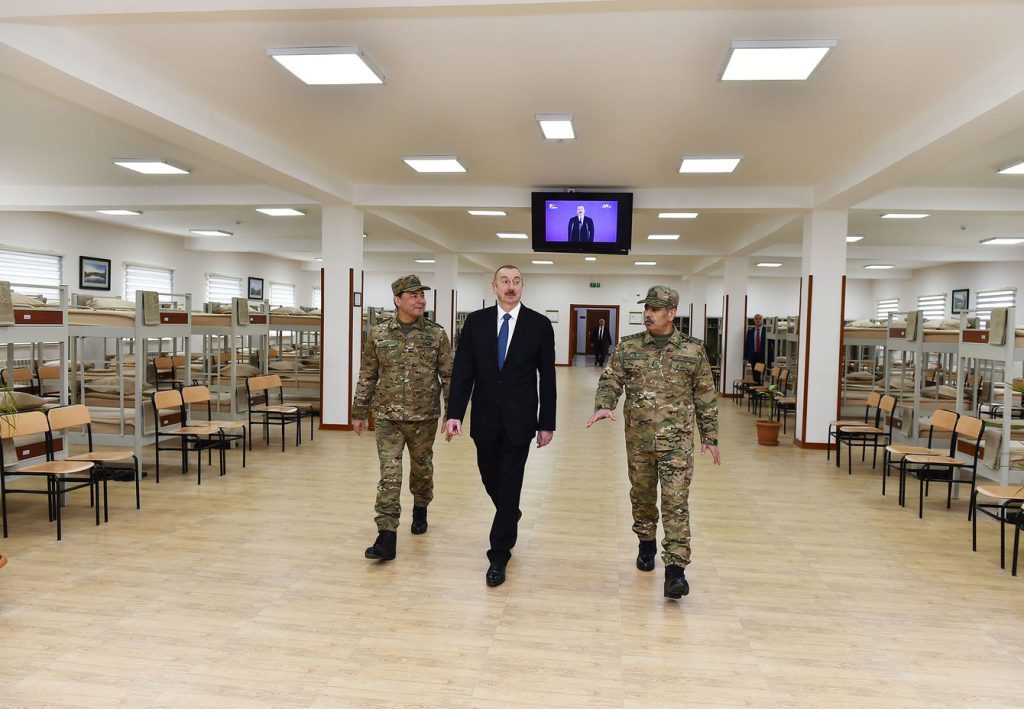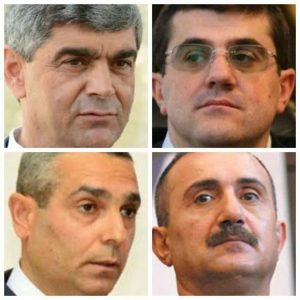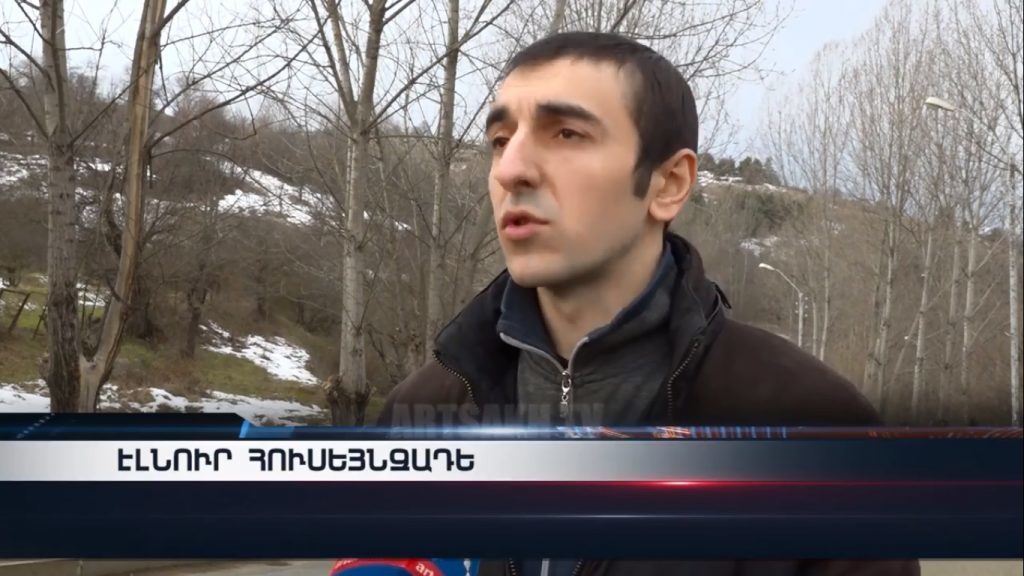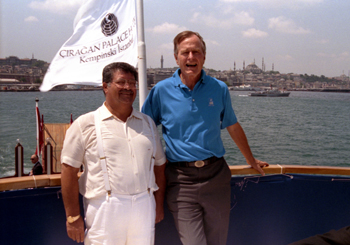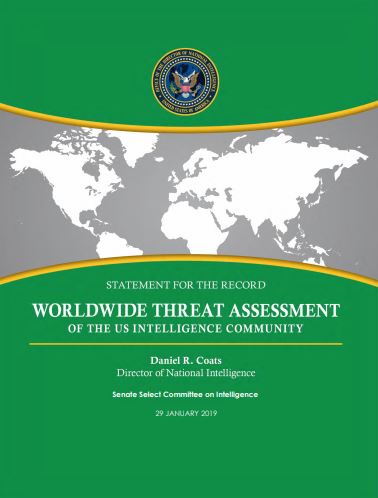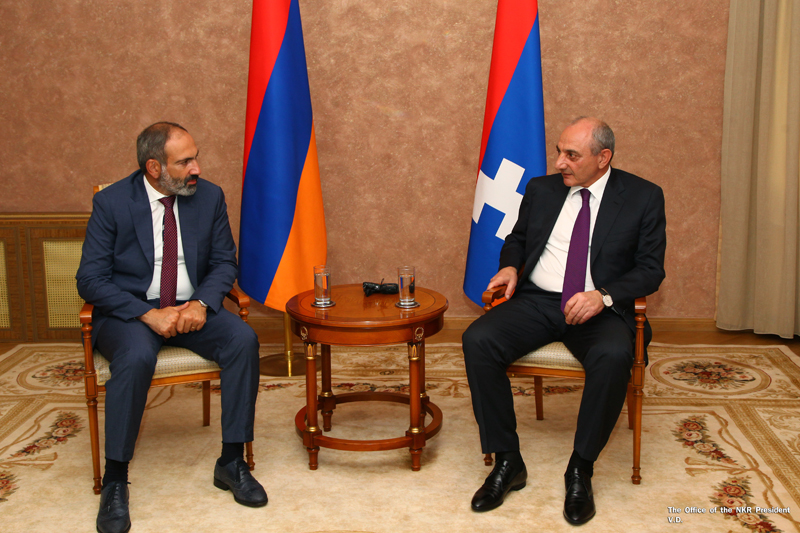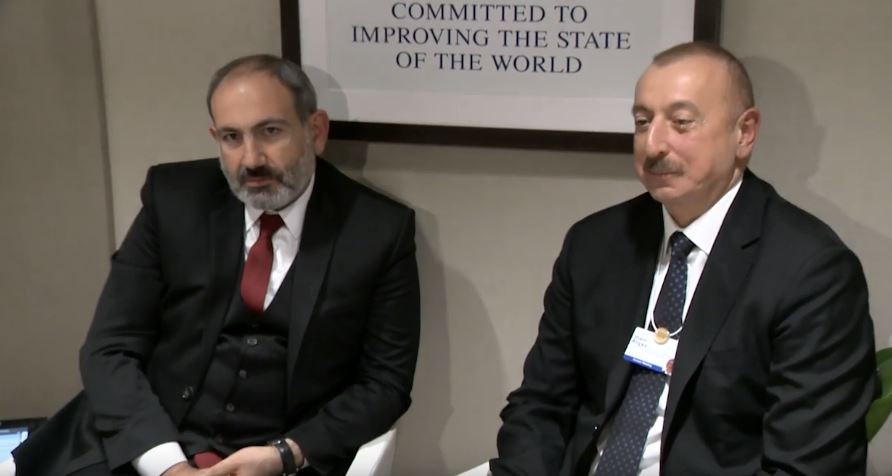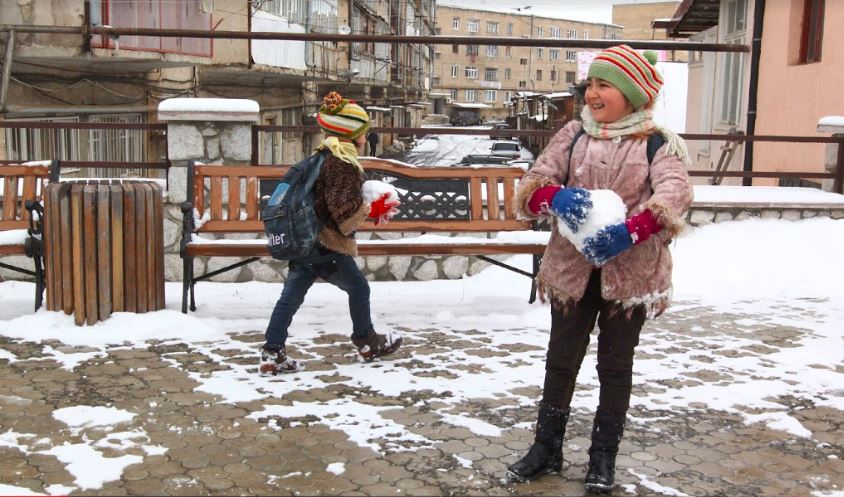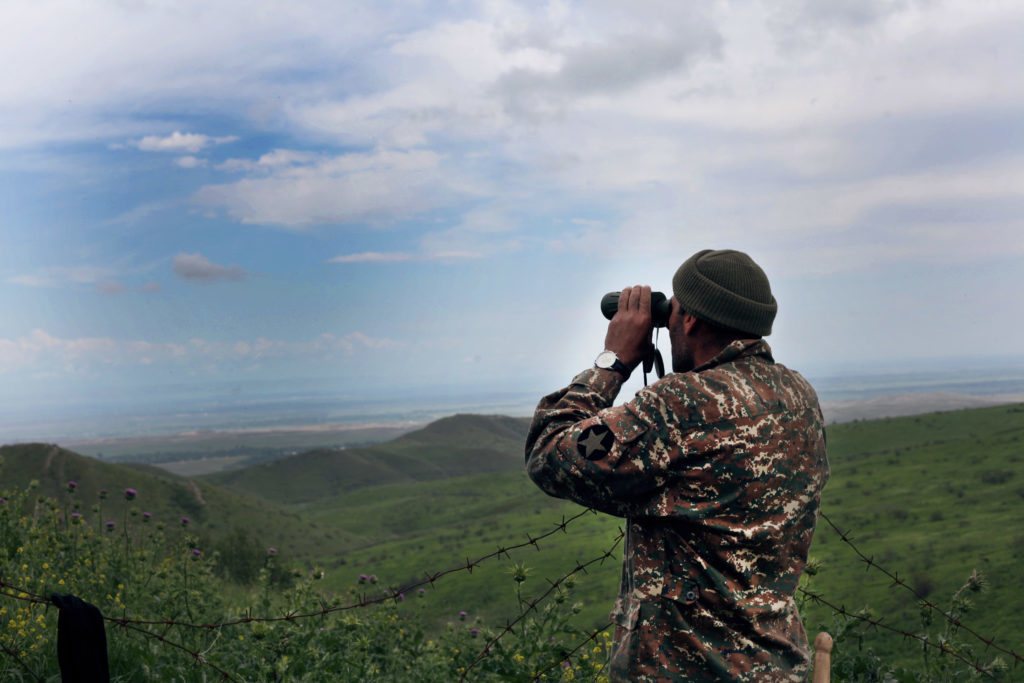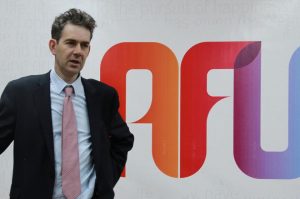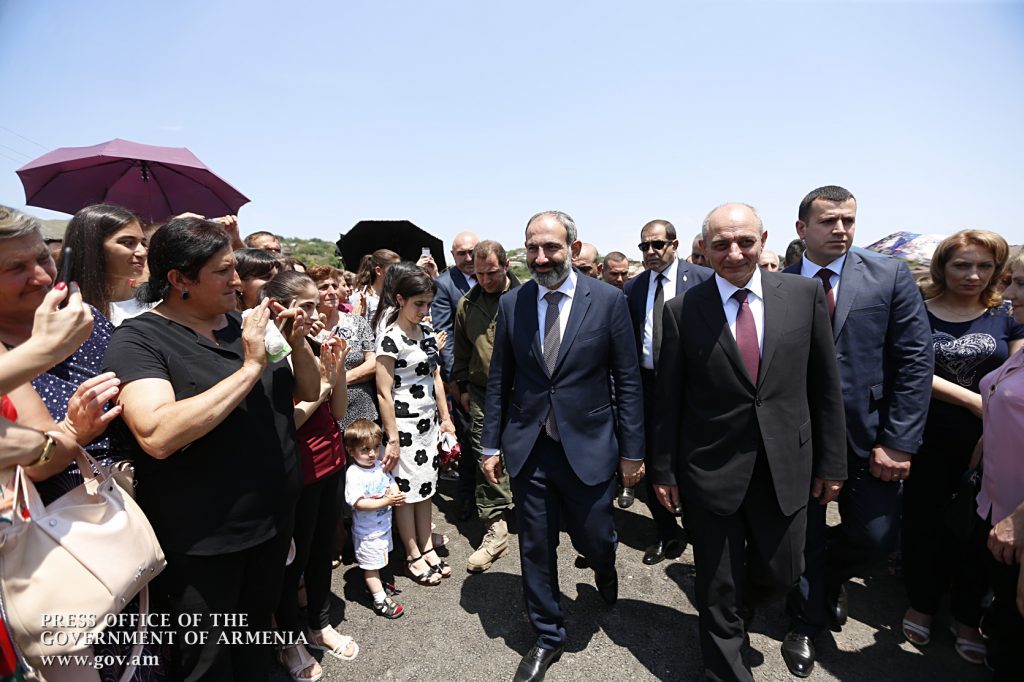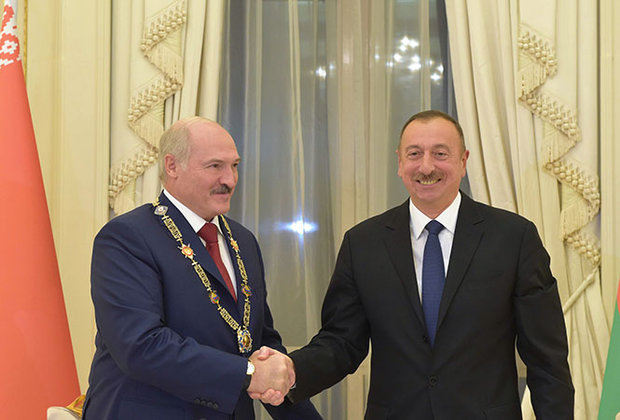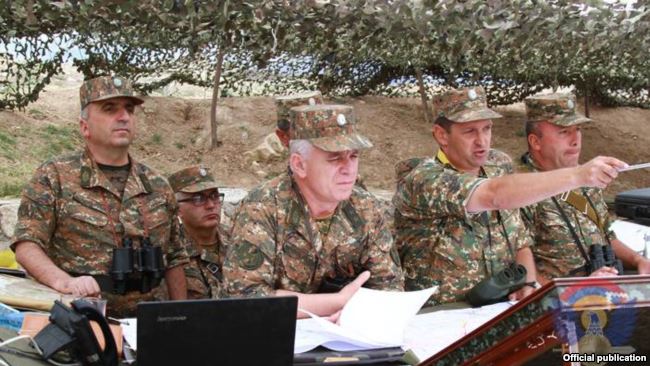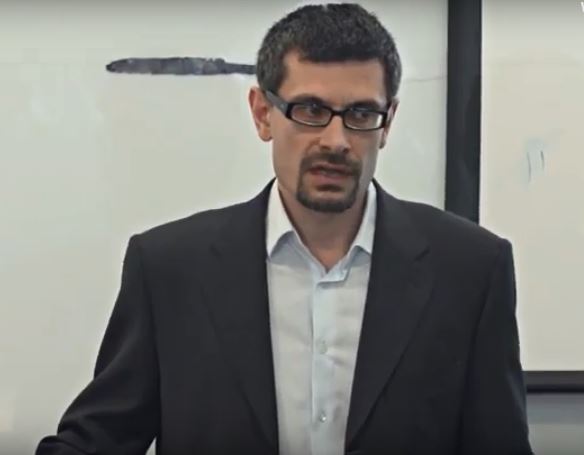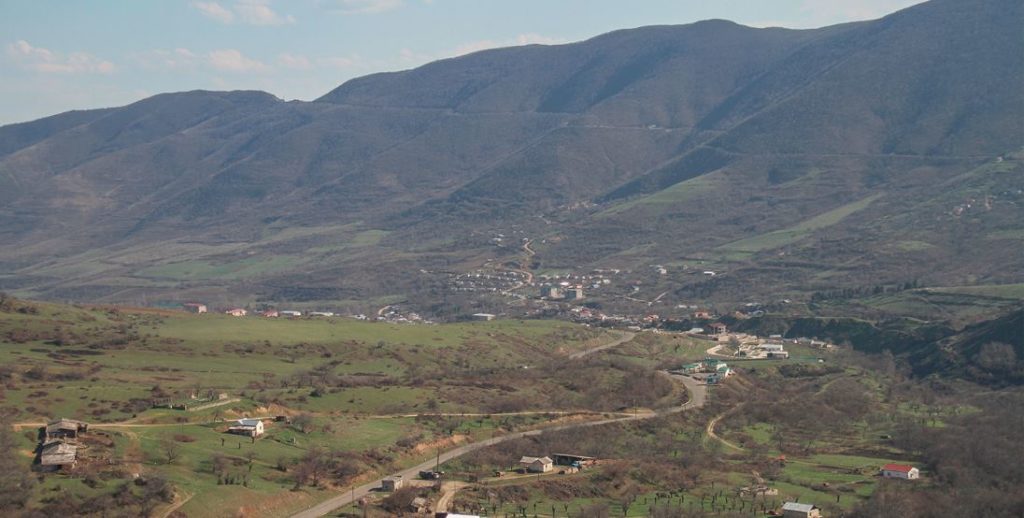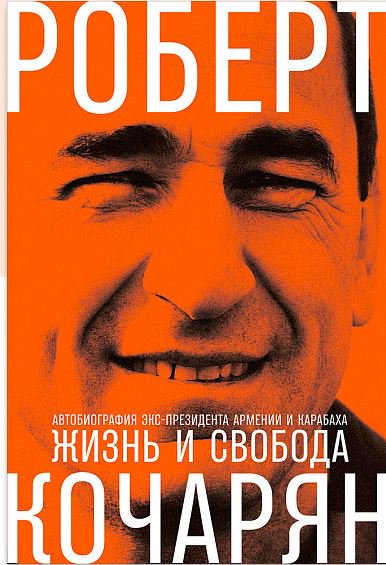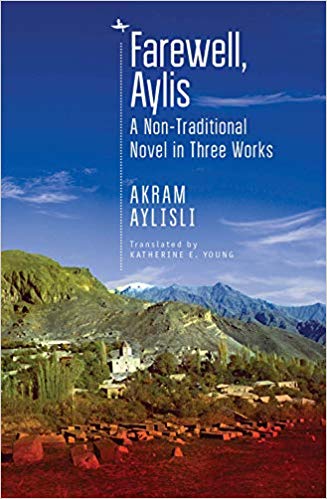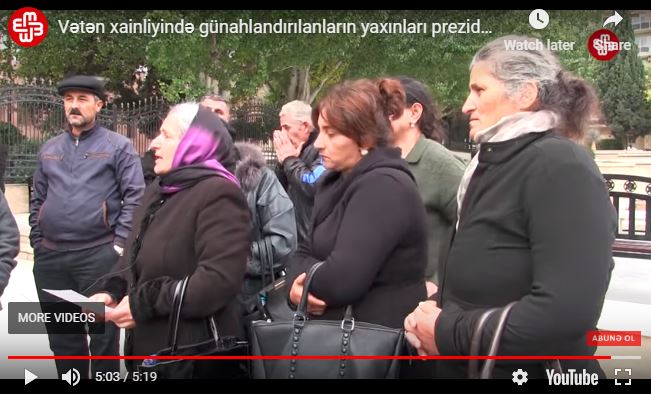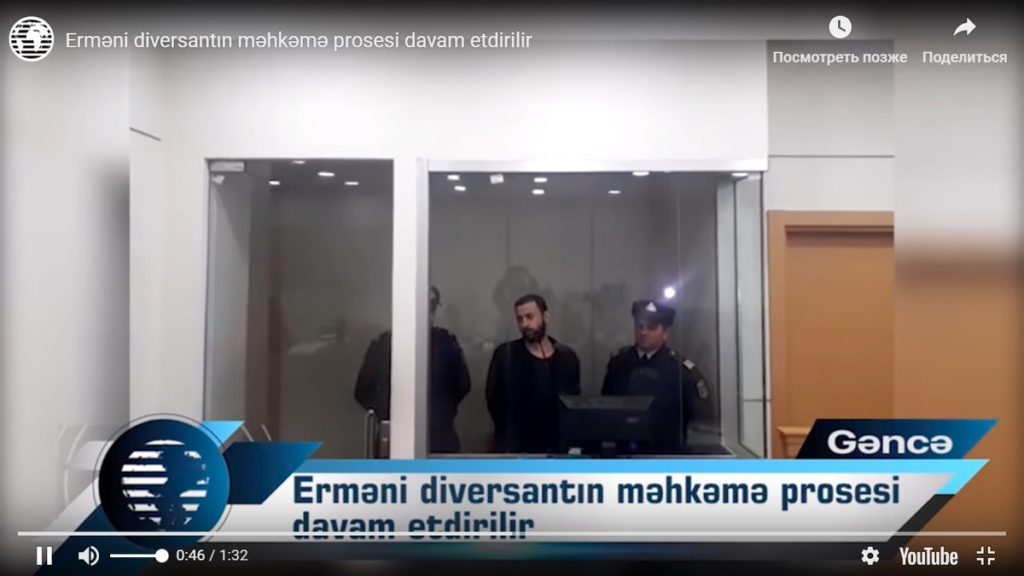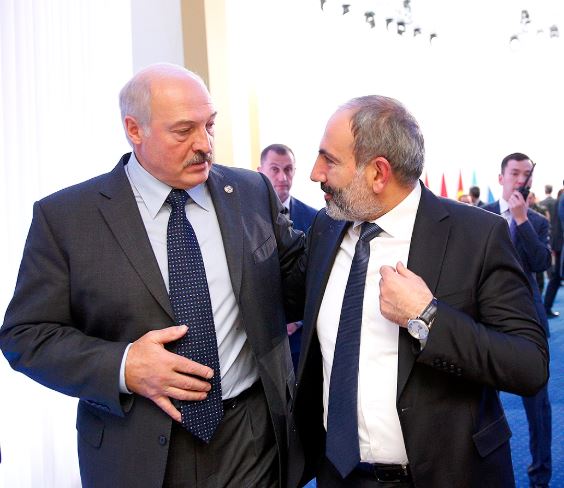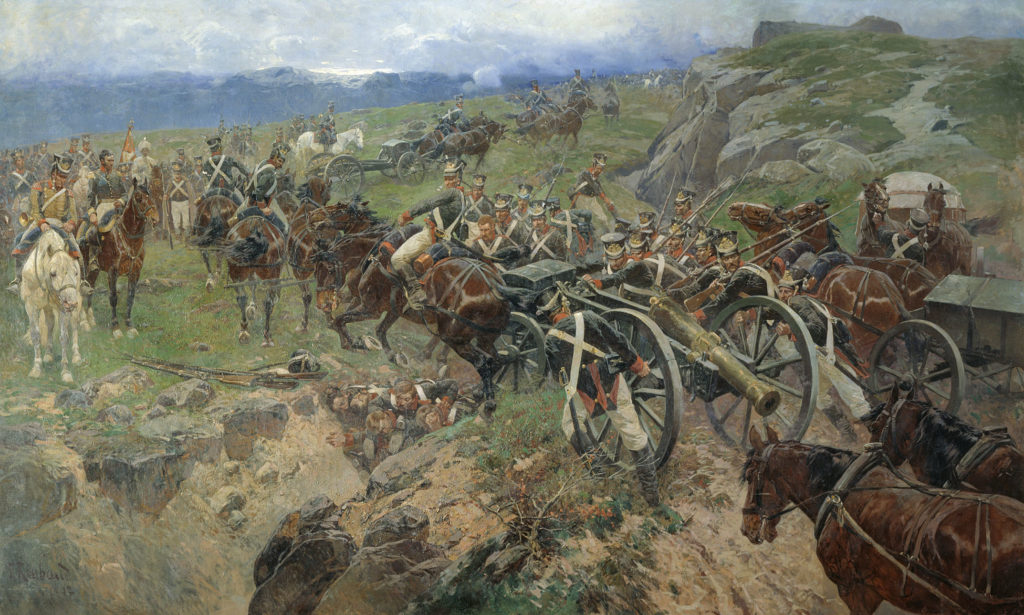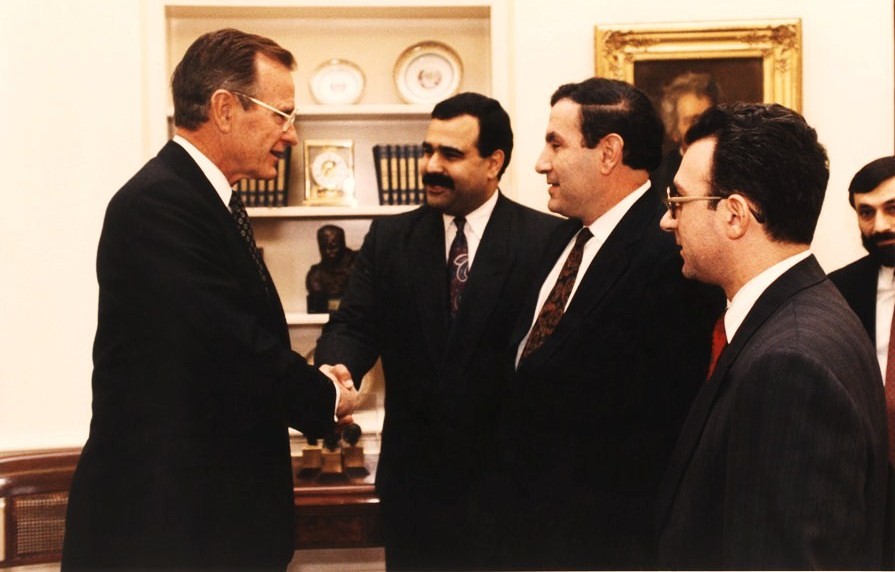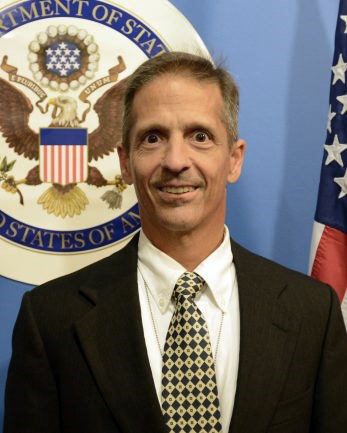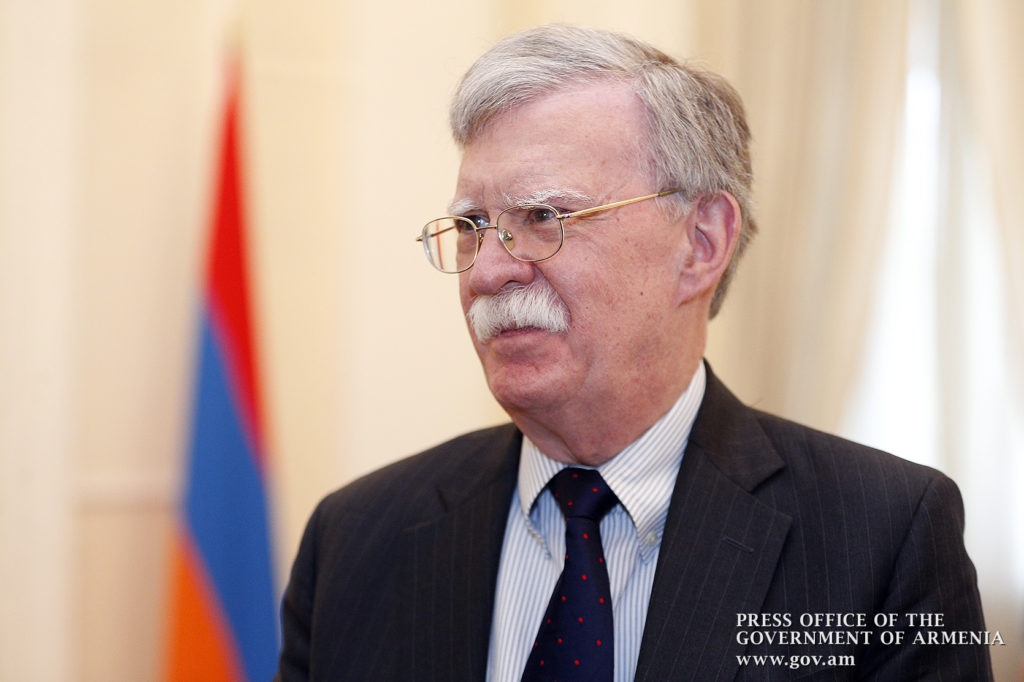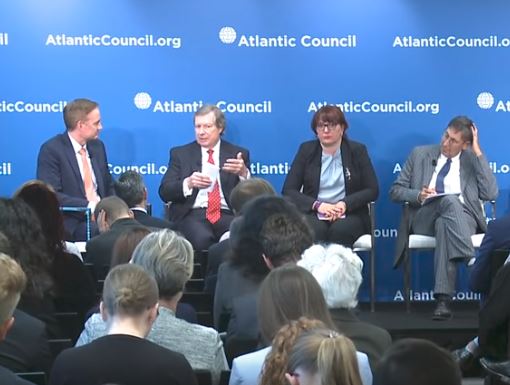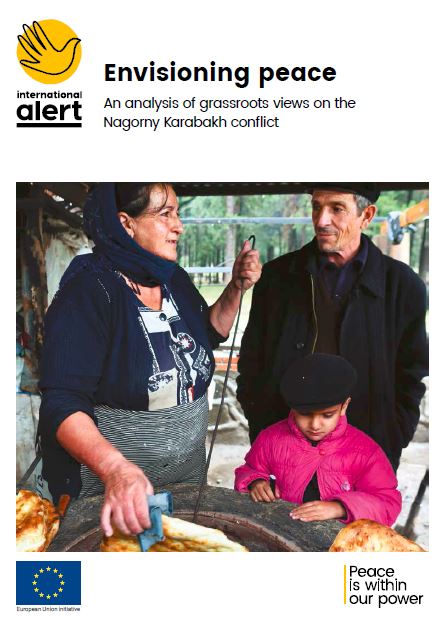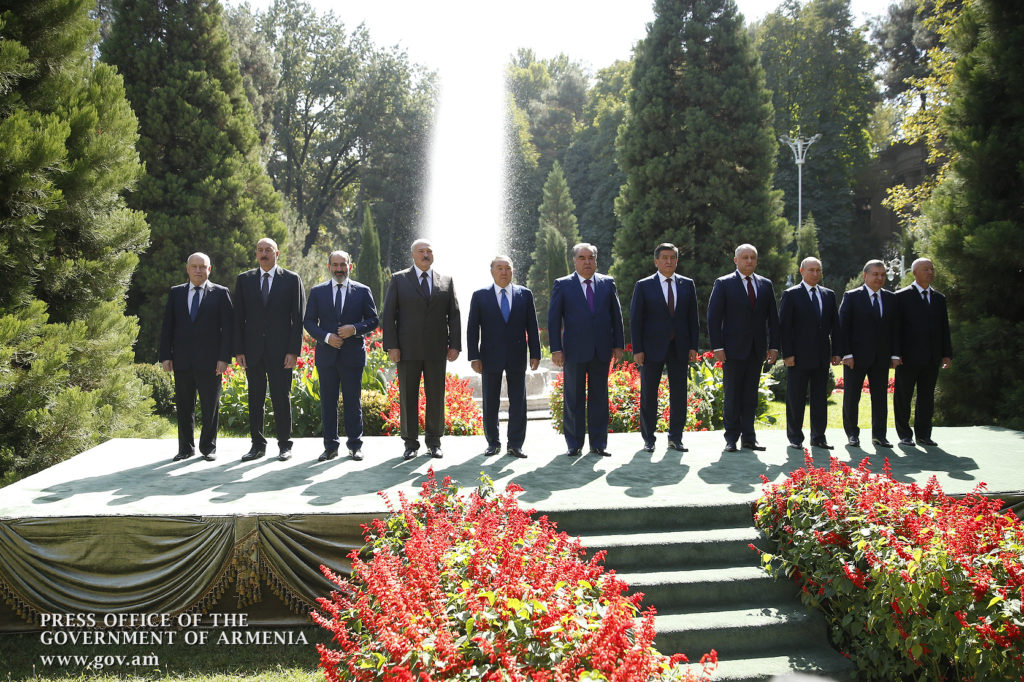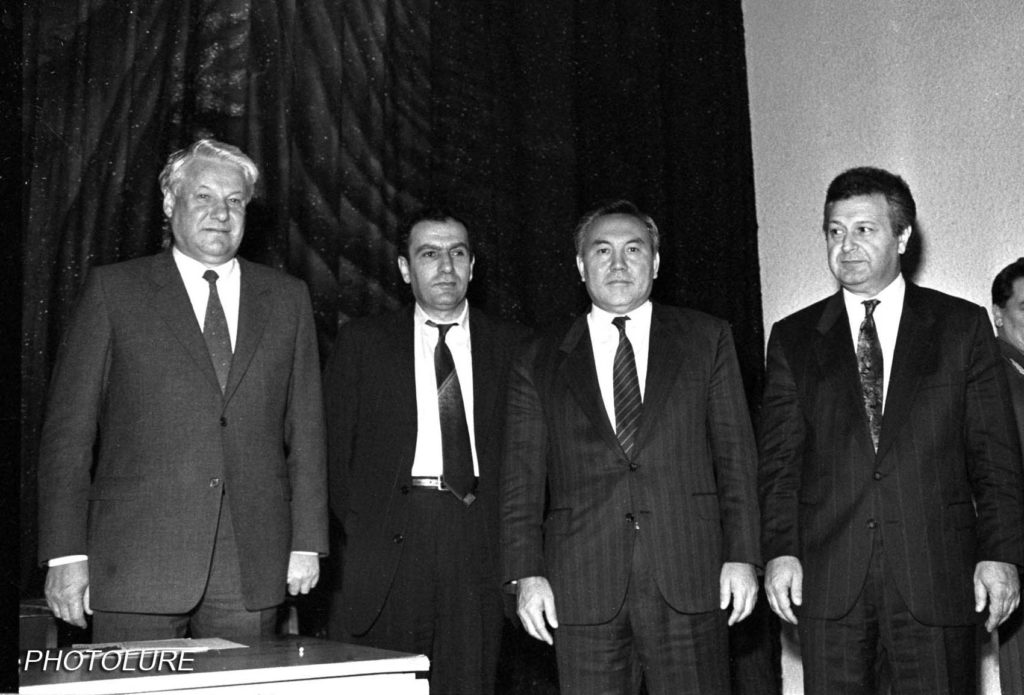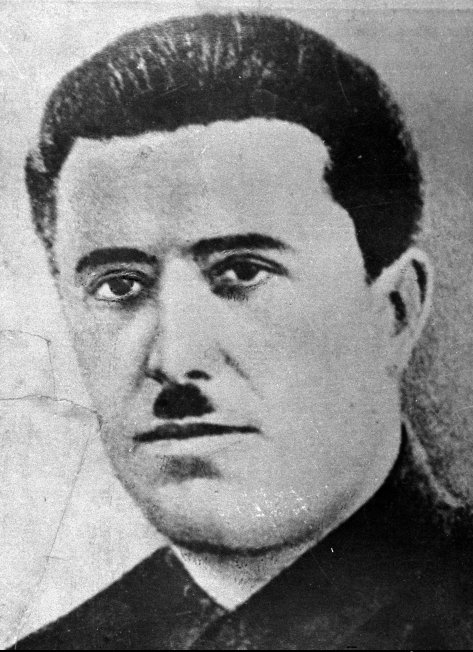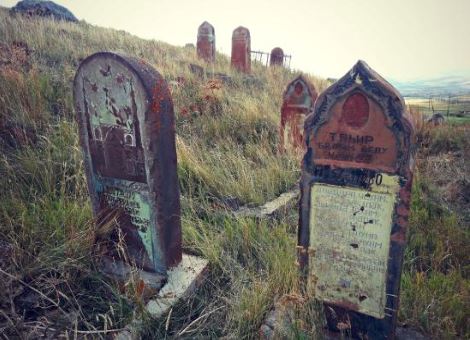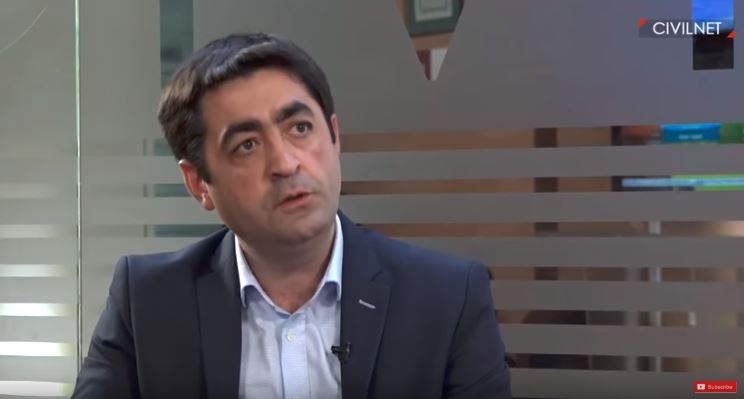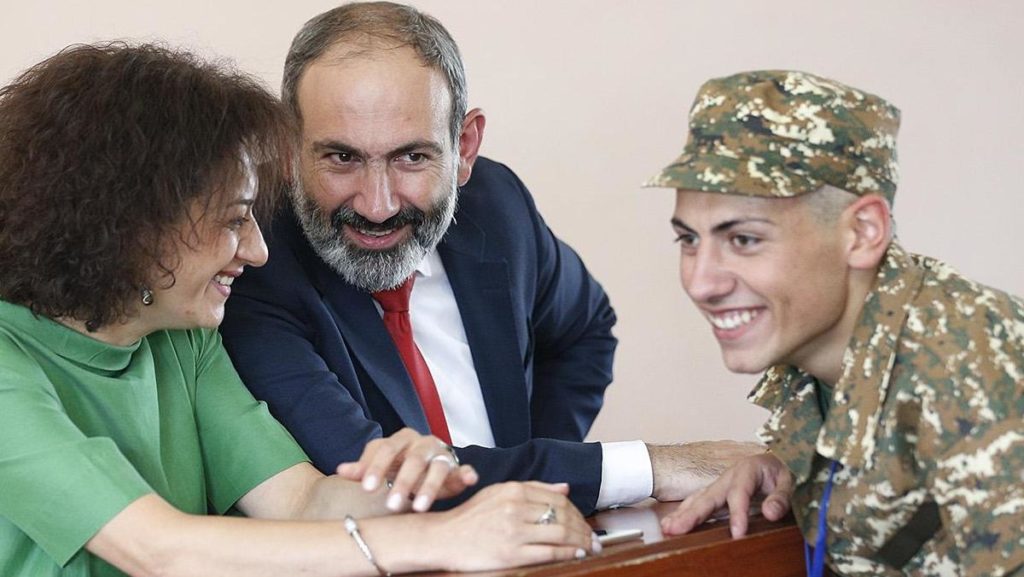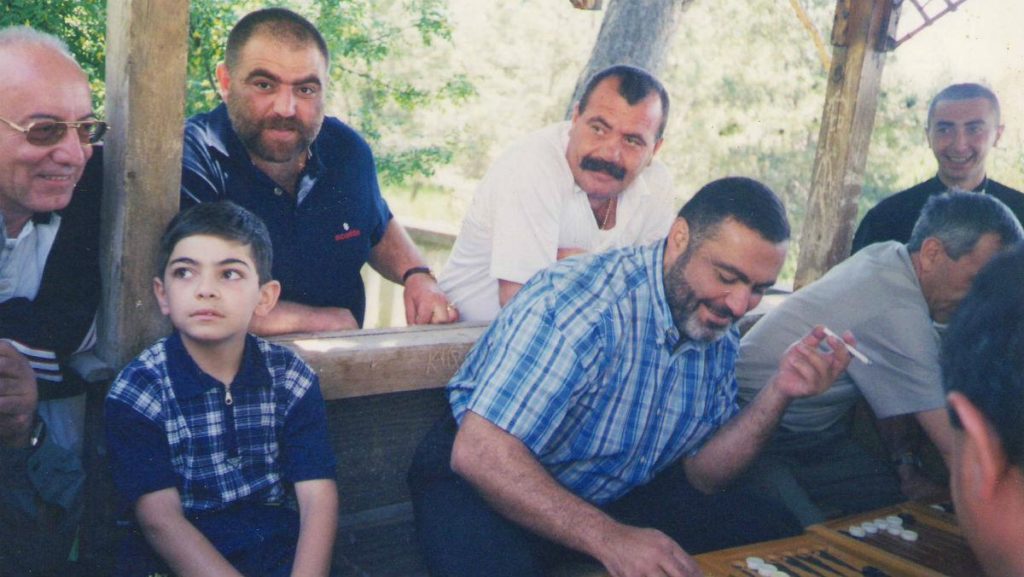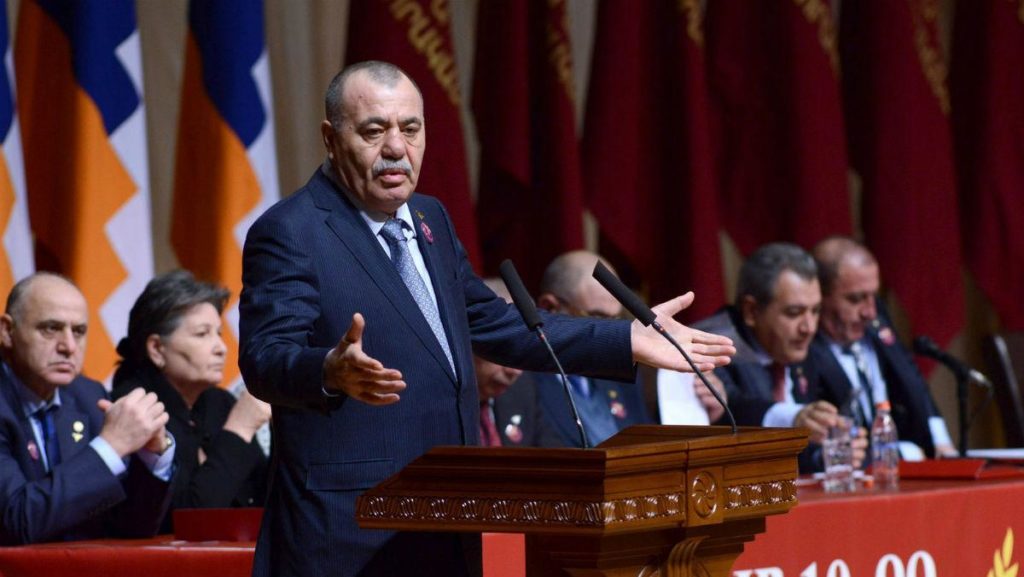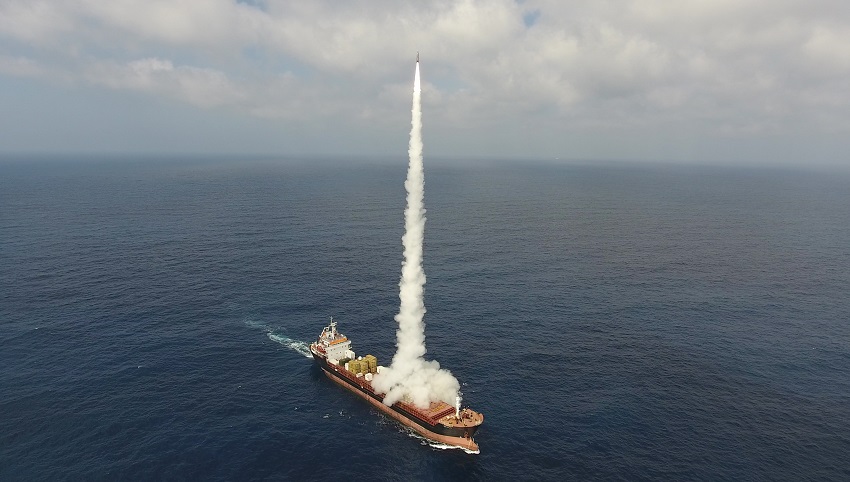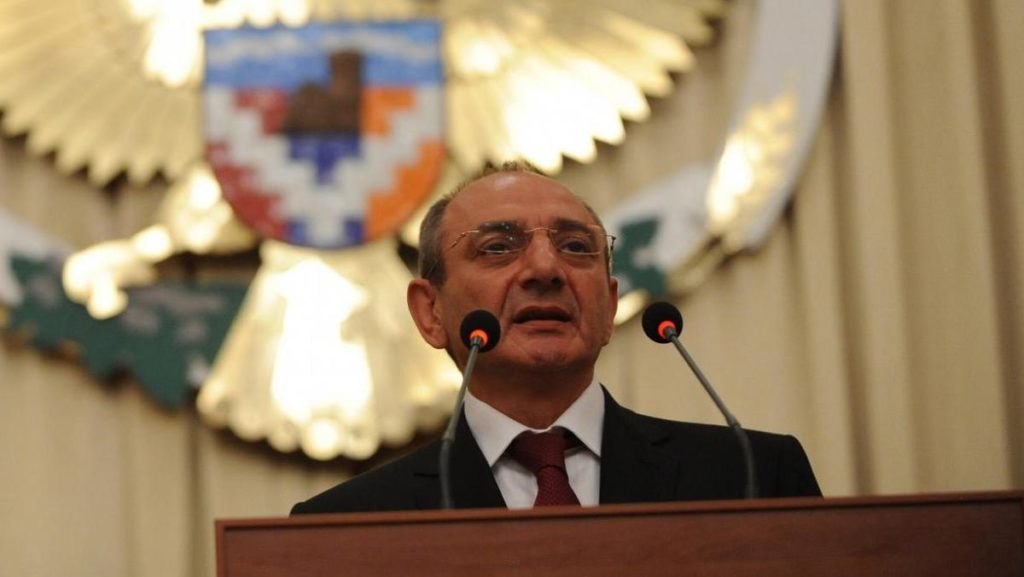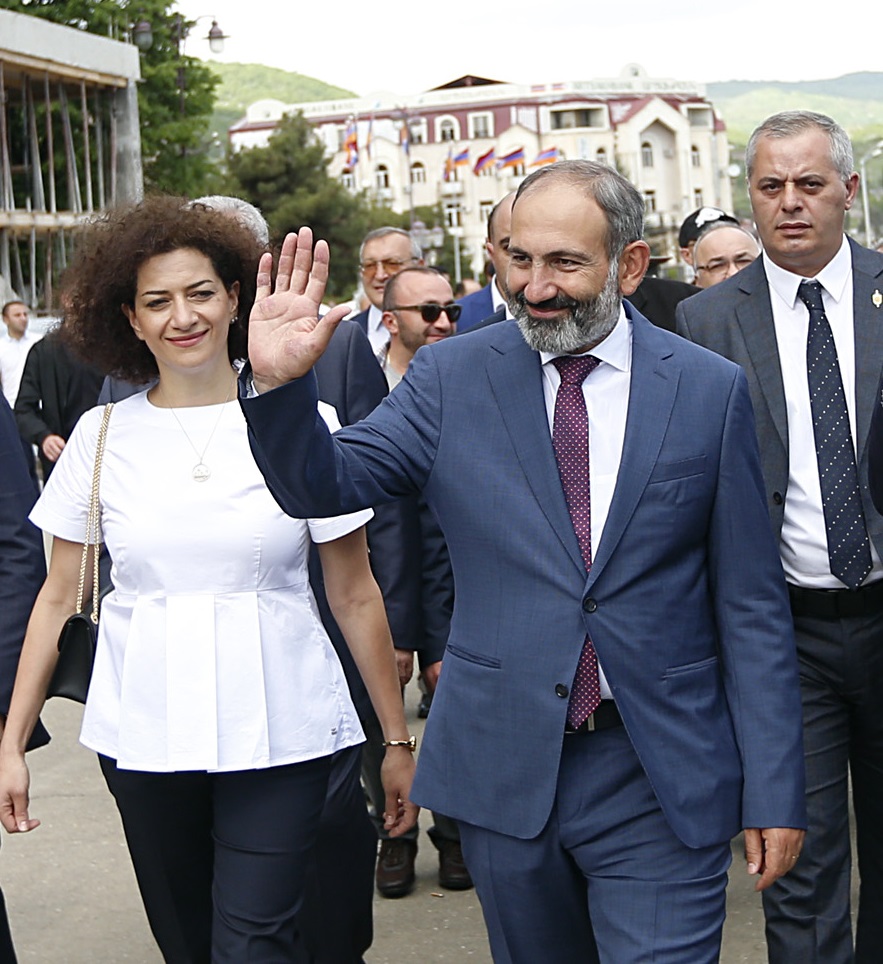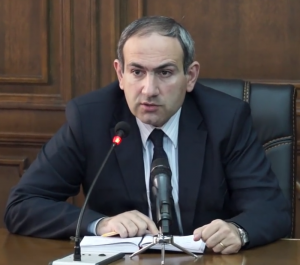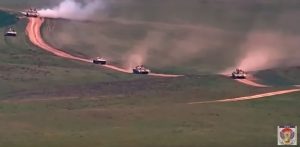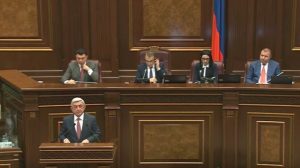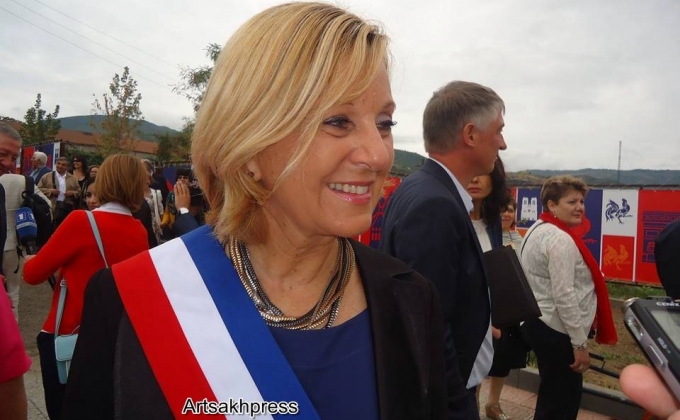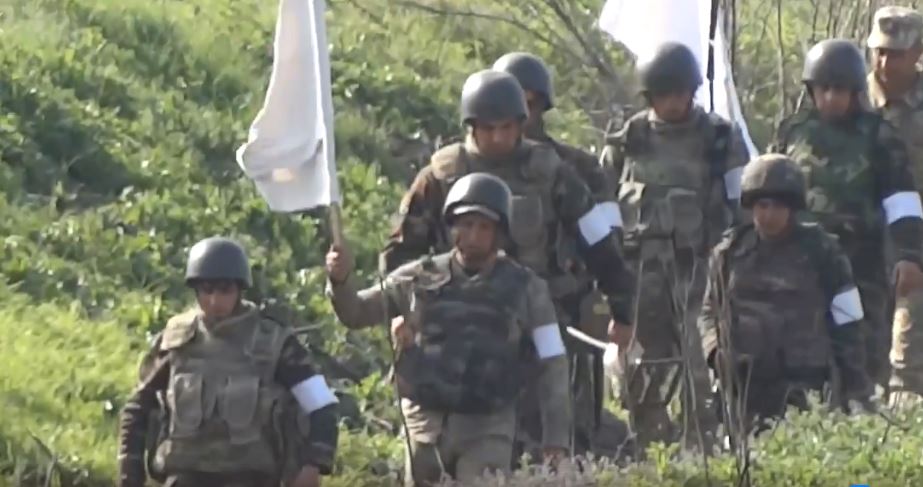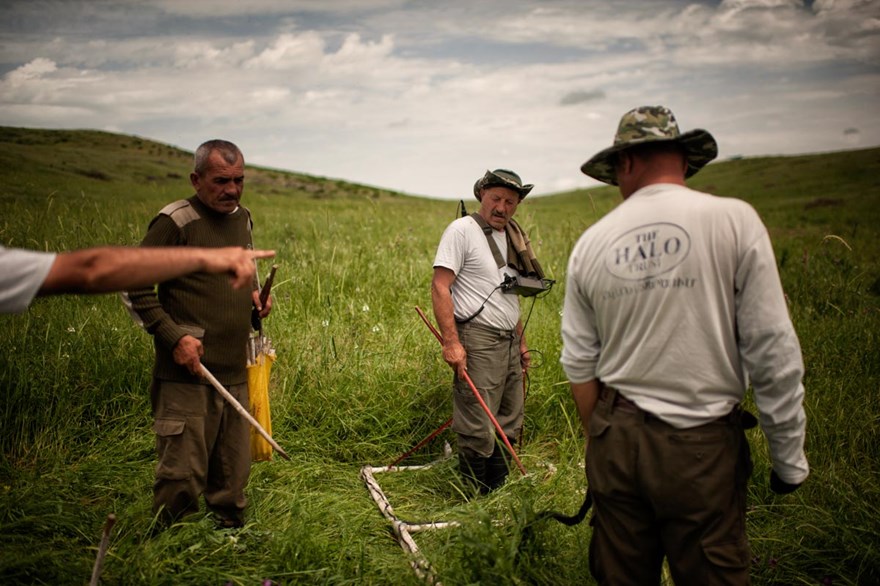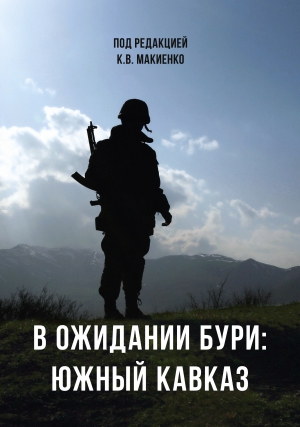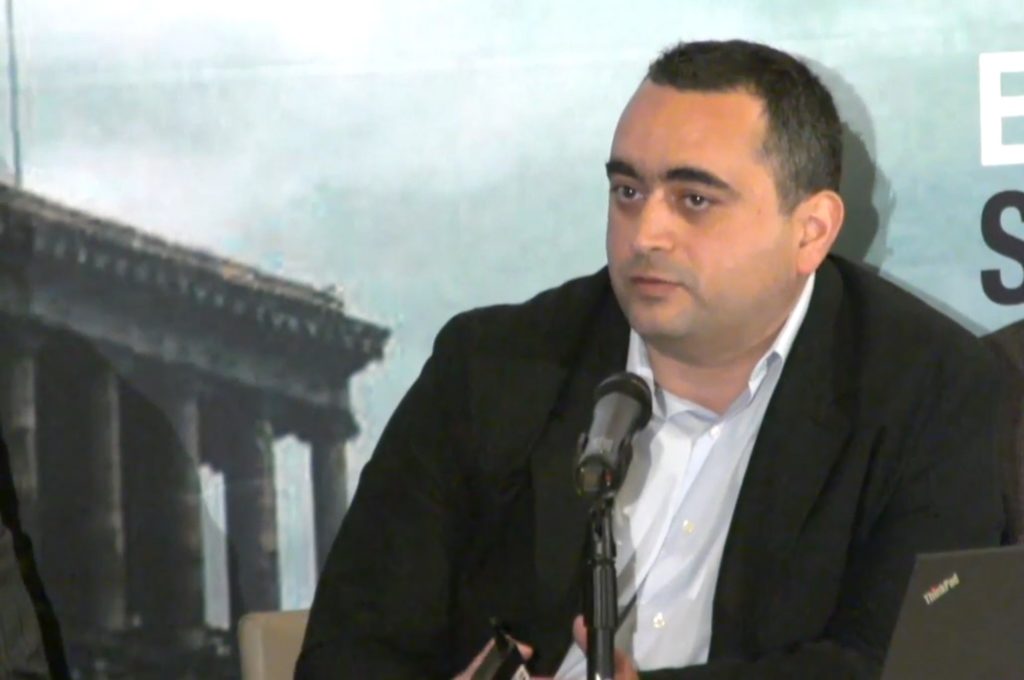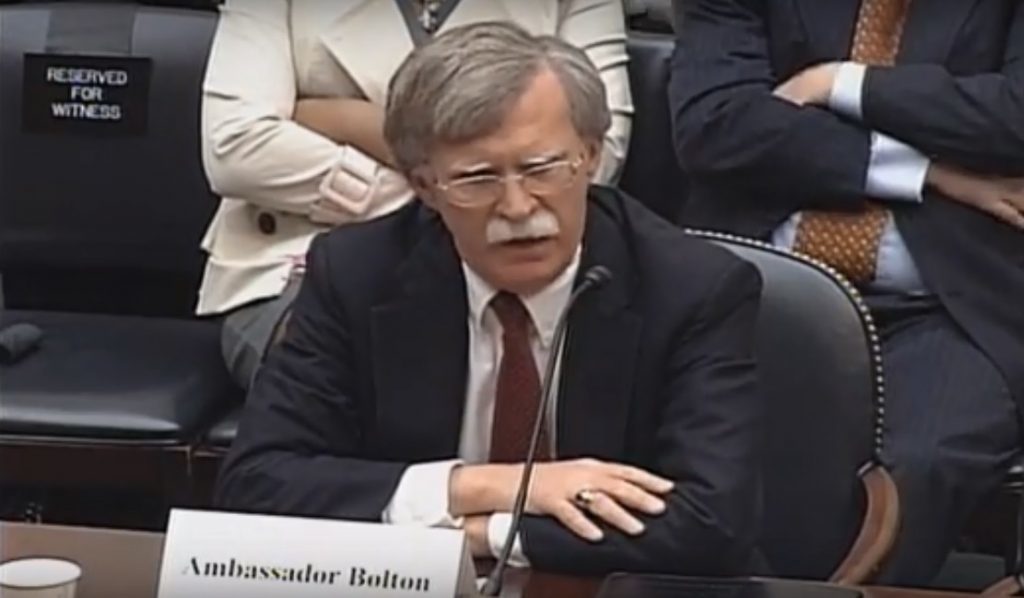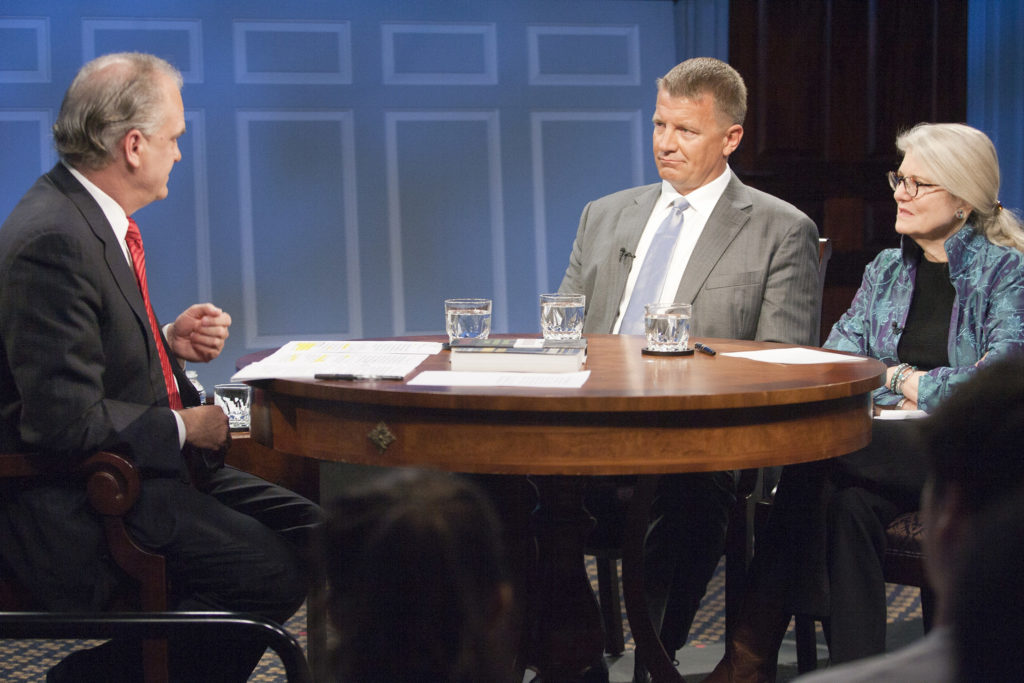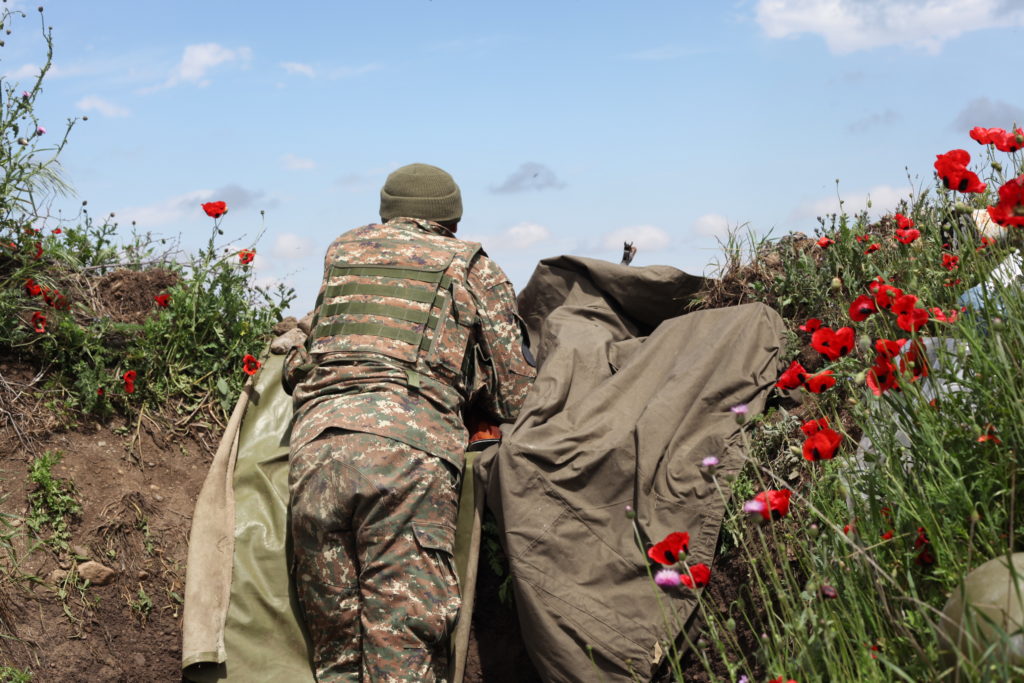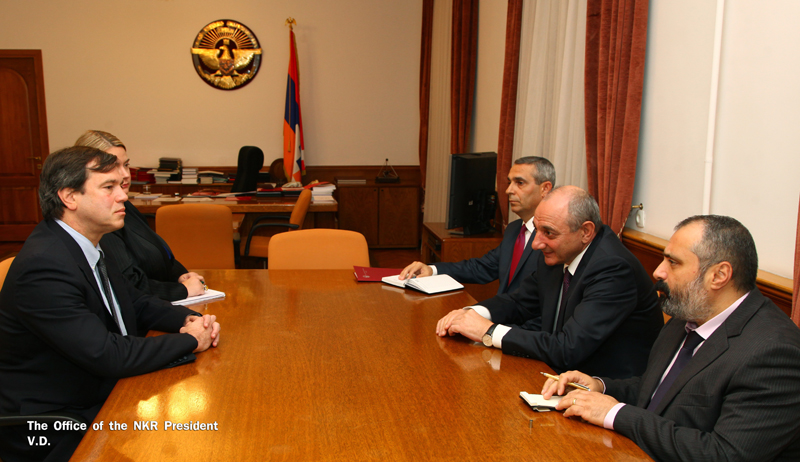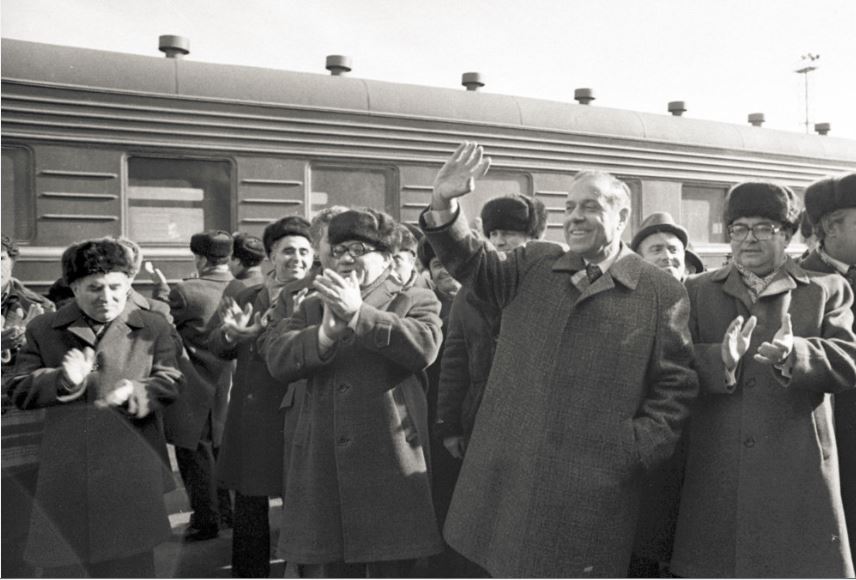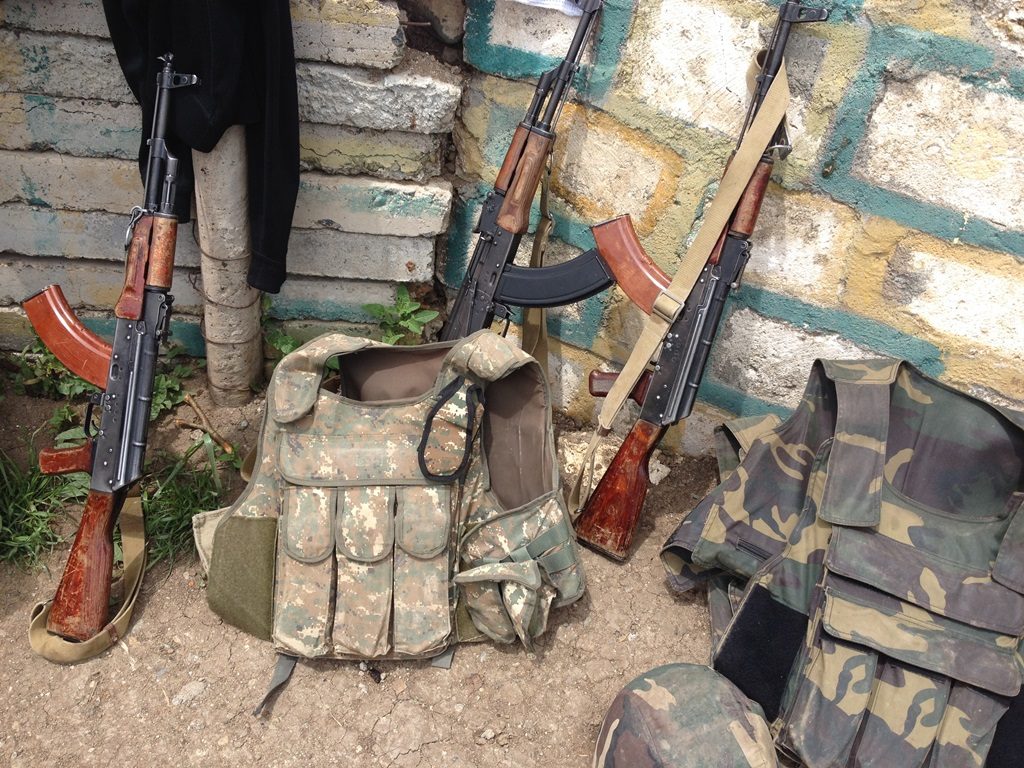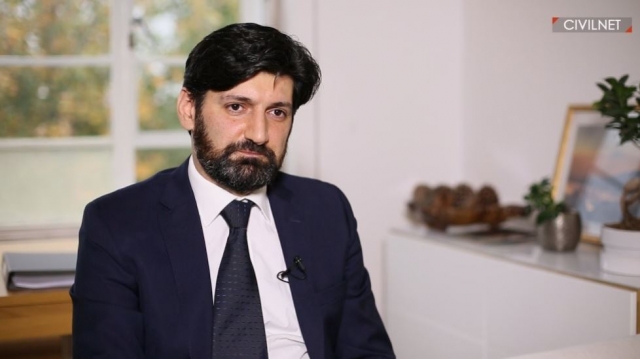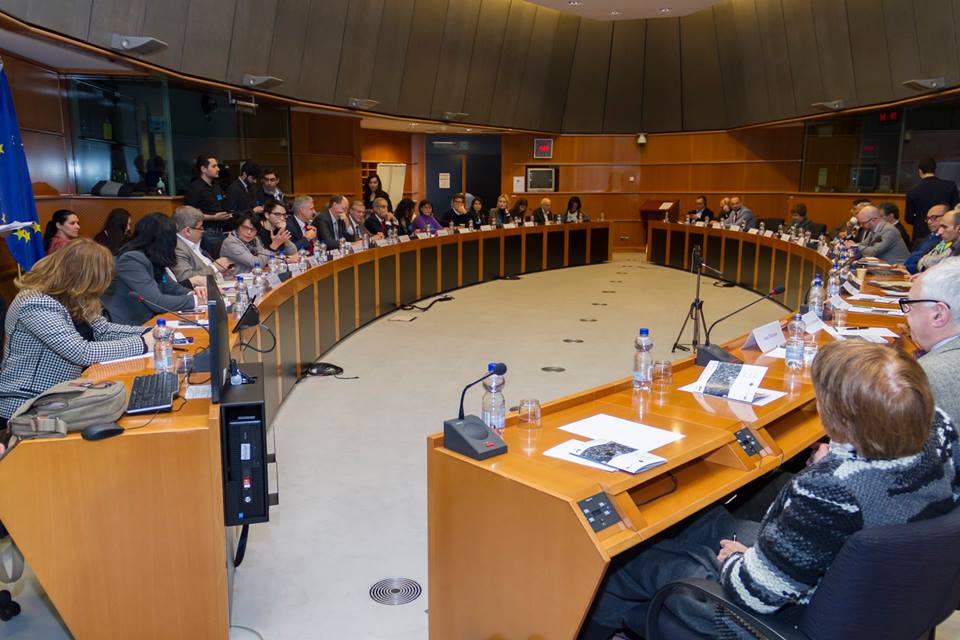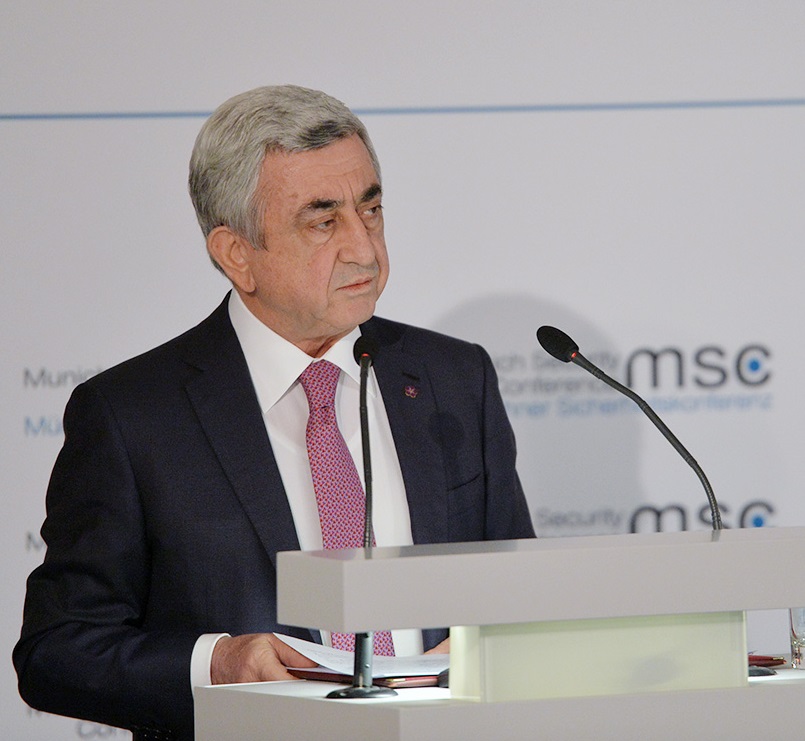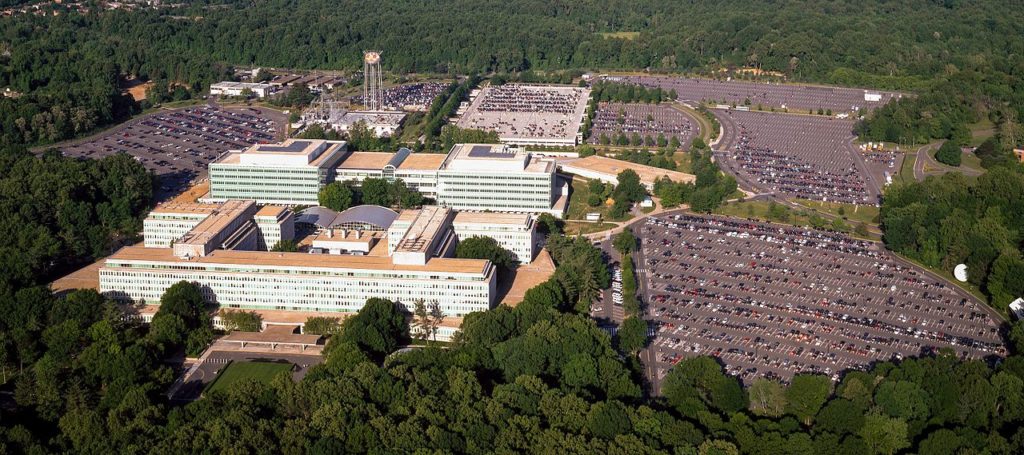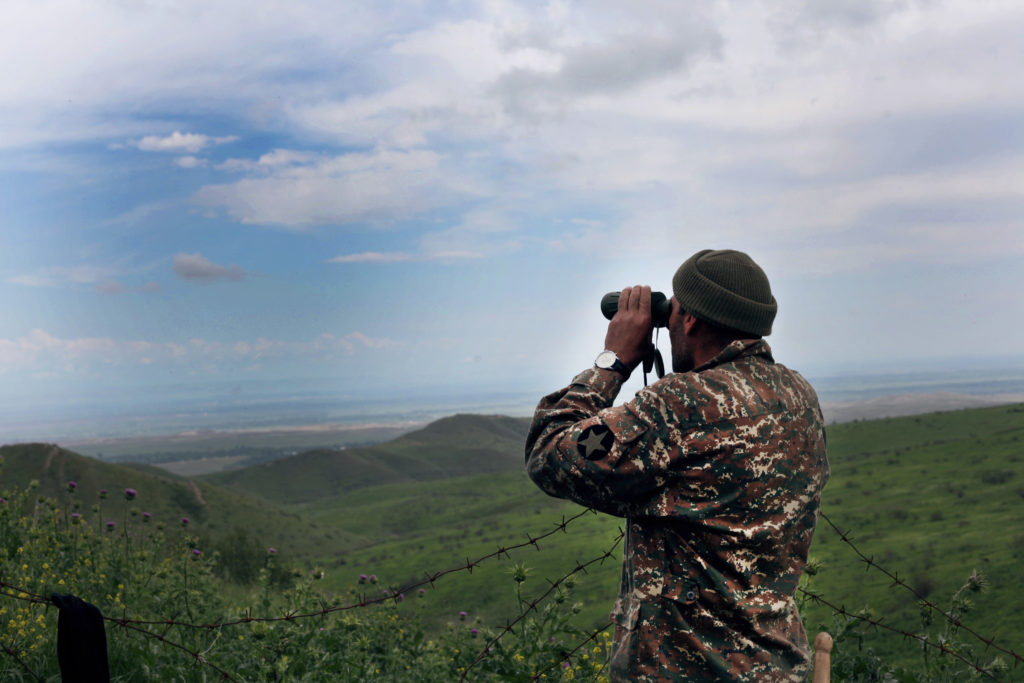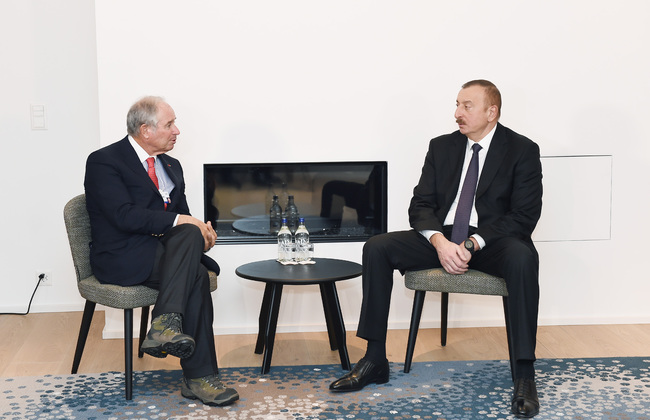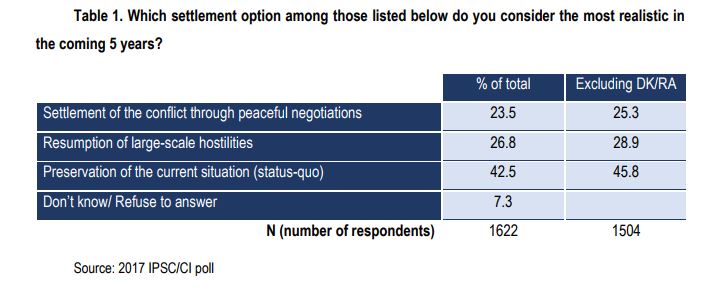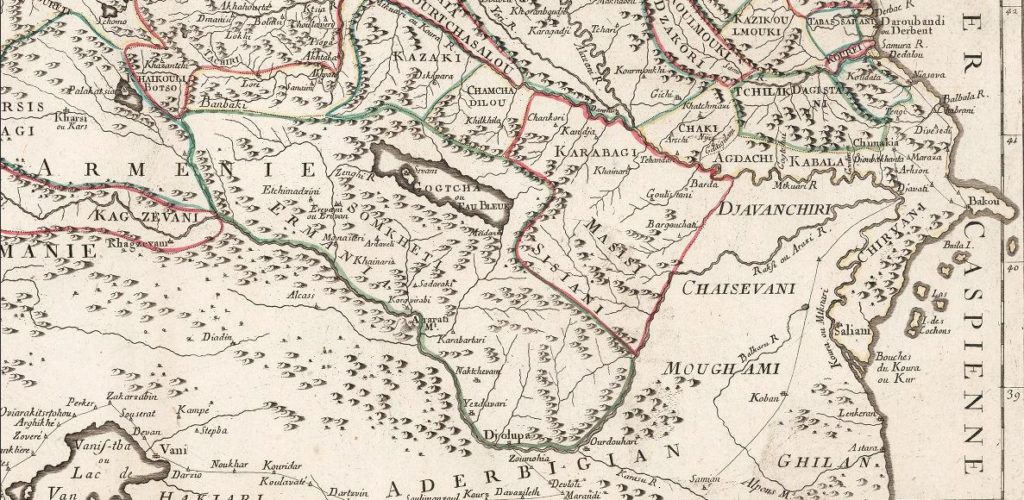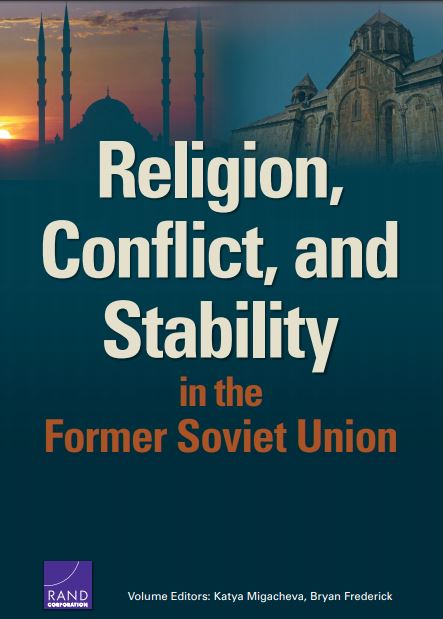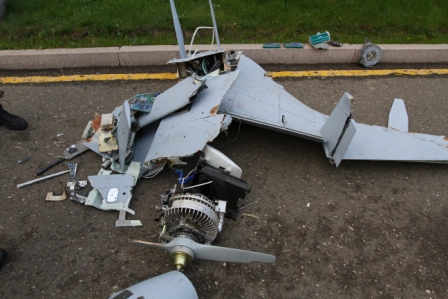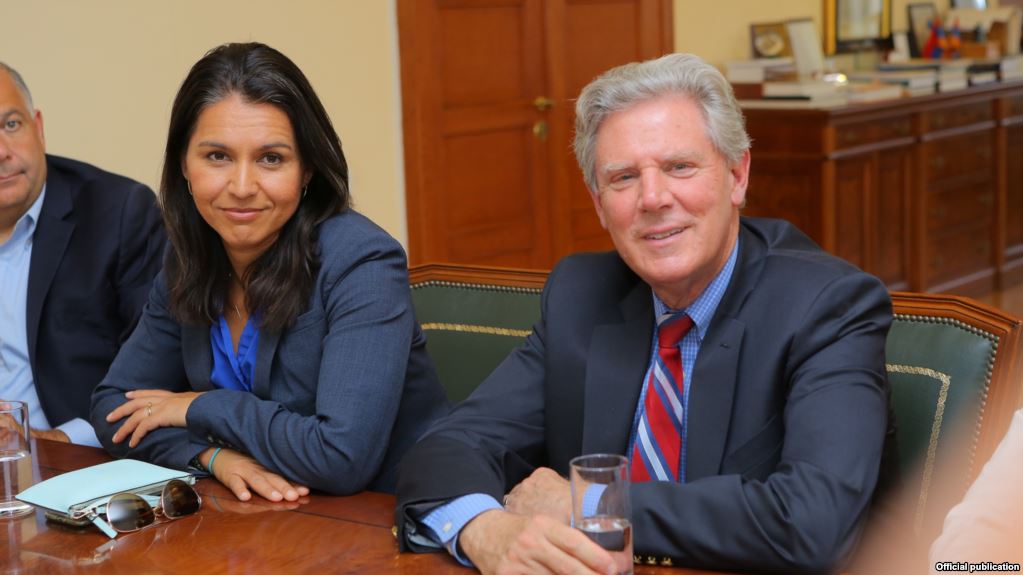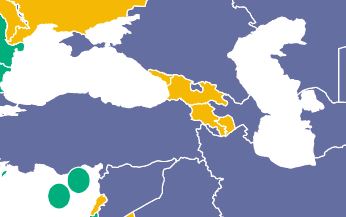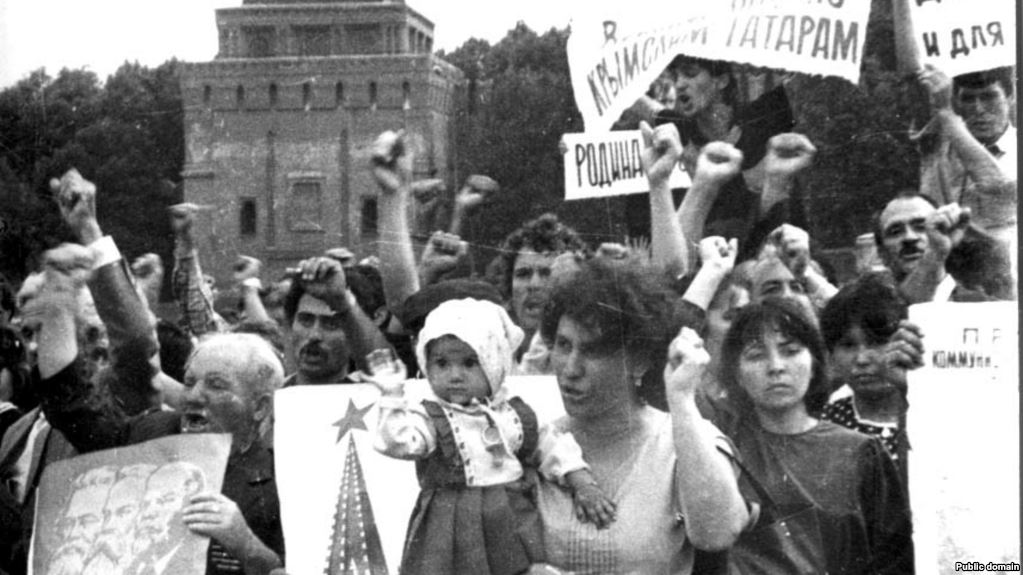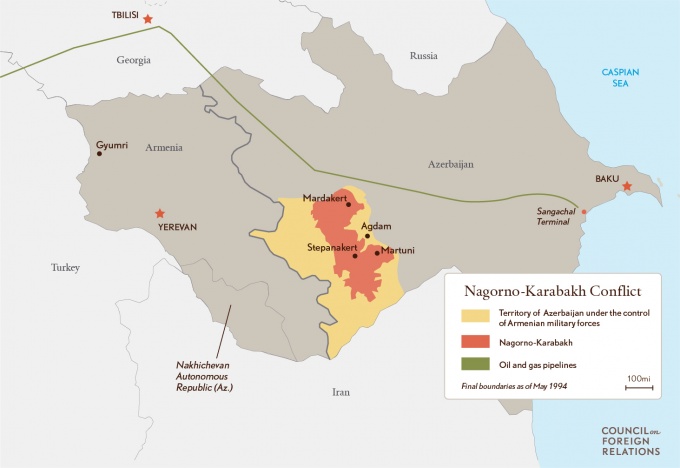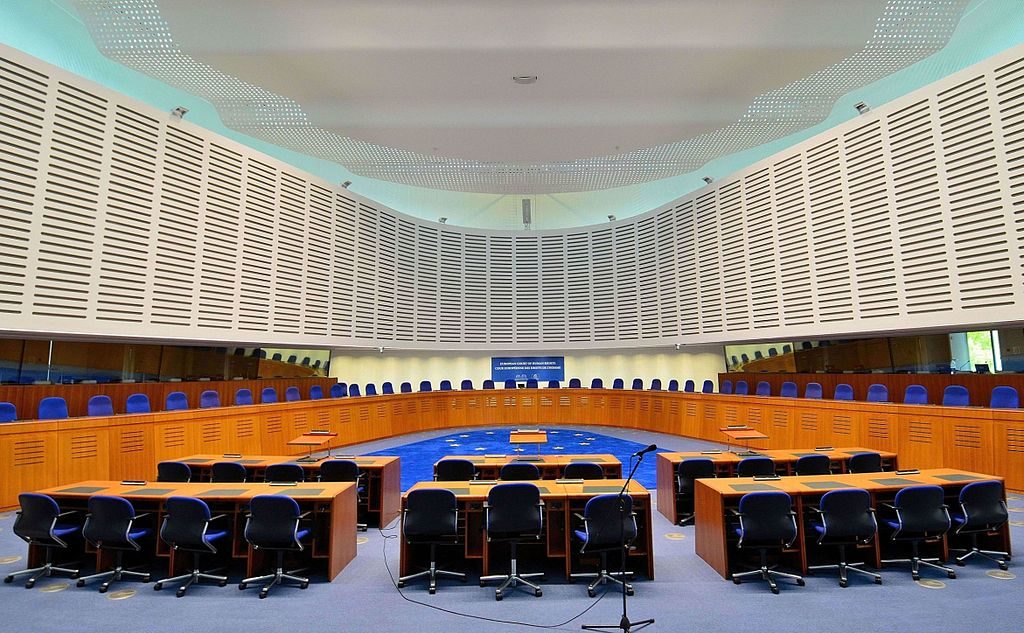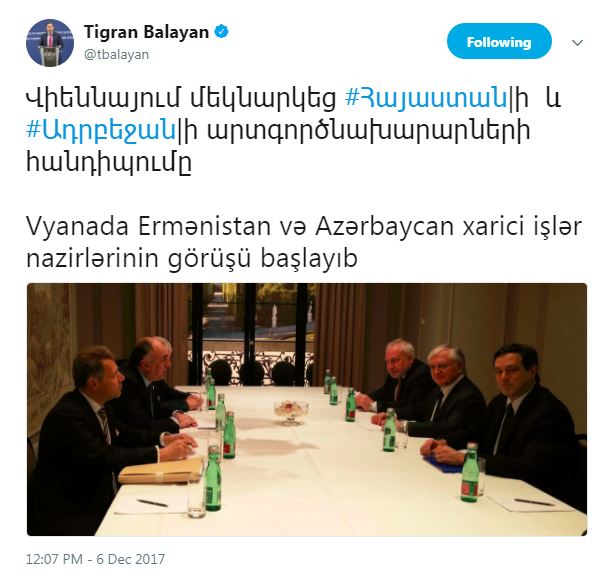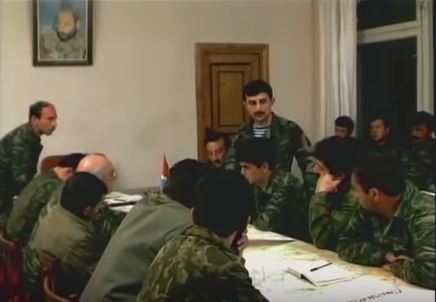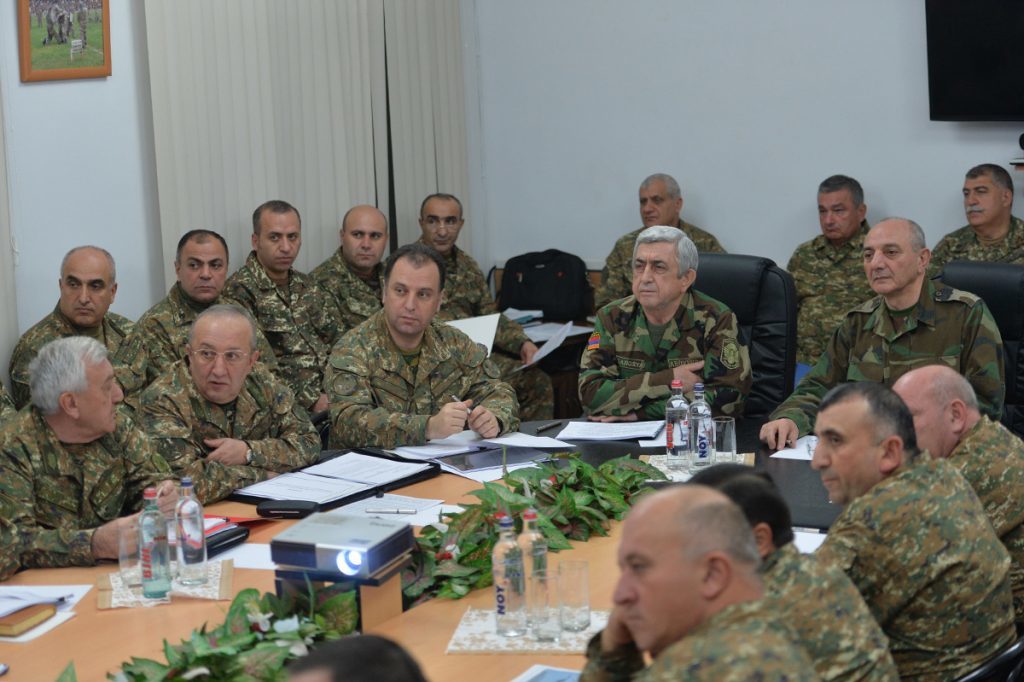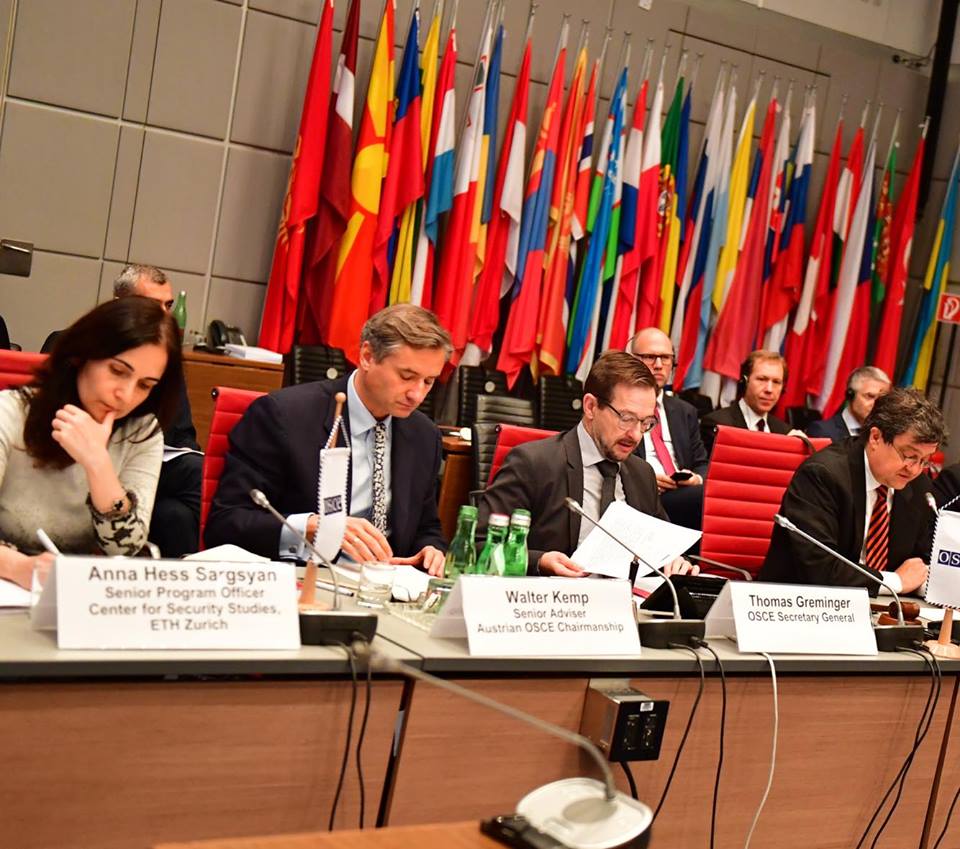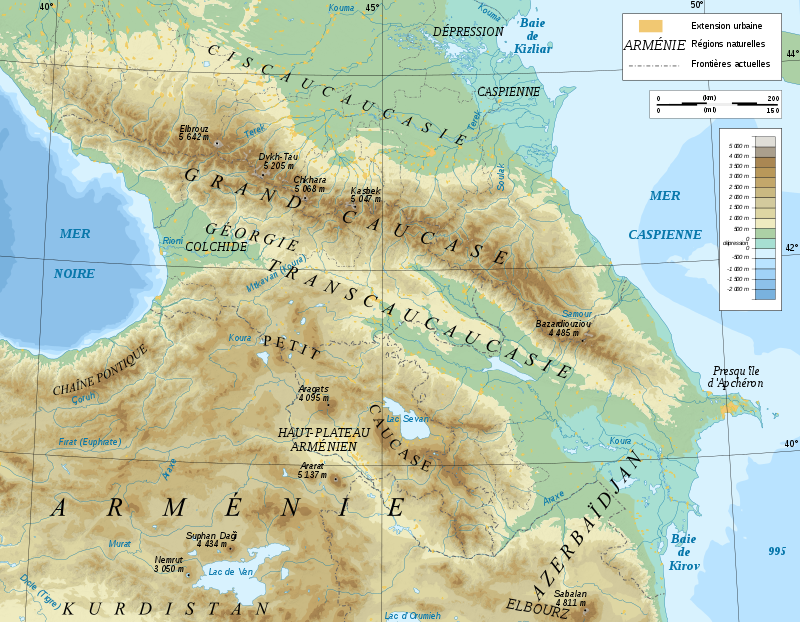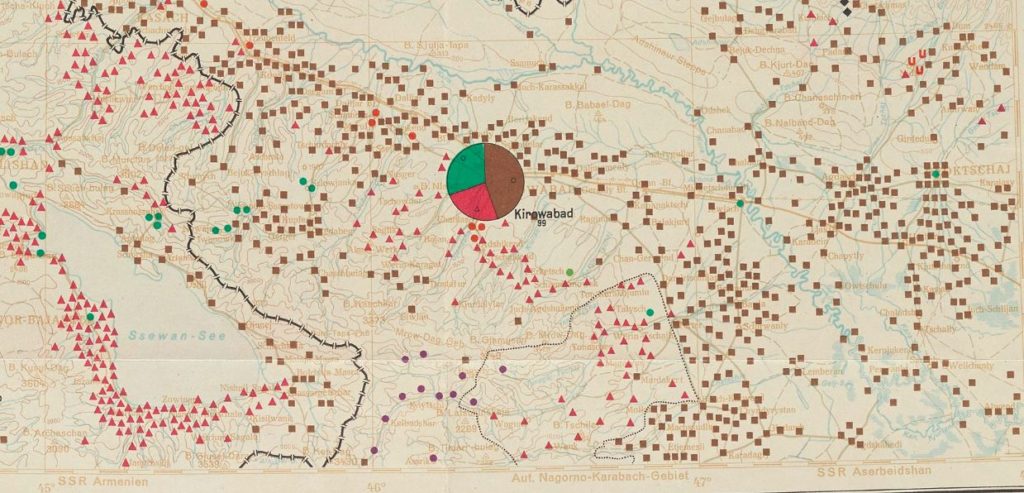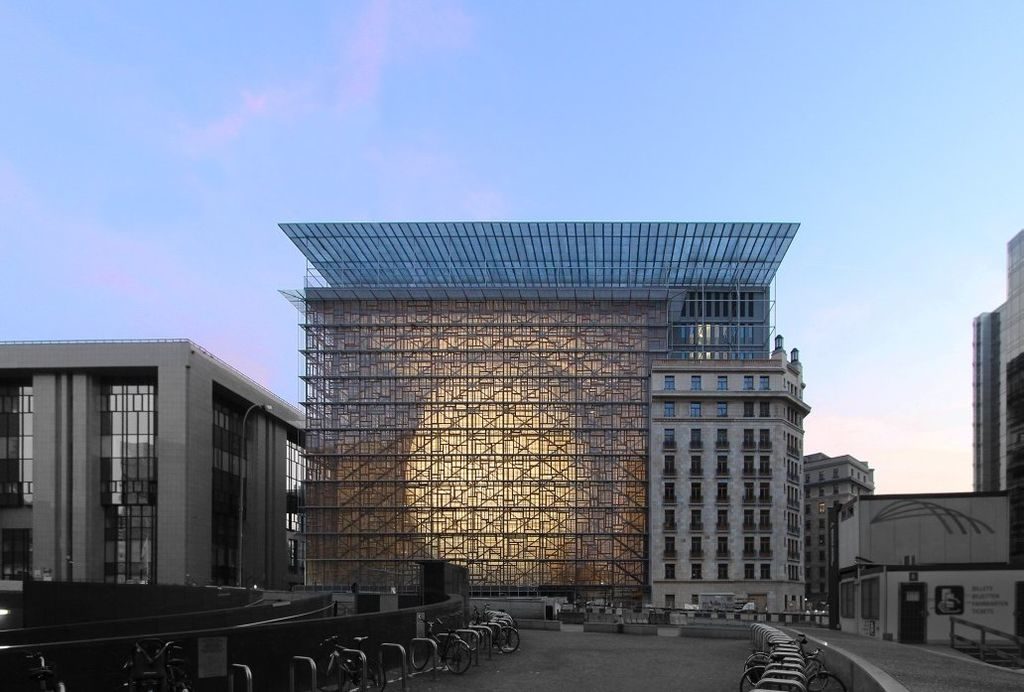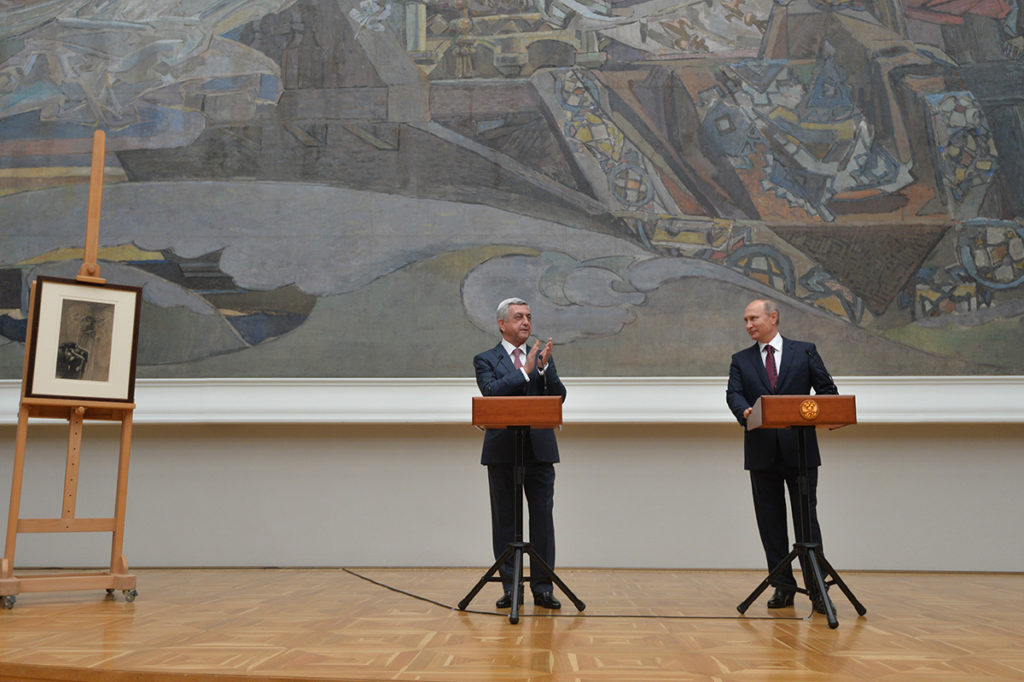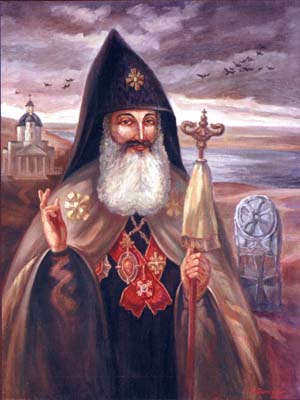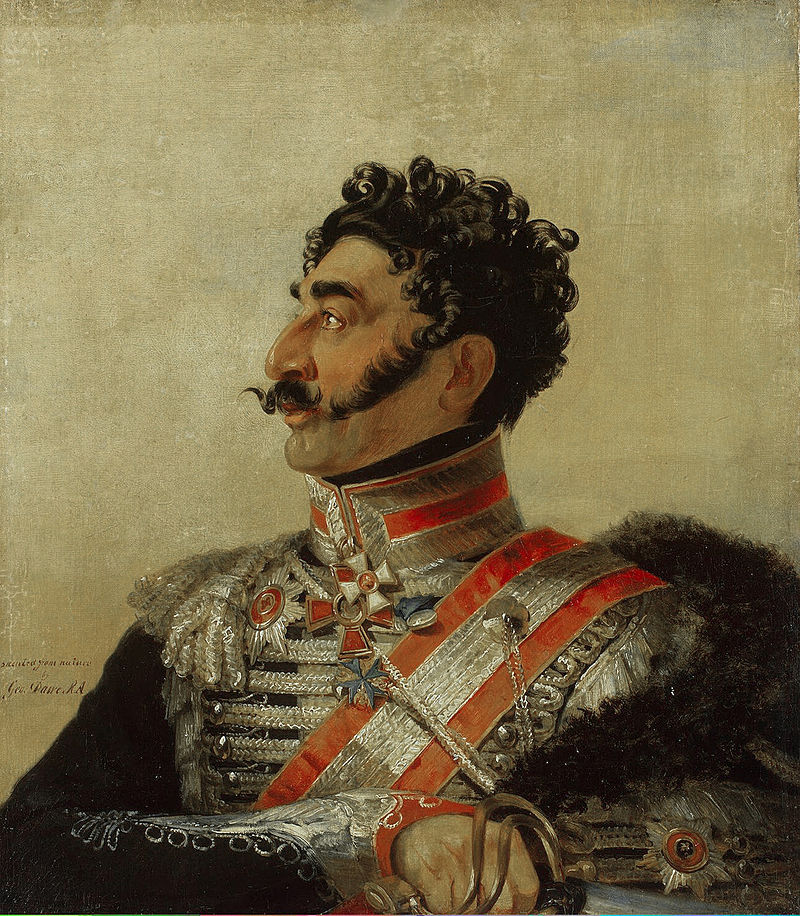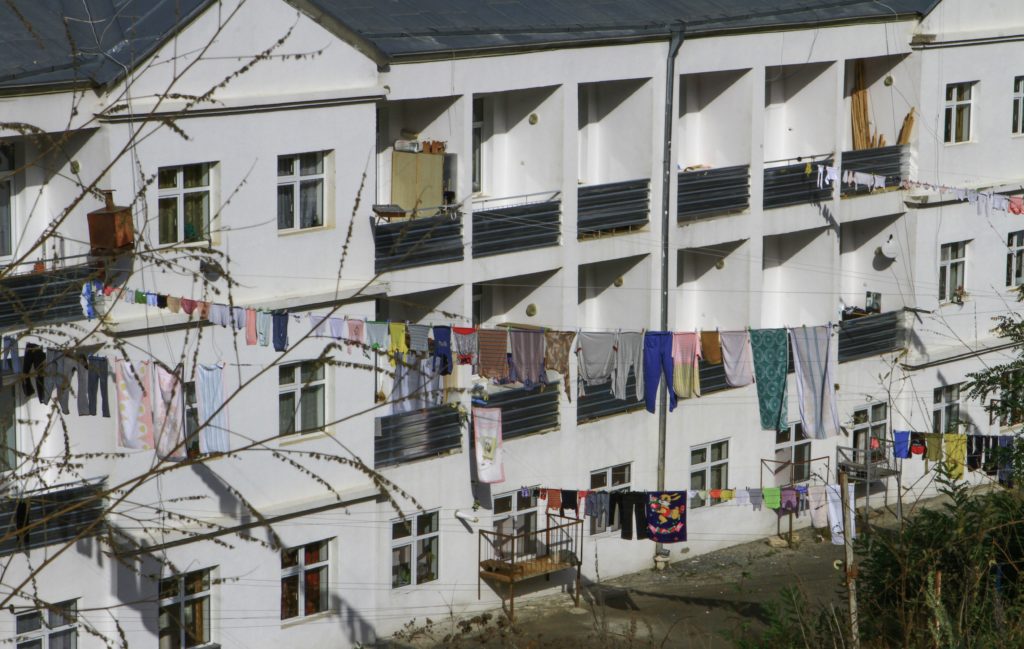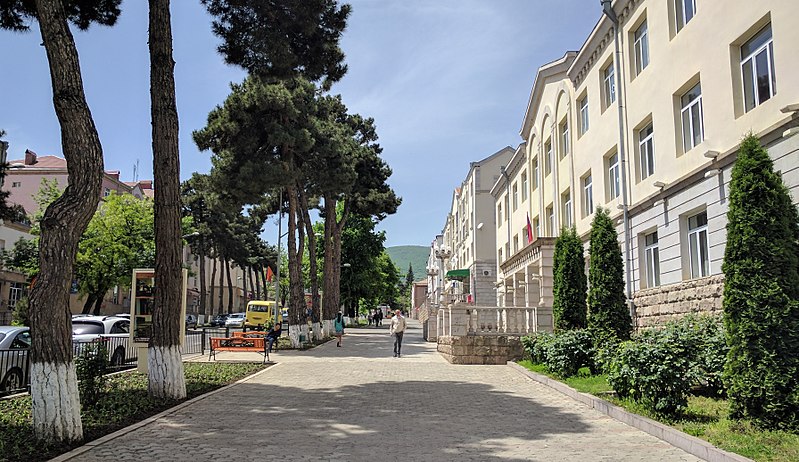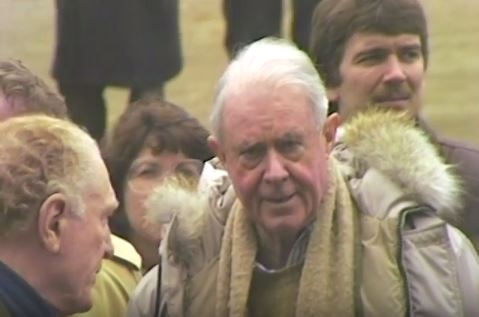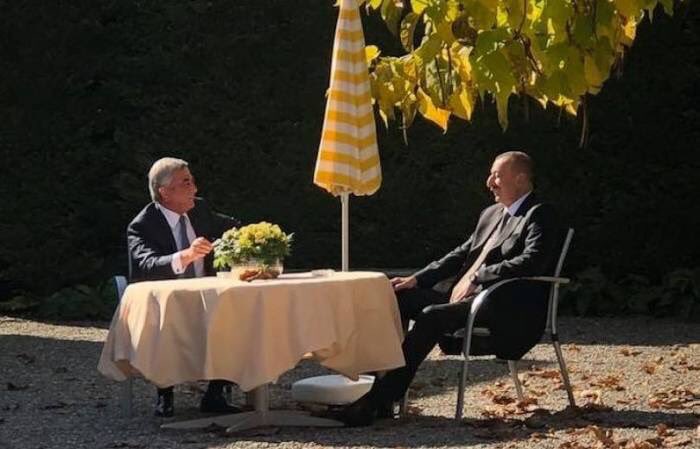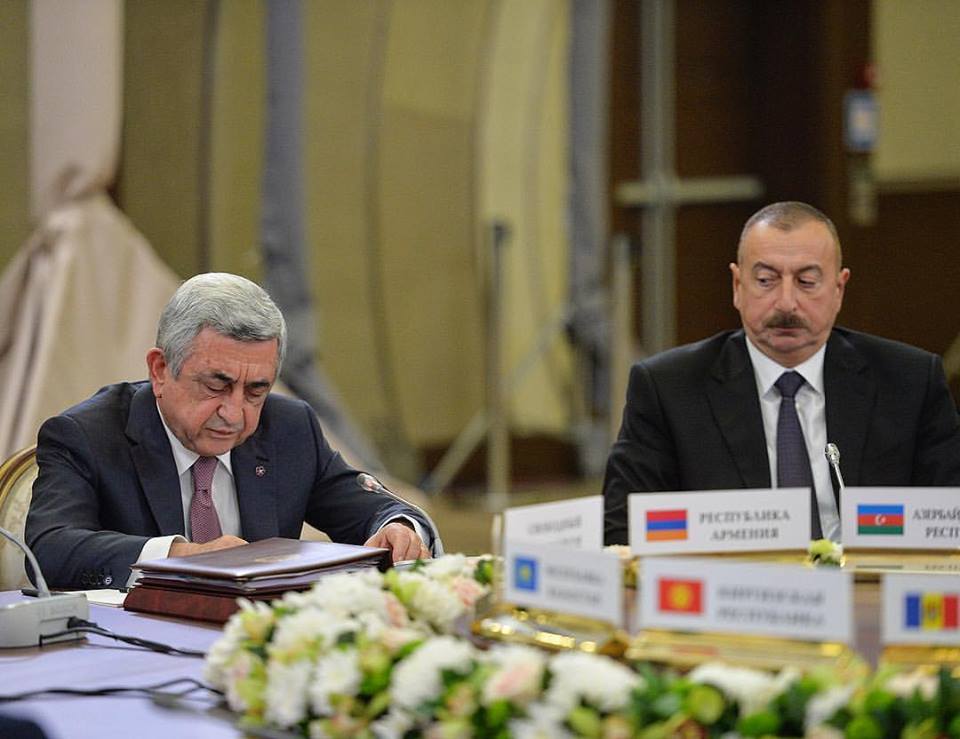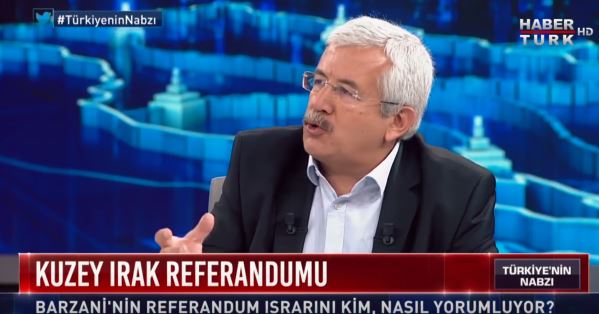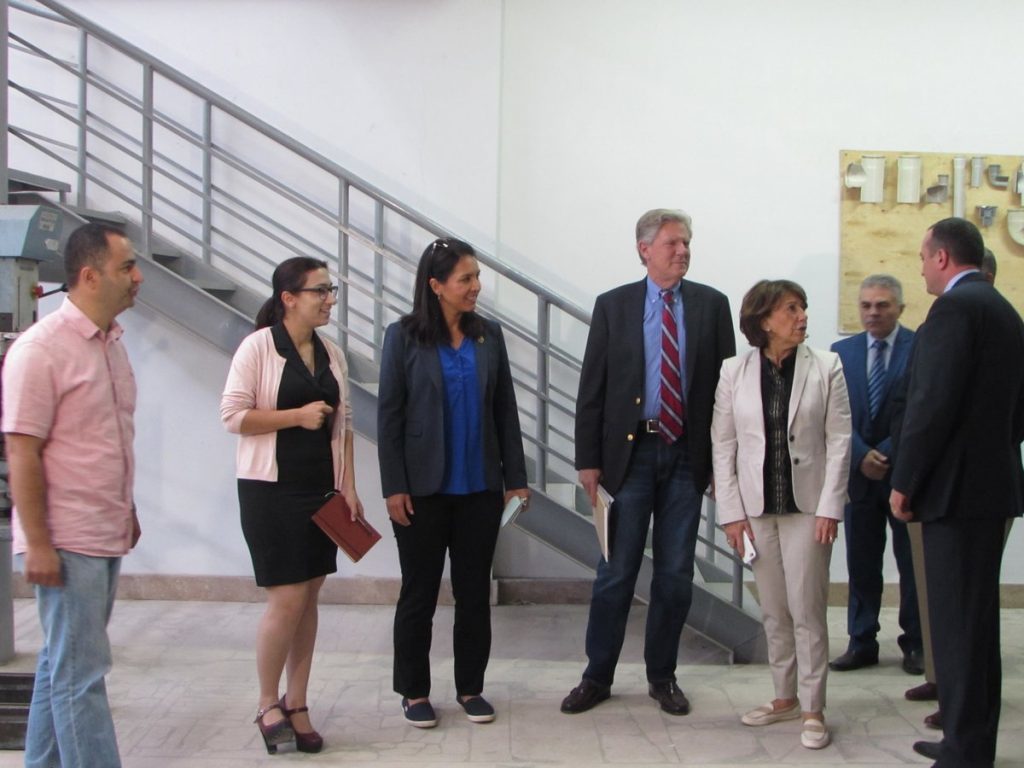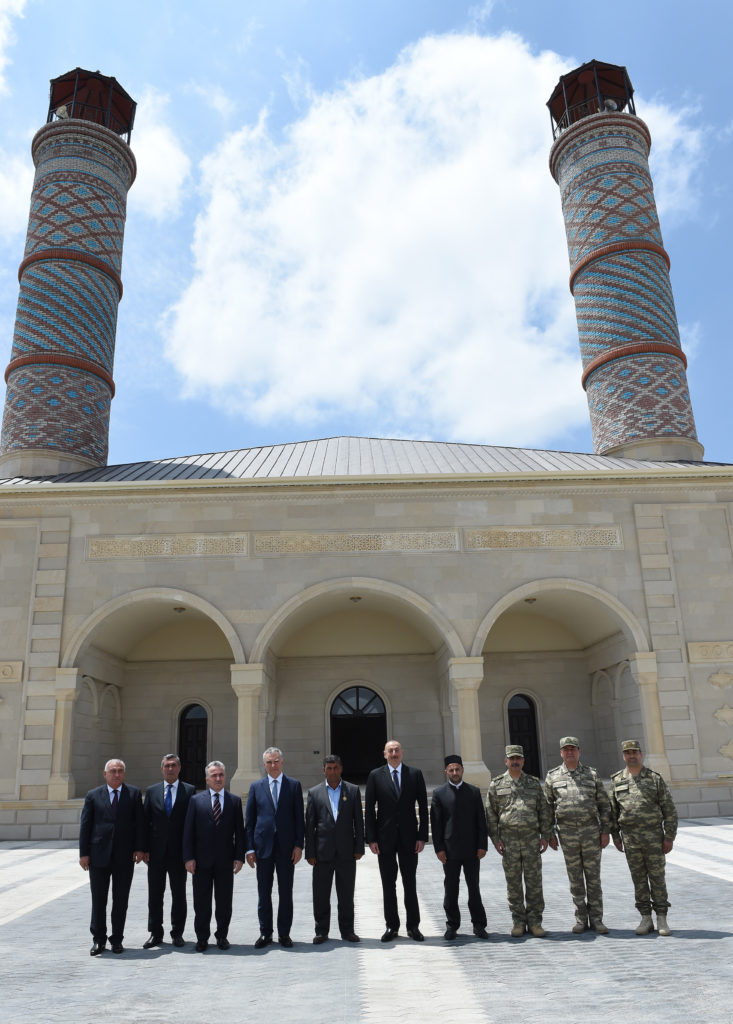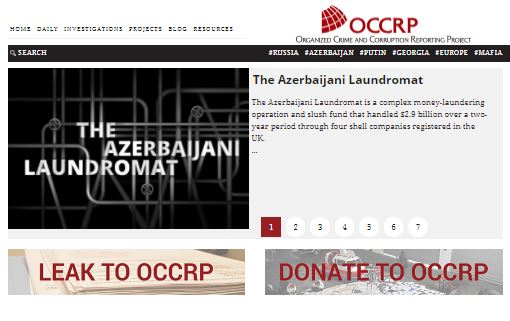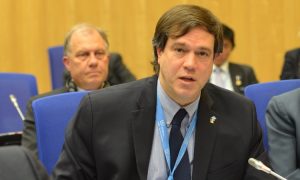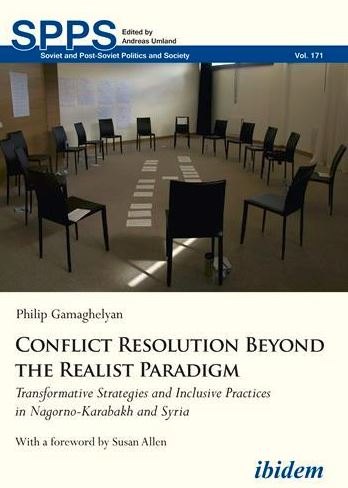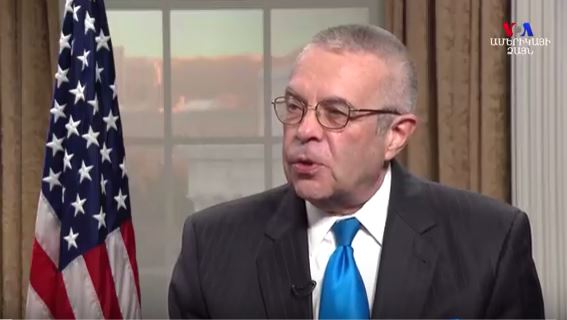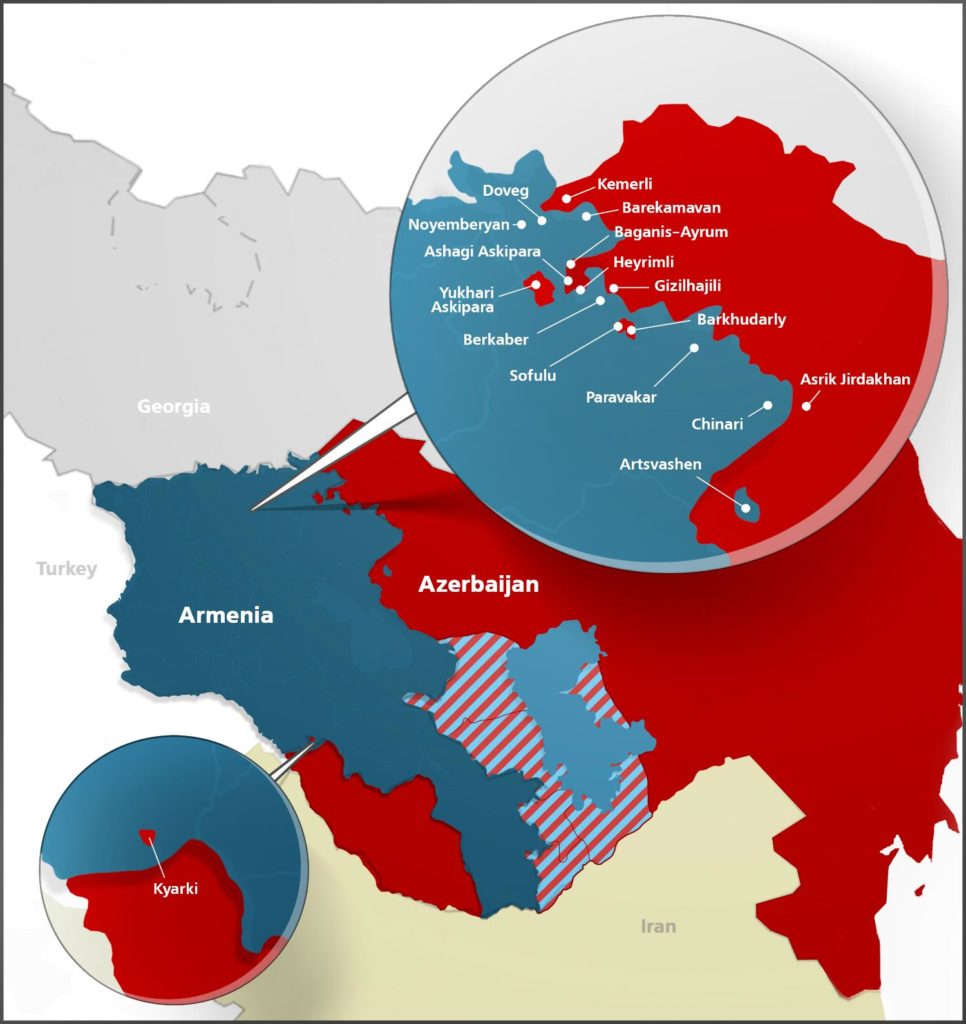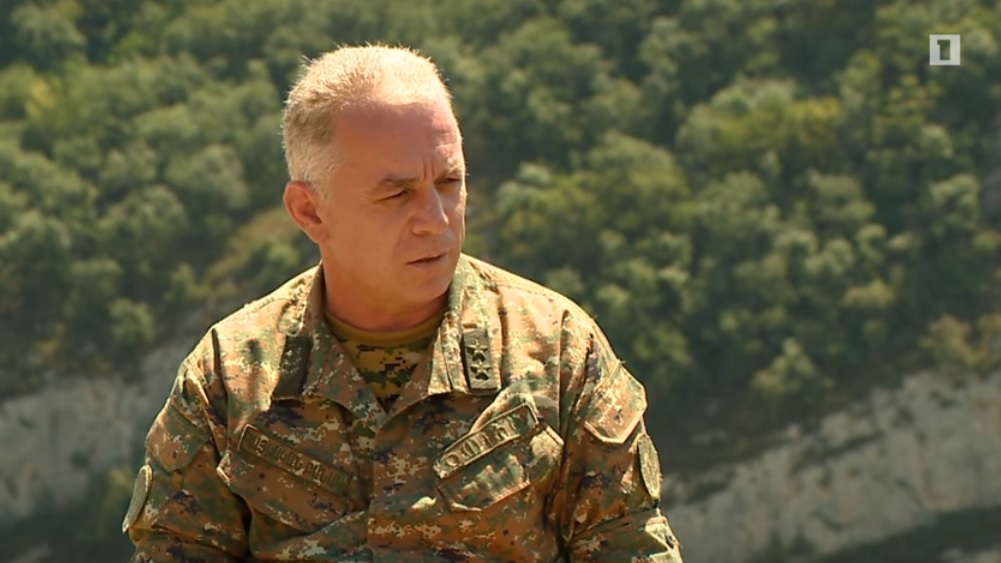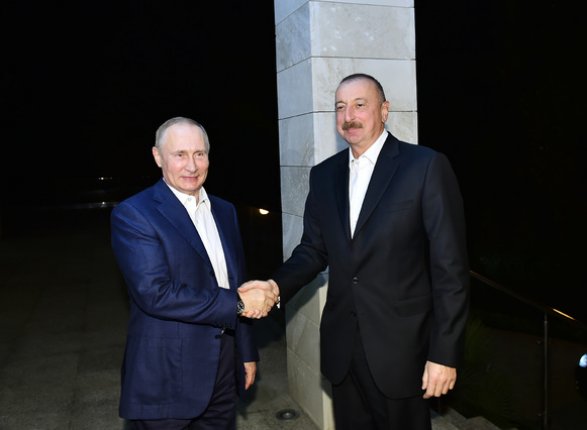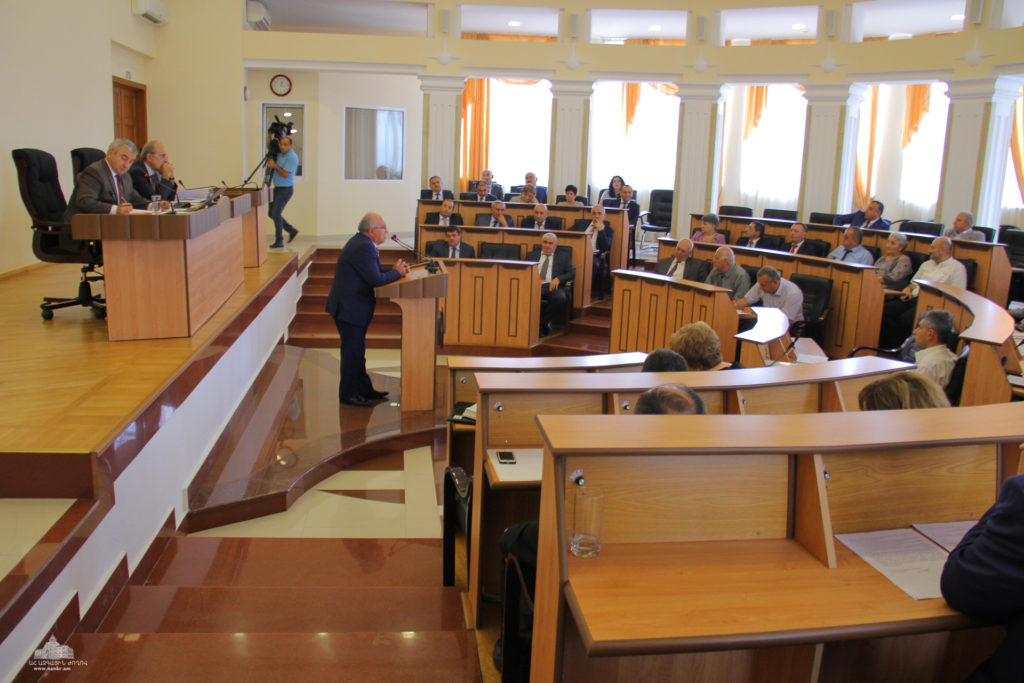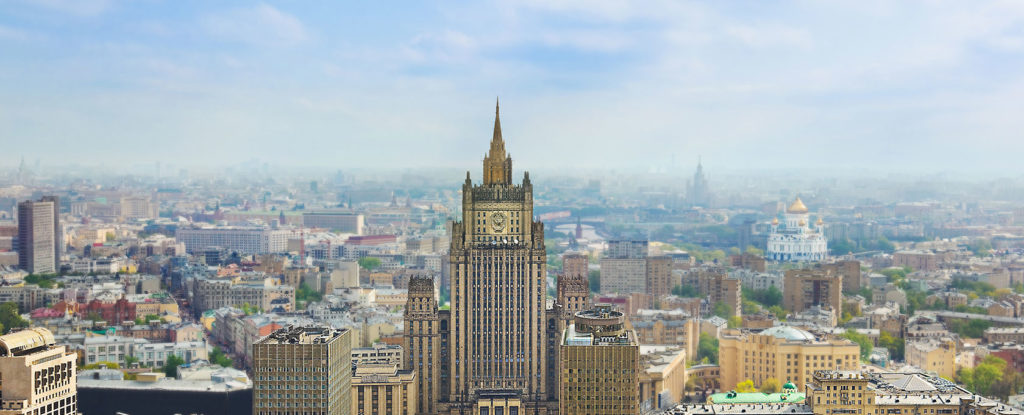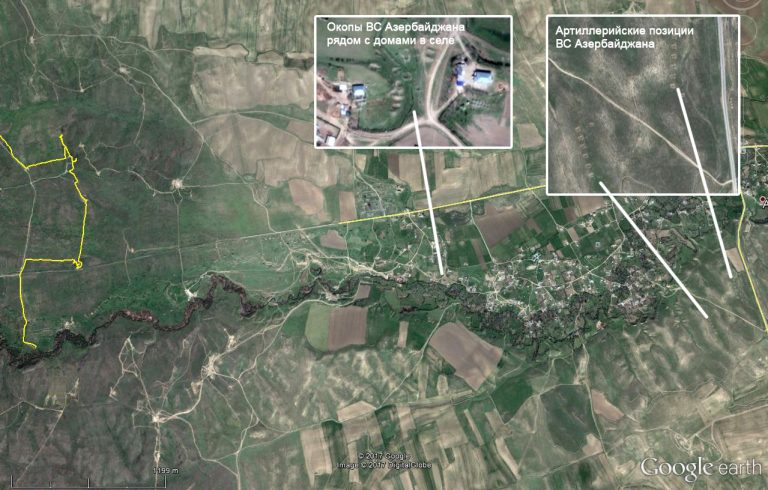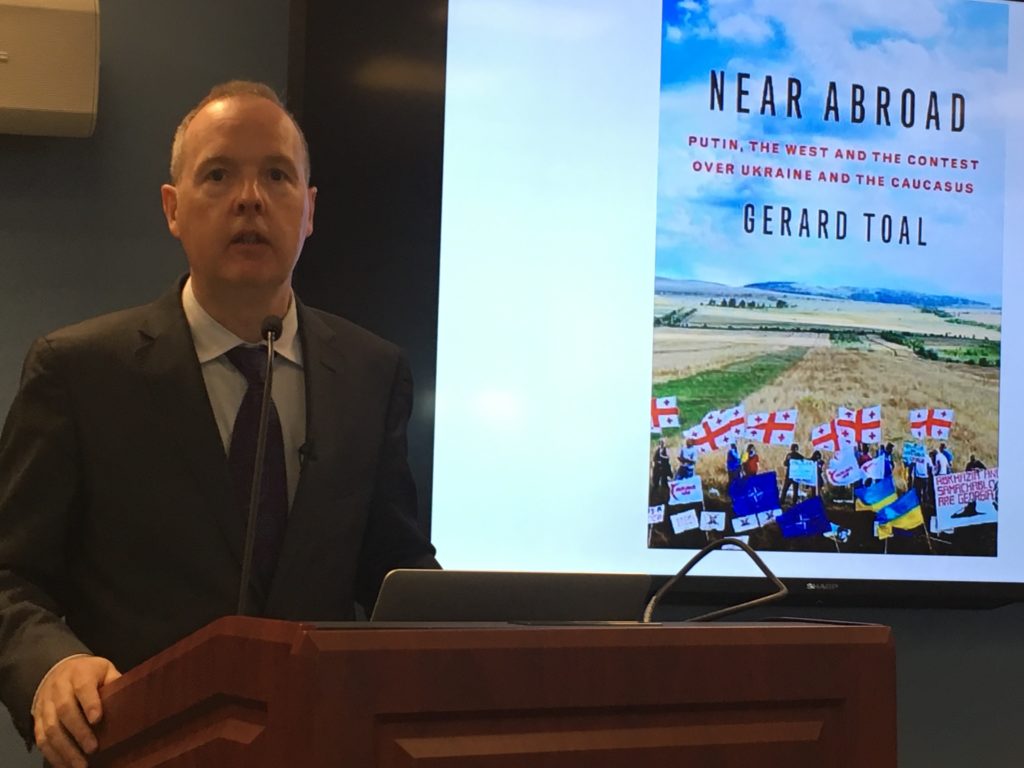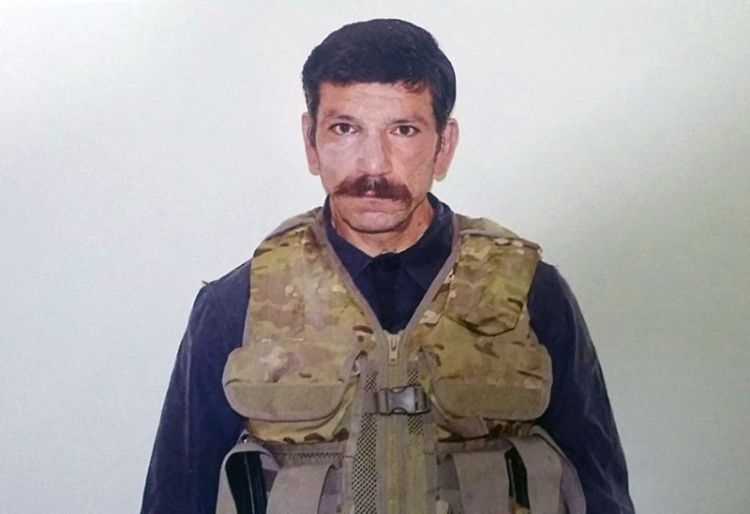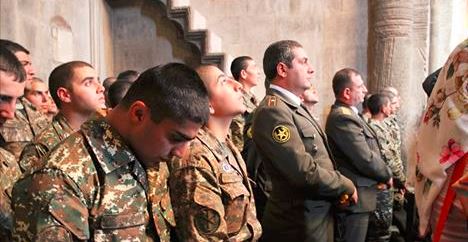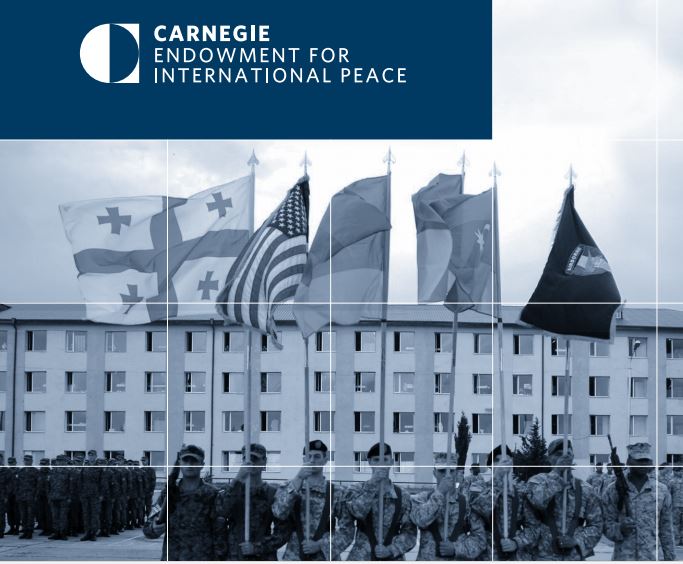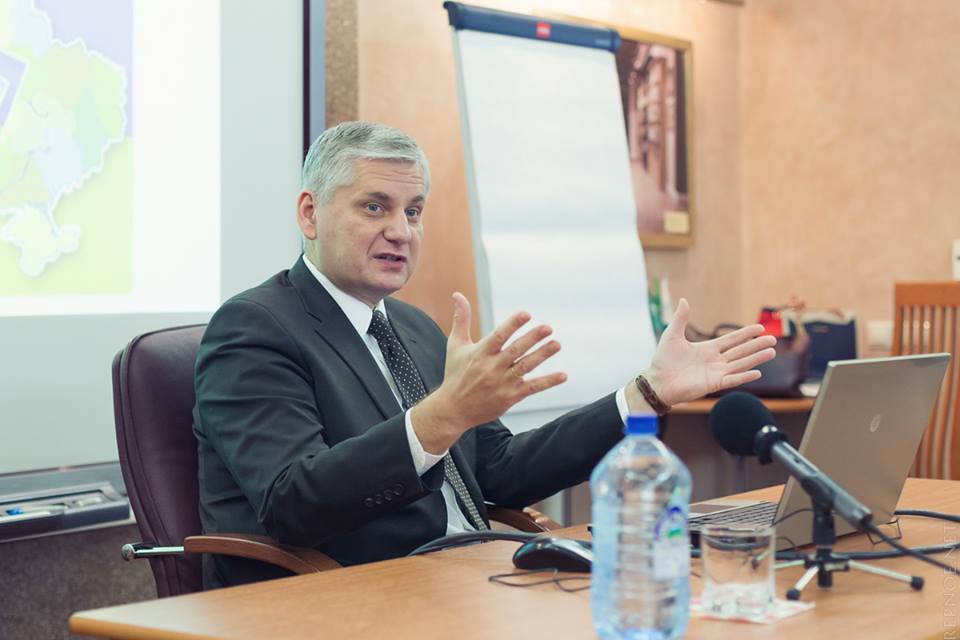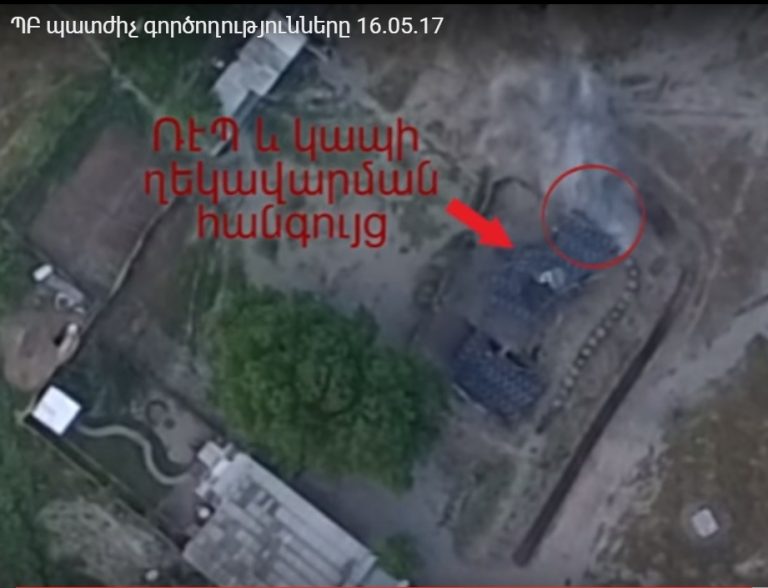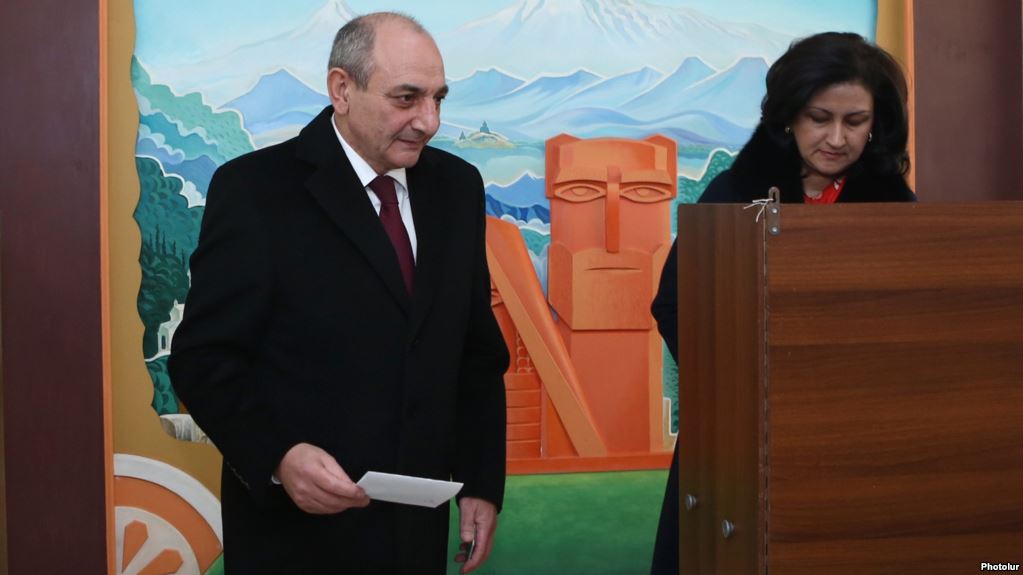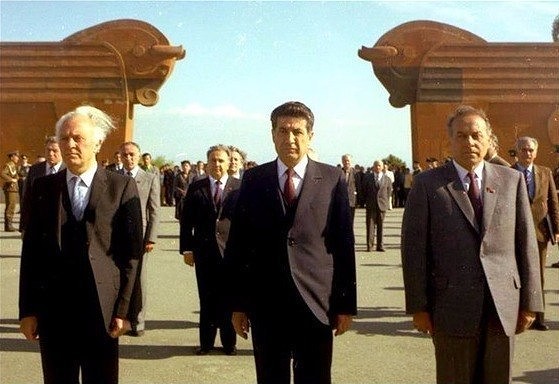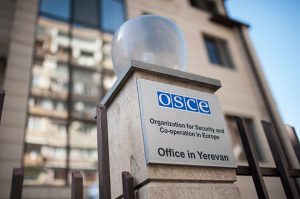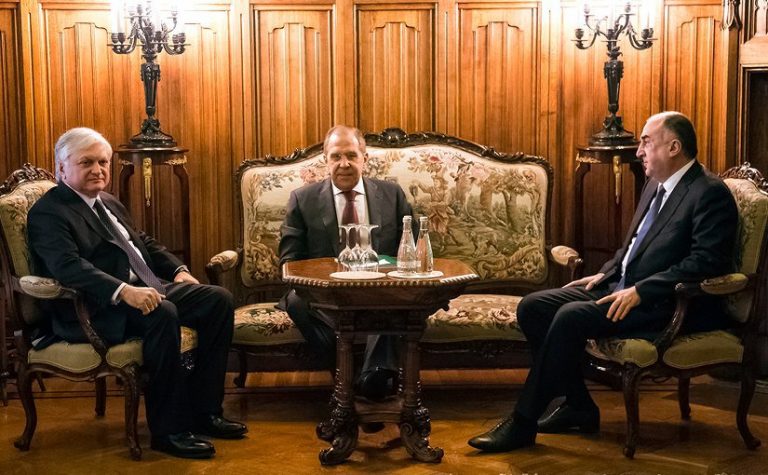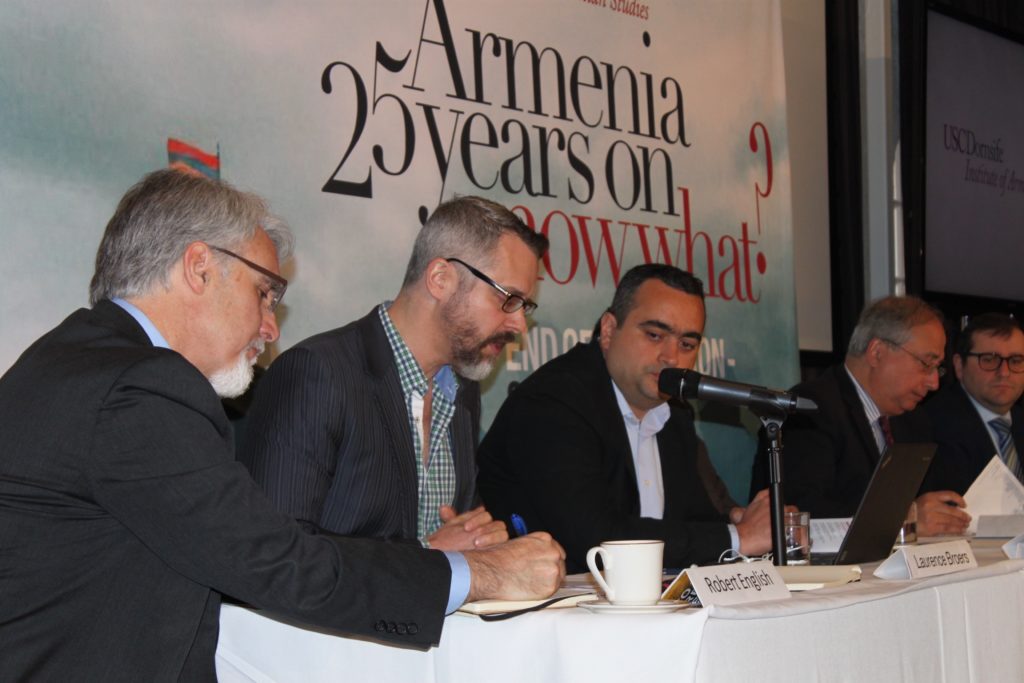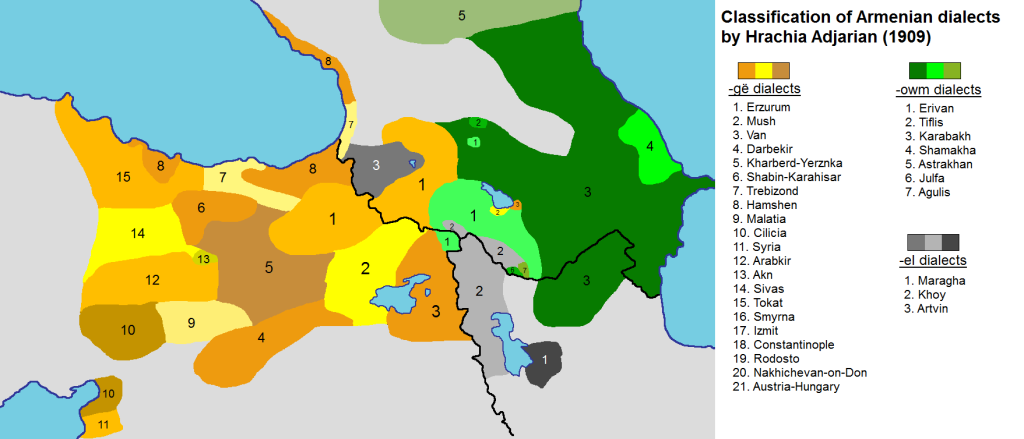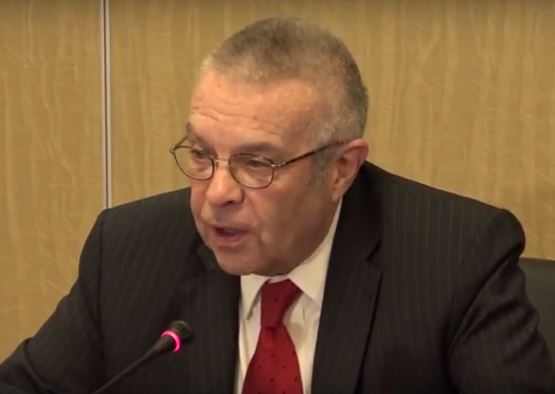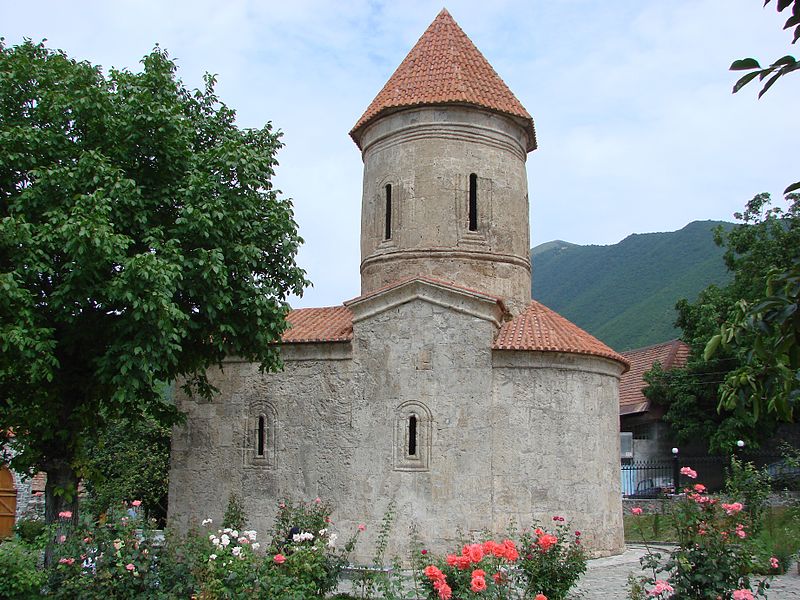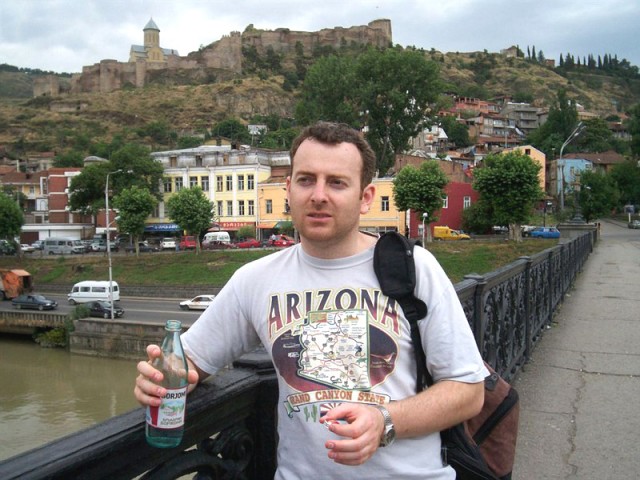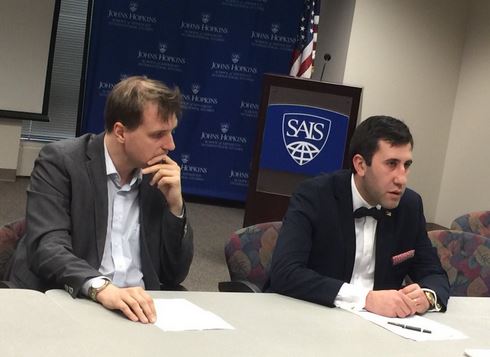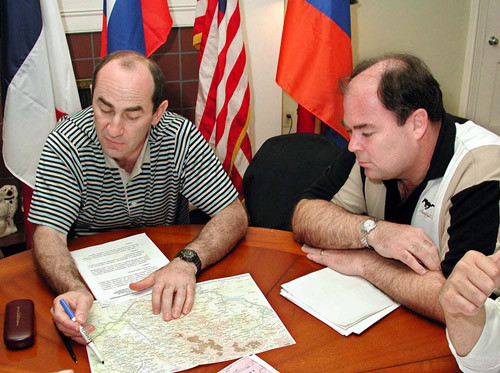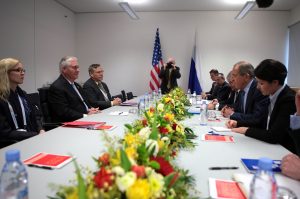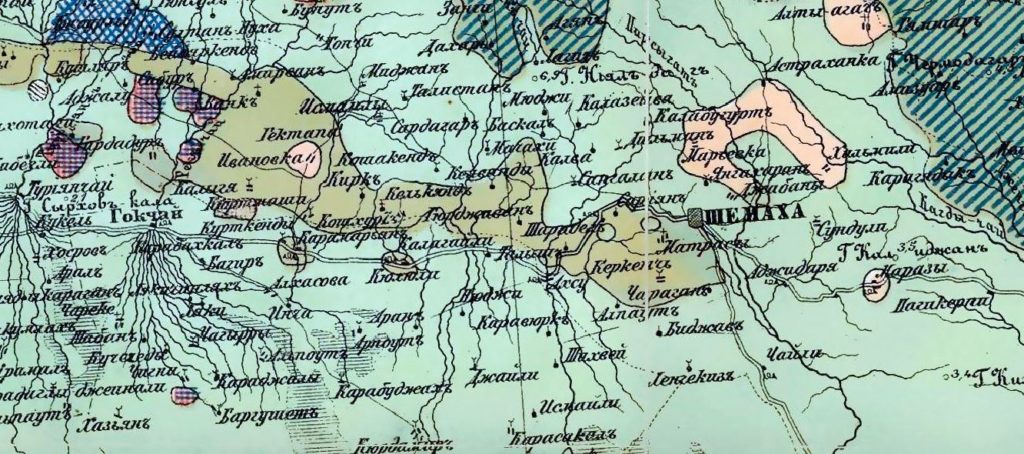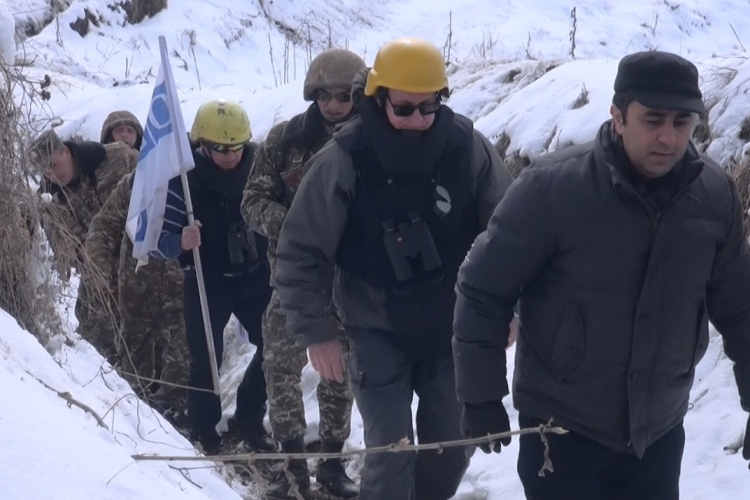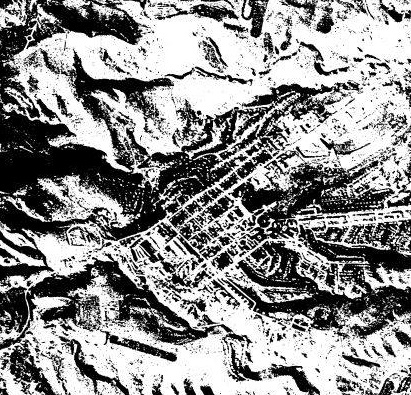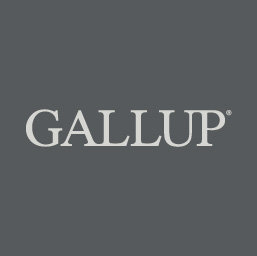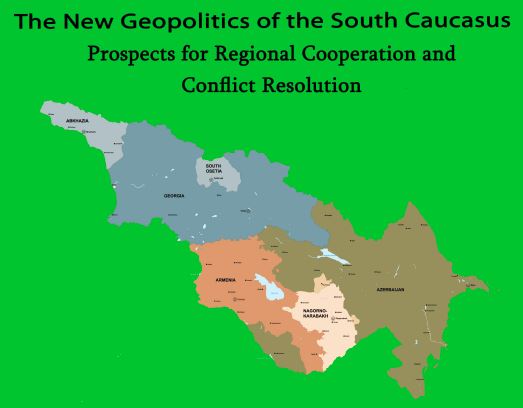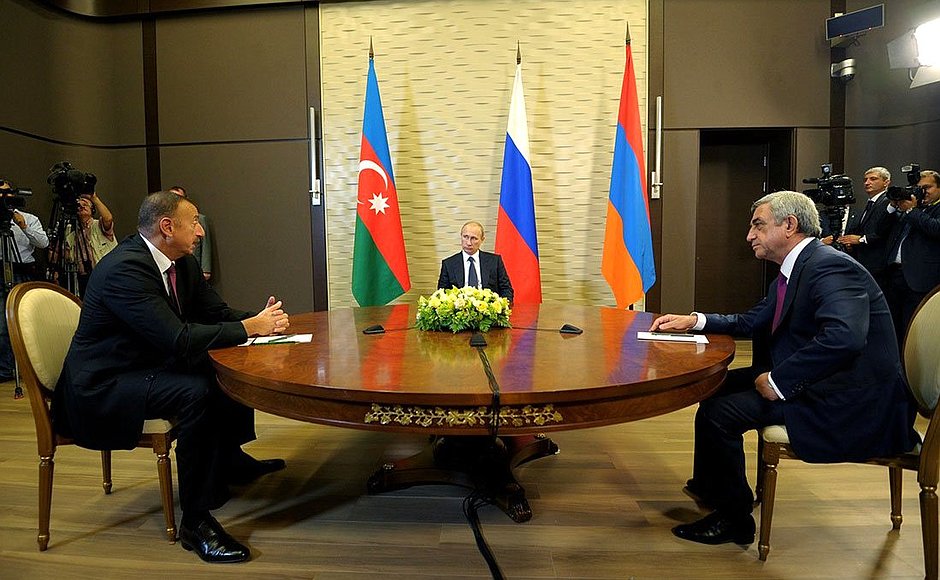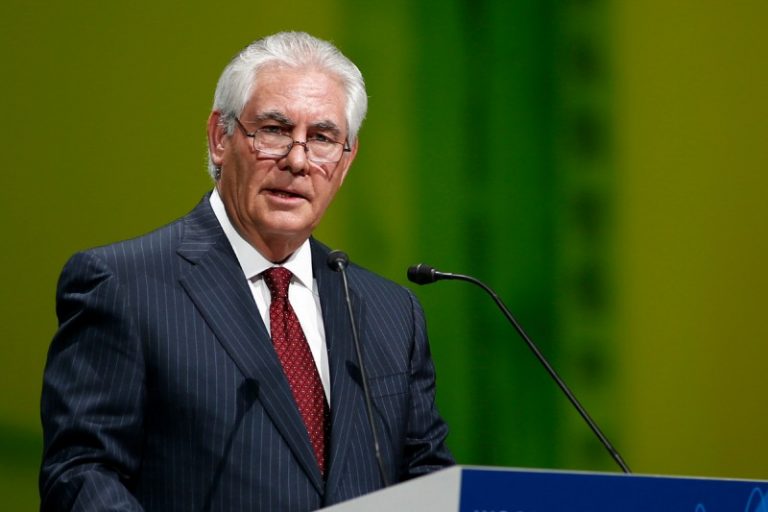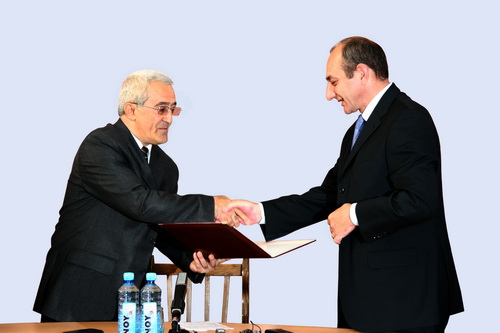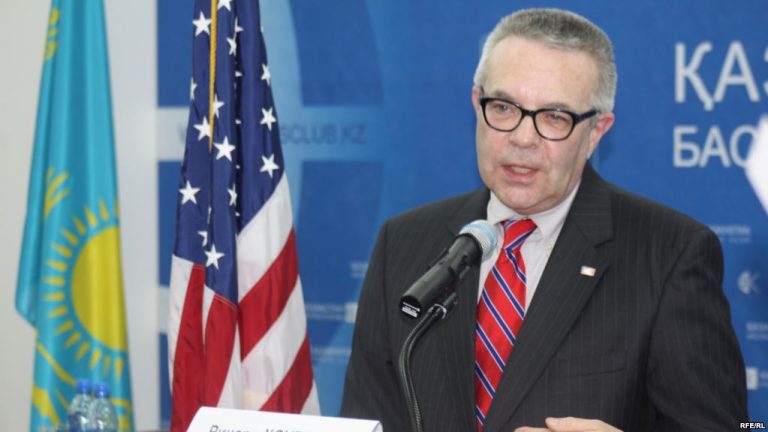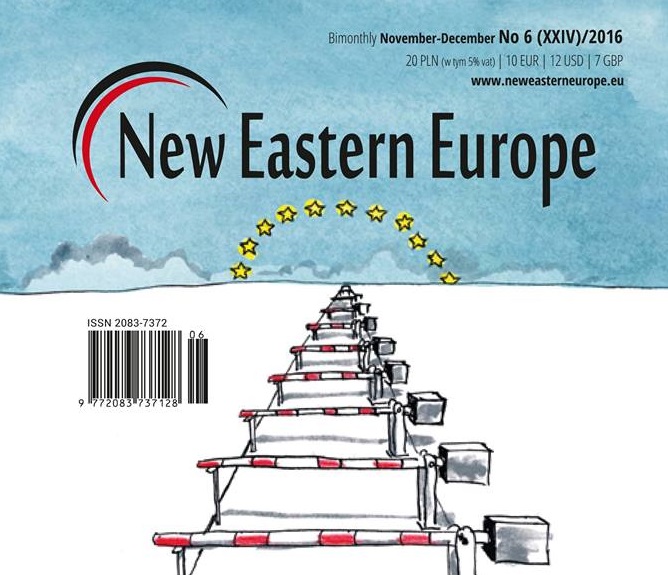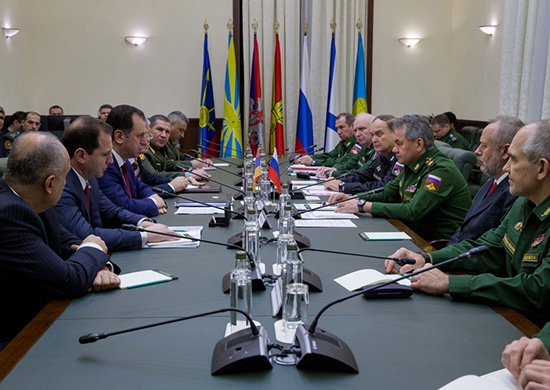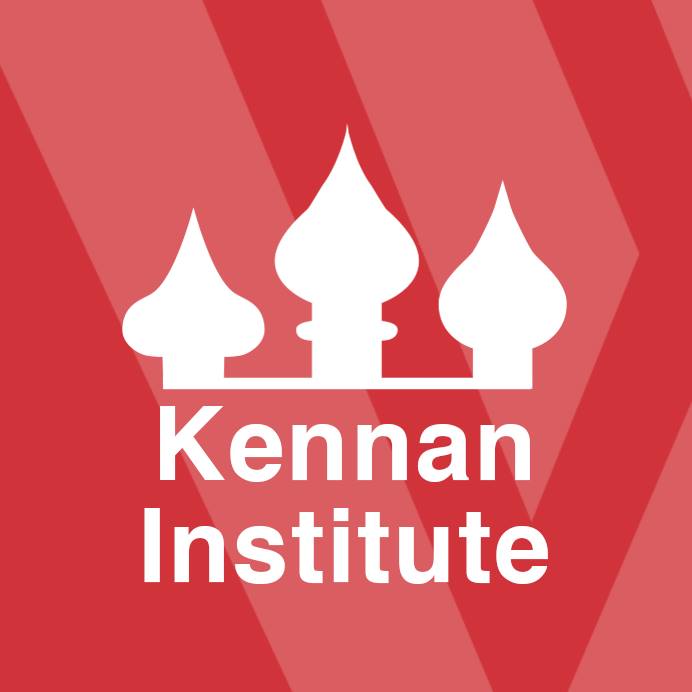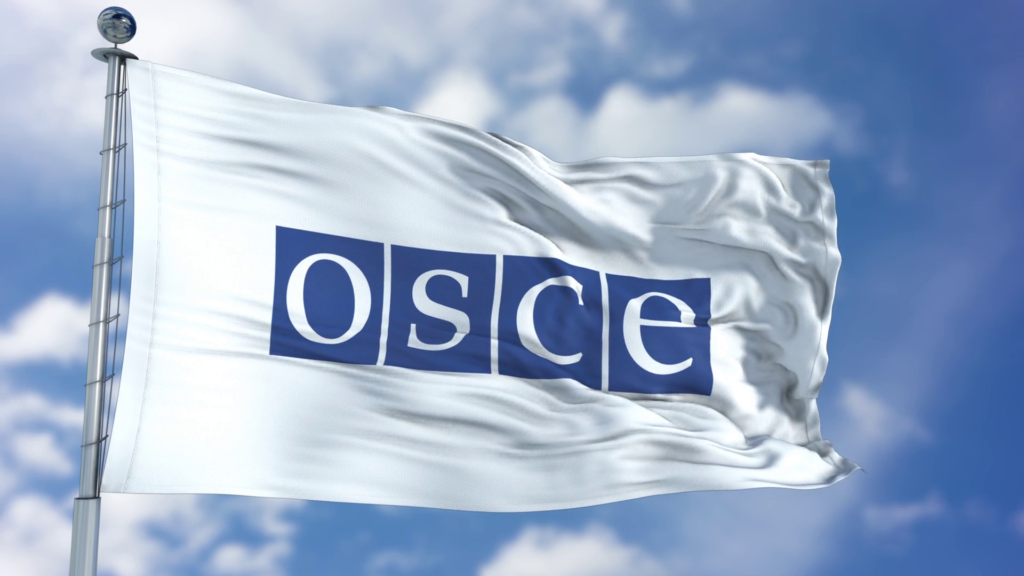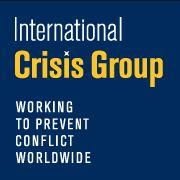New article argues that Azerbaijan’s war in Nagorno-Karabakh was illegal
In short, Azerbaijan having agreed to cease hostilities in 1994 and transfer the issue to the negotiations plane has foregone the right to take lost territories by force. And perhaps most damningly, “In both cases, the underlying idea is that the right of self-defence ceases to apply when a new territorial status quo is established, […]
2020 War’s Bloodiest Day: October 10
June 17, 2021 The day’s Armenian casualties reflect the breakdown of and retreat from the southern front
Russia Rescues Three Armenian Prisoners, Some 185 Remain in Azerbaijan
May 5, 2021 First such release in three months UPDATED with another release on June 12, 2021
Legal Appeals Filed Over Armenians Executed in Azerbaijani Custody
May 3, 2021 Dozens of cases documented include killings of elderly civilians, women
Bernard Kouchner: On Karabakh, Putin Can Be a ‘Good Boy’
Apr. 27, 2021 French politician says Artsakh was abandoned by the West, as well as Armenia
Robert Kocharyan: Unjust Peace in Karabakh Will Not Last
Apr. 5, 2020 But talk of Armenia’s military revanche is unrealistic at this time
Russian Deputy Defense Minister Visits Artsakh
Mar. 31, 2021 Dmitry Bulgakov went to check on housing for Russian peacekeepers
Reports: BBC, Vice News Denied Access to Karabakh
Mar. 12, 2021 Foreign media visits now need OK from the Russian peacekeeping command
Poll: Few Armenians Care About Armenians Held by Azerbaijan
Mar. 10, 2021 The surprising finding comes from the U.S.-funded opinion survey in Armenia
U.S. Congress to Call on Azerbaijan To Release Armenian Hostages
Mar. 6, 2020 Previous calls by Russia and Europe have not had much effect UPDATED
From the Archives: Russian Peacekeeping Brigade’s Symbolic Karabakh Link
Mar. 1, 2021 Military unit’s historic precursor was led by Karabakh-born Valerian Madatov
Russian Forces Conduct Extensive Demining Work in Karabakh
Feb. 28, 2021 More explosives cleared in three months than in previous two decades
Armenians Demand Resumed Access to Mardakert-Vardenis Highway
Feb. 24, 2021 The highway was the main road link between Armenia and Artsakh until 2020
Fund Official: 1,600 Armenian Servicemen Still Missing from 2020 War
Feb. 23, 2021 Number includes those reported as killed in action, but whose remains not yet ID’d
Analysis: What Lists of Azerbaijani Dead Tell Us About the War
Feb. 20, 2021 Azerbaijan has officially confirmed at least 2,887 dead and missing
Serzh Sargsyan: Armenia Fired Iskander Missiles at Shushi
Feb. 16, 2021 Armenian forces tried to recapture the town at the end of 2020 war
Russian Language to Get Official Status in Artsakh
Feb. 16, 2021 Move was rumored since the arrival of Russian peacekeepers
Foreigners Now Need Advance Permission to Visit Artsakh
Feb. 10, 2021 The Russian peacekeeping command will review visa requests
Updated Analysis: What Lists Of Armenian Dead Tell Us About The War
Feb. 9, 2021 Three months after the cease-fire the official death toll is yet to be finalized
Aliyev Exchanges Five More Armenians, May Still Hold Hundreds
Feb. 9, 2021 Partial release comes after Armenia suspends military deployments in Artsakh
Azerbaijan’s Hero Awards And Their Likely Meaning
Feb. 5, 2021 In political gesture, Aliyev awards war criminal with Erdogan ties
Logic of National Hero Awards During Second Artsakh War
Feb. 3, 2021 A total of twenty individuals were awarded by officials in Yerevan and Stepanakert
Russia Holds Armenian-Azerbaijani Working Group Meeting
Jan. 30, 2021 Transport talks come in wake of another limited prisoner exchange
New Secretary of State Supports U.S. Aid for Karabakh
Jan. 21, 2020 Antony Blinken answered questions from Senator Bob Menendez
Russian Foreign Minister Discusses Karabakh, Armenian Prisoners
Jan. 18, 2020 Sergei Lavrov says Armenian government was late in presenting prisoner lists
Russian TV Paints Karabakh Move as Humanitarian, Political Success
Jan. 17, 2021 Quotes thankful local residents, argues move is a win for Russia, loss for the West
Biden Administration’s Foreign Policy Team Taking Shape
Jan. 15, 2021 Most served under Obama, have a record on Armenia and broader region
Putin Hosts Aliyev and Pashinyan in Moscow
Jan. 11, 2021 The three agree to talk transport links, sidestep issue of Armenian prisoners
Turkey Resumes Military Airlift Flights to Azerbaijan
Jan. 9, 2021 At least nine military transportation flights took place this week
Analysis: What Lists of Armenian Dead Tell Us About the War
Jan. 8, 2021 Known casualties include dozens of non-Armenians, four repatriates
In Breach of Ceasefire, Aliyev Refuses to Release Armenian Prisoners
Jan. 8, 2021 More than sixty Armenians were captured and at least 31 killed after the cease-fire
Intentional Killings of Karabakh Armenian Civilians Documented
Dec. 23, 2020 Azerbaijani forces executed non-combatants, who remained in occupied areas
Russian Peacekeepers Secure Safe Return of Six Soldiers
Dec. 20, 2020 The young Armenian servicemen located alive after 70 days in encirclement
Ombudsmen’s Report on Media Coverage of Karabakh War
Dec. 19, 2020 A total of 390 reporters from 90 countries worked in Artsakh
War Update For December 14, 2020
Dec. 14, 2020 44 Armenians exchanged, dozens still held including those newly captured
War Update For December 13, 2020
Dec. 13, 2020 More reports of deadly clashes in the south of Karabakh
War Update For December 12, 2020
Dec. 12, 2020 Violating the cease-fire, Azerbaijani forces move to capture two Armenian villages
Second Karabakh War: Outcomes
Dec. 1, 2020 Thousands dead, tens of thousands displaced, most of pre-war Artsakh territory lost
War Update for November 25, 2020
Nov. 25, 2020 More return and more displacement of Karabakh civilians taking place
War Update For November 24, 2020
Nov. 24, 2020 Armenian forces complete withdrawal from Kelbajar
War Update For November 23, 2020
Nov. 23, 2020 Russian peacekeepers begin demining work in Artsakh
War Update For November 20, 2020
Nov. 20, 2020 Putin talks of importance of sticking to agreements
War Update For November 19, 2020
Nov. 19, 2020 Retired general discusses the Armenian military defeat in Artsakh
War Update For November 18, 2020
Nov. 18, 2020 More displacement from and some return to Karabakh taking place
War Update For November 17, 2020
Nov. 17, 2020 Russian president reveals details of Armenian-Azerbaijani cease-fire talks
War Update For November 16, 2020
Nov. 16, 2020 Turkey builds up forces near Armenia, insists on presence in Artsakh
War Update For November 13, 2020
Nov. 13, 2020 Russian peacekeeping forces expanding footprint in Karabakh
War Update For November 12, 2020
Nov. 12, 2020 Russian forces reported to have arrived in Stepanakert
War Update For November 11, 2020
Nov. 11, 2020 Russian peacekeeping forces begin deploying in Karabakh
War Update for November 10, 2020
Nov. 10, 2020 Russian forces enter Karabakh after cease-fire is agreed
War Update For November 9, 2020
Nov. 9, 2020 Continued fighting inside Shushi and its vicinity reported
War Update For November 8, 2020
Nov. 8, 2020 Intense fighting taking place inside and in vicinity of Shushi
War Update For November 7, 2020
Nov. 7, 2020 Ongoing push by Turkish-backed Azerbaijani forces to capture Shushi reported
War Update For November 6, 2020
Nov. 6, 2020 Intense fighting reported in Shushi’s vicinity, as Azerbaijan continues offensive
War Update For November 5, 2020
Nov. 5, 2020 More ground fighting and shelling reported in Karabakh
War Update For November 4, 2020
Nov. 4, 2020 Turkish-backed Azerbaijani forces continue attacks towards Shushi and Berdzor
War Update For November 3, 2020
Nov. 3, 2020 Artsakh’s civilian areas again attacked; frontline fighting continues
War Update For November 2, 2020
Nov. 2, 2020 Fighting and shelling spreads to Kapan area in the Republic of Armenia
War Update for October 31, 2020
Oct. 31, 2020 More shelling and more attacks on Karabakh reported
War Update for October 30, 2020
Oct. 30, 2020 Continued fighting reported, as foreign ministers meet in Switzerland
War Update for October 29, 2020
Oct. 29, 2020 Artsakh president appeals to Armenians to defend Shushi
War Update for October 28, 2020
Oct. 28, 2020 Heavy shelling of towns, “localized” fighting reported
War Update for October 27, 2020
Oct. 27, 2020 Fighting continues in Karabakh with no cease-fire in sight
War Update for October 26, 2020
Oct. 26, 2020 Fighting continues as Aliyev ignores third cease-fire agreed in three weeks
War Update for October 25, 2020
Oct. 25, 2020 Another cease-fire deal announced amid continued fighting
War Update for October 24, 2020
Oct. 24, 2020 Reports of continued fighting and shelling in Karabakh
War Update for October 23, 2020
Oct. 23, 2020 Armenian, Azerbaijani foreign ministers in U.S., as shelling and fighting in Karabakh intensifies
War Update for October 22, 2020
Oct. 22, 2020 Russian president estimates Karabakh war death toll approaching 5,000
War Update for October 21, 2020
Oct. 21, 2020 Talk of continued war, as Turkey threatens greater involvement
War Update for October 19, 2020
Oct. 19, 2020 Amid a flurry of diplomatic efforts, intensity of fighting is reported to have declined
War Update October 16-18, 2020
Oct. 18, 2020 Another cease-fire agreed, but fighting continues
Turkish-Syrian Mercenary Groups in Karabakh Fighting: A Compilation
Oct. 15, 2020 Media reports and analyses compiled and updated by Simon Saradzhyan
War Update for October 15, 2020
Oct. 15, 2020 Death toll continues to mount, as war crimes are documented
War Update for October 14, 2020
Oct. 14, 2020 Amid continued fighting, Armenian leader expresses determination to win
War Update for October 13, 2020
Oct. 13, 2020 While shelling of Stepanakert is paused, fighting at frontlines continued
War Update for October 11-12, 2020
Oct. 12, 2020 Reports of shelling and fighting continued in spite of agreed cease-fire
War Update for October 10, 2020
Oct. 10, 2020 Sporadic fighting and renewed shelling reported after ceasefire agreement
War Update for October 9, 2020
Oct. 9, 2020 Cease-fire talks take place in Russia, as fighting and shelling continues in Karabakh
War Update for October 8, 2020
Oct. 8, 2020 Azerbaijan launches long-range missiles against Shushi cathedral
War Update for October 7, 2020
Oct. 7, 2020 Renewed calls for cease-fire and announcement of talks, amid continued fighting
Turkish-Syrian Mercenary Groups in Karabakh Fighting: A Compilation
Oct. 6, 2020 Media reports and analyses compiled by Simon Saradzhyan
War Update for October 6, 2020
Oct. 6, 2020 Azerbaijan resumes shelling after Turkey dismisses calls for cease-fire; Russia concerned with growing terrorist threat
War Update for October 5, 2020
Oct. 5, 2020 With fighting and shelling underway, the death toll is in the hundreds and quickly mounting
Q&A with Emil Sanamyan on Turkish-Led Azerbaijani Attack against Armenia
Sept. 27, 2020. For the first time since conflict began, Turkey is playing a key role in fighting
Q&A With Pietro Shakarian: On Anastas Mikoyan, Armenia and Karabakh
Sept. 16, 2020 Mikoyan was an influential Soviet official who left a big Armenian imprint
Lavrov Says Armenia, Azerbaijan Ready For New Talks
Sept. 2, 2020 Russian foreign minister sees border situation “calming”
Expert: Armenia-Azerbaijan Dialogue Is More Crucial Than Ever
Sept. 1, 2020 Laurence Broers discusses possible steps forward
Armenia, Artsakh Grant National Hero Titles
Aug. 28, 2020 Servicemen are recognized for Tavush fighting and April War in Artsakh
Armenian Officer Captured by Azerbaijani Forces
Aug. 24, 2020 Gurgen Alaverdyan became 53rd Armenian captured by Azerbaijan in 20 years
Turkey Weighs In for Azerbaijan And Against Armenia
Aug. 14, 2020 Threats are backed up by weapons sales and joint exercises
Crisis Group Paper Focuses on Armenia-Azerbaijan Border
Aug. 10, 2020 Confidence-building measures suggested to prevent escalations
Karabakh on 1908 Map of Caucasus’ Armenian Distribution
Aug. 5, 2020 The map was prepared by the Baku Armenian Cultural Union
Artsakh Registers First Coronavirus-Linked Death
July 30, 2020 To date Artsakh has remained relatively unscathed by the pandemic
Congress Considers Artsakh-Related Amendments
July 23, 2020 Includes de-mining aid, reports by Pentagon and Director of National Intelligence
Azerbaijan Threatens Missile Strike On Armenia’s Nuclear Power Plant
July 17, 2020 Threat was first made made after Azerbaijan bought missile system from Israel
Armenian, Azerbaijani Forces Tussle for High Ground on Tavush Border
July 13, 2020 With at least 18 dead, fighting is worst in over four years UPDATED
Aliyev Calls Talks With Armenia “Meaningless”
July 8, 2020 Azerbaijan’s leader implicitly threatens renewed military pressure
Poll: Majority Wants Karabakh to Be Part of Republic of Armenia
July 6, 2020 Armenians were surveyed earlier in 2020
Karabakh Mediators Issue Fresh Warning Against Escalation
June 30, 2020 Statement comes after two days of video conferencing
State Dept. Defends Border Security Aid to Azerbaijan
June 29, 2020 Says it is in the U.S. interest and does not violate legal restrictions
Armenian Caucus Renews Push for Artsakh Demining Aid
June 23, 2020 The State Department announced the program would end this year
Aliyev, Pashinyan Spar via Video During EU Event
June 18, 2020 After Pashinyan brought up the Safarov case, Aliyev told him to “sit quietly”
April War Commission Members Share Preliminary Findings
June 10, 2020 The commission’s full report is expected in September.
From the Archives: Armenians in 1920 Azerbaijan “Yellow Pages”
June 2, 2020 A glimpse into Armenian-Azerbaijani co-existence amid conflict
From the Archives: How France Influenced UN’s Karabakh Resolution
May 28, 2020 Jean-Bernard Mérimée and the “local Armenian forces” in April 1993.
European Court Rules in Budapest Axe Murder Case
May 26, 2020 Azerbaijan found in breach of European Convention on Human Rights.
Arayik Harutyunyan Sworn in as Artsakh President
May 22, 2020 Announces new appointments, to retain Masis Mayilian as foreign minister.
Congress Members Condemn Azerbaijan Over War Games
May 21, 2020 The congressional letter called for the Administration’s reaction UPDATED.
Book Excerpt: Georgi Derluguian’s Candid Talk with Robert Kocharyan
May 12, 2020 Meeting with leader of Nagorno Karabakh took place in July 1994.
Crisis Group on Covid-19 Challenges in Artsakh
May 7, 2020 Report notes OSCE mediators’ effort to involve the World Health Organization.
U.S. Cites Armenia, Azerbaijan for Arms Treaty Non-Compliance
Apr. 30, 2020 The Conventional Forces in Europe (CFE) Treaty dates back to 1992.
Q&A with Emil Sanamyan on Russia and Karabakh Peace Process
Apr. 22, 2020 Interview considers the context of Sergei Lavrov’s latest comments.
Armenian, Azerbaijani Ministers Hold Video Conference
Apr. 21, 2020 Mediators encourage continued cease-fire amid global pandemic.
Artsakh Vote: Arayik Harutyunyan is Elected President
Apr. 15, 2020 Harutyunyan was NKR government’s second in command from 2007 to 2018.
Analysis: Armenian Casualties and Dynamics of Karabakh War
Apr. 10, 2020 Hrant Mikaelyan looked at Karabakh war casualty data.
New Paper Considers Karabakh’s “Multiple” Borders
Apr. 3, 2020 Authors note impact of bordering practices on quality of the Karabakh conflict.
Artsakh Vote: Harutyunyan, Mayilian in Second Round
Mar. 31, 2020 Ex-prime minister won 49 percent of the vote, foreign minister – 26 UPDATED.
Artsakh Vote: Heavy Turnout Reported
Mar. 31, 2020 More than 72 percent of voters cast ballots in spite of COVID-19.
Artsakh Vote: Candidates Divided on Election Postponement
Mar. 30, 2020 Historic vote to take place as scheduled amid pandemic concerns.
Artsakh Vote: Campaign Proceeds In Spite of Pandemic
Mar. 21, 2020 Officials indicating vote will not be postponed over COVID-19 UPDATED.
Artsakh Vote: Arayik Harutyunyan Backed by Ruben Vardanyan
Mar. 20, 2020 Vardanyan is a leading businessman and philanthropist in Armenia.
Artsakh Vote: Three-Way Race Seen
Mar. 20, 2020 Arayik Harutyunyan, Vitali Balasanyan and Masis Mayilian lead crowded field.
European Think Tank Assesses “Frozen” Conflicts
Mar. 6, 2020 Work by Thomas de Waal and Nicolaus von Twickel includes chapter on Artsakh.
Freedom House Up Ranks Artsakh Amid Armenia Opening
Mar. 4, 2020 Notes increased competition in local elections last September.
Artsakh Vote: Vitali Balasanyan Endorsed by Former Government Figures
Mar. 2, 2020 The retired general has been at odds with Armenia’s current prime minister.
Congress Members Want More Artsakh Demining Support
Feb. 27, 2020 Part of $100 million Armenia aid package proposed by the Armenian Caucus.
Q&A with Laurence Broers: On “Rashomon” Approach to Karabakh
Feb. 27, 2020 A new Armenian-Azerbaijani documentary was a decade in the making.
From the Archives: Alliance Pact Between Ganja and Karabakh
Feb. 26, 2020 In 1724 Armenians of Karabakh offered to join forces with the khan of Ganja.
From the Archives: In 1992 Armenians Were Divided on Artsakh’s Status
Feb. 20, 2020 U.S. diplomat notes differences in approaches by president and parliament.
Aliyev, Pashinyan Meet in Munich
Feb. 16, 2020 During rare public appearance the two argue over Artsakh’s history.
Artsakh Vote: Nominations Finalized
Feb. 16, 2020 14 presidential candidates and 12 party and bloc lists seek registration.
Artsakh Vote: Masis Mayilian endorsed by Samvel Babayan
Feb. 12, 2020 Unable to run himself, former army commander backs NKR foreign minister.
In Memoriam: A Parliament at War
Feb. 11, 2020 In 1992 and 1993 Artsakh’s parliament lost 11 of its 75 members.
Electing Artsakh’s Parliament in 1991: Conditions and Composition
Feb. 10, 2020 The first parliament set the only precedent for competitive election in Artsakh.
European Court: Azerbaijan Responsible for Armenian Civilian’s Death
Jan. 30, 2020 Manvel Saribekyan died in 2010 while being held hostage in Azerbaijan.
Armenian, Azerbaijani Foreign Ministers Meet in Switzerland
Jan. 29, 2020 The ministers and mediators meet for long hours, promise to keep talks confidential UPDATED.
Date for Karabakh General Election Set for March 31
Jan. 21, 2020 Nine candidates in running for the presidency with no clear favorite.
Baku Pogroms in Context of the Karabakh Conflict
Jan. 15, 2020 Attacks on Armenians in Baku were preceded by resistance in Karabakh.
Map of January 1990 Armenian Pogroms in Baku, Azerbaijan
Jan. 13, 2020 The map is based on research by journalist Irina Mosesova.
Neighbors’ Role During Pogroms Gets Academic Treatment
Jan. 7, 2020 Nona Shakhnazaryan co-authors the paper in Russian journal Etnografia.
2019 Ends as Most Peaceful Year in 25 Years of Ceasefire
Dec. 31, 2019 Thirteen hostile fire deaths reported by both sides throughout the year.
Book Excerpt: On Restoration of Armenian Church in Soviet Karabakh
Dec. 26, 2019 Late Archbishop Dirair Mardigian on Catholicos Vazgen’s visit to Artsakh in 1957.
Study of Soviet Armenia’s Azerbaijani Heritage Published
Dec. 24, 2019 The research was initiated in 2017 with the European Union funding.
New Crisis Group Report on Karabakh Released
Dec. 20, 2019 The report suggested fresh talks on most contentious issues.
Armenian and Azerbaijani Foreign Ministers Meet in Slovakia
Dec. 5, 2019 Meeting held during the OSCE ministerial was their fifth this year.
Nikol Pashinyan Meets with Some of Artsakh Presidential Candidates
Dec. 1, 2019 Armenia’s leader shuns his critic and first-ever female candidate UPDATED.
Details of 2014 Artsakh Special Forces Operation Revealed
Nov. 29, 2019 Five servicemen risked their lives to return remains of downed helicopter crew.
Details of Armenia-Azerbaijan Media Exchange Published
Nov. 25, 2019 First trips in ten years reflect change in Azerbaijani government’s policy.
Armenia-Azerbaijan Media Exchange Taking Place in Secret
Nov. 18, 2019 Lack of publicity explained by “safety considerations” for Armenians visiting Baku.
Armenian-Azerbaijani Inter-Community Engagement Considered
Nov. 16, 2019 Paper is based on July 2019 research in Georgia and Armenian-Azerbaijani border villages.
Pashinyan: I Am Ready for Dialogue with Azerbaijani People
Nov. 12, 2019 At Paris event, prime minister talked of Azerbaijan’s hostility towards ethnic Armenians.
Russian Foreign Minister: No Agreement Possible Without NKR’s OK
Nov. 11, 2019 But per Sergei Lavrov that does not mean Artsakh must take part in negotiations.
Masis Mayilian in Washington, Calls for NKR’s Recognition
Oct. 30, 2019 NKR’s foreign minister is expected to run for president next spring UPDATED.
From the Archives: In 1990s Russia Saw Kocharyan as Obstacle to Karabakh Deal
Oct. 27, 2019 Kocharyan opposed any agreement that would subordinate Karabakh to Azerbaijan.
Map of Azerbaijan’s Territorial Demands in 1919
Oct. 18, 2019 Claims used to extend to Kars and Batumi, now part of Turkey and Georgia.
OSCE Mediators Stress Importance of Karabakh Monitoring
Oct. 17, 2019 Monitors typically visit the Armenian-Azerbaijani frontline twice a month.
Reps. Chu and Speier Visit with Karabakh De-Miners
Oct. 10, 2019 The two California Democrats were on their first-ever visit to Artsakh.
US Think Tank Seeks to Bridge Gaps in Eurasian Security
Oct. 10, 2019 RAND proposal touches on challenges inherent in Karabakh conflict resolution.
Lavrov: No Danger of War in Karabakh
Oct. 2, 2019 According to the Russian Foreign Minister this is while the talks “remain stuck.”
Congressman Pallone Visits Stepanakert
Oct. 1, 2019 Pallone has called for expansion of U.S. outreach to Artsakh UPDATED.
Congress Members Want US Security Aid to Azerbaijan Stopped
Sept. 30, 2019 Letter cites reports that aid is going to forces engaged in hostilities against Armenia.
Armenian, Azerbaijani Foreign Ministers Meet in New York
Sept. 23, 2019 Meeting comes the day after armed incident in Karabakh UPDATED.
Anatomy of Rivalry, Book on Karabakh Conflict Published
Sept. 12, 2019 The author is Laurence Broers, who has studied Karabakh for more than a decade.
Artsakh Elects Mayors and Municipal Councils
Sept. 9, 2019 Local government vote seen as preview ahead of general elections in 2020.
From the Archives: In 1998 Armenia Was Told to Tone Down Rhetoric on Karabakh
Sept. 5, 2019 U.S. cable on fallout from comments by Robert Kocharyan and Vartan Oskanian.
Nagorno Karabakh Autonomy in 1928 Soviet Atlas
Aug. 30, 2019 Maps show territorial dispute between Armenia and Azerbaijan.
Report on Ways Forward in Armenian-Azerbaijani Peacebuilding
Aug. 28, 2019 Conciliation Resources sum up ideas from local activists and international experts.
Masis Mayilian Says Interested in Running for NKR President
Aug. 13, 2019 Now foreign minister, Mayilian previously ran for president in 2007.
Administration, Congress Members Argue Over Karabakh De-mining Aid
Aug. 9, 2019 State Department says its funding of HALO Trust work will end in FY2020 UPDATED.
At Stepanakert Rally: Pashinyan Declares “National Agenda”
Aug. 5 2019 PM stresses Artsakh-Armenia unity and need for social transformation.
Samvel Babayan’s Push for Artsakh Presidency Hits Roadblocks
July 26, 2019 Lack of Armenian government’s support diminishes ex-commander’s chances.
Salary Politics: Azerbaijan Seeks Income Edge Over Armenia
July 19, 2019 Aliyev may have been embarrassed by higher average salaries in Armenia.
Nikol Pashinyan: Change in Azerbaijan’s Rhetoric Is Needed
July 17, 2019 Armenia’s leader wants his Azerbaijani counterpart to modify his Karabakh commentary.
US Allocates $100 million in Security Aid to Azerbaijan in 2018-19
July 17, 2019 Funds from Trump Administration help Azerbaijan free up forces against Armenia.
Congress Considers Karabakh Amendments
July 1, 2019 Legislation is intended to strengthen the cease-fire and support de-mining UPDATED.
From the Archives: Andrei Sakharov’s Land Swap Idea
June 26, 2019 The 1988 proposal for community-level referenda in Armenia and Azerbaijan.
Karabakh on 1823 Map of Russian Georgia
June 24, 2019 Part of the “General Map of Georgia” prepared about a decade after Russian takeover.
Armenian, Azerbaijani Foreign Ministers Meet in Washington
June 19, 2019 The U.S. hosts an Armenian-Azerbaijani meeting for the first time in ten years UPDATED.
Latest Escalation Threatens to Unravel Cease-Fire, Talks
June 13, 2019 Azerbaijan reverts to military pressure, demanding Armenian compromises.
Rating: Armenia a Little Less Peaceful Than Last Year
June 11, 2019 An Australian institute aims to capture global peace and conflict trends.
Q&A with Ryan Griffiths: On Sovereignty and Football
June 5, 2019 An expert on secession discusses the Karabakh conflict in context of global trends.
Artsakh Hosts European Football Tournament
June 1, 2019 The tournament is organized by CONIFA, the independent alternative to FIFA.
European Football Final Highlights Azerbaijan’s Ban on Armenians
May 23, 2019 Henrikh Mkhitaryan, ethnic Armenian fans stay out of the Europa League final in Baku UPDATED.
Tensions Flare Between Yerevan, Stepanakert over Kocharyan Trial
May 20, 2019 Nikol Pashinyan angered by Karabakh leaders’ backing of his political rival.
Official Likens NKR’s Experience to Self-Defense during Genocide
May 18, 2019 Armine Aleksanyan highlights the existential threat the unrecognized republic faces.
From the Archives: The May 1994 Cease-Fire and How it Came About
May 9, 2019 The agreement was mediated by Russian diplomat Vladimir Kazimirov.
Armenia Reports Shooting on Azerbaijan Border
Apr. 30, 2019 Increase in sniper attacks coincided with post-Soviet summit in Yerevan UPDATED.
Artsakh Foreign Minister in South America
Apr. 24, 2019 Both Armenia and Artsakh have had amicable relations with Argentina and Uruguay.
Armenia, Azerbaijan Agree to Media Exchanges
Apr. 15, 2019 Decision marks change in Azerbaijani policy of last decade and a half UPDATED.
Pashinyan to European Politicians: Take Greater Care on Karabakh
Apr. 11, 2019 Armenia’s Prime Minister recalled European resolutions prior to April 2016 war.
April War’s Legacy, Three Years On
Apr. 11, 2019 CivilNet podcast “Armenia Unlocked” speaks with Bagrat Galstanyan and Emil Sanamyan.
April War, Hour by Hour
Apr. 2, 2019 A chronology details the onset of fighting, its escalation and de-escalation.
Euro Court Rules on April War’s Shelling Victims
Mar. 31, 2019 Complaints by Armenian and Azerbaijani residents ruled “ill-founded.”
Expert: Karabakh Talks’ Mood “Positive”
Mar. 30, 2019 CivilNet’s Tatul Hakobyan on Ilham Aliyev-Nikol Pashinyan meeting in Vienna.
State Department Modifies Armenia, Azerbaijan Reports
Mar. 14, 2019 Changes deal with Karabakh’s status and Azerbaijan’s discriminatory measures.
Russia Issues Azerbaijan Travel Advisory
Mar. 13, 2019 Foreign Ministry warned Russian citizens of Armenian descent against visiting.
Q&A with Emil Sanamyan: Ahead of Aliyev-Pashinyan Summit
Mar. 11, 2019 Format and content of negotiations discussed in CivilNet interview.
From the Archives: Armenian Urban Population in 1897
Mar. 5, 2019 Demographic landscape of the Caucasus has changed drastically since then.
In Memoir, Robert Kocharyan Details Talks with Heydar Aliyev
Feb. 20, 2019 Former Armenian leader on the decade of diplomacy from Moscow to Key West.
Q&A With Emil Sanamyan on Prospects for Genuine Peace Process
Feb. 14, 2019 The Focus on Karabakh editor spoke with CivilNet’s Stella Mehrabekyan.
Candidates Emerge for Karabakh Presidency
Feb. 7, 2019 Elections are scheduled for the middle of 2020 but campaigning began early.
Karabakh: Azerbaijani Serviceman Detained in 2017, Released
Feb. 5, 2019 Elnur Huseynzade decides against returning to Azerbaijan, will seek asylum.
From the Archives: In 1992, Turkey Promoted Karabakh-Meghri Swap
Feb. 1, 2019 Detailes of Turgut Ozal – George H.W.Bush talks were recently declassified.
America’s Annual Worldwide Threat Assessment Considers Karabakh
Jan. 29, 2019 The Karabakh paragraph shrunk from 78 to 23 words, year on year.
Q&A with Emil Sanamyan on Aliyev-Pashinyan Meeting and Artsakh
Jan. 25, 2019 Focus on Karabakh Editor spoke with Tert.am’s Hripsime Hovhannisyan.
Aliyev, Pashinyan Meet for ‘Informal’ Discussion
Jan. 22, 2019 The two leaders met during the Davos Economic Forum.
Armenia and Azerbaijan Issue an Upbeat Statement on Karabakh
Jan. 17, 2019 Emil Sanamyan considers the significance of the latest diplomatic round.
Assessing Armenia’s Security in 2018: Less Violence, Amplified Risks
Jan. 15, 2019 Taline Papazian’s analyzes the latest developments in Armenian-Azerbaijani standoff.
Policy Paper on Engaging Europe’s De-Facto States
Jan. 9, 2019 Tom de Waal did not consider Karabakh, as it is “more closely integrated with Armenia.”
New Caucasus Edition on Political Transition in Armenia and Karabakh
Jan. 7, 2019 Publication of the Imagine Center considers possible impact.
Belarus Leader: Armenia Resisted Russian Push for Karabakh Peacekeeping
Dec. 18, 2018 Aleksandr Lukashenko makes revelations, lashes out at Nikol Pashinyan.
Analysis: Why Was Karabakh Defense Army Commander Replaced
Dec. 14, 2018 Emil Sanamyan considers the politics behind the move and its implications.
Q&A with Arsène Saparov: No Evidence that Stalin “Gave” Karabakh to Azerbaijan
Dec. 13, 2018 In interview scholar discusses the Bolshevik decision-making in 1921.
From the Archives: In 1991 Ter-Petrosyan Urged Bush to Prevent Karabakh War
Dec. 4, 2018 Letter dated November 27, 1991 warned of Azerbaijani preparations for attack on Karabakh.
Robert Kocharyan’s Autobiography Published
Dec. 3, 2018 The book focuses on the Karabakh war and Armenian political controversies.
Akram Aylisli’s “Stone Dreams” Released in English Translation
Nov. 26, 2018 A short novel about Armenian pogroms in Azerbaijan has been translated.
Allegations of “Armenian Spies” in Azerbaijan Has Dark Follow-up
Dec. 18, 2018 Grizzly details revealed about crackdown that left eight dead, scores imprisoned.
Armenia: Murderers Will Not Be Traded for Innocent Civilians
Nov. 20, 2018 Azerbaijan seeks release of two men convicted in Artsakh for double murder.
Armenia to Press Post-Soviet Allies on Arms Sales to Azerbaijan
Nov. 20, 2018 Nikol Pashinyan promises more efforts to curtail sales by Russia and Belarus.
“Live Bridge:” The 19th Century Painting and History Behind It
Nov. 16, 2018 Created in 1892, it may be the best known painting set in Karabakh.
From the Archives: In 1991, Armenia Sought UN Peacekeepers for Karabakh
Nov. 14, 2018 A State Department document on talks between presidents Bush and Ter-Petrosyan.
U.S. Encourages Armenian-Azerbaijani Dialogue
Nov. 8, 2018 Statement published at the OSCE notes reduction in frontline tensions.
Q&A with Emil Sanamyan on John Bolton’s Regional Tour
Oct. 26, 2018 The U.S. National Security Adviser is focused on Iran, not Karabakh.
Ex-U.S. Envoy James Warlick on Russia’s Role in Karabakh
Oct. 20, 2018 Challenges Western conventional wisdom that Kremlin doesn’t want a peace agreement.
Study Analyzes Grassroots Views of Karabakh Conflict
Oct. 17, 2018 Prepared by the UK-based International Alert, the study is funded by the European Union.
“Agreed to Reduce Tensions:” Aliyev, Pashinyan Talk in Dushanbe
Sept. 30, 2018 Agreement reached during first-ever talks between the two leaders.
From the Archives: The Russia-Kazakhstan Mediation in Karabakh
Sept. 23, 2018 In September 1991 Armenia was pressed to agree to a Karabakh autonomy inside Azerbaijan.
From the Archives: Armenia and Azerbaijan “Sniffing Each Other Warily”
Sept. 10, 1991 In September 1991 the U.S. embassy in Moscow measured the mood around the Karabakh conflict.
An Armenian at Helm of Soviet Azerbaijan
Sept. 6, 2018 Levon Mirzoyan was in charge of the republic from 1926 to 1929.
Paper Considers Modes of Armenian-Azerbaijani Co-existence in Soviet Period
Sept. 3, 2018 Sergey Rumyantsev and Sevil Huseynova look at Baku and rural Armenia in 1960s.
Expert: Azerbaijan Watching Armenia’s Internal Developments
Aug. 10, 2018 Karen Vrtanesyan of Razm.info on how new technologies change military analysis.
Arsen Kharatyan on Democratizing Karabakh Negotiations
Aug. 5, 2018 Adviser to Armenia’s prime minister provides outlines for the new government’s policy.
Armenian, Azerbaijani Officials Raise Stakes in Conflict
A key takeaway that the Armenian military learned from April 2016 fighting is that “Azerbaijan cannot have a monopoly on escalation,” Armenia’s defense minister David Tonoyan said in an interview last Sunday. Tonoyan suggested that should Azerbaijan launch another attack, the Armenian response would not be as limited as it was two years ago.
The Yerkrapah Union of Volunteers at a Crossroads
The Manvel Grigoryan case is striking a heavy blow on the Yerkrapah Union of Volunteers. The largest and most influential union of war veterans in Armenia, with 30,000 members including a Youth section, it has found itself the center of public attention on numerous occasions. But whereas in the past, controversies were about its political role on the domestic scene, this time its moral standing is at risk.
Manvel Grigoryan, From War Hero to Prison
Since June 16, 2018, the Manvel Grigoryan case is the object of public attention in Armenia and the Diaspora. A retired General, hero of the Karabakh War, and nearly two decade long Chairman of the Yerkrapah Volunteers Union, Grigoryan is suspected of illegal arms possession and embezzlement of army supplies. The bulk of the investigation regards voluntary donations made for the 2016 April War that were found in several of the General’s private residences in and around Etchmiadzin and Karabakh.
Armenia Stays Mum on New Missile Deliveries to Azerbaijan
On June 11, Ilham Aliyev showed off his latest purchases – missile systems capable of hitting targets anywhere in Armenia, most of Georgia, much of north Caucasus of Russia and northwestern Iran.
The Artsakh Reshuffle: Will Changes Lead to Election of New President?
On June 6, in response to public protests between June 1 and 4, President Bako Sahakyan announced the replacement of national security and police service directors. Unexpectedly, the second person in the executive after the president, state minister Arayik Harutyunyan was also replaced.
“Velvet Revolution” in Armenia Achieves Its First “Step”
The civic movement that started on April 13 in Armenia under the motto “Take a step, Refuse Serge” has stricken a historic success: on April 23, Serge Sargsyan, the contested ex-President turned into Prime Minister, handed on his resignation. He thus opened the way for a peaceful resolution of the political crisis; one that should end with a democratic transfer of power.
Pashinyan in Karabakh, Offers Outlines of New Policy
On May 9, the day after he was elected prime minister by Armenia’s parliament, Nikol Pashinyan flew to Nagorno Karabakh to participate in the annual Victory Day events that included the laying of flowers and wreaths at several Stepanakert and Shushi landmarks.
Nikol Pashinyan on Karabakh: “We Will Defend Our Homeland”
Nikol Pashinyan, leader of the political opposition in Armenia now expected to be voted in as Armenia’s next prime minister, has discussed his view of the ongoing conflict with Azerbaijan.
OSCE Warns Against Escalation on Line of Contact
On April 23, mediators from France, Russia and the United States issued a statement to “underscore the critical importance of the sides [to the Karabakh conflict] respecting the ceasefire at this delicate time and, in particular, keeping heavy equipment positioned in the rear of the frontlines.“
Serzh Sargsyan Resigns
Armenia’s prime minister Serzh Sargsyan resigned, six days after being overwhelmingly voted in by the parliament dominated by the Republican Party he leads. The resignation came amid massive opposition-led protests against Sargsyan continuing to stay in power after he concluded two five-year terms as president (2008-18). Sargsyan had previously pledged not to run for prime minister. In a statement issued on April 23, Sargsyan acknowledged that he “was wrong” in reading the public reaction to his move.
Super Local Diplomacy: Nagorno Karabakh’s Outreach to French Municipalities
On April 3, 2018, mayors of the Nagorno Karabakh town of Martuni and Bourge de Péage, a town of 10,000 located south of Lyon in the Rhone-Alpes region in France, signed a charter of friendship.
Multiple April War Atrocity Cases Pending at European Court
Two years after the April War, multiple complaints filed on behalf of families of military personnel in Armenia and Azerbaijan and alleging violations of European human rights statutes are pending at the European Court of Human Rights (ECHR). A separate case deals with execution of three Armenian civilians.
The List of Armenian Casualties of the April War
Often called the four-day war, the most intense period of the April 2016 fighting between Armenian and Azerbaijani forces in Karabakh was in fact limited to three days from April 2 to 4. Low-intensity fighting, with occasional escalations lasting for hours or days, preceded the April war and continued since.
Deadly Halo Trust Incident: Context and Background
Three HALO Trust personnel were killed and two seriously injured when their vehicle triggered an anti-tank mine in Nagorno Karabakh’s Mardakert district, the organization reported on March 29. According to HALO Trust, the group were scouting out a location for subsequent mine clearance work. According to Karabakh police the incident occurred shortly before 8 a.m.
Russian Study of the Caucasus Security Balance
The Moscow-based Center for the Analysis of Strategies and Technologies (CAST), a leading Russian think tank focused on international security, has released a 200-page study entitled “Waiting for the Storm: The South Caucasus.”
Q&A with Emil Sanamyan: On Armenian-Azerbaijani Frontline Changes
While Armenia, Azerbaijan and Nagorno Karabakh agreed to a cease-fire in May 1994, their forces have not been completely stationary. In addition to April 2016, when Azerbaijani forces gained roughly 8 square kilometers of territory (about 5 in the northeast and 3 in southeast), forces on both sides sought to improve their positions moving into previous no-man’s land, particularly in mountainous areas. Tatul Hakobyan discussed such redeployments with Emil Sanamyan, editor of the Focus on Karabakh. Originally published by Civilnet on March 24, 2018.
Trump Foreign Policy Team 2.0: The Regional Record
About a year into his presidency, President Trump has replaced key members of his foreign policy team. Former ExxonMobil CEO Rex Tillerson is expected to be replaced as secretary of state by former congressman Mike Pompeo, who for the past year has been the director of the Central Intelligence Agency. John Bolton is expected to replace Gen. H.R. McMaster as the national security adviser. Both Pompeo and Bolton are best known as hardliners when it comes to U.S. policy on Iran, and in the latter’s case also on Russia.
Report: U.S. Mercenary’s Work in Azerbaijan Triggered 2016 Probe
A prominent caterer of military services was investigated because his work with Azerbaijan may have violated U.S. law, according to the report by Jeremy Scahill and Matthew Cole published in The Intercept on March 19. Erik Prince, best known as the founder of Blackwater, was reportedly the subject of a due diligence investigation by his company the Frontier Services Group (FSG).
Analysis: Armenia’s Karabakh Strategy, from Status Quo to Preemption
The settlement of Nagorno Karabakh conflict is the number one national security priority for Armenia. Armenia guarantees the security of the people of the Nagorno Karabakh Republic, having supported Karabakh during the 1992–94 war with Azerbaijan and through the years of cease-fire.
Karabakh President on Visit to Washington
President of Nagorno Karabakh Bako Sahakyan is visiting the U.S. capital this week. While Sahakyan has made numerous trips to the United States, mostly for the annual Thanksgiving telethon held in Los Angeles, this is Sahakyan’s first visit to Washington. Sahakyan’s predecessors Arkady Ghoukasyan and Robert Kocharyan visited Washington in the 1990s.
Leadership Volatility: Soviet Karabakh’s Many Leaders
Since the establishment of the Autonomous Oblast of Nagorno Karabakh (AONK) in 1923 through its renaming as the Nagorno Karabakh Autonomous Oblast (NKAO) in 1936 and until the abolition of local self-government in 1989, AONK / NKAO had twenty changes of its Communist leaders.
Lisitsian’s “Armenians of Karabakh” Survey From the 1920s
Geographer Stepan Lisitsian (1865-1947) prepared the earliest known survey of the Nagorno Karabakh Autonomous Oblast (NKAO) shortly after its establishment. Entitled “Armenians of Nagorno Karabakh: An Ethnographic Overview” it was based on his field work in the 1920s and the 1930s.
Analysis: Azerbaijan’s War of Attrition Against Armenia Will Be Long-Term
Since 2014, Azerbaijan has pursued a new strategy in the Karabakh conflict. More emphasis has been put on escalation along the Line of Contact (LoC) with sporadic military activities along the Armenia – Azerbaijan international border.
Q&A with Vahe Grigoryan: On the European Court’s Karabakh Judgments
In December 2017, the European Court of Human Rights (ECHR) issued judgments closing two cases: Chiragov and others v. Armenia and the Sargsyan v. Azerbaijan. These cases had been pending since 2006. Armenia and Azerbaijan were ordered to pay a compensation in the amount of €5000 (~$6000) for the continuous violation of access to the properties of the plaintiffs.
Activists, Experts on Karabakh: More Engagement, Less Hate
Armenian activists and international legal and policy experts met for a colloquium at the Brussels-based Center for European Policy Studies (CEPS) on February 26-27 and a public event at the European Parliament on February 27 entitled “Remedial Secession in Theory and Practice.” Discussions focused on the state of Nagorno Karabakh and potential ways forward three decades after the campaign for its unification with Armenia generated a violent response from Azerbaijan.
Sargsyan: Aliyev’s Claim is Sign of ‘Delirium,’ Can Have Serious Consequences
Speaking at the annual Munich Security Conference on February 17, Armenia’s president Serzh Sargsyan reacted to Ilham Aliyev’s recent pronouncement that “a return to Yerevan.. should be Azerbaijanis’ strategic goal.”
From the Archives: How CIA Analysts Assessed the Karabakh Crisis in 1988
In 1988, as disagreements over Nagorno Karabakh triggered violent pogroms and led to Soviet security operations in Azerbaijan and Armenia, the U.S. government – and its Central Intelligence Agency (CIA) – scrambled to understand the potential impact of the conflict on stability of the Soviet government. Most of the Karabakh-related reports were prepared by leading Soviet analyst at the CIA Robert Blackwell. In 2017 a number of these documents, previously declassified, became available via CIA online library.
US Worldwide Threat Assessment Retains Karabakh Paragraph
As in years past, the annual Worldwide Threat Assessment delivered by the US Director of National Intelligence, Dan Coats, on February 13, retained a brief mention of the Armenian-Azerbaijani conflict.
Aliyev Makes Territorial Claims on Armenia, Yet Again
Azerbaijani president Ilham Aliyev has again said that Yerevan, as well as the territories of Lake Sevan and the province of Syunik in southern Armenia, were historic Azerbaijani lands. These areas make up roughly half of the Republic of Armenia.
Survey: Armenians’ Attitudes Toward Azerbaijan Increasingly Hardening
People in Armenia and Nagorno Karabakh are increasingly opposed to making any concessions to Azerbaijan in their long-running conflict, and are also increasingly pessimistic about the chances for peace, a new study has found.
Masisi and Sisiani on Early 18th Century Map
Living in exile in Russia since 1724, the Georgian prince and scholar Vakhushti Bagrationi (1696-1757) prepared a detailed map of Georgia and adjacent territories. These maps were subsequently transcribed into Latin letters but with Georgian geographic terms retained and published in France.
RAND Study on Religious Factor in Karabakh Conflict
A new study by RAND “Religion, Conflict and Stability in the Former Soviet Union” includes an extensive chapter on “Armenia-Azerbaijan: Rethinking the Role of Religion in the Nagorno Karabakh Conglict,” by the University of Minnesota scholar Artyom Tonoyan.
Karabakh Commander: Drone Technologies – a Top Security Challenge
Gen. Levon Mnatsakanyan, commander of the Karabakh Defense Army, has identified armed drones as the top security challenge for his personnel. “We are taking active and passive measures to address this challenge,” Mnatsakanyan said during his January 24 press conference in Stepanakert.
Congressman Wants More US-Karabakh Contacts
Congressman Frank Pallone (D-N.J.) has prepared a resolution intended to promote “free and open communication and travel between the United States and the Republic of Artsakh.”
Karabakh Democracy Rating Worsens, Stays “Partly Free”
The annual Freedom in the World survey by the Washington-based Freedom House think tank, published on January 16, once again listed Nagorno Karabakh as “partly free,” but also noted the worsening state of democracy there with its score declining from 33 to 30 points.
Lavrov Eyes Steps to Keep Line of Contact Calm
Russia’s foreign minister Sergei Lavrov said that it was time for “additional steps to be taken to make things calmer on the Line of Contact” between Armenia and Azerbaijan. Lavrov’s comment was made in apparent reference to the long-anticipated expansion of the international monitoring mission in Karabakh and came in response to a question during his January 15 press conference.
Karabakh: More (Relative) Calm Ahead in 2018?
#KARABAKHMOVEMENT30 – 2017 began with dire predictions for Nagorno Karabakh. Writing in February for the Council on Foreign Relations, former American envoy for Karabakh Carey Cavanaugh argued that “the likelihood that Armenians and Azerbaijanis will clash over Nagorno-Karabakh in the next twelve months is high.” In March, the International Crisis Group warned that “the danger of even more perilous fighting remains real” and of “renewed appetite for confrontation” in the aftermath of heavy fighting in April 2016.
Karabakh Armenians’ Appeals to Politburo and the Crimean Tatar Precedent
#KARABAKHMOVEMENT30 – The start of the Karabakh movement is typically dated to February 20, 1988, when Nagorno Karabakh’s regional council adopted a formal appeal to Moscow, Baku and Yerevan to re-assign the Oblast from Soviet Azerbaijan to Soviet Armenia. To be sure, that appeal proved highly consequential. However, it also had important prehistory.
Compendium on “Negotiating Security in Eurasia”
The Centre for International Governance Innovation (CIGI) in Waterloo, Ont. has issued a volume on Eurasian conflicts “Tug of War: Negotiating Security in Eurasia” co-edited by Fen Osler Hampson (Carleton Univ.) and Mikhail Troitsky (MGIMO University) and published by McGill-Queen’s University Press.
CFR’s Preventive Priorities Survey 2018 and Karabakh
The Council on Foreign Relations (CFR) has published its Preventive Priorities Survey: 2018, once again classifying the Karabakh conflict as being of low priority for the United States, while also describing its status as “worsening.”
European Court Orders Monetary Awards for Karabakh Displaced
Twenty-five years after being displaced during the Karabakh war and twelve years after first appealing to the European Court for Human Rights (ECHR) several Azerbaijani and Armenian families have been awarded €5,000 ($5,877.60 at current rate) each to be paid by the governments of Armenia and Azerbaijan, respectively. In mirror decisions issued on December 12, the governments were also told by ECHR to cover some of the legal expenses involved, amounting to about six times the compensation sum.
Armenian, Azerbaijani Ministers Meet; Next Meeting is Next Year
As has been the plan for over a month, on December 6 Elmar Mamedyarov and Eduard Nalbandyan met in Vienna, Austria, during the annual ministerial meeting of the Organization for Security and Cooperation in Europe (OSCE). The mediators from France, Poland, Russia and the United States joined in the meeting. The next meeting of the ministers is currently planned for the “second half of January.”
From the Archives: Operational Planning of the Karabakh Army
A video filmed in April 1994 and released by Armenia’s Yerkrapah veterans’ union offers a unique look into operational planning towards the end of the Karabakh war.
Aliyev, Sargsyan Visit Military Units
On November 28, Ilham Aliyev visited with Azerbaijani military units in Terter and Agjabedi, both near the Line of Contact, first such visits to be made public in over a year. Three days later, Armenian president arrived in Stepanakert for a military council about ‘current situation along the borders.’
Publication on OSCE Mediation Practices
The Security and Human Rights Monitor (formerly Helsinki Monitor) released a special issue dedicated to the OSCE Mediation and Conflict Management practices. Originally published in November 2016, the journal’s issue was featured in the web site of the OSCE Magazine this week.
On Origins of the ‘Caucasus Region’
The Caucasus has become a fixed description for the region between the Black and Caspian Seas, including the Republic of Armenia. Media, international organizations, and local people frequently refer to the Caucasus to include the complex mix of cultures between Russia, Turkey and Iran. But while this area includes ancient cultures, the use of the term ‘Caucasus’ to describe it is a fairly recent invention of the Russian colonial administration.
Nazi Map from 1944 Highlights Caucasus’ Ethnic Diversity
As the Nazi Germany invaded the Soviet Union in 1941, a special SS unit was tasked with collecting Soviet archival materials in major occupied cities, such as Kiev and Kharkov. Soviet census data from between 1932 and 1940 became source material for a detailed ethnographic map of the Caucasus published by historian and German military intelligence officer Wilfried Krallert in 1944.
Report: Armenia, Azerbaijan Spar over EU Language on Karabakh
With the European Union’s (EU) Eastern Partnership Summit on November 24 approaching, its final declaration’s paragraph on regional conflicts has reportedly emerged as a matter of controversy capable of delaying the declaration. According to RFERL citing EU officials, Armenia and Azerbaijan have offered competing proposals seeking to modify the language already agreed by 28 EU member states.
Analysis: What to Make of Fresh Diplomatic Round on Karabakh
With relative quiet continuing on the Armenian-Azerbaijani Line of Contact, bilateral negotiations were set to resume a full month after Serzh Sargsyan and Ilham Aliyev held talks in Geneva, Switzerland, described as “constructive” by the mediators. While both presidents have made clear that they disagree on the key matter of Karabakh’s status, both agreed that it was necessary to reduce frontline tensions for a new round of talks.
On the Birth of Karabakh Armenian Diaspora
Nov. 13, 2017 Throughout the 18th century many Karabakh Armenians fled to Georgia and North Caucasus.
From the Archives: 1820s Karabakh in British Memoir Literature
The Russian expansion into what is now known as the South Caucasus region in the years from the 1790s to 1820s brought the area to attention of major Western powers, particularly Great Britain. Two memoirs published by British military officers also offer a glimpse into Karabakh, about a decade after it became part of the Russian Empire.
Post-Soviet De-Facto States as Small Dependent Jurisdictions
A paper by Giorgio Cumai just published in the journal Ethnopolitics considers the similarities between post-Soviet de facto states, including Nagorno Karabakh, with small dependent jurisdictions, such as Pacific and Caribbean island nations. “De facto states, according to the most established elaborations of the concept, by definition strive towards full-fledged, internationally recognized independence,” writes Cumai in the paper’s abstract. “However, in many cases, independence may actually be perceived as a second best option.”
“A Postcard from Nagorno Karabakh” for Ohio State University
“Origins: Current Events in Historical Perspective,” a publication at the Ohio State University, has recently featured “A Postcard from Nagorno Karabakh,” a detailed and well-illustrated background on Karabakh, its present and history, prepared by Pietro Shakarian, a PhD candidate in Russian History at OSU.
Armenian President: Azerbaijani People Want Peace
In October 24 speech on military policy at Armenia’s National Defense Research University, President Serzh Sargsyan took time to respond to statements by his Azerbaijani counterpart Ilham Aliyev several days earlier. Aliyev accused Armenia of anti-Azerbaijani and anti-Islamic policy, while addressing the D8 Summit hosted by Turkey. In addition to Turkey, D8 Organization for Economic Cooperation includes Bangladesh, Egypt, Indonesia, Iran, Malaysia, Nigeria and Pakistan, all Muslim majority countries.
From the Archives: Ex-Secretary of State Cyrus Vance in Karabakh
In more than a quarter century of U.S. diplomatic involvement in the Karabakh conflict, former U.S. Secretary of State Cyrus Vance (1977-80) remains the most prominent American political figure to have ever visited Karabakh. The visit took place some three months after the declaration of independence of the Nagorno Karabakh Republic (NKR) and the start of the Karabakh war.
Congressional Briefing Held on U.S. Role in Karabakh Conflict
On October 18, the Helsinki Commission at the U.S. Congress organized a briefing titled, “Averting All-Out War in Nagorno-Karabakh: The Role of the U.S. and OSCE.” The briefing was the first such event to be held in Congress since the April 2016 War and included two former U.S. envoys for Karabakh Carey Cavanaugh (1999-2001) and James B. Warlick (2013-16), as well as Magdalena Grono, the Europe and Central Asia Program Director at the International Crisis Group (ICG).
“We Agreed to Reduce Tensions”
“We don’t have any concrete agreement, as far as resolution of the [Karabakh] issue, but we agreed to measures to further reduce tensions so that we don’t have soldiers killed on the frontline, on both sides,” Armenian president Serzh Sargsyan said on October 16, shortly after meeting Azerbaijani counterpart Ilham Aliyev in Geneva, Switzerland.
Aliyev, Sargsyan to Meet October 16
Presidents of Armenia and Azerbaijan will hold a meeting for the first time in more than a year, Serzh Sargsyan’s office reported on October 13. A day earlier, a senior Republican party lawmaker Armen Ashotyan told news media that the summit was discussed at the governing party’s leadership meeting. Ashotyan said that expectations from the meeting were limited to “improving the atmosphere” to make more substantive negotiations possible.
Azerbaijan Wants Turkish Visitors to Karabakh Punished
The Azerbaijani government reacted angrily to a recent visit to Stepanakert by several Turkish political and intellectual figures. Former member of parliament Ufuk Uras, academics and writers Ali Bayramoglu, Sait Çetinoğlu, and Erol Katırcıoğlu, went to Karabakh after attending the Armenia-Diaspora conference held in Yerevan from September 18-21. The four are supporter of Armenia-Turkey normalization and opening of the border.
Congress Members in Karabakh after 15-Year Pause
U.S. Representatives Tulsi Gabbard (D-Hawaii), Frank Pallone (D-N.J.) and David Valadao (R-Calif.) were in Nagorno Karabakh this week, first such visits in a decade and a half.
Study: Rise in Nationalism Seen in Armenia, Azerbaijan
Review of Armenian and Azerbaijani media and official commentary shows an increase in nationalist rhetoric in both countries since the brief but deadly war fought in April 2016, according to analyses published in the Caucasus Edition. The review was funded by the German Federal Foreign Office through the “Joint Platform for Realistic Peace in the South Caucasus,” a joint program of the Imagine Center for Conflict Transformation and the Center for Independent Social Research – Berlin.
Leak: Azerbaijan Used Laundered Cash for Karabakh Lobbying
European politicians and others advocating for the Azerbaijani regime of Ilham Aliyev and his policies in the Karabakh conflict were paid with dubiously acquired funds through what a major media investigation called a financial ‘laundromat’.
New U.S. Envoy for Karabakh Selected
The United States will appoint Andrew James Schofer as its co-chair of the OSCE Minsk Group, which coordinates negotiations in the Karabakh peace process, the current envoy Amb. Richard Hoagland said at a State Department briefing on August 23.
New Work on Karabakh Conflict Resolution Practices
A new title “Conflict Resolution Beyond the Realist Paradigm: Transformative Strategies and Inclusive Practices in Nagorno-Karabakh and Syria” by Philip Gamaghelyan will be released by ibidem this September in paperback and e-book formats.
U.S. Envoy: Steps towards Demilitarization Needed
Ambassador Richard Hoagland, the acting U.S. co-chair of the OSCE Minsk Group, renewed calls for confidence-building measures that have, for many years, been supported by Armenia and rejected by Azerbaijan.
Report: Israeli Company Involved in Azerbaijani Attack on Armenian Forces
Personnel from Israeli Aeronautics Defense Systems (also known as Aeronautics Ltd.) operated an armed drone that attacked an Armenian military position last month, according to an article in Maariv newspaper on August 13. Veteran national security writer and journalist Yossi Melman authored the article, citing a complaint filed with Israel’s Defense Ministry.
Armenian-Azerbaijani Disputes Beyond Karabakh
For most observers the conflict between Armenia and Azerbaijan appears to concern solely Nagorno Karabakh, but in reality several other border areas are contested as well.
Armenian General: Karabakh Security Zone Could Be Expanded
Gen. Levon Mnatsakanyan, commander of the Defense Army of Nagorno Karabakh, discussed his forces’ readiness and possible military scenarios in an interview with Public Television Company of Armenia that aired on July 29.
Report: Aliyev Complains to Putin about “Armenian Influences”
Azerbaijani leader Ilham Aliyev is said to have complained to Russian counterpart Vladimir Putin about “Armenian lobbies and individuals under its control in the Russian government” when the two met on July 21.
Bako Sahakyan Gets Three More Years as Karabakh President
Twenty-eight of the 33 members of the National Assembly of Nagorno Karabakh voted to keep incumbent Bako Sahakyan as president for at least three more years. The July 19 vote came as Sahakyan’s second five-year term was due to conclude in September.
Russia Calls Azerbaijan’s Ban on Ethnic Armenians “Savagery”
The Russian Foreign Ministry issued a statement containing harsh criticism of the Azerbaijani government’s treatment of Russian citizens of Armenian descent.
Armenian Military “Regrets” Azerbaijani Civilian Casualties
On July 5, the Azerbaijani Defense Ministry reported that a 52-year-old woman and her 2-year-old granddaughter died when their house was hit with Armenian mortar fire late on July 4. Another woman was injured in the incident in the village of Alxanli, located about a kilometer from the Line of Contact in the southeast of Karabakh.
Q&A with Gerard Toal on Russia’s Foreign Interventions
Gerard Toal is a Professor of Government and International Affairs and Director of the Government and International Affairs program at Virginia Tech’s Washington area campus. His new book is called “Near Abroad. Putin, the West, and the Contest over Ukraine and the Caucasus.” He spoke with Emil Sanamyan about his reading of Russian policies in the former Soviet space.
Another Armenian Civilian Captured by Azerbaijan
In the morning of June 21, the Azerbaijani defense ministry issued a statement claiming that its forces “prevented an Armenian sabotage attempt” the night before, capturing one Armenian. Shortly after, the Armenian defense ministry spokesman denied any such attempt or capture of any of its servicemen.
Analysis: Frontline Tensions, Official Reporting and Reality
On June 5, while speaking with about 40 Armenian media representatives, Karabakh Defense Army commander Gen. Levon Mnatsakanyan said that although minor cease-fire violations continue to occur on a daily basis, there has been a reduction in overall tensions on the Line of Contact with Azerbaijan compared to previous years.
New Report on Dangers of Karabakh Military Scenarios
In a new report “Nagorno-Karabakh’s Gathering War Clouds” published on June 1, experts from the International Crisis Group (ICG) issued a fresh warning of a new war between Armenia and Azerbaijan, arguing that “political and security conditions that prompted the April 2016 escalation have become more acute” and citing the steady pace of incidents on the Line of Contact since the start of the year.
U.S. Policy Paper: Conflict Resolution is Priority One in Caucasus
In “U.S. Policy Towards the South Caucasus: Take Three,” published on May 31 by scholars at the Carnegie Endowment for International Peace (CEIP) recommended that conflict resolution should be the number one priority for America’s regional engagement. CEIP’s Eugene Rumer, Richard Sokolsky and Paul Stronski, who co-authored the report, have all previously held U.S. government appointments dealing with foreign policy and national security issues in Russia and Eurasia.
Q&A with Sergey Markedonov on Russia and Karabakh
One of Russia’s leading Caucasus experts, associate professor at the Russian State University for Humanities and an expert at the Russian Council for International Affairs, Sergey Markednov (SM) discussed Russian policies with the Focus on Karabakh editor Emil Sanamyan (ES).
Analysis: Threat of War and Limits of Compromise
Azerbaijan continues on the path of flaming the Karabakh conflict in three directions: sharpening the political message; flexing its military muscle; and keeping it tense at the front-line through constant firing and provocations.
Azerbaijani, Armenian Forces Exchange Missile, Mortar Strikes
On May 15, amid reports of an unprecedented crackdown involving dozens of military personnel for alleged espionage, Azerbaijani forces attacked an Armenian air defense position near the Karabakh Line of Contact. The Azerbaijani Ministry of Defense was first to report about the incident publishing a video montage online.
Armenian Spies in Azerbaijani Army? Allegations in Context
On May 7, the Azerbaijani government issued a statement claiming that a number of military personnel and civilians were arrested and charged with espionage in favor of Armenia. The statement said the group was operating in Azerbaijan’s Terter district, northeast of Nagorno Karabakh. No further details were provided, but multiple social media posters said there were between forty and sixty people arrested, most of them army servicemen.
Caucasus Analytical Digest on Politics of De-Facto States
The latest edition of the Caucasus Analytical Digest published by the Center for Security Studies ETH Zurich focuses on domestic politics, external relations and public opinion inside the de-facto states of the South Caucasus.
Karabakh and Caucasus at Nationalities Conference
Karabakh and more broadly the Caucasus region were examined in several panels at the annual Association for the Study of Nationalities (ASN) convention held May 4-6 at Columbia University in New York.
Azerbaijan Forces Closure of OSCE’s Yerevan Office
The Organization for Security and Cooperation in Europe (OSCE) will close its Yerevan office in coming months, the organization’s web site reported on May 4. The move comes after Azerbaijan unilaterally blocked approval for the office mandate. Armenia and other members, including the United States, objected to the move. A consensus-based organization the OSCE needs approval from all of its 57 members for funding decisions.
Russia Hosts Armenian and Azerbaijani Foreign Ministers
On April 28, Russian foreign minister Sergei Lavrov hosted Edward Nalbandian of Armenia and Elmar Mammadyarov of Azerbaijan for consultations about the Karabakh conflict. Earlier this year, Lavrov met with the two ministers separately, in January and again in March. Nalbandian and Mammadyarov also met with the OSCE Minsk Group co-chairs during the Munich Security Conference in February. Representatives from France, U.S. and OSCE were also present at the latest Moscow meeting, where the ministers “agreed to continue contacts.”
Emotions and Pogroms: On Karabakh-Related Violence of 1988-1990
In his study of the Armenian-Azerbaijani violence of 1988-90, Laurence Broers argues that emotion-based political theories offer important insights into civilian on civilian violence, such as what had occurred in Sumgait in February 1988 early in the Karabakh conflict.
Expert Opinion on Karabakh, Year after April War
In “Looming Dangers One Year after Nagorno-Karabakh Escalation,” the International Crisis Group’s Magdalena Grono notes the seemingly irreconcilable deadlock in Karabakh negotiations and, considering Armenia’s and Azerbaijan’s military capacities, persistent risks of fighting on “deadlier scale” than in April 2016.
Q&A with Thomas De Waal on Armenia-Azerbaijan Status Quo
The author of “Black Garden” and “The Caucasus: An Introduction” Thomas de Waal (TW) of Carnegie Europe answered questions put to him by the Focus on Karabakh editor Emil Sanamyan (ES).
Karabakh Dialect, From Sea to Sea
Perhaps the most important marker of the Karabakh Armenian identity is the local dialect of the Armenian language that many other Armenian speakers often find hard to understand. Preeminent Armenian linguist Hrachia Adjarian (1876-1953) dated the development of the main Armenian dialects, including that of Artsakh-Karabakh, to the 12th century.
Mediators in Region for April War Anniversary
“The April War anniversary should be marked at the negotiating table, it should not be marked on the battlefield,” said ambassador Richard Hoagland, the interim U.S. envoy for Karabakh, speaking in Yerevan on behalf of the international mediators that also include representatives of France and Russia. From April 2-5, 2016, there was intense fighting between Armenian and Azerbaijani forces, in which some 200 soldiers from both sides were killed.
Paper Looks at ‘Hidden Armenians’ of Azerbaijan
The topic of Turkey’s ‘hidden Armenians‘ has received considerable academic and media scrutiny in recent years. The term generally refers to those Turkish citizens, whose ethnic Armenian ancestors adopted Islam and Turkish and Kurdish identities to escape persecution, particularly at the time of the Armenian genocide, but also in earlier periods, such as the Hemshin communities.
Protecting Sovereignty or Disciplining Critics?
Aleksandr Lapshin, a travel writer holding Israeli, Russian and Ukrainian citizenship, was arrested in Belarus and extradited to Azerbaijan on February 7.
Armenian Military News Site in Outreach to Azerbaijan
The Armenian news agency Razm.Info has launched an Azerbaijani language Facebook page HƏRBİ MEDİA (Military Media), in what is an unprecedented outreach by an Armenian non-governmental group to the Azerbaijani public. More than 1,000 Facebook users, mostly from Azerbaijan, signed up in the first few weeks of the project’s launch.
Human Rights Watchdogs Invited to Karabakh
Appointed Nagorno Karabakh’s human rights ombudsman by its National Assembly last May, lawyer Ruben Melikyan was has since went about documenting the more egregious atrocities committed during the April war, compiled in a report that he presented in Europe and the United States in recent weeks.
Former Envoy: Penalties Needed for Ceasefire Violations
In a Contingency Planning Memorandum entitled “Renewed Conflict over Nagorno Karabakh” and published by the Council on Foreign Relations (CFR), a former U.S. envoy Carey Cavanaugh offered suggestions for the next steps in the largely stalled diplomatic effort to deal with the conflict. Cavanaugh was the American co-chair of the OSCE Minsk Group between 1999 and 2002 and was the key organizer of the Heydar Aliyev – Robert Kocharyan summit in Key West, Florida in April 2001.
Caucasus Experts in Key Administration Roles
Fiona Hill, a widely respected analyst of post-Soviet countries at Washington’s Brookings Institution, will serve as senior director for Russia and Eurasia in the Trump Administration’s National Security Council. Originally from northern England, from 2006 to 2009 Dr. Hill was a national intelligence officer for Russia and Eurasia at the National Intelligence Council, a ‘think tank’ of the U.S. intelligence community that focused on strategic global trends.
Karabakh Ethnography, Circa 1880
If you think the ethnographic make-up of the Caucasus is complex today, take a peak at what it looked like in the late 19th century. Prepared by Russian scholar and administrator Nikolay Karlovich Seidlitz in the 1860s-70s and first published in 1880 by Petermanns Geographische Mitteilungen, a German journal, the map needed dozens of colors to cover the main ethnic groups of the Caucasus.
On Origins of Geographic Term ‘Karabakh’
For more than seven centuries the area that Armenian and other sources historically called Artsakh, Aghwank (Ar’an) and Khachen has also been known as Karabakh.
Mediators in Fresh Warning Against Karabakh Fighting
Meeting on the sidelines of the Munich Security Conference on February 17, French, Russian and U.S. mediators spoke with Armenian and Azerbaijani foreign ministers, separately and jointly, and issued a statement urging the sides to abstain from fresh military escalations.
Soviet Stepanakert in CIA Archives
During the Cold War, no Soviet town was too small for the U.S. intelligence to study. According to documents recently declassified by the Central Intelligence Agency, both satellites and spy planes were used to photograph Stepanakert, focusing on its military barracks, since as early as 1965.
Coming Military Escalation in Karabakh
The intense fighting launched by Azerbaijan in Nagorno Karabakh in April 2016, the worst since the 1994 cease-fire agreement, made clear that there are few real safeguards against such escalations beyond those imposed by the parties to the conflict on themselves. While first Azerbaijan, and then Armenia agreed to return to the “truce” within days, this was due not to outside pressure, but to the Azerbaijani and Armenian leaders’ desire to avoid even greater human and material losses.
Poll: Caucasus States “Least-Threatened” by NATO
According to the 2016 Gallup polling in European and Eurasian states, public in the former Soviet space hold divergent views of the North Atlantic Treaty Organization (NATO).
Report Calls for U.S. to Manage ‘Volatility’ with Russia
In “Illusions vs Reality: Twenty-Five Years of U.S. Policy Toward Russia, Ukraine, and Eurasia,” Carnegie Endowment’s experts Eugene Rumer, Richard Sokolsky, Paul Stronski and Andrew Weiss argued for an approach focused “on managing a volatile relationship with an increasingly emboldened and unpredictable Russian leadership.”
Georgetown Conference on the West and Caucasus
The Georgetown University Center for Muslim-Christian Understanding has released a conference report on “The New Geopolitics of the Caucasus Region.” Hosted by Prof. Shireen Hunter the conference was part of a larger Caucasus research project funded by the Carnegie Corporation of New York.
Caucasus Amid Trump Uncertainties
The election of Donald Trump to the presidency of the United States has set the stage for political uncertainty around the world. The Caucasus states will also be scrambling to adjust.
Rex Tillerson’s Caspian Record
After some discussion, Senators voted to confirm the Exxon Mobil CEO Rex Tillerson as the next U.S. Secretary of State. Tillerson, who has worked his entire professional life at America’s largest oil and gas company, is known, among other things, for public criticism of U.S. government regulations and Exxon’s commercial rivals, most prominently BP.
New Constitution Can Extend Karabakh President’s Term
The Nagorno Karabakh parliament voted to approve the new constitutional draft, replacing the basic document adopted in December 2006. In the 33-seat Assembly, 20 voted in favor, 7 against, 1 abstained and 5 did not vote. President Bako Sahakyan has set the referendum date for February 20.
Israeli Think Tank on Conflicts and Democracy
In a newly-published paper for the Israeli Institute for Regional Foreign Policies, the institute’s senior fellow Dr. Dahlia Scheindlin compared the Israeli-Palestinian and Armenian-Azerbaijani conflicts, and looked at how unresolved conflicts impact democratic institutions and prospects for democratic reform.
Council on Foreign Relations on Karabakh Escalation
Likelihood of a fresh outbreak of fighting in Nagorno Karabakh in 2017 is low and if it were to occur it would have negligible impact on U.S. foreign policy, says the latest Preventive Priorities Survey issued annually by the Council on Foreign Relations (CFR).
Interim U.S. Envoy for Karabakh Appointed
The Obama administration nominated veteran diplomat Richard Hoagland as the U.S. co-chair of the OSCE Minsk Group, which deals with the Karabakh negotiations, “on the interim basis,” the U.S. embassy in Armenia reported. Hoagland is temporarily replacing U.S. co-chair James Warlick, with a “permanent replacement [to] be announced at a future date.”
Tom De Waal on Soviet Border-Making
In “Revenge of the Border,” published by New Eastern Europe magazine, Thomas de Waal of Carnegie Europe discussed how Soviet border-making practices continue to influence conflicts in the post-Soviet space.
Paul Stronski on Armenia at 25
In “Armenia at 25: A Rough Ride,” Paul Stronski of the Carnegie Endowment for International Peace attempted a comprehensive analysis of main developments in Armenia since independence.
‘Joint’ Armenian-Russian Force: What It Is & What It Isn’t
On December 1, defense ministers of Armenia and Russia signed a new agreement on the Armenian-Russian Joint Group of Forces, outlining its objectives and command structure. Since it was first publicized by the Russian government weeks earlier, many in the media and among the regional experts speculated that the agreement implies subordination of the Armenian military to Russia or otherwise restricts Armenia’s sovereignty.
Karabakh Least Nostalgic for USSR Among Unrecognized States
A new paper notes that levels of Soviet nostalgia differ markedly between Nagorno Karabakh and other post-Soviet areas. “Frozen Fragments, Simmering Spaces: The Post-Soviet De Facto States” by Gerard Toal and John O’Loughlin is part of the upcoming compendium “25 Years of Independence: Questioning Post-Soviet” to be published by the Washington-based Kennan Institute of the Wilson Center for International Scholars.
OSCE Minsk Group on Atrocities During April War
Co-chairs of the OSCE Minsk Group from France, Russia and the United States issued one of their longest statements on their efforts to address the Karabakh conflict. The statement said that the co-chairs were “aware of allegations of atrocities” during the April war and called for continued cease-fire, including agreements to strengthen it reached this year. Armenia and Nagorno Karabakh have long agreed to cease-fire strengthening mechanisms. Separately, Karabakh’s ombudsman Ruben Melikyan published a detailed report identifying specific cases of atrocities committed against Armenian civilians and military personnel, including execution and beheadings.
EU Urged to Engage with Post-Soviet Conflict Regions
In “Isolation of Post-Soviet Conflict Regions Narrows the Road to Peace” Magdalena Grono of the Brussels-based think tank International Crisis Group (ICG) discusses European Union policies towards Nagorno Karabakh and other conflict areas in the EU Eastern Partnership countries. As title suggests, Grono argues for greater EU engagement in such regions.


